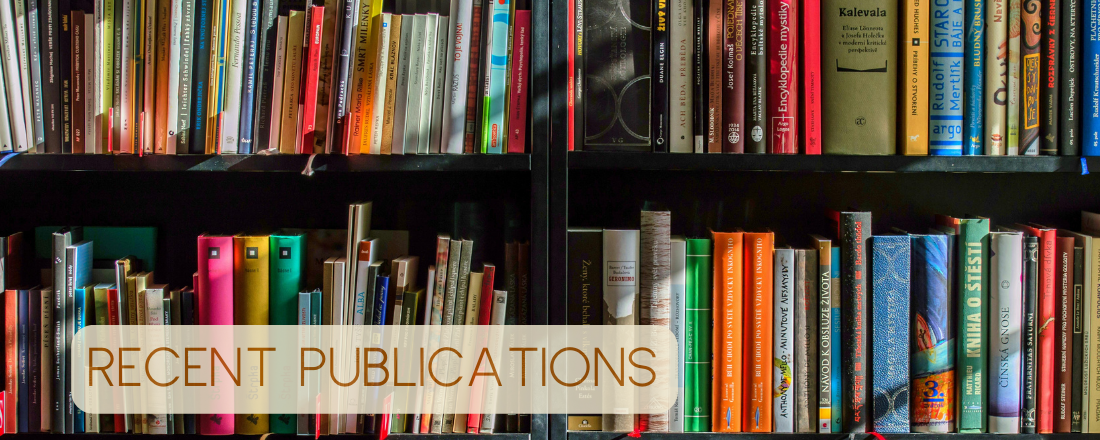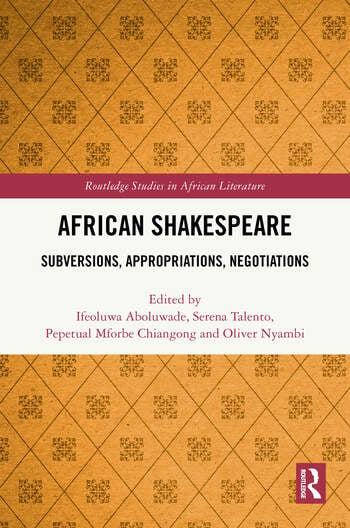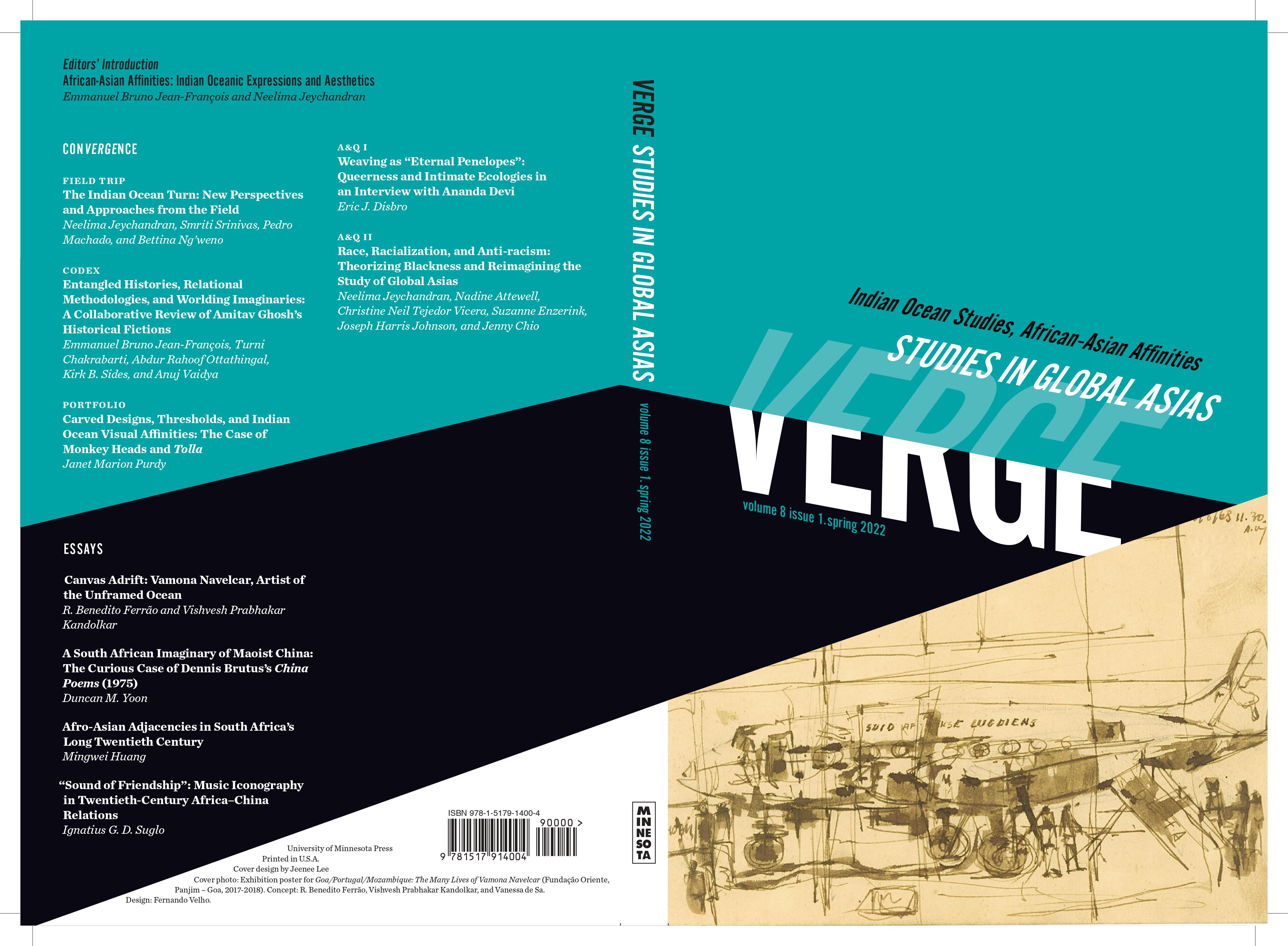Africa Multiple Publications
2026 - I
- Hrsg.: Löhr, Doris ; Ojongnkpot, Comfort B. O. ; Oloruntoba-Oju, Taiwo et al: Local Languages, Global Futures : Language....Hide
-
Local Languages, Global Futures : Language, Learning, and Sustainability in Africa
Abstract
This volume explores the central role of African languages in shaping inclusive and sustainable futures across the continent. While Africa has long been viewed primarily as a source of extractable resources, its future strength lies in its people. With higher education access below 10% in Sub-Saharan Africa—compared to nearly 80% in the Global North—there is both an urgent need and a major opportunity to expand learning. Such expansion will only succeed if students can study in languages they know; using African languages as mediums of instruction is essential to unlocking the continent’s human potential. Drawing on perspectives from education, technology, public communication, and indigenous knowledge, the contributions show how local languages function as cultural anchors and as drivers of learning, innovation, and social transformation. They address issues such as scientific communication in African languages, terminology development, multilingual education policies, digitization and digital divides, language visibility in public life, education for hunter-gatherer communities, and media and the arts, illustrated through cases from across the continent. A concluding theoretical chapter examines broader challenges and opportunities for multilingual education in Africa. Together, the chapters demonstrate that strengthening African linguistic resources is vital for decolonizing knowledge production, empowering communities, and reimagining education systems that reflect Africa’s diverse realities and aspirations.
Local Languages, Global Futures : Language, Learning, and Sustainability in Africa.
Hrsg.: Löhr, Doris ; Ojongnkpot, Comfort B. O. ; Oloruntoba-Oju, Taiwo ; van Pinxteren, Bert ; Yusuff, Ayodele
München : Akademische Verlagsgemeinschaft München AVM , 2026 . - 202 S.
ISBN 978-3-96091-660-4 - Daley, P., S. J. Ndlovu‐Gatsheni, W. Kimari et al: African Decolonial Theory: A ConversationHide
-
African Decolonial Theory: A Conversation.
Abstract
Antipode has become a key platform for engaging with decolonial and anticolonial scholarship, as well as adjacent fields such as Black geographies, Indigenous studies, Latin American feminism, and work on settler-colonialism. African reference points in this literature, however, have been far less common, both in the journal and more broadly in radical geography. Recognizing that there are several loci of enunciation for decolonial and anticolonial work, we committed to curating a series of conversations with and interventions by leading scholars from Africa and its diaspora associated with these epistemic and political projects. This long-read article, a first for the journal, brings these conversations and interventions together, highlighting the power of each as well as the common threads that connect them.
Daley, P., S. J. Ndlovu‐Gatsheni, W. Kimari, F. Obeng‐Odoom, S. Tamale, S. Bauriedl, S. Bawa, I. Carstensen‐Egwuom, G. Adeniyi‐Ogunyankin, Y. Al‐Bulushi, and S. Ouma. 2026. African Decolonial Theory: A Conversation. Antipode 58 (2).
https://doi.org/10.1111/anti.70110 - Stefan Ouma: The material politics of labour in Africa: A commentaryHide
-
The material politics of labour in Africa: A commentary.
In this commentary, I offer a sympathetic critique of the special issue, ‘Under Construction: Towards Critical Perspectives on Infrastructuring and Infrastructured Labour in Africa’. I highlight the importance of systems of provisioning, deeper theorising of the accumulation dynamics surrounding large-scale infrastructure projects, clearer distinctions between work and labour, and excavating the links between visible and hidden labour in various economic sectors, as key areas for future research that I hope will be inspired by this special issue.
Ouma S (2026) The material politics of labour in Africa: A commentary. Territory, Politics, Governance 14(2): 317–321.
2025 - III
- Frederico, Samuel ; Ouma, Stefan ; Duncan, Emily ; Gras, Carla: Finance, Land and Labour.Hide
-
Finance, Land and Labour.
Abstract
The dynamics of contemporary capitalism have empowered the role and influence of finance within the realm of agriculture. In response, agri-finance research has focused on the extension of global finance's investment chains and how parts of the agricultural sector—mainly farmland—are transformed into financial assets, where multiple sources of capital seek to make gains. To do so, scholarship on ‘finance going farming’ has directed attention to the variety of financial actors (i.e., pension, endowment and private equity funds, insurance companies and investment banks); their motives to invest; the variegated mechanisms deployed to reformat farmland and agricultural production for financial purposes; and the increasing power of shareholders to shape productive and distributive decisions. While this literature has advanced our understanding of how finance makes its way into agriculture, within agrarian studies, these processes and dynamics raise important conceptual and methodological challenges about how to centre financialization in dynamics of agrarian change. In this exchange, our contributors consider how contemporary trends in agri-finance demand us to rethink relations of production, property and power and processes of accumulation. Key questions that the forum addresses include how and to what extent is finance connected to the restructuring of capital and its modalities of accumulation in agrarian settings? What ties does financialization have to changes in labour regimes? How does it affect productive capital and its associated relations of power?
Frederico, Samuel ; Ouma, Stefan ; Duncan, Emily ; Gras, Carla:
Finance, Land and Labour.
In: Journal of Agrarian Change. Bd. 25 (2025) Heft 4 . - e70038.
ISSN 1471-0366
DOI: https://doi.org/10.1111/joac.70038 - Victor Chidubem Iwuoha &Martin Doevenspeck:Biometric coloniality: digital consensus and the biometric state in AfricaHide
-
Biometric coloniality: digital consensus and the biometric state in Africa
This article frames the concept of biometric coloniality of power in the Global South – to explain how alliances of powerful global institutions, big tech companies and the compliant emerging biometric states operate on the basis of a lucrative digital consensus to carry out techno-capitalist biometric ID interventions, which reproduce colonial relations of domination. We use Nigeria’s experience and examples from other African countries to demonstrate that the emergence of biometric states is linked to specific interconnected spaces of biometric data struggle and exploitation where the uses/abuses of biometric data are performed and contested.
This article maps out new biometric orders of power at multiple levels/scales, and explicitly draws out ways biometric categories and social hierarchies are used to produce racialised and gendered subjects. The article argues that biometric coloniality inherently creates a biometric state with a peculiar character of biometric dysfunctionality and authoritarianism, both effectively institutionalised to the exclusion and disempowerment of the citizens/biometric subjects. We conclude that the chain of unbridled extraction of digital data, its commodification and dispossession, which is bounded by digital consensus, can only be broken by the conscious awakening of digital subjects.
Doevenspeck, M., & Iwuoha, V. C. (2025). Biometric coloniality: digital consensus and the biometric state in Africa. Third World Quarterly. https://doi.org/10.1080//01436597.2025.2539731
- Daniel Ochieng Orwenjo: "Waiting to Die": Language, discourse and meaning in palliative care contexts in KenyaHide
-
"Waiting to Die": Language, discourse and meaning in palliative care contexts in Kenya
The contemplation of death is for most of us inherently disconcerting, making it natural repress such an un-pleasant reality both on an individual and on a societal level. Language provides us with the facility for sup-pression of such thoughts, achieve different outcomes and construct different realities by words chosen and their shared meanings. This paper reports the findings of a study conducted to investigate the discursive construction of palliative care in the Kenyan context.
The study was conducted in four hospices in Kenya, namely Siaya, Kisumu, Busia and Eldoret. Like in many African countries, palliative care is yet to be fully integrated into the mainstream healthcare system in Kenya, and these centres, although located within the proximity or sometimes within the premises of the respective county referral hospitals, were mainly operationally autonomous. Participants were selected for the study using purposive sampling purposively selected for the study.
Data was collected over a period of six (6) months using the principles of focused ethnography and guided by the study objectives and relevant theoretical framework. The care givers were all relatives of the patients who doubled up as care givers of during the hospitalization period. The findings of this study show that the language used in palliative care contexts in Kenya varies considerably and reflects diverse conceptualizations of illness, diagnosis, treatment and death. It emerges that these conceptualizations are constrained by cultural practices, religious beliefs, speaker identity and the goals of the palliative care facility.
Orwenjo, D. O. (2025). “Waiting to Die”: Language, discourse and meaning in palliative care contexts in Kenya. Language and Health, 3(2), 100069. https://doi.org/10.1016/j.laheal.2025.100069
- Ute Fendler and Clarissa Vierke(eds.): Transoceanic and Transmedial Imaginaries in the Indian OceanHide
-
Transoceanic and Transmedial Imaginaries in the Indian Ocean
Transoceanic and Transmedial Imaginaries in the Indian Ocean explores multiple aesthetic relations constantly in flux, which construct, deconstruct, and reconstruct the Indian Ocean. It addresses the questions of how the arts – music, literature, visual art, and performance – relate to and dynamically create imaginaries of the Indian Ocean as a transcontinental space.
Contributors focus on the relations and interference of various art forms, including literature, music, visual arts, installations, and performance as well as local crafts, and cross the boundaries of language(s), which have often separated views of the Indian Ocean along the monolingual logic of disciplines. This book takes a transmedial perspective and studies the Indian Ocean as a fluid space, in which languages, images, music, and dance movements have been traveling and influencing each other for centuries. It analyzes how music, verbal, audiovisual, or performative arts use imagery, sound, narrative, and performances to make alternative relations across space and time and to make transoceanic visions and histories perceptible. Focusing on the aesthetic approach, this book combines various formats to capture the complex and often complementary interconnectedness of different stories told using various media, creating different atmospheres and touching other senses.
This book is a novel contribution to the study of the Indian Ocean and will be of interest to an interdisciplinary readership, including literature, cultural studies, visual arts, performance, anthropology, and history, but also social geography, linguistics, and music studies.
Fendler, U., & Vierke, C. (2025). Transoceanic and Transmedial Imaginaries in the Indian Ocean. Routledge.
- Isaac Abotebuno Akolgo (04 Sep 2025): Banking and Monetary Policy in Ghana: Has Finance .....Hide
-
Banking and Monetary Policy in Ghana: Has Finance Served the Real Economy?
The post-COVID debt crisis in Ghana and across several African countries has reignited debates about development financing. The literature on Ghana in particular has shown that its financial distress is not only rooted in external constraints, but also the structural dysfunction in its domestic economy. This paper focuses on one area of the structural dysfunction in Ghana’s economy – namely the financial system. Relying predominantly on central bank data, the paper contends that operations of commercial banks and the conduct of monetary policy have failed to support the real productive sectors of the economy. Specifically, bank credit to the agricultural and manufacturing sectors has persistently declined in the 25years from 1999 to 2023. This pattern of credit repression to the domestic productive sector is aggravated by the high interest rates from the central bank’s inflation-targeting regime. The paper recommends a reform of financial policy – among others, the institution of credit policies and a reorganisation of development banking.
Isaac Abotebuno Akolgo (04 Sep 2025): Banking and Monetary Policy in Ghana: Has Finance Served the Real Economy?, Forum for Social Economics, DOI:10.1080/07360932.2025.2552681
- Utopian Studies Special Issue: AFROTOPIAHide
-
AFROTOPIA
This is a special issue on the topic of AFROTOPIAS, compiled by Guest Editors Antje Daniel (University of Vienna), Magnus Echtler (University of Bayreuth), and Melina Kalfelis (University of Bayreuth).
“You cannot carry out fundamental change without a certain amount of madness [. . .] it comes from nonconformity, the courage to turn your back on the old formulas, the courage to invent the future.”1 Those were the words of the popular socialist president and thinker Thomas Sankara, whose creative policies and anticolonial vision for Burkina Faso were a utopian dream of a socially just future that seemed to come true for many citizens across Africa; a dream that came to a sudden end when he was killed by his opponents in 1987.2 After his death, Sankara became a symbol of decolonization, social justice, and revolution.3 He inspired generations thereafter and returned as an icon of protest in 2014, when a popular uprising ended the twenty-seven-year rule of former president Blaise Compaoré. His legacy is also revitalized by Ibrahim Traoré,4 the current president of Burkina Faso,...
Utopian Studies Special Issue "AFROTOPIA" , Utopian Studies (2025) 36 (2),https://doi.org/10.5325/utopianstudies.36.2
- Carli Coetzee, Christine Matzke, Onookome Okome(eds.):The Worlds around Taiwo Shango (1965): A West German .....Hide
-
The Worlds around Taiwo Shango (1965): A West German-Nigerian TV film
This special issue is a first stepping stone towards the recuperation and reappraisal of the long-lost television film Taiwo Shango oder: Der zweite Tag nach dem Tod (Taiwo Shango or: The Second Day after the Death] (1965, dir. Klaus Stephan), a co-production by the Bayerischer Rundfunk (BR, Bavarian Broadcasting) and Westdeutscher Rundfunk Köln (WDR, West German Broadcasting Cologne) in conjunction with the Nigerian Television Service (NTS). It also draws attention to the extensive photographic legacy of Nina Fischer-Stephan (1922-2018), who documented life in Nigeria from the late 1950s to the mid-1960s, and whose work cannot be separated from the production of Taiwo Shango. Contributions emerged out of a joint Nigerian-German research collaboration between the universities of Lagos and Bayreuth (UniLag and UBT, July 2021-December
2022), which initially focused on close readings of the film in relation to contemporaneous and contemporary cultural production and cultural industries in Nigeria and Germany.
Also included are the voices of scholars who usually do not study media and performance but share illuminating insights into the contexts of the film; and initial respor first outdoor installation of Fischer-Stephan's pictures in Lagos in 2022. Th Increase/Reduce Image Size and Fischer-Stephan estate is held at walewahaus,' University of Bayreuth, Germany, whose first director was Ulli Beier.Special Issue "The Worlds around Taiwo Shango (1965): A West German-Nigerian TV film" (eds. Carli Coetzee, Christine Matzke, Onookome Okome), Journal of African Cultural Studies (37:3, 2025)
- Alber, Erdmute (2025) Responsibilizing Parents to overcome Blindness: Changing Intergenerational....Hide
-
Responsibilizing Parents to overcome Blindness: Changing Intergenerational Relations through Education for all in Northern Benin
Alber, Erdmute 2025: Responsibilizing Parents to overcome Blindness: Changing Intergenerational Relations through Education for all in Northern Benin. In: Elizabeth Cooper, Erdmute Alber and Wandia Njoya (eds.) The educational alibi. Tracing Education's Entanglements across Contemporary Africa . Ann Arbor: University of Michigan Press : 31-54
- Erdmute Alber, Elizabeth Cooper and Wandia Njoya(eds.):The Education Alibi: Tracing Education's Entanglements .....Hide
-
The Education Alibi: Tracing Education's Entanglements Across Contemporary Africa
Education is generally promoted as the key to the future of Africa in global development discourses about the continent. Education’s official story in Africa continues to be one of innocence and public good, yet, since colonial times, education has constituted an area of intense contestation. The Education Alibi asks if it is possible that while claiming to be doing one thing, education has also been doing another in African communities. The concept of the “alibi” shines an interrogative light on institutions’ and actors’ use of education to divert scrutiny from other effects. Through ethnographic research and critical analysis across the continent, this volume focuses on people’s lived experiences to demonstrate how contemporary education systems in fact deepen economic, racialized, gendered, urban-rural, linguistic, religious, and other intranational and international inequalities.
Elizabeth Cooper, Erdmute Alber and Wandia Njoya (eds.) The education alibi. Tracing Education's Entanglements across Contemporary Africa . Ann Arbor: University of Michigan Press
- Elizabeth Cooper, Erdmute Alber and Wandia Njoya 2025: The Education Alibi in Africa: Tracing.....Hide
-
The Education Alibi in Africa: Tracing Processes of Responsibilization, Depolitization, and the Production of Inequality
The Education Alibi in Africa: Tracing Processes of Responsibilization, Depolitization, and the Production of Inequality. In: Elizabeth Cooper, Erdmute Alber and Wandia Njoya (eds.) The educational alibi. Tracing Education's Entanglements across Contemporary Africa . Ann Arbor: University of Michigan Press: 1-30
- Fahm, AbdulGafar Olawale: Gender, Marginalization, and Digital Technology in Islamic Learning: A Nigerian PerspectiveHide
-
Gender, Marginalization, and Digital Technology in Islamic Learning: A Nigerian
PerspectiveAbstract
The integration of digital technologies has significantly transformed the landscape of Islamic education in Nigeria, enhancing accessibility to religious knowledge while simultaneously reinforcing pre-existing socio-cultural disparities. Utilizing an intersectional analytical framework, this study critically explores how gender, socio-economic diversity, and Islamophobia collectively influence experiences within digital Islamic learning environments. Employing qualitative feminist methodologies, I conducted semi-structured interviews from November to December of 2024 with Islamic scholars, educators, students, and general digital platform users from Lagos, Ilorin, and Maiduguri. The findings indicate that intersecting factors such as gender roles, socioeconomic conditions, geographical location, and Islamophobic attitudes distinctly shape patterns of digital engagement, creating both inclusion and exclusion. Although digital platforms offer transformative opportunities, particularly for women who have historically faced barriers to structured religious education, these benefits are limited by persistent infrastructural inadequacies, financial constraints, and widespread concerns over misinformation. Consequently, the study highlights the critical need for comprehensive regulatory measures and capacity-building strategies to promote equitable digital participation. In conclusion, this research advocates for policies informed by intersectionality, culturally responsive pedagogies, and inclusive technological innovations aligned with Islamic ethical principles, aiming to cultivate equitable digital Islamic learning environments throughout Nigeria.
Fahm, AbdulGafar Olawale (2025) "Gender, Marginalization, and Digital Technology in Islamic Learning: A Nigerian Perspective," Journal of International Women's Studies: Vol. 27: Iss. 3, Article 6.
2025 - II
- Rusere, F; Li, Q; Hunter, L; Collinson, M; Ouma, S; Twine, W; Samimi, C: Relationships between rural migration .....Hide
-
Relationships between rural migration and perceptions of environmental change : Insights from Bushbuckridge, South Africa
Abstract
Environmental change is increasingly threatening rural livelihoods across the globe. Yet rural communities possess valuable knowledge that could inform policy decisions on creating sustainable livelihoods amidst global environmental challenges and planning for rural community and landscape sustainability. Against this backdrop, this paper focuses on three key questions in a rural South African setting: What challenges do rural residents face in maintaining and developing livelihoods compared to the past? (ii) What environmental changes have they observed within their communities over their lifetime? and (iii) How are these changes perceived to influence circular migration for work? By examining rural dwellers’ perceptions of the challenges to securing sustainable livelihoods, valuable insights can be gleaned as to why certain strategies succeed while others fail, leading to the identification of areas for improvement in policy, programs and livelihood strategies. This study draws on qualitative data from focus group discussions held across nine villages in the MRC/Wits Agincourt Health and Socio-Demographic Surveillance System site in northeast South Africa. The facilitated focus group discussions allowed participants to reflect on a range of environmental and livelihood issues in relation to the study questions. The findings demonstrate that environmental stressors induced by climate change, pollution, and natural resource degradation are perceived to restrict employment and income opportunities, exacerbate water and food insecurity, and drive circular migration. These findings provide valuable insights for researchers and policymakers in crafting strategies to enhance adaptive capacity and mitigate the vulnerability of rural livelihoods in rural regions across the global South.
Rusere, Farirai; Li, Qirui; Hunter, Lori; Collinson, Mark; Ouma, Stefan; Twine, Wayne; Samimi, Cyrus (2025): Relationships between rural migration and perceptions of environmental change: Insights from Bushbuckridge, South Africa. In: Journal of Rural Studies 119, S. 103819. DOI: 10.1016/j.jrurstud.2025.103819.
- Alber, E.: "Situating Political Engagement in Their Life Courses and Class .....Hide
-
Situating Political Engagement in Their Life Courses and Class Positionalities: Women in Politics in the Republic of Benin
Abstract
Taking an anthropological perspective of the life course, this article contributes to debates on why women´s engagement in politics is so low in West Africa, with special attention to the Republic of Benin. It argues that women’s political engagement must be understood as deeply entangled with their multiple relations, especially their positioning in roles related to gender and the life course. Given that they must balance their engagement with husbands, children, parents, friends, and siblings through different life stages, their willingness to enter politics may change over time. As they experience and describe politics as a dirty and dangerous space, they often seek to protect themselves and their kin. At the same time, their presence in politics confirms deepening inequalities and class-building processes.
Alber, E. (2025). Situating Political Engagement in Their Life Courses and Class Positionalities: Women in Politics in the Republic of Benin. Africa Today 71(3), 69-89. https://dx.doi.org/10.2979/at.00037.
- Alber, E., Bauer, G., & Darkwah, A. : "Rethinking Women’s Political Power in West AfricaHide
-
Rethinking Women’s Political Power in West Africa
In early 2025, increasing numbers of women held positions of formal political power across West Africa. In Ghana, Professor Naana Jane Opoku-Agyemang had just been elected vice-president, and in Benin, Mariam Chabi Talata had been vice-president since 2021 (see Alber, this volume). Cabo Verde and Senegal had more than 40 percent women in their national parliaments, and in early 2024, Sierra Leone, Togo, and Cabo Verde had 30 percent or more women serving as cabinet ministers. While at least the tendency of growing numbers sounds promising, countries in East and southern Africa have experienced much higher rates of women in positions of political leadership for many years. Rwanda has led the world in women’s representation in parliament, with more than 50 percent women for two decades, and South Africa and Mozambique have had gender-parity cabinets for many years.1 Most West African countries are still far away from such high representation of women in parliaments, and yet formal political power in institutions such as parliaments and cabinets is only one of the ways i
Alber, E., Bauer, G., & Darkwah, A. (2025). Rethinking Women’s Political Power in West Africa. Africa Today 71(3), 1-11. https://dx.doi.org/10.2979/at.00034.
- Alber, E., & Kölbl, C.: "Literacy and illiteracy, its relational other....Hide
-
Literacy and illiteracy, its relational other: A key topic for collaboration between psychology and anthropology
Abstract
Collaborative work between anthropology and psychology on literacy and particularly on illiteracy helps to rethink general disciplinary backgrounds, concepts, and complex empirical phenomena in the field of (il)literacy. Since the formational period of the social sciences, the concept of literacy has been key to the self-understandings of anthropology and psychology. However, it was long neglected in empirical research. Nonetheless, implicit and explicit assumptions about the role, history, and distinctiveness of writing systems and their presence or absence in various societies were central to disciplinary understandings of societies, individuals, and humanity. To this day, literacy and especially its relational other— illiteracy—have not received the attention they deserve from either empirical or conceptual research. This article begins with their histories in anthropology and psychology and argues that illiteracy, in particular, has been neglected in their debates. It then offers a framework for literacizing and illiteracizing, conceptualizes both illiteracy and literacy as multiple and relational phenomena, and discusses methodologies and preliminary results from our collaborative research project on processes of literacizing and illiteracizing in urban literate environments in Benin and Bolivia. It concludes with a discussion of the potential of research on literacy and illiteracy as a model for transdisciplinary work, especially a more intensive collaboration between our disciplines.
Alber, E., & Kölbl, C. (2025). Literacy and illiteracy, its relational other: A key topic for collaboration between psychology and anthropology. Ethos, e70015. https://doi.org/10.1111/etho.70015
- Alber, E., & Clemens, I.: "Relationale Perspektiven auf Lernnetzwerke.....Hide
-
Relationale Perspektiven auf Lernnetzwerke in der majority world und global zirkulierende Bildungskonzepte als post-koloniale Reflexion
Abstract
In Ländern der majority world (Dasen & Akkari, 2008) sind aufgrund massiver Eingriffe durch Kolonialisierungsprozesse Bildungssysteme entstanden, denen andere sozio-ökonomische Figurationen zugrunde liegen als in der minority world. Die großen Erwartungen in die Möglichkeiten des sozialen
Aufstiegs durch Bildung werden nur sehr selten erfüllt. Trotz massiver Investitionen in schulische
Bildung durch Angehörige werden die Lebenswege und Berufsbiografien vieler junger Menschen
maßgeblich durch außerschulische Relationen und Lernräume geprägt. Hier setzt das Projekt
Making a living. Learning trajectories towards the ability to earn a livelihood an, innerhalb dessen
wir mithilfe von Fallstudien aus dem ländlichen Benin die diversen Figurationen herausarbeiten, in
denen junge Menschen ihren Lebensunterhalt verdienen. Dieser Text präsentiert eine dieser Fallstudien und diskutiert zugleich, inwiefern relationale Ansätze besser die spezifischen Bildungskonfigurationen herausarbeiten können als herkömmliche Ansätze. Wir verstehen dies als wichtigen und dekolonialen Beitrag zu Reflexionen des globalen Bildungssektors.Schlüsselwörter: Bildung, relationale Ansätze, majority world, Benin, rurale Jugendliche
Alber, E., & Clemens, I. (2025). Relationale Perspektiven auf Lernnetzwerke in der majority world und global zirkulierende Bildungskonzepte als post-koloniale Reflexion. Tertium Comparationis. Journal für International und Interkulturell Vergleichende Erziehungswissenschaft, 31(1), 35.
- Frempong, R. B., Stadelmann, D., & Thiam, D. R.: "How do current and past mining activities affect water security.....Hide
-
How do current and past mining activities affect water security, health, and economic opportunities?
Abstract
This paper investigates the effect of mining activities on health care, income and water deprivations in Africa. By combining household data with mining locations, we conducted an econometric analysis to assess the impact of mining on self-reported water security, health, and economic opportunities for 142,838 households. Our study utilizes the presence of active and inactive mines to measure the effects of household exposure to mining activities. We observe that proximity to active mining sites is associated with self-reported improved water security, access to health, and economic opportunities. Instrumental variable estimates support a causal interpretation of our results. Specifically, households located within a 50 km radius of active mines reported a 4% lower probability of lacking clean water. Our findings also reveal that robust local institutions not only enhance water security but also mitigate the negative health impacts associated with mine closures. These results suggest that strengthening local governance can amplify the potential benefits of mining operations. Therefore, we recommend the strengthening of local government institutions to foster the resilience of vulnerable mining communities.
Frempong, R. B., Stadelmann, D., & Thiam, D. R. (2025). How do current and past mining activities affect water security, health, and economic opportunities? Applied Economic Perspectives and Policy. DOI: 10.1002/aepp.13510
2025 - I
- Dahlmanns, Erika: Social Cohesion in Post-Genocide Rwanda : Local (Re)conceptions Beyond...Hide
-
Social Cohesion in Post-Genocide Rwanda : Local (Re)conceptions Beyond Global Definitions.
Abstract
In light of global dynamics threatening the social ties that hold societies together, recent research has turned to exploring 'conceptions of social cohesion' in Africa. Focusing on Rwanda, this paper argues that while post-genocide government documents (1999-2012) align with globalized definitions of cohesion—emphasizing inclusive identity, trust, and cooperation—Rwanda's approach to rebuilding national unity is deeply rooted in localized notions. Rwandan notions of social cohesion revolve around 'culture' and 'kinship,' which throughout history have played a crucial role in (re)framing social orders in response to inter-group conflict and shifting conceptions of the nation. This case study suggests that beyond trust in institutions and fellow citizens, understanding the normative narratives and cultural frameworks that define social order, as well as the population's familiarity with these, is crucial to assessing cohesion—especially in contexts of nation-building where social trust has been eroded by violent conflict.
Dahlmanns, Erika:
Social Cohesion in Post-Genocide Rwanda : Local (Re)conceptions Beyond Global Definitions.
Bayreuth Academy of Advanced African Studies
Bayreuth , 2025 . - VI, 26 S. - (University of Bayreuth African Studies Working Papers ; 57 ) (Academy reflects; 13) - Verne, Julia ; Marquardt, Nadine ; Ouma, Stefan: Planetary Futures : On Life in Critical Times.Hide
-
Planetary Futures : On Life in Critical Times.
Abstract
Based upon the opening keynote address at the German Congress of Geography held in Frankfurt am Main in 2023, this article traces the current debate on the planetary in the humanities, social sciences and Earth System Science in three parts. Instead of taking the concept of the planetary for granted, we explore the question of how it is reflected in our respective fields of research (cultural geography, social geography, and economic geography) and what potential it harbors for unearthing new insights. In particular, we consider the possibilities for a planetarily‐oriented cultural geography beyond anthropocentrism, a social geography of housing that focuses on the concept of planetary habitability, and an economic geography that centers the transhistorical and trans‐geographical impact of plantation logics. From our point of view, the planetary is not simply an additional scale but rather a style of thought that increasingly characterizes our present. Since natural and social science approaches meet here in a new way, it seems particularly relevant to ask how we as geographers might allow ourselves to be intrigued and unsettled by the planetary.
Verne, Julia ; Marquardt, Nadine ; Ouma, Stefan:
Planetary Futures : On Life in Critical Times.
In: Geography Compass. Bd. 19 (2025) Heft 1 . - e70015.
ISSN 1749-8198
DOI: https://doi.org/10.1111/gec3.70015 - Hrsg.: Schrüfer, Gabriele ; Hannah, Matthew G. . Geographisches Institut Bayreuth (GIB): Gesellschaft und Umwelt.Hide
-
Gesellschaft und Umwelt
Abstract
Die Schriftenreihe wird unter Federführung des Geographischen Instituts der Universität Bayreuth herausgegeben und präsentiert überwiegend fachwissenschaftliche sowie fachdidaktische Arbeiten, die im Rahmen der Fortbildungsveranstaltung ‘Kontaktstudium Geographie’ für Lehrkräfte vorgestellt werden.
Rothfuß, Eberhard ; Dörfler, Thomas ; Ouma, Stefan ; Rainer, Gerhard ; Hannah, Matthew G. ; Miosga, Manfred ; Steinbauer, Manuel; Schwietering, Arne ; Hoffmann, Karl Walter:
Gesellschaft und Umwelt.
Hrsg.: Schrüfer, Gabriele ; Hannah, Matthew G. . Geographisches Institut Bayreuth (GIB)
Bayreuth , 2025 . - 136 S. - (Bayreuther Kontaktstudium Geographie ; 13 )
DOI: https://doi.org/10.15495/EPub_UBT_00008635 - Ouma, Stefan: Externalisierung geovisuell vermitteln : Zur Sichtbarmachung des globalen ökologischen ...Hide
-
Externalisierung geovisuell vermitteln : Zur Sichtbarmachung des globalen ökologischen und sozioökonomisches Fußabdruckes "unserer" Lebensweise.
Abstract
Dieser Beitrag basiert auf meiner bisherigen Arbeit zum Thema „Externalisierung“, über die Sie in der folgenden Ausgabe des Kontaktstudiums mehr erfahren. Ouma, S. (2021). „Wir leben gut, weil wir von anderen leben“: Externalisierung im Geographie-Unterricht. In G. Obermaier, M. Miosga, G. Schrüfer & K. Barthmann (Hrsg.), Bayreuther Kontaktstudium. Nachhaltigkeit (Bd. 11, S. 19–40). Ziel dieses Beitrages ist es, Materialien bereitzustellen, die Impulse dafür geben, die artverwandten Konzepte der Externalisierungsgesellschaft bzw. der Imperialen Lebensweise im Unterricht didaktisch gut zu vermitteln.
Ouma, Stefan:
Externalisierung geovisuell vermitteln : Zur Sichtbarmachung des globalen ökologischen und sozioökonomisches Fußabdruckes "unserer" Lebensweise.
Hrsg.: Schrüfer, Gabriele ; Hannah, Matthew G.
Bayreuth , 2025 . - S. 23-38 - (Bayreuther Kontaktstudium Geographie ; 13 )
DOI: https://doi.org/10.15495/EPub_UBT_000086358. - Klinge, Tobias J. ; Ouma, Stefan ; Hendrikse, Reijer: Capitalising on conjunctures : Tesla's ups and downs in ...Hide
-
Capitalising on conjunctures : Tesla's ups and downs in financialised capitalism.
Abstract
This article explores the puzzling ups and downs of Tesla, going through one the most volatile stock market swings of the recent past, under conditions of financialised capitalism. We adopt a conjunctural approach, highlighting both the macro and micro dynamics shaping the firm’s financial market trajectory. Among these, meticulously maintained narratives, boosted by social media, attracted dedicated followers, while the rise of new retail trading platforms and excitement around Tesla’s index inclusion helped in producing its stock ‘mementum’. This volatility was further supported by an exceptionally large volume of financial derivatives trading, paralleling a public battle between short sellers and the company’s defenders. The resulting stock market boom enabled Tesla to stabilise its finances, whilst its ‘mercurial’ CEO Elon Musk negotiated the largest executive compensation package in US corporate history, turning him into the world’s richest individual. In conclusion, we argue that Tesla serves as an emblematic case of an increasingly tech-driven financialised capitalism, which scholars could use as a window to study future conjunctures.
Klinge, Tobias J. ; Ouma, Stefan ; Hendrikse, Reijer:
Capitalising on conjunctures : Tesla's ups and downs in financialised capitalism.
In: Finance and Society. Vol. 11 (2025) Issue 1 . - pp. 36-55.
ISSN 2059-5999
DOI: https://doi.org/10.1017/fas.2024.23 - Mkalama, B. and Ouma, S. : "‘Making Sense of Funding Inequalities in the Venture Capital Space: A State-of-the-Art Paper...Hide
-
Making Sense of Funding Inequalities in the Venture Capital Space: A State-of-the-Art Paper with Views from Africa
Abstract
Between 2015 and 2022, venture capital (VC) investments in Africa have increased significantly. However, a closer look reveals that these investments have been distributed unevenly in socio-spatial terms. In this article, we seek to demonstrate that the existing literature on the VC-inequality nexus in North America can help make sense of the interrelationship between VC allocation decision-making and socially differentiated access to VC in Africa. By summarizing existing findings on the VC allocation-inequality nexus and combining insights from different disciplines, we provide conceptual clarity through a systematic inventory of the existing literature. Secondly, by developing a view from Africa, we show how an engagement with VC from ‘the margins’ complicates existing narratives on investee discrimination mainly generated in a North American context. Finally, we filter our findings through VC experiences of Asian economies, where VC funding has often evaded the classic ‘race’ problem due to its domestic nature, even though these experiences are far from equal affairs.
Mkalama, B. and Ouma, S. (2025) ‘Making Sense of Funding Inequalities in the Venture Capital Space: A State-of-the-Art Paper with Views from Africa’,Socio-Economic Review. DOI: 10.1093/ser/mwaf007
- Ifeoluwa Aboluwade, Serena Talento, Pepetual Mforbe Chiangong, Oliver Nyambi: "African Shakespeare: Subversions...Hide
-
African Shakespeare: Subversions, Appropriations, Negotiations
Description
African Shakespeare: Subversions, Appropriations, Negotiations uncovers the multidimensional inventions, synergies, and experimentations that have emerged from performative, political, literary, and conceptual encounters with Shakespeare and his oeuvre in African contexts.
Divided into three broad and overlapping parts, the chapters of the book critically explore issues of decoloniality and postcoloniality; nation-building and state corruption; history and memory; gender and feminism; translation and adaptation from diverse theoretical standpoints. The book displaces the emphasis on Shakespeare’s works to productively illuminate the multi-layered significance of African epistemes, politico-aesthetics, languages and socio-cultural realities to the practice and process of literary and theatrical intervention and creation. Building on and extending extant scholarship in the field of African Shakespeare, the contributions in the volume not only enhance knowledge of African Shakespearean creations but also enrich African Studies and Shakespeare Studies by opening up new possibilities for transdisciplinary dialogues and cross-fertilization.
The book will be useful for students and scholars of African Theatre and Performance, Cultural Studies, (Global) Shakespeare Studies, Translation and Adaptation Studies and Post-colonial Studies.
2024 - IV
- Fuhrmann, Wolfgang:Seiner Zeit voraus. Das deutsch-nigerianische Filmexperiment ....Hide
-
Seiner Zeit voraus. Das deutsch-nigerianische Filmexperiment Taiwo Shango oder: Der zweite Tag nach dem Tod (1965) von Klaus Stephan
1965 gab es gleich zwei Premieren in den deutsch-afrikanischen Filmbeziehungen. Im Februar des Jahres begann die DEFA in Zusammenarbeit mit der Société Anonyme Tunisienne de Production et d'Expansion Cinématographique (SATPEC) in Tunesien die Dreharbeiten zu Jean Michaud-Maillands HAMIDA/H'MIDA. Auf ostdeutscher Seite versprach man sich von der ersten Koproduktion mit einem afrikanischen Land „einen kulturell-künstlerischen Prestigegewinn im scharfen außenpolitischen Kampf um diplanatische Anerkennung der DDR", so Dieter Wolf, der Haupt-Dramaturg der DEFA.' Dass der jüngst von der DEFA-Stiftung restaurierte Film, der im Januar 1966 in die ostdeutschen Kinos kam, dort nur mäßigen Erfolg hatte, war vor diesem politischen Hintergrund eher nachrangig.
Fuhrmann, Wolfgang. (2024). Seiner Zeit voraus. Das deutsch-nigerianische Filmexperiment Taiwo Shango oder: Der zweite Tag nach dem Tod (1965) von Klaus Stephan, 29(84), 51-66
- Kalfelis, Melina C: "Tricky Violence. Vigilantism as a Moral Experiment in Urban Burkina Faso"Hide
-
Tricky Violence: Vigilantism as a Moral Experiment in Urban Burkina Faso
Scholarship has contributed enormously to the understanding of vigilantism in contemporary Africa. In this large body of work, morality is a recurring theme associated with a number of established assumptions. Research focusing on the state monopoly of violence and international human rights highlights the legal and moral ambivalences surrounding vigilante groups (e.g., Baker 2011; Buur 2008; Kirsch 2010). The basic argument is that vigilantes navigate the borderlands of “good” and “evil” and can never leave the realm of norm violation and moral ambiguity (see Abrahams 2020). In research focusing on the cultural dimensions of vigilantism, the argument often goes in the opposite direction (e.g., Harnischfeger 2003; Hellweg 2011; Smith 2004). The most common assumption is that vigilante groups generally represent “local” moral values and enjoy a certain degree of moral popularity in communities. Finally, a third assumption is that vigilante groups themselves appear to be free from moral ambiguity or contradiction. Like other configurations of collective violence (see Bakonyi and Bliesemann de Guevara 2012), vigilante groups are commonly displayed as groups whose violence is based on a consensual, if not radical, notion of the moral order they try to impose on others.
Kalfelis, Melina C. (2024). Tricky Violence. Vigilantism as a Moral Experiment in Urban Burkina Faso, Conflict & Society 10: 82-96. https://doi.org/10.3167/arcs.2024.100105
- Kiprop, Catherine: Gender, Feminism and Politics of Knowledge Production: an Interrogation of ....Hide
-
Gender, Feminism and Politics of Knowledge Production: an Interrogation of Institutional Cultures of Africa’s Institutions of Higher Learning.
Kiprop, Catherine. 2024. “Gender, Feminism and Politics of Knowledge Production: an Interrogation of Institutional Cultures of Africa’s Institutions of Higher Learning.” In: Schramm, Katharina and Sabelo J. Ndlovu–Gatsheni (Eds.). Knowing – Unknowing: African Studies at the Crossroads. Africa Multiple Vol.4. Leiden/Boston: Brill.
- Koranteng, Tannor, E., Amuasi, J., Busse, R. et al. : "The impact of COVID-19 on health service utilization...Hide
-
The impact of COVID-19 on health service utilization in sub-Saharan Africa—a scoping review
Despite comparatively low rates of COVID-19 admissions and recorded deaths in sub-Saharan Africa (SSA), the pandemic still had significant impact on health service utilization (HSU). The aim of this scoping review is to synthesize the available evidence of HSU in SSA during the pandemic, focusing on types of studies, changes in HSU compared with the pre-pandemic period, and changes among specific patient groups.
Tannor, E.K., Amuasi, J., Busse, R. et al. The impact of COVID-19 on health service utilization in sub-Saharan Africa—a scoping review. BMC Global Public Health 2, 51 (2024). https://doi.org/10.1186/s44263-024-00083-0
- Mkalama, Ben; Ouma, Stefan: "To whom does the money go? Mapping the uneven financial geographies of venture ...Hide
-
To whom does the money go? Mapping the uneven financial geographies of venture capital in ‘Silicon Savannah’, Kenya
Motivated by the view that capital flows in the venture capital industry are not just mediated by meritocratic attributes of the founders but also by raced, gendered and classed social relations with strong historical underpinnings, this paper quantifies and qualifies the uneven financial geography of venture capital investments in Kenya. We map the race, nationality, class and gender of all funded founder teams between 2019 and 2022. Insights from qualitative interviews enrich our findings. The paper’s findings suggest a structural bias against Black Kenyan entrepreneurs, particularly women, who do not have the desirable social networks. The study recommends for the diversification of venture capital supply and reviewing the public policy frameworks governing finance provision to companies seeking growth capital in Africa.
Mkalama, Ben; Ouma, Stefan (2024): To whom does the money go? Mapping the uneven financial geographies of venture capital in ‘Silicon Savannah’, Kenya. In: Finance and Space 1 (1), S. 517–541. DOI: 10.1080/2833115X.2024.2418871.
- Ndogo, Samuel: Tell your Neighbor Life is Very Tricky’: Performing the City in Swahili....Hide
-
Tell your Neighbor Life is Very Tricky’: Performing the City in Swahili Comedy Shows in Nairobi.
Ndogo, Samuel. “‘Tell your Neighbor Life is Very Tricky’: Performing the City in Swahili Comedy Shows in Nairobi.” In: Fendler, Ute, Marie-Anne Kohl, Gilbert Shang Ndi, Christopher Joseph Odhiambo, and Clarissa Vierke (Eds). Of Worlds and Artworks: A Relational View on Artistic Practices from Africa and the Diaspora. Africa Multiple Vol.3. Leiden/Boston: Brill.
- Odhiambo, Christopher J: Artistic Imaginaries of War in East Africa: “Worlding“ as an Agency of Peace CultureHide
-
Artistic Imaginaries of War in East Africa: “Worlding“ as an Agency of Peace Culture
Odhiambo, Christopher J. 2024. “Artistic Imaginaries of War in East Africa: “Worlding“ as an Agency of Peace Culture.” In: Fendler, Ute, Marie-Anne Kohl, Gilbert Shang Ndi, Christopher Joseph Odhiambo, and Clarissa Vierke (Eds). Of Worlds and Artworks: A Relational View on Artistic Practices from Africa and the Diaspora. Africa Multiple Vol.3. Leiden/Boston: Brill
- Mboya, Tom Michael: Back home in the States’: The African’s quest for home in....Hide
-
Back home in the States’: The African’s quest for home in postcolonial Africa in Chains of Junkdom by Okiya Omtata Okoiti.
Mboya, Tom Michael. 2024. “‘Back home in the States’: The African’s quest for home in postcolonial Africa in Chains of Junkdom by Okiya Omtata Okoiti.” Journal of Eastern African Literary and Cultural Studies. https://doi.org/10.1080/23277408.2024.2344130
- Polin K, Shuftan N, Webb W, Opoku D, Droti B, Quentin W. : "Data for health system comparison...Hide
-
Data for health system comparison and assessment in the African Region: A review of 63 indicators available in international databases
Achieving universal health coverage in the African region requires health systems strengthening. Assessing and comparing health systems contributes to this process, but requires internationally comparable data. The European Observatory on Health Systems and Policies has produced Health Systems in Transition (HiT) reviews in Europe, Asia, North America and the Caribbean with a standardised template. This study explores data availability in international databases for the quantitative health and health system indicators in the HiT template for the WHO African region.
Polin K, Shuftan N, Webb W, Opoku D, Droti B, Quentin W. Data for health system comparison and assessment in the African Region: A review of 63 indicators available in international databases. J Glob Health 2024;14:04118.
- Santos, Dominque and Thandokazi May: “The academic space is not a safe space to be an indigenous person...Hide
-
“The academic space is not a safe space to be an indigenous person”; Responding to the Trauma of the Settler-Colonial University Through African Indigenous Knowledge System (AIKS)-Informed Pedagogy
Abstract
The colonial university has long existed as a site of traumatic incorporation of western knowledge systems into the lives of indigenous populations across the world. Western academic styles of teaching and learning in South Africa reenact indigenous traumas of violent loss of identity and the spiritual relationship to the wider world of self, family, community, ancestors and the environment on which the indigenous South African health model is based. As a result, academia in South Africa becomes a space in which the trauma of violent and unequal incorporation into the colonial social world is reproduced. Like other societies shaped by settler colonial domination, South African education systems have historically excluded indigenous knowledge systems and indigenous identities through both violent and subtle methods, including language and appearance policies aimed at disciplining and subduing the indigenous body.
Santos, D., & May, T. (2024). “The academic space is not a safe space to be an indigenous person”; Responding to the Trauma of the Settler-Colonial University Through African Indigenous Knowledge System (AIKS)-Informed Pedagogy. Teaching Anthropology,13(2), 53-62.
- Susan Arndt, Nihan Duran, Mario Faust-Scalisi: "Intersectional Knowledges: Roots, Routes and Visions"Hide
-
Intersectional Knowledges: Roots, Routes and Visions
Intersectionality is a transformative framework that transcends traditional social categorizations, emphasizing the interconnectedness of identities like class, race, and gender. The contributors to this volume offer profound insights into the complexities of human experiences, social structures, and power dynamics. Unique in its global perspective, their analysis incorporates critical voices from the Global South and examines minority experiences in the Global North. It aims to carry the tradition of intersectionality as a social critical theory to the European context and addresses key issues in German academia, proposing new definitions and structures to advance Intersectionality Studies. This poses an essential invitation to critically engage with and reshape existing power structures in the production of knowledge.
- Odhiambo, Christopher J.:“‘Camels of Tarbaj’ Drama as Social Responsibility and Social Response-ability.Hide
-
Camels of Tarbaj’: Drama as Social Responsibility and Social Response-ability.
Odhiambo, Christopher J. 2024. “‘Camels of Tarbaj’: Drama as Social Responsibility and Social Response-ability.” Journal of East African Theatre, Vol. 1 Issue 2: 73–84.
2024 - III
- Abdoulaye, Ibrahim Bachir: "Turkish Islamic Actors in Africa : the Case Study of Hayrat Vakfi in Niger."Hide
-
Turkish Islamic Actors in Africa : the Case Study of Hayrat Vakfi in Niger.
Abdoulaye, Ibrahim Bachir: Turkish Islamic Actors in Africa : the Case Study of Hayrat Vakfi in Niger. ed.: Ahmad, Usman ; Rohmer, Monika Christine . Institute of African Studies Bayreuth , 2024 . - VII, 18 p. - (University of Bayreuth African Studies Working Papers ; 50 ) (BIGSASworks!; 19) DOI: https://doi.org/10.15495/EPub_UBT_00007815
- Banhoro, Yacouba: Santé globale et globalisation de la santé....Hide
-
Santé globale et globalisation de la santé au Burkina Faso: Une approche historique (1978-2020)
AbstractCet ouvrage analyse l’évolution de la santé globale et son impact sur le Burkina Faso. Il met en lumière la transition de la santé internationale vers une gouvernance sanitaire mondiale, influencée par la globalisation néolibérale. L’auteur montre comment la multiplication des institutions sanitaires multilatérales a transformé le secteur de la santé au niveau national.
Un livre essentiel pour comprendre les enjeux sanitaires contemporains en Afrique.
- Bunskoek, Raoul: "Beyond the "China Model" : Towards a Relational Understanding ...Hide
-
Beyond the "China Model" : Towards a Relational Understanding of Development Practices in China-Africa Relations.
Bunskoek, Raoul: Beyond the "China Model" : Towards a Relational Understanding of Development Practices in China-Africa Relations. In: Hönke, Jana ; Cezne, Eric ; Yang, Yifan (ed.): Africa's Global Infrastructures : South-South Transformations in Practice. - London : Hurst Publishers , 2024 . - pp. 29-48 . - (African Arguments )
ISBN 9781805260226 - Che, Onejoon ; Fendler, Ute: "My Utopia."Hide
-
My Utopia
Che, Onejoon ; Fendler, Ute: My Utopia. In: Fendler, Ute ; Chang, Yongkyu (ed.): Asia-Africa- Multifaceted Engagement in the Contemporary World. - Singapur : Palgrave Macmillan , 2024 . - pp. 271-279 ISBN 978-981-97-0695-2 DOI: https://doi.org/10.1007/978-981-97-0696-9_13
- Clemens, Iris: "Globally Circulating Educational Concepts and Multiplicities of Contexts ...Hide
-
Globally Circulating Educational Concepts and Multiplicities of Contexts in India and Africa : A Relational Perspective on the Educational Sector
Clemens, Iris: Globally Circulating Educational Concepts and Multiplicities of Contexts in India and Africa : A Relational Perspective on the Educational Sector. In: Fendler, Ute ; Chang, Yongkyu (ed.): Asia-Africa- Multifaceted Engagement in the Contemporary World. - Singapur : Palgrave Macmillan , 2024 . - pp. 9-33 . - (Africa's Global Engagement : Perspectives from Emerging Countries ) ISBN 978-981-97-0696-9 DOI: https://doi.org/10.1007/978-981-97-0696-9_2
- Dombrowsky-Hahn, Klaudia ; Fanego Palat, Axel: "Mobile and complex: a West African linguistic repertoire."Hide
-
Mobile and complex: a West African linguistic repertoire.
Dombrowsky-Hahn, Klaudia ; Fanego Palat, Axel:Mobile and complex: a West African linguistic repertoire. In: Pfadenhauer, Katrin ; Rüdiger, Sofia ; Serreli, Valentina (Hrsg.): Global and local perspectives on language contact. - Berlin : Language Science Press , 2024 . - S. 183-214 . - (Contact and Multilingualism ; 7 ) ISBN 978-3-96110-431-4 DOI: https://doi.org/10.5281/zenodo.10497381
- Drescher, Martina: "Spatialités et innovations pragmatico-discursives du français en Afrique de l'Ouest...Hide
-
Circulations, decolonizations, unbalances : Anticolonial networks and links between the literary reviews Mensagem, Présence Africaine and Black Orpheus
Alfieri, Noemi: Circulations, decolonizations, unbalances : Anticolonial networks and links between the literary reviews Mensagem, Présence Africaine and Black Orpheus. Bayreuth , 2024 . - VI, 22 S. - (University of Bayreuth African Studies Working Papers ; 44 ) (Academy reflects; 11)
- Fendler, Ute: "Quaseilhas : a Performative and Transmedial Memory."Hide
-
Quaseilhas : a Performative and Transmedial Memory.
Fendler, Ute: Quaseilhas : a Performative and Transmedial Memory. In: Fendler, Ute ; Kohl, Marie-Anne ; Ndi, Gilbert Shang ; Odhiambo, Christopher Joseph ; Vierke, Clarissa (ed.): Of Worlds and Artworks : A Relational View on Artistic Practices from Africa and the Diaspora. - Leiden : Brill , 2024 . - pp. 236-259 . - (Africa Multiple ; 3 ) ISBN 978-90-04-68974-9
- Hönke, Jana ; Cezne, Eric ; Yang, Yifan Mia: " Africa's Global Infrastructures...Hide
-
Africa's Global Infrastructures : South–South Transformations in Practice
Africa's Global Infrastructures : South–South Transformations in Practice. ed.: Hönke, Jana ; Cezne, Eric ; Yang, Yifan Mia. London : Hurst Publishers , 2024 . - (African Arguments ) ISBN 9781805260226
- Kinyera, Paddy Banya ; Doevenspeck, Martin: "Consentient Citizenship and the Making of Infrastructural Frontiers in...Hide
-
Consentient Citizenship and the Making of Infrastructural Frontiers in East Africa.
Kinyera, Paddy Banya ; Doevenspeck, Martin: Consentient Citizenship and the Making of Infrastructural Frontiers in East Africa.
In: Vierke, Clarissa ; Seesemann, Rüdiger ; Kroeker, Lena (ed.): Africa*n Relations : Modalities Reflected. - Bayreuth , 2024 . - pp. 77-100 . - (University of Bayreuth African Studies Online ; 11 ) DOI: https://doi.org/10.15495/EPub_UBT_00007499 - Mark-Thiesen, Cassandra: "Black American Agricultural Experts and the Vernacularization of American Science...Hide
-
Black American Agricultural Experts and the Vernacularization of American Science in Liberia Prior to Decolonization in Africa.
Mark-Thiesen, Cassandra: Black American Agricultural Experts and the Vernacularization of American Science in Liberia Prior to Decolonization in Africa. In: Journal of West African History. Vol. 10 (2024) Issue 1 . - pp. 1-28. ISSN 2327-1876 DOI: https://doi.org/10.14321/jwestafrihist.10.1.0001
- Mark-Thiesen, Cassandra: "Contestations over Agricultural Production in Colonial Africa."Hide
-
Contestations over Agricultural Production in Colonial Africa
Mark-Thiesen, Cassandra: Contestations over Agricultural Production in Colonial Africa. In: Whayne, Jeannie (ed.): The Oxford Handbook of Agricultural History. - New York : Oxford University Press , 2024 . - pp. 570-584 ISBN 978-0-19-092416-4 DOI: https://doi.org/10.1093/oxfordhb/9780190924164.013.30
- Mark-Thiesen, Cassandra: "Histories from the Eternal Love Television Archive (Liberia), 1980–1991."Hide
-
Histories from the Eternal Love Television Archive (Liberia), 1980–1991
Mark-Thiesen, Cassandra: Histories from the Eternal Love Television Archive (Liberia), 1980–1991. In: Sewordor, E. Sasu Kwame ; Beutter, Anne , University of Basel; University of Lausanne (ed.): African History between Ghana and Switzerland : Essays Honouring Paul Jenkins. - Basel : Basler Afrika Bibliographien , 2024 . - pp. 1-15 ISBN 978-3-906927-64-0 DOI: https://doi.org/10.53202/STEB1247
- Mark-Thiesen, Cassandra: "Written in Water : the Legon School of History and the Publication of the Past."Hide
-
Written in Water : the Legon School of History and the Publication of the Past
Mark-Thiesen, Cassandra: Written in Water : the Legon School of History and the Publication of the Past.
In: Schramm, Katharina ; Ndlovu-Gatsheni, Sabelo J. (ed.): Knowing - Unknowing : African Studies at the Crossroads. - Leiden : Brill , 2024 . - pp. 122-134 . - (Africa Multiple ; 4 ) ISBN 978-90-04-70144-1 DOI: https://doi.org/10.1163/9789004701441_007 - Ndi, Gilbert Shang: "The Transatlantic Slave Trade and the Reimagination of Colombian Identity in the Poetry of Jorge Artel."Hide
-
The Transatlantic Slave Trade and the Reimagination of Colombian Identity in the Poetry of Jorge Artel
Ndi, Gilbert Shang: The Transatlantic Slave Trade and the Reimagination of Colombian Identity in the Poetry of Jorge Artel. In: Fendler, Ute ; Kohl, Marie-Anne ; Ndi, Gilbert Shang ; Odhiambo, Christopher Joseph ; Vierke, Clarissa (ed.): Of Worlds and Artworks : A Relational View on Artistic Practices from Africa and the Diaspora. - Leiden ; Boston : Brill , 2024 . - pp. 215-235 . - (Africa Multiple ; 3 ) ISBN 978-90-04-68974-9 DOI: https://doi.org/10.1163/9789004689756_013
- Ndlovu-Gatsheni, Sabelo J. ; Schramm, Katharina: "Introduction Thinking as Moving : Knowledge Practices and...Hide
-
Introduction Thinking as Moving : Knowledge Practices and Decolonial Frames in African Studies
Ndlovu-Gatsheni, Sabelo J. ; Schramm, Katharina: Introduction Thinking as Moving : Knowledge Practices and Decolonial Frames in African Studies. In: Schramm, Katharina ; Ndlovu-Gatsheni, Sabelo J. (ed.): Knowing - Unknowing : African Studies at the Crossroads. - Leiden : Brill , 2024 . - pp. 1-27 . - (Africa Multiple ; 4 ) ISBN 978-90-04-70144-1 DOI:https://doi.org/10.1163/9789004701441_002
- Oloko, Patrick ; Ott, Michaela ; Simatei, Peter ; Vierke, Clarissa: "Decolonial Aesthetics II : Modes of Relating."Hide
-
Decolonial Aesthetics II : Modes of Relating
Decolonial Aesthetics II : Modes of Relating. ed.: Oloko, Patrick ; Ott, Michaela ; Simatei, Peter ; Vierke, Clarissa
Berlin ; Heidelberg : Metzler , 2023 . - (Ästhetiken X.0 – Zeitgenössische Konturen ästhetischen Denkens ) ISBN 978-3-662-66221-2 DOI: https://doi.org/10.1007/978-3-662-66222-9 - Otundo, Billian K. ; Dodounou, Tsevi: "Naming, labelling and the cultural construction of the identity...Hide
-
Naming, labelling and the cultural construction of the identity of persons with albinism in East, Central, and West Africa.
Otundo, Billian K. ; Dodounou, Tsevi: Naming, labelling and the cultural construction of the identity of persons with albinism in East, Central, and West Africa. In: African Identities. (22 October 2024). ISSN 1472-5851 DOI: https://doi.org/10.1080/14725843.2024.2415591
- Sabbi, Matthew ; Neubert, Dieter ; Doumbia, Lamine: "People and municipalities: decentralisation and the articulation ...Hide
-
People and municipalities: decentralisation and the articulation of agency in local political arenas in Africa
Sabbi, Matthew ; Neubert, Dieter ; Doumbia, Lamine: People and municipalities: decentralisation and the articulation of agency in local political arenas in Africa. In: Canadian Journal of African Studies = Revue Canadienne des Études Africaines. Bd. 58 (2024) Heft 2 . - S. 243-261. ISSN 1923-3051 DOI: https://doi.org/10.1080/00083968.2024.2374572
- Sändig, Jan ; Hönke, Jana ; Kabemba, Claude: "Contention and concessions : Exploring the responsiveness of ...Hide
-
Contention and concessions : Exploring the responsiveness of Chinese mining companies in Africa
Sändig, Jan ; Hönke, Jana ; Kabemba, Claude: Contention and concessions : Exploring the responsiveness of Chinese mining companies in Africa. In: The Extractive Industries and Society. Vol. 20 (2024) . ISSN 2214-7918 DOI: https://doi.org/10.1016/j.exis.2024.101535
- Sandor, Adam ; Frowd, Philippe ; Hönke, Jana: "Productive Failure, African agency, and security cooperation in ...Hide
-
Productive Failure, African agency, and security cooperation in West Africa : The case of the G5 Sahel.
Sandor, Adam ; Frowd, Philippe ; Hönke, Jana: Productive Failure, African agency, and security cooperation in West Africa : The case of the G5 Sahel. In: European Journal of International Security. Vol. 9 (2024) . ISSN 2057-5645
- Schramm, Katharina ; Ndlovu-Gatsheni, Sabelo J.: "Knowing - Unknowing : African Studies at the Crossroads."Hide
-
Knowing - Unknowing : African Studies at the Crossroads.
Knowing - Unknowing : African Studies at the Crossroads. Hrsg.: Schramm, Katharina ; Ndlovu-Gatsheni, Sabelo J. Leiden : Brill , 2024 . - XIV, 310 S. - (Africa Multiple ; 4 ) ISBN 978-90-04-70144-1 DOI: https://doi.org/10.1163/9789004701441
- Simatei, Peter: “East African Indian Writing and the Worlding of Diasporas.”Hide
-
East African Indian Writing and the Worlding of Diasporas.
Simatei, Peter. 2024. “East African Indian Writing and the Worlding of Diasporas.” In: Fendler, Ute, Marie-Anne Kohl, Gilbert Shang Ndi, Christopher Joseph Odhiambo, and Clarissa Vierke (Eds). Of Worlds and Artworks: A Relational View on Artistic Practices from Africa and the Diaspora. Africa Multiple Vol.3. Leiden/Boston: Brill.
- Strobel, Paul ; Henning, Theresa ; Bliedtner, Marcel ; et al.: "Holocene fire dynamics and their climatic controls...Hide
-
Holocene fire dynamics and their climatic controls on the southern Cape coast of South Africa : A 7.2 ka multi-proxy record from the peatland Vankervelsvlei
Strobel, Paul ; Henning, Theresa ; Bliedtner, Marcel ; Mosher, Stella G. ; Rahimova, Humay ; Haberzettl, Torsten ; Kirsten, Kelly L. ; Lehndorff, Eva ; Power, Mitchell J. ; Zech, Michael ; Zech, Roland: Holocene fire dynamics and their climatic controls on the southern Cape coast of South Africa : A 7.2 ka multi-proxy record from the peatland Vankervelsvlei. In: Quaternary Science Reviews. Vol. 325 (2024) . - 108464. ISSN 0277-3791 DOI: https://doi.org/10.1016/j.quascirev.2023.108464
- Tilman Musch: "Eaux et urbanisation au Sahara Central. Quelques perspectives locales dee Faya et Bardai."Hide
-
Eaux et urbanisation au Sahara Central. Quelques perspectives locales dee Faya et Bardai.
Tilman Musch, 2024. Eaux et urbanisation au Sahara Central. Quelques perspectives locales dee Faya et Bardai. [Water and
urbanisation in the Central Sahara. Some local perspectives from Faya and Bardai] Sahara-Studien / Saharan
Studies / Études sahariennes. Berlin: LIT. - Wild, Frederik: "Development in Sub-Saharan Africa New Micro-Level Evidence on Education Education, Geography ...Hide
-
Development in Sub-Saharan Africa New Micro-Level Evidence on Education, Geography and Trade.
Wild, Frederik: Development in Sub-Saharan Africa New Micro-Level Evidence on Education, Geography and Trade. Bayreuth , 2024 . - V, 305 S. ( Dissertation, 2024 , Universität Bayreuth, Rechts- und Wirtschaftswissenschaftliche Fakultät) DOI: https://doi.org/10.15495/EPub_UBT_00007682
- Yékú, J: "Encountering Mudi Yahaya’s Nina Fischer-Stephan’s Respectful Gaze in Lagos"Hide
-
Encountering Mudi Yahaya’s Nina Fischer-Stephan’s Respectful Gaze in Lagos
Mudi Yahaya’s film Nina Fischer-Stephan’s Respectful Gaze (2022) is a reconstruction of Nigerian history presented through a meta-representational forcefield of images. The film is a documentary work that explores the resurgent vitality of the German photographer’s archive from the early 1960s. In the Nigerian context, this film explores how forms of historical mediality are conditioned by a multiplicity of aesthetic and creative modes that strengthen the power of moving images to document historical memory. Drawing on social media archives such as the Nigerian Nostalgia Project, a Facebook account where Fischer-Stephan’s historical photographs circulate, I examine the ways in which the film engages the critic in reading a film derived from photographic texts that have been mediated in multiple ways.
Yékú, J. (2024). Encountering Mudi Yahaya’s Nina Fischer-Stephan’s Respectful Gaze in Lagos. Journal of African Cultural Studies, 1–7.
2024 - II
- Alber, Erdmute: "Les spatialités de la parenté : repenser, réinventer et modifier la ...Hide
-
Les spatialités de la parenté : repenser, réinventer et modifier la famille étendue en Afrique de l’Ouest.
Alber, Erdmute: Les spatialités de la parenté : repenser, réinventer et modifier la famille étendue en Afrique de l’Ouest. In: Djiboul: Revue des Arts-Communication, Lettres, Sciences Humaines et Sociales, 4 (2024). - S. 42-63.
- Banhoro, Yacouba, Ousséni Soré, Eveline Sawadogo/Compaore: "Actes du colloque international sur ...Hide
-
Actes du colloque international sur la thématique
Banhoro, Yacouba, Ousséni Soré, Eveline Sawadogo/Compaore (2024), (Eds), Actes du colloque international sur la thématique - Perspectives multiples sur les spatialités et innovations en Afrique de l’Ouest francophone, Djiboul, hors-série n°04, 197 p.
- Banhoro, Yacouba Sié Moïse Sib: "Approche critique de la santé globale et ses innovations dans l’histoire du Burkina Faso"Hide
-
Approche critique de la santé globale et ses innovations dans l’histoire du Burkina Faso
Banhoro, Yacouba Sié Moïse Sib, « Approche critique de la santé globale et ses innovations dans l’histoire du Burkina Faso », in Yacouba Banhoro, Ousséni Soré, Eveline Sawadogo/Compaoré (2024), Actes du colloque international sur la thématique -Perspectives multiples sur les spatialités et innovations en Afrique de l’Ouest francophone, Djiboul, hors-série n°04, pp. 162-179.
- Birba Sibiri, Sawadogo Compaoré Eveline, Toé Patrice: "Innovation in Forest Management in Burkina Faso...Hide
-
Innovation in Forest Management in Burkina Faso: Analyzing the Dynamics of the Actor-Network
Birba Sibiri, Sawadogo Compaoré Eveline, Toé Patrice, (2024) Innovation in Forest Management in Burkina Faso: Analyzing the Dynamics of the Actor-Network in Cassou, American Journal of Agriculture and Forestry. (12) 12,
- Compaore Eveline, Batiéno Joseph et al.: "Thinking ahead: Planning for inclusive crop: A focus on farmers’ trait...Hide
-
Thinking ahead: Planning for inclusive crop: A focus on farmers’ trait preferences for cowpea variety development in Burkina Faso
Compaore Eveline, Batiéno Joseph1, Occelli Martina, Brown David2, Barry Fanta1, Poda Léandre1, Traore Farid1, Waongo Antoine1, Rubin Deborah and Tufan Hale Ann (2024) Thinking ahead: Planning for inclusive crop: A focus on farmers’ trait preferences for cowpea variety development in Burkina Faso, Policy Brief.
- Compaoré/ Sawadogo Eveline Moubassiré Sigué, Fidèle Bacyé Yisso, Valérie Rouamba/Ouédraogo: "Genre Société ...Hide
-
Genre Société et développement en Afrique, Harmatan Burkina
Compaoré/ Sawadogo Eveline Moubassiré Sigué, Fidèle Bacyé Yisso, Valérie Rouamba/Ouédraogo (2023) edited, Genre Société et développement en Afrique, Harmatan Burkina
- Fendler, Ute, Yongkyu Chang: "Asia-Africa- Multifaceted Engagement in the Contemporary World"Hide
-
Asia-Africa- Multifaceted Engagement in the Contemporary World.
Fendler, Ute, Yongkyu Chang (eds.). 2024. Asia-Africa- Multifaceted Engagement in the Contemporary World. New Delhi: Palgrave McMillan (Series: Africa's Global Engagement: Perspectives from Emerging Countries).
- Fendler, Ute Marie-Anne Kohl, Gilbert Shang Ndi, Christopher Joseph Odhiambo, Clarissa Vierke: "Introduction"Hide
-
Introduction
Fendler, Ute Marie-Anne Kohl, Gilbert Shang Ndi, Christopher Joseph Odhiambo, Clarissa Vierke: Introduction. In: Ute Fendler, Marie-Anne Kohl, Gilbert Shang Ndi, Christopher Joseph Odhiambo, Clarissa Vierke (Hrsg.): Of Worlds and Artworks : A Relational View on Artistic Practices from Africa and the Diaspora. - Leiden ; Boston : Brill, 2024. - S. 1-14
- Fendler, Ute Marie-Anne Kohl, Gilbert Shang Ndi, Christopher Joseph Odhiambo, Clarissa Vierke: "Of Worlds and Artworks"Hide
-
Of Worlds and Artworks : A Relational View on Artistic Practices from Africa and the Diaspora.
Of Worlds and Artworks : A Relational View on Artistic Practices from Africa and the Diaspora. - Ute Fendler, Marie-Anne Kohl, Gilbert Shang Ndi, Christopher Joseph Odhiambo, Clarissa Vierke (Hrsg.). - Leiden ; Boston : Brill, 2024. - 292 S.
- Gruber, Valerie V. V., Jamile, Borges da Silva: "Strömungen des Schwarzen Atlantiks: Über akademische...Hide
-
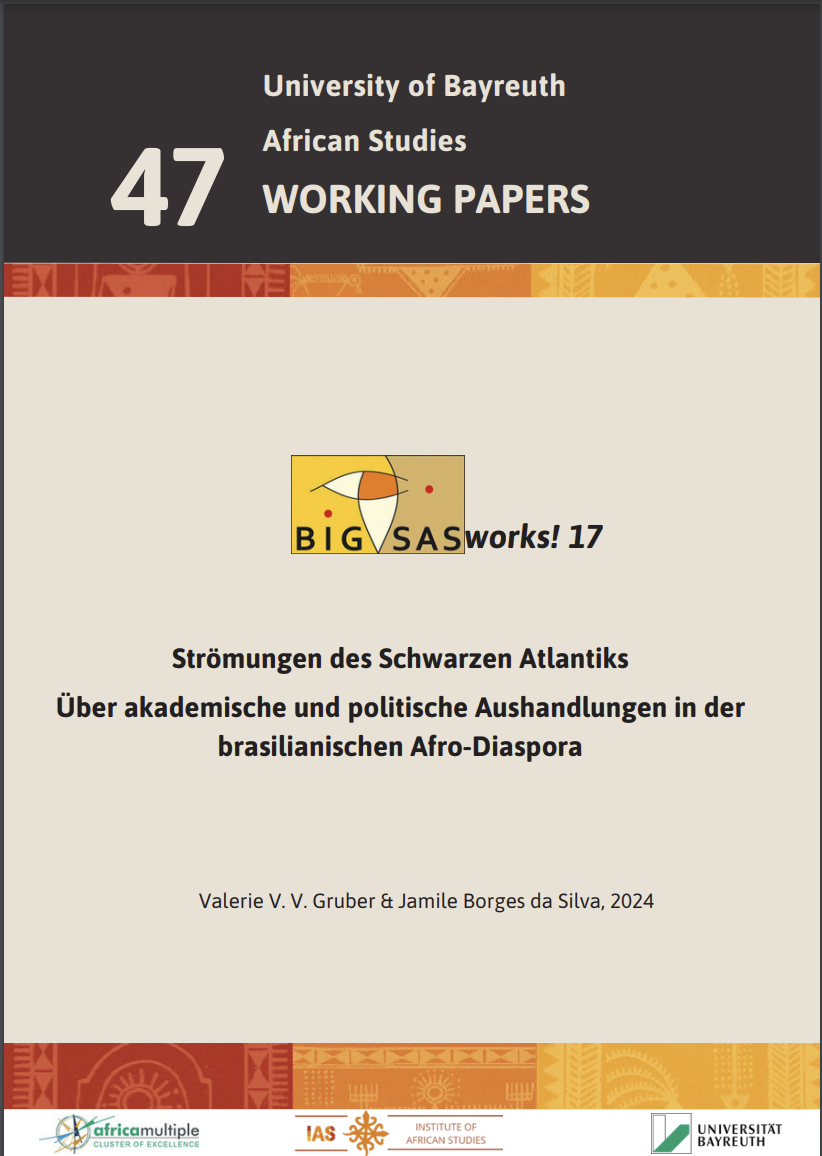
Strömungen des Schwarzen Atlantiks: Über akademische und politische Aushandlungen in der brasilianischen Afro-Diaspora
Gruber, Valerie V. V. / Silva, Jamile Borges da (2024). “Strömungen des Schwarzen Atlantiks: Über akademische und politische Aushandlungen in der brasilianischen Afro-Diaspora”, University of Bayreuth African Studies Working Papers 47, BIGSASworks! 17. Bayreuth: Institute of African Studies. 28 pp.
Over the past century, Brazil has become a laboratory to negotiate what it means to be African in the diaspora, Afro-descendant or Afro-Brazilian. The term Afro has been scrutinised by an increasing number of Brazilian and foreign researchers whose works are hardly discussed in the German context. Our essay provides a critical reflection on the field of African and Black Diaspora studies in Brazil as well as their historical, geopolitical, intellectual and socio-spatial embeddedness. Thereby, we point to several challenges: identifying as Afro-descendant in a country with countless descriptions of skin colour; negotiating dynamic identities in a society with pronounced levels of social and racial inequality; and engaging in controversial debates between university, civil society, political actors and Black movements in the nation with the largest Black population outside Africa. Discussing the experience of the Center of Afro-Oriental Studies (CEAO) at the Federal University of Bahia (UFBA) as well as its postgraduate programme POSAFRO, we map out how transdisciplinary knowledge is produced and contested on the Brazilian shores of the Black Atlantic. Apart from considering affirmative actions and South-South cooperation, this implies reflecting on the role of academia in fostering decolonial and antiracist change processes. As a whole, we strive to enhance reflexivity in the broader field of African studies and shed light on (geo)political currents and contexts that shape academic work but often remain out of sight.
- Gueswindé, Constantin Compaoré, Evéline M. F W. Savadogo Compaoré: "Agriculture and Climate Change...Hide
-
Agriculture and Climate Change: A Socio-Economic Dynamics of Climate-Smart Practices in Oubritenga Province, Burkina Faso
Gueswindé, Constantin Compaoré*, Evéline M. F W. Savadogo Compaoré, Mathieu Ouédraogo, Boundia Alexandre Thiombiano, Patrice Toé, (2024) Agriculture and Climate Change: A Socio-Economic Dynamics of Climate-Smart Practices in Oubritenga Province, Burkina Faso, International Journal of Agricultural Economics, (9) 2
- Hönke, Jana, Eric Cezne, Yifan Mia Yang: "South–South Transformations in Practice : Conclusions and Outlook"Hide
-
South–South Transformations in Practice: Conclusions and Outlook
Hönke, Jana, Eric Cezne, Yifan Mia Yang: South–South Transformations in Practice : Conclusions and Outlook. In: Jana Hönke, Eric Cezne, Yifan Mia Yang (Hrsg.): Africa's Global Infrastructures : South–South Transformations in Practice. - London : Hurst Publishers, 2024.
- Hönke, Jana and Yifan Yang: "Liminally positioned in/towards the South: Chinese relations with Africa"Hide
-
Liminally positioned in/towards the South: Chinese relations with Africa
Hönke, Jana and Yifan Yang 2024. Liminally positioned in/towards the South: Chinese relations with Africa, in Fendler, Ute. Yongkyu Chang (eds.):Asia-Africa: Multifaceted Engagement in the Contemporary World. New Delhi: Palgrave McMillan (Series: Africa’s Global Engagement), 2024. (Open Access)
- Mühleisen, Susanne: "Towards a discursive history of the Caribbean as a history of genres"Hide
-
Towards a discursive history of the Caribbean as a history of genres
Towards a discursive history of the Caribbean as a history of genres. In: Durgasingh, Ryan ; Selvon-Ramkissoon, Nicha (ed.): Caribbean Discourses : Stylistic and Critical Discourse Approaches to Language Use in the Caribbean. - Cham : Palgrave Macmillan , 2024 . - pp. 49-75
ISBN 978-3-031-45046-4 - Nignan, Bérénice Marie Merveille et al.: "Acceptabilité de l’accouchement sans douleur par les femmes de la ville ...Hide
-
Acceptabilité de l’accouchement sans douleur par les femmes de la ville de Ouagadougou
NIGNAN, Bérénice Marie Merveille, Martin LANKOANDE, Natéwindé SAWADOGO, Nazinigouba OUEDRAOGO, 2024 « Acceptabilité de l’accouchement sans douleur par les femmes de la ville de Ouagadougou » In : Sawadogo-Compaoré Éveline Sigué Moubassiré Bacyé Yisso Fidèle Rouamba-Ouédraogo Valérie, GENRE, SOCIÉTÉ ET DÉVELOPPEMENT EN AFRIQUE. En hommage au Pr BADINI/KINDA Fatouma, Paris, L’Harmattan, pp. 315-334
- Occelli M., E. Compaore, D. Brown , F. Barry , L.S. Poda , F. Traore, A. Waongo, D. Rubin, H.A. Tufan: "Ex-ante priority ...Hide
-
Ex-ante priority setting in crop breeding: Towards inclusive innovation for impact, Agricultural Systems
Occelli a M.,*1 , E. Compaore b,1 , D. Brown a , F. Barry b , L.S. Poda b , F. Traore b , A. Waongo b , D. Rubin c , H.A. Tufan (2024) Ex-ante priority setting in crop breeding: Towards inclusive innovation for impact, Agricultural Systems, 217 (2024) 103952.
- Sändig, Jan, Jana Hönke: "Challenging Chinese Mining Companies : NGO Advocacy Practices and the "Boomerang Model"Hide
-
Challenging Chinese Mining Companies : NGO Advocacy Practices and the "Boomerang Model"
Sändig, Jan, Jana Hönke: Challenging Chinese Mining Companies : NGO Advocacy Practices and the "Boomerang Model". In: Jana Hönke, Eric Cezne, Yifan Mia Yang (Hrsg.): Africa's Global Infrastructures : South–South Transformations in Practice. - London : Hurst Publishers, 2024. - S. 103-126.
- Salamata, OUEDRAOGO Boureima, Banhoro Yacouba: "Les premiers moments de la lutte contre la Covid-19 au ...Hide
-
Les premiers moments de la lutte contre la Covid-19 au Burkina Faso : analyse des initiatives publiques et des appréciations des populations
Salamata, OUEDRAOGO Boureima, Banhoro Yacouba, 2024, « Les premiers moments de la lutte contre la Covid-19 au Burkina Faso : analyse des initiatives publiques et des appréciations des populations », in Sawadogo-Compaoré Éveline et al. (eds), Genre, Sociétés et développement en Afrique - En hommage au Pr BADINI/KINDA Fatoumata, Paris, Harmattan, pp. 515- 536
- Simatei, Peter: “Africa-Asia: Literary Relationalities"Hide
-
Africa-Asia: Literary Relationalities
Simatei, Peter, 2024. “Africa-Asia: Literary Relationalities.” Ute Fendler, Yongkyu Chang (eds.): Asia-Africa: Multifaceted Engagement in the Contemporary World. New Delhi: Palgrave McMillan (Series: Africa’s Global Engagement), 2024, 65-75. (Open Access)
- Simatei, Peter: “Ways of Knowing Africa: African Literature and Shifting Imaginaries."Hide
-
Ways of Knowing Africa: African Literature and Shifting Imaginaries.
Simatei, Peter. 2024. “Ways of Knowing Africa: African Literature and Shifting Imaginaries.” In: Vierke, Clarissa and Rüdiger Seesemann (Eds). Africa*n Relations: Modalities Reflected. Bayreuth: University of Bayreuth African Studies Online (11)
- Somé, Magloire, Yacouba Banhoro: "Histoire de la Haute-Volta de 1897 à 1947"Hide
-
Histoire de la Haute-Volta de 1897 à 1947
Somé, Magloire, Yacouba Banhoro (eds). 2024. Histoire de la Haute-Volta de 1897 à 1947. Paris : Hémisphère, Maisonneuve et Larose nouvelles éditions.
- Soré, Ousséni: "Quel(s) français pour quel(s) enseignement du français au Burkina Faso ?"Hide
-
Quel(s) français pour quel(s) enseignement du français au Burkina Faso ?
Soré, Ousséni (2024). Quel(s) français pour quel(s) enseignement du français au Burkina Faso ?, In Actes du colloque international sur la thématique « perspectives multiples sur les spatialités et innovations en Afrique de l’Ouest francophone » , Djiboul, hors-série n°04,pp. 134-145.
- Stroh, Alexander, and Diana Kisakye: ''Informality and Multi-Level Judicial Appointment Processes in African ...Hide
-
Informality and Multi-Level Judicial Appointment Processes in African Regional Courts
Stroh, Alexander, and Diana Kisakye. 2024. ‘Informality and Multi-Level Judicial Appointment Processes in African Regional Courts’. In Informality and Courts: Comparative Perspectives, edited by Björn Dressel, Raul Sanchez-Urribarri, and Alexander Stroh, [forthcoming]. Edinburgh: Edinburgh University Press.
- Vierke, Clarissa: "What is the Place of Local Swahili Poetry in the Grand Indian Ocean? ...Hide
-
What is the Place of Local Swahili Poetry in the Grand Indian Ocean? Reading Ustadh Mahmoud Mau’s Poetry from Lamu from a Perspective of Dynamic Relations
Vierke Clarissa: What is the Place of Local Swahili Poetry in the Grand Indian Ocean? Reading Ustadh Mahmoud Mau’s Poetry from Lamu from a Perspective of Dynamic Relations. In: Ute Fendeler, Yongkyu Chang (Hrsg.): Asia-Africa- Multifaceted Engagement in the Contemporary World. - Singapore : Palgrave Macmillan, 2024. - S. 35-64.
- Vierke, Clarissa: "Zanzibari Worlds : a Relational Reading of Abdulrazak Gurnah’s By the Sea and Adam Shafi Adam’s ...Hide
-
Zanzibari Worlds : a Relational Reading of Abdulrazak Gurnah’s By the Sea and Adam Shafi Adam’s Vuta n’kuvute
Vierke Clarissa: Zanzibari Worlds : a Relational Reading of Abdulrazak Gurnah’s By the Sea and Adam Shafi Adam’s Vuta n’kuvute. In: Ute Fendler, Marie-Anne Kohl, Gilbert Shang Ndi, Christopher Joseph Odhiambo, Clarissa Vierke (Hrsg.): Of Worlds and Artworks : A Relational View on Artistic Practices from Africa and the Diaspora. - Leiden : Brill, 2024. - S. 108-133. doi:10.1163/9789004689756_008
- Yékú, James: "Encountering Mudi Yahaya’s Nina Fischer-Stephan’s Respectful Gaze in Lagos"Hide
-
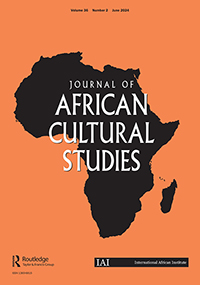
Encountering Mudi Yahaya’s Nina Fischer-Stephan’s Respectful Gaze in Lagos
Abstract
Mudi Yahaya’s film Nina Fischer-Stephan’s Respectful Gaze (2022) is a reconstruction of Nigerian history presented through a metarepresentational forcefield of images. The film is a documentary work that explores the resurgent vitality of the German photographer’s archive from the early 1960s. In the Nigerian context, this film explores how forms of historical mediality are conditioned by a multiplicity of aesthetic and creative modes that strengthen the power of moving images to document historical memory. Drawing on social media archives such as the Nigerian Nostalgia Project, a Facebook account where Fischer-Stephan’s historical photographs circulate, I examine the ways in which the film engages the critic in reading a film derived from photographic texts that have been mediated in multiple ways.
James Yékú (23 May 2024): Encountering Mudi Yahaya’s Nina Fischer-Stephan’s Respectful Gaze in Lagos, Journal of African Cultural Studies, DOI: 10.1080/13696815.2024.2320781
- Zoungrana Salamata, OUEDRAOGO Boureima, Banhoro Yacouba: "Les premiers moments de la lutte contre...Hide
-
Les premiers moments de la lutte contre la Covid-19 au Burkina Faso : analyse des initiatives publiques et des appréciations des populations
Zoungrana Salamata, OUEDRAOGO Boureima, Banhoro Yacouba, 2024, « Les premiers moments de la lutte contre la Covid-19 au Burkina Faso : analyse des initiatives publiques et des appréciations des populations », in Sawadogo-Compaoré Éveline et al. (eds), Genre, Sociétés et développement en Afrique - En hommage au Pr BADINI/KINDA Fatoumata, Paris, Harmattan, pp. 515- 536.
2024 - I
- Donko, Kamal, Martin Doevenspeck: "Frontières troublées, paix possible : réinventer la médiation dans le nord du Bénin ...Hide
-
Frontières troublées, paix possible : réinventer la médiation dans le nord du Bénin face aux défis du terrorismeAbstract
Cet article explore l'intersection de la géographie des conflits et de la médiation sociale, avec un focus particulier sur les zones frontalières du nord du Bénin, à travers une approche qualitative. Il examine comment les dynamiques foncières, les identités culturelles et les tensions ethniques interagissent dans un contexte de conflits territoriaux exacerbés par l'émergence de groupes armés et d'activités terroristes. S'appuyant sur la théorie de la transformation des conflits de Lederach, J. P. (1995), l'étude utilise des méthodes qualitatives pour analyser les défis de la médiation et évaluer l'efficacité des pratiques traditionnelles face à ces complexités. L'article propose des stratégies de médiation innovantes, basées sur des analyses qualitatives approfondies des perspectives locales et des dynamiques socioculturelles, promouvant une approche de médiation flexible et inclusive. Ces stratégies recommandent l'implication d'acteurs infra-étatiques et non étatiques, soulignant la nécessité de réinventer les pratiques de médiation pour établir une paix durable. Les orientations pratiques dérivées de l'analyse qualitative offrent des perspectives précieuses pour les médiateurs et les décideurs dans des contextes de conflit intense.
- Donko, Kamal, Martin Doevenspeck: "Impact du terrorisme sur l'éducation : fermeture d'écoles au Burkina Faso, Niger et ...Hide
-
Impact du terrorisme sur l'éducation : fermeture d'écoles au Burkina Faso, Niger et Nord Benin
Kamal Donko, Martin Doevenspeck: Impact du terrorisme sur l'éducation : fermeture d'écoles au Burkina Faso, Niger et Nord Benin. In: Zaouli : Revue Ivoirienne des Arts, des Sciences de l’Information et du Patrimoine, 7 (2024). - S. 108-125.
- Donko, Kamal, Ramanou Aboudo, Martin Doevenspeck: "L'oléoduc par le bas...Hide
-
L'oléoduc par le bas : enjeux socioéconomiques et récits locaux sur une méga infrastructure dans le nord du Bénin
Donko, Kamal ; Aboudo, Ramanou ; Doevenspeck, Martin: L'oléoduc par le bas : enjeux socioéconomiques et récits locaux sur une méga infrastructure dans le nord du Bénin. In: Suds. (2024) Issue 289 .
- Falaiye, Muyiwa: “A filosofia Africana como Grundnorm dos africanus.”Hide
-
A filosofia Africana como Grundnorm dos africanus
Falaiye, Muyiwa. 2024. “A filosofia Africana como Grundnorm dos africanus.” In Narcos Carvalho Lopes (ed.): Entrevistas Sobre Filoofia Africana. pp. 203-211.
- Fendler, Ute and Yongkyu Chang (eds.): "Asia-Africa: a Multifaceted Relation"Hide
-
Asia-Africa: a Multifaceted Relation.
Fendler, Ute and Yongkyu Chang (eds.). 2024. Asia-Africa: a Multifaceted Relation. New Delhi: Palgrave McMillan (Series: Africa’s Global Engagement), pp. 243-270.
- Fendler, Ute and Yongkyu Chang: "Introduction. In Asia-Africa: a Multifaceted Relation"Hide
-
Introduction. In Asia-Africa: a Multifaceted Relation.
Fendler, Ute and Yongkyu Chang. 2024. Introduction. In Asia-Africa: a Multifaceted Relation. New Delhi: Palgrave McMillan (Series: Africa’s Global Engagement), pp. 1-6.
- Fendler, Ute, Yongkyu Chang: "Asia-Africa- Multifaceted Engagement ...Hide
-
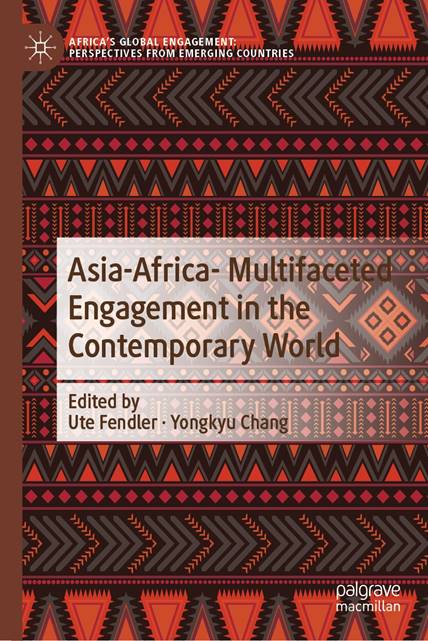
Asia-Africa- Multifaceted Engagement in the Contemporary World.
This book provides an insight into the complex entanglements between African countries and India, China, and South Korea from multidisciplinary perspectives connecting approaches from cultural, anthropological, literary, and music studies and art history. The three parts present a regional focus, namely Africa-India, Africa-South Korea, and Africa-China while the single contributions speak to each other and offer complementary insights. At the same time, the chapters also link across the regional realms as they deal with similar topics, such as travelling music genres. In part I, for Pombo material culture is the starting point to investigate the connections between the islands of the Indian Ocean and India by questioning the construction of memory. It highlights various aspects of the multilayered history of connections between Africa, the islands, and India. Part II gathers contributions that are complimentary to each other and therefore contribute to the understanding of the complex entanglements in area studies. Part III (Africa-South Korea) explores the impact of African-American arts and artists on South Korea's popular culture as well as the changing perception of artists of African descent in visual popular culture. It shows the impact of Korean content in South Africa.
- Fendler, Ute, Marie-Anne Kohl et al.: "Of Worlds and Artwork. A Relational View on Artistic..Hide
-
Of Worlds and Artwork. A Relational View on Artistic Practices from Africa and the Diaspora
Fendler, Ute, Marie-Anne Kohl, Gilbert Shang Ndi, Christopher Odhiambo Joseph and Clarissa Vierke (eds.). 2024. Of Worlds and Artwork. A Relational View on Artistic Practices from Africa and the Diaspora. Leiden: Brill.
- Fendler, Ute: “‘Quaseilhas’ (‘almost Islands’) – a performative and transmedial memory.”Hide
-
‘Quaseilhas’ (‘almost Islands’) – a performative and transmedial memory.
Fendler, Ute. 2024. “‘Quaseilhas’ (‘almost Islands’) – a performative and transmedial memory.” In Ute Fendler, Anne-Marie Kohl, Christopher Odhiambo, Gilbert Shang Ndi, and Clarissa Vierke (eds.): Of Worlds and Artworks. For a relational perspective on African and Afro-diasporic artworks. Leiden: Brill, pp. 236-259.
- Hönke, Jana, Eric Cezne and Yifan Yang (eds.): "Africa’s Global Infrastructures...Hide
-
Africa’s Global Infrastructures. South-South Transformations in Practice.
Hönke, Jana, Eric Cezne and Yifan Yang (eds.). 2024. Africa’s Global Infrastructures. South-South Transformations in Practice. African Arguments Series, Hurst Publishers.
- Mühleisen, Susanne: “Towards a discursive history of the Caribbean as a history of genres"Hide
-
Towards a discursive history of the Caribbean as a history of genres
Mühleisen, Susanne. 2024. “Towards a discursive history of the Caribbean as a history of genres.” In Caribbean Discourses: Stylistic and Critical Discourse Approaches to Language Use in the Caribbean. Cham: Palgrave Macmillan. pp. 49-75.
- Olokodana-James, Oluwatoyin: “‘Aruku-Improv,’ Playwriting and Performance Devising Dramaturgy.”Hide
-
'Aruku-Improv,’ Playwriting and Performance Devising Dramaturgy.
Olokodana-James, Oluwatoyin. 2024. “‘Aruku-Improv,’ Playwriting and Performance Devising Dramaturgy.” In Decentered Playwriting. Alternative Technique for the Stage. Caroly M. Dunn, Eric Micha Holmes, and Les Hunter (eds.). New York: Routledge.
- Ouma, Stefan: "Africapitalism"Hide
-
Africapitalism
Ouma, Stefan, 2024. Africapitalism. In: Carmody P and Murphy JT (eds) Handbook of African Economic Development: Cheltenham: Edward Elgar Publishing, pp. 542–555.
- *Verne, Julia, Nadine Marquardt, Stefan Ouma: "Planetary Futures...Hide
-
Planetary Futures
*Julia Verne / Nadine Marquardt / Stefan Ouma
Planetary Futures: Über Leben in kritischen Zeiten. In: Geographische Zeitschrift 112, 2024/2, 151–171.
DOI 10.25162/gz-2024-0009 (CC-BY-NC-ND 4.0) - Vierke, Clarissa ; Seesemann, Rüdiger ; Kroeker, Lena: "Africa*n Relations Modalities Reflected"Hide
-
Africa*n Relations Modalities Reflected
Abstract
This special issue “Africa*n Relations. Modalities Reflected” comes out of the first conference of the Cluster of Excellence Africa Multiple. Reconfiguring African Studies, which took place from 14th to 17th July 2021. Like the conference, the special issue is dedicated to the cluster’s annual theme and heuristic angle of modes of relating. In the overall research agenda of the Africa Multiple, the notion of relationality takes centerstage. With the focus on Africa not as a given but as a multiple constantly in the making, relations through which it is constituted and upated necessarily come to the fore. Our attention is drawn to processes, appearances and practices and hence to the variety of modes of coming into relation. Accordingly, next to medialities, spatialities, and temporalities, modalities is a heuristic angle in Africa Multiple meant to structure the study of relations we encounter in African lifeworlds, which can take a vast spectrum of forms, like e.g. exchange, acceptance, adaptation, convergence, dependence, hierarchization, conflict, struggle, resistance, and denial. Furthermore, modalities is fundamentally interlinked with the Africa Multiple Cluster’s key concept of reflexivity, which requires the researchers to reflect upon the relational modalities of their position and the very conditions of their knowledge production. This issue’s six contributions which approach modes of relations from a variety of perspectives and with a view on different African countries and their diasporic links, were written by scholars from a variety of disciplines, namely, sociology, geography, anthropology, religious and literary studies and philosophy. Furthermore, in line with critically reflecting upon the modalities of academic knowledge production, it also contains contributions by two artists, the French photographer Aurélien Gillier, who enters in a dialogue with the sociologist Joschka Philipps, and the Kenyan author Yvonne Ahdiambo Owuor, who critically reflects on creative forms of knowledge production on and in Africa.
2023 - IV
- Alber, Erdmute: "Afterword. Aspiring in Later Life: Movements across Time, Space, and Generations"Hide
-
Afterword: Aspiring in Later Life: Movements across Time, Space, and Generations.
Alber, Erdmute, 2023 Afterword. In: Megha Amrith, Victoria K. Sakti und Dora Sampaio (Hg.): Aspiring in Later Life: Movements across Time, Space, and Generations. New Brunswick: Rutgers University Press: 177-182.
- Alber, Erdmute: "Multiple Relations - Towards an Anthropology of Parenting"Hide
-
Multiple Relations: Towards an Anthropology of Parenting
Alber, Erdmute 2023: Multiple Relations: Towards an Anthropology of Parenting. In: Harald Meller/Johannes Krause/Wolfgang Haak/Roberto Risch (Hg.), Kinship, Sex, and Biological Relatedness. The contribution of archaeogenetics to understanding of social and biological relations. 15th Archaeological Conference of Central Germany. October 6–8, 2022 in Halle (Saale). Tagungen des Landesmuseums für Vorgeschichte Halle Bd. 28 (Halle [Saale] 2023]) 35–41.
- Alber, Erdmute, and Carlos Kölbl (eds.): “Multiplicities of (Il)literacy.”Hide
-
Multiplicities of (Il)literacy.
Alber, Erdmute, and Carlos Kölbl (eds.). 2023. “Multiplicities of (Il)literacy.” In cultura & psyche, 4(1), pp. 1-10.
- Alber, Erdmute, David Warren Sabean et al. : "Introduction: Politics of Making Kinship.”Hide
-
Introduction: Politics of Making Kinship
Alber, Erdmute, David Warren Sabean, Simon Teuscher, and Tatjana Thelen. 2023. “Introduction: Politics of Making Kinship.” In Erdmute Alber, Warren David Sabean, Simon Teuscher, and Tatjana Thelen (eds.): The Politics of Making Kinship: Historical and Anthropological Perspectives. New York; Oxford: Berghahn, pp. 1-22
- Alber, Erdmute, David Warren Sabean, Simon Teuscher, and Tatjana Thelen (eds.): "The Politics of Making Kinship"Hide
-
The Politics of Making Kinship: Historical and Anthropological Perspectives
Alber, Erdmute, David Warren Sabean, Simon Teuscher, and Tatjana Thelen (eds.). 2023. The Politics of Making Kinship: Historical and Anthropological Perspectives. New York; Oxford: Berghahn.
- Alber, Erdmute: “Entangled navigations: Intergenerational care relations in neoliberal eduscapes in Benin"Hide
-
Entangled navigations: Intergenerational care relations in neoliberal eduscapes in Benin
Alber, Erdmute. 2023. “Entangled navigations: Intergenerational care relations in neoliberal eduscapes in Benin.” In Critique of Anthropology 43, pp. 365-384.
- Alber, Erdmute: “Inventing the Extended Family in Colonial Dahomey/Benin"Hide
-
Inventing the Extended Family in Colonial Dahomey/Benin.
Alber, Erdmute. 2023. “Inventing the Extended Family in Colonial Dahomey/Benin.” In Erdmute Alber, David Warren Sabean, Simon Teuscher, and Tatjana Thelen (eds.): The Politics of Making Kinship: Historical and Anthropological Perspectives. New York; Oxford: Berghahn, pp. 296-323.
- Alber, Erdmute, Jörg Handrack, Jeannett Martin, and Ulrike Schultz (eds.): “Bildung für alle – Versprechen oder Falle?“Hide
-
Bildung für alle – Versprechen oder Falle?
Alber, Erdmute, Jörg Handrack, Jeannett Martin, and Ulrike Schultz (eds.). 2023. “Bildung für alle – Versprechen oder Falle?“ In PERIPHERIE, 43(2), pp. 224-448.
- Alber, Erdmute and Antje Daniel: "Provincialising Mannheim: What do youth in Benin and Austria have in common.Hide
-
Provincialising Mannheim: what do youth in Benin and Austria have in common
Alber, Erdmute und Antje Daniel, 2023 Provincialising Mannheim: what do youth in Benin and Austria have in common. Acta Academica 55 /1, 41-65 , https://journals.ufs.ac.za/index.php/aa/article/view/7501
- Alber, Erdmute: „Veränderungen elterlicher Verpflichtungen durch „Bildung für alle“Hide
-
„Veränderungen elterlicher Verpflichtungen durch „Bildung für alle
Alber, Erdmute. 2023. „Veränderungen elterlicher Verpflichtungen durch „Bildung für alle“: Eine Untersuchung im ländlichen Raum Nordbenins.“ In PERIPHERIE 43(2), pp. 347-377.
- Arndt, Susan, Yacouba Banhoro, Taibat Lawanson, Enocent Msindo, and Peter Simatei (eds.): "Covid-19 in Africa...Hide
-
Covid-19 in Africa
Arndt, Susan, Yacouba Banhoro, Taibat Lawanson, Enocent Msindo, and Peter Simatei (eds.). 2023. Covid-19 in Africa: Societal and Economic Implications. Palgrave Macmillan African Histories and Modernities Series.
- Batano, Godelive Kusimwa; Doevenspeck, Martin; Biningo, Nene Morisho Mwana: "Small-scale mining and child...Hide
-
Small-scale mining and child labour in Kolwezi, Democratic Republic of Congo.
Abstract
Child labour is a critical issue in artisanal and small-scale mining (ASM) in the Democratic Republic of Congo. The case of Kolwezi in Lualaba is of interest because the area is known as the capital of cobalt, a strategic mineral for the transition to a low-carbon economy. Since 2017, global demand for cobalt has been soaring and this raises the question of working conditions in the ASM. This paper attempts to provide a deeper understanding of the phenomenon of child labour in artisanal cobalt mining. The objective is to analyse the political and socio-economic drives of child labour in Kolwezi. By drawing on the current state of the literature and reports on child labour in the mines, as well as field survey, we investigate the social, political, and economic causes of child labour. Results suggest that children's involvement in the artisanal labour market is caused by poverty status, parental conceptions, income inequalities and market imperfections. The implication is that a holistic approach is required to effectively address the problem of child labour. Such an approach must consider both the situation of the child and the household where child labour occurs. The study emphasizes the importance of sensitization of parents and a holistic approach in all initiatives to eradicate child labour in ASM.
Batano, Godelive Kusimwa ; Doevenspeck, Martin ; Biningo, Nene Morisho Mwana: Small-scale mining and child labour in Kolwezi, Democratic Republic of Congo. In: Journal of African Studies and Development. Vol. 15 (2023) Issue 4 . - pp. 69-83.
- Bildung für alle – Versprechen oder Falle?Hide
-
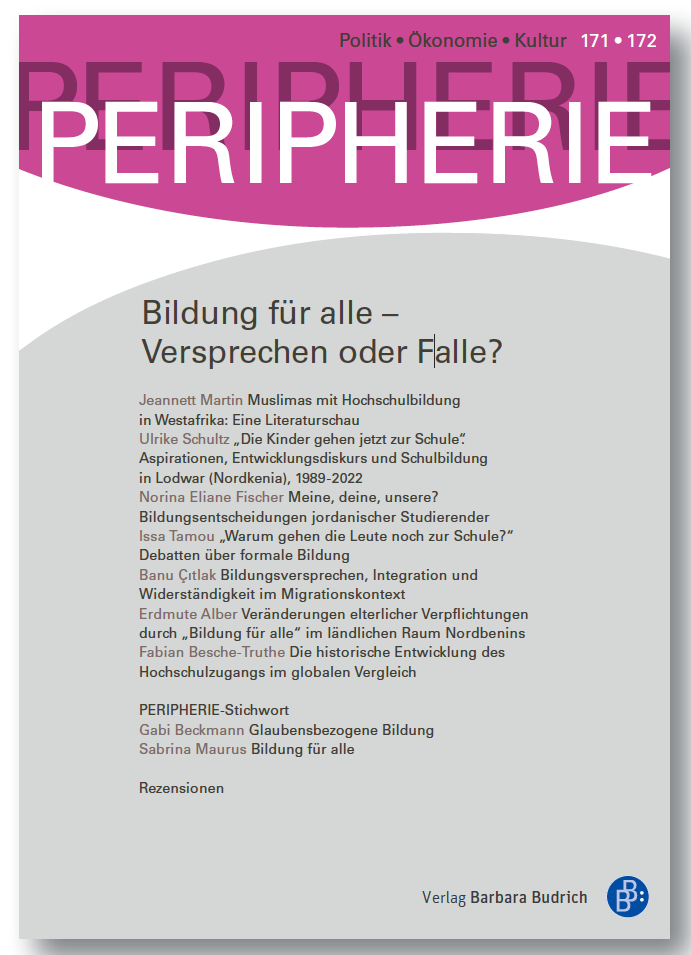
Bildung für alle – Versprechen oder Falle?
Bildung gilt als eines der entwicklungspolitischen Kernziele und wird als die zentrale Maßnahme bezeichnet, um Armut zu überwinden und Entwicklung zu ermöglichen. Sie ist daher in den Zukunftserwartungen vieler Menschen im Globalen Süden (sowie für breite Bevölkerungsschichten im Globalen Norden) fest verankert.
- Boukari, Oumarou, and Joschka Philipps: “Complooot? Theorizing about Covid-19 Conspiracies in Cote d’Ivoire.”Hide
-
Complooot? Theorizing about Covid-19 Conspiracies in Cote d’Ivoire
Boukari, Oumarou, and Joschka Philipps. 2023. “Complooot? Theorizing about Covid-19 Conspiracies in Cote d’Ivoire.” In Peter Knight and Michael Butter (eds.): Conspiracy Theories and the Coronavirus Pandemic. London: Routledge, pp. 114–127.
- Braun, Benjamin and Kai Koddenbrock: "Capital Claims: Power and Global Finance"Hide
-
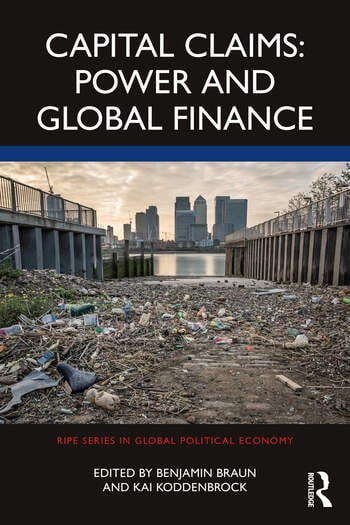
Capital Claims: Power and Global Finance
Capital Claims: Power and Global Finance analyses how global financialized capitalism operates and reproduces itself, exploring the remarkable ability of the financial sector to maintain its dominance through even the most severe economic crises.
The book defines international financialization as a process by which the number and value, the tradability, and the enforceability of cross-border financial claims increase and are successfully defended against competing social or political agendas. By focusing on financial claims, the volume develops a conceptual toolkit for the study of the political economy of global finance and the inequalities it sustains. The book brings together leading researchers whose work is geared towards opening the black box of cross-border finance. The authors suggest shifting the analytical focus from capital flows to capital claims – credit–debt relations between identifiable actors, embedded in social and political institutions, and infused with power and hierarchy. They show how financial actors wield leverage power, infrastructural power, and enforcement power, both vis-à-vis other private actors and vis-à-vis the state.
This book will be of great interest to students, teachers, and researchers of international political economy, critical political economy, and international relations, as well as those in the fields of finance, capitalism studies, activism, policymaking, and advocacy.
- Eisenhuth, Philipp, Myriel Fichtner, Britta Frede, and Rüdiger Seesemann: “Developing a Crosslingual Database in WissKI...Hide
-
Developing a Crosslingual Database in WissKI: a Transcontinental Research Collaboration
Eisenhuth, Philipp, Myriel Fichtner, Britta Frede, and Rüdiger Seesemann. 2023. “Developing a Crosslingual Database in WissKI: a Transcontinental Research Collaboration.” Modern Languages Open 39(1), pp. 1-16.
- Eleshin, Abisoye: "African Languages for African Studies: Agenda Setting"Hide
-
African Languages for African Studies: Agenda Setting.
Eleshin, Abisoye. 2023. African Languages for African Studies: Agenda Setting. A journal of the Institute of African and Diaspora Studies. University of Lagos, pp. 105-124.
- Alber, Erdmute: "The Linking of Vital Conjunctures: Negotiations...Hide
-
The Linking of Vital Conjunctures: Negotiations over Girls’ Futures
Introduction:
We are living in a transitional phase of a changing society, since for a rural girl, once you are in town, they do not want to return to the village. So, this is always creating family conflict” (Dans la mutation de societe, nous vivons dans une etappe transitoire, parce-que une fille de village, si vous etez en ville une fois, elles ne veulent pas retourner au village. Alors il se cre toujours un mal entent dans la famille [February 3, 2016]).
This lament was made by Woru Salifou¹, a retired banker, when we talked about how he and his wife Nuria were living as a childless, social climbing urban couple in Cotonou, the economic centre of the Republic of Benin. Living an urban uppermiddle- class lifestyle, both husband and wife were at the same time connected to their rural kin. This connection manifested in, among other things, the fact that they were hosting several relatives born in the same rural area in northern Benin in their large three-story house. One of these relatives was Nuria’s niece Salimatou, a young woman of about twenty-six years old...
- Fayemi, Ademola Kazeem, Akinmayowa Akin-Otiko: "African Studies...Hide
-
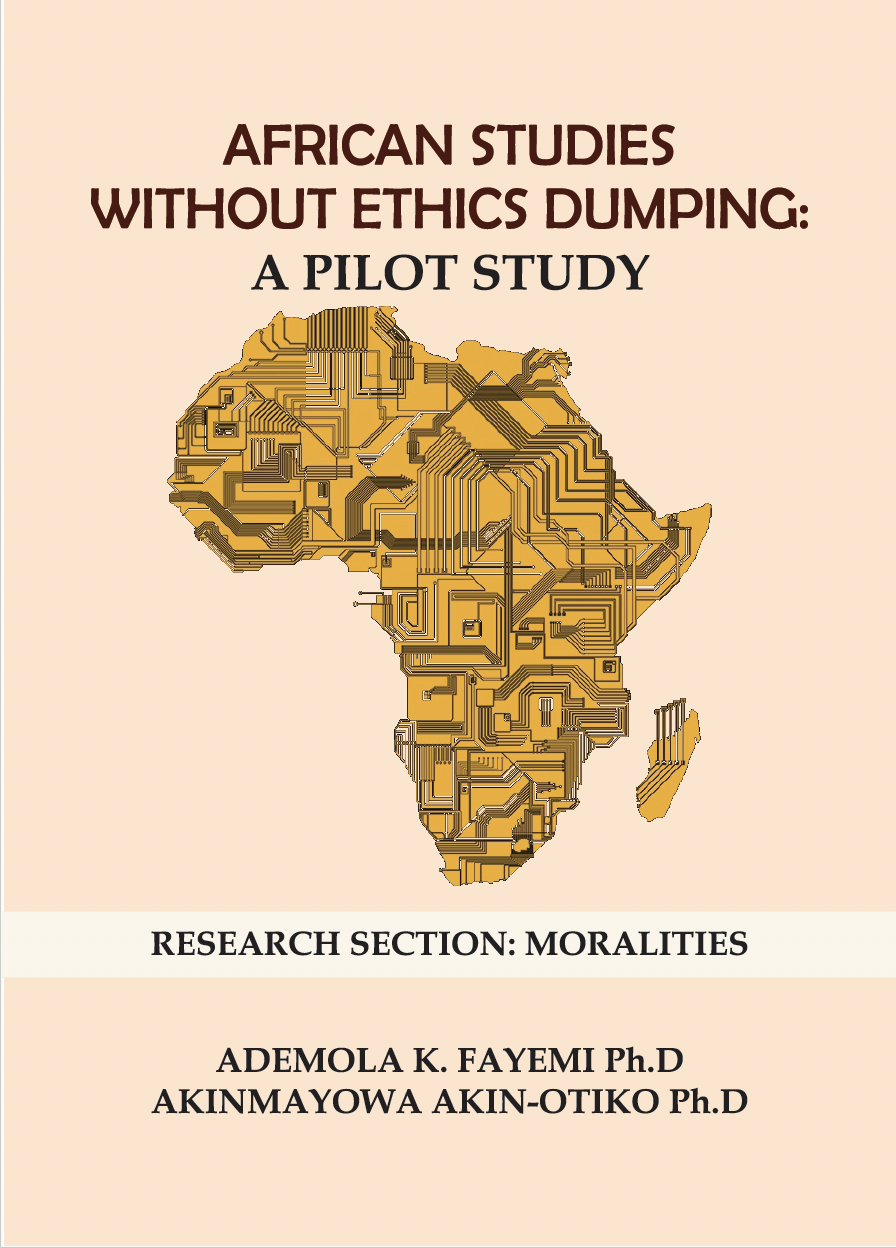
African Studies without Ethics Dumping
Fayemi, Ademola Kazeem & Akinmayowa Akin-Otiko. 2023. African Studies without Ethics Dumping.
- Fendler, Ute: “Legacies of Creolisation: Utopian Moments in Ethics of Living Together.”Hide
-
Legacies of Creolisation: Utopian Moments in Ethics of Living Together
Fendler, Ute. 2023. “Legacies of Creolisation: Utopian Moments in Ethics of Living Together.” In Shihan de Silva and Beheroze Shroff: Legacies of Trade and Empire. Breaking Silences. Cambridge: Cambridge Scholars Publishing, pp. 2-19.
- Fendler, Ute. 2023: “Polyrhythmic Aesthetics: listening to Raharimanana’s poems"Hide
-
Polyrhythmic Aesthetics: listening to Raharimanana’s poems
Fendler, Ute. 2023. “Polyrhythmic Aesthetics: listening to Raharimanana’s poems.” In Patrick Oloko, Michaela Ott, Peter Simatei, and Clarissa Vierke (eds.): Decolonial Aesthetics II. Modes of Relating. Stuttgart: Metzler, pp. 177-187.
- Glasman, Joel, and Brendan Lawson (eds.): "Humanitarian Numbers"Hide
-
Humanitarian Numbers
Glasman, Joel, and Brendan Lawson (eds.). 2023. Humanitarian Numbers. Special issue of the Journal of Humanitarian Affairs 5(1).
- Glasman, Joel: "Les humanités humanitaires. Petit manuel d’auto-défense à l’usage des volontaires"Hide
-
Les humanités humanitaires.
Glasman, Joel. 2023. Les humanités humanitaires. Petit manuel d’auto-défense à l’usage des volontaires. Paris: Les Belles Lettres.
- Hoelscher, Kristian, Nick Dorward, Sean Fox, et al. : "Urbanization and political change in Africa"Hide
-
Urbanization and political change in Africa
Hoelscher, Kristian, Nick Dorward, Sean Fox, Taibat Lawanson, Jeffrey W. Paller, and Melanie L. Phillips. 2023. “Urbanization and political change in Africa.” In African Affairs 122(488), pp. 353-376.
- Hönke, Jana, Eric Cezne, and Yifan Mia Yang (eds.): "Africa's Global Infrastructures...Hide
-
Africa's Global Infrastructures: South–South Transformations in Practice.
Hönke, Jana, Eric Cezne, and Yifan Mia Yang (eds.). 2024. Africa's Global Infrastructures: South–South Transformations in Practice. African Arguments Series, London: Hurst Publishers.
- Hönke, Jana, Eric Cezne, and Yifan Mia Yang: “Infrastructure Globalities: Emerging Practices at the African Frontier"Hide
-
Infrastructure Globalities: Emerging Practices at the African Frontier.
Hönke, Jana, Eric Cezne, and Yifan Mia Yang. 2024. “Infrastructure Globalities: Emerging Practices at the African Frontier.” pp. 1-28.
- Hönke, Jana, Eric Cezne, and Yifan Mia Yang “Liminally positioned in the South: Reinterpreting Brazilian and ...Hide
-
Liminally positioned in the South: Reinterpreting Brazilian and Chinese relations with Africa.
Hönke, Jana, Eric Cezne, and Yifan Mia Yang. 2023. “Liminally positioned in the South: Reinterpreting Brazilian and Chinese relations with Africa.” In Global Society 37, pp. 97-224.
- Hönke, Jana, Eric Cezne, and Yifan Mia Yang: “South–South Transformations in Practice: Conclusions and Outlook"Hide
-
South–South Transformations in Practice: Conclusions and Outlook.
Hönke, Jana, Eric Cezne, and Yifan Mia Yang. 2024. “South–South Transformations in Practice: Conclusions and Outlook.” In Jana Hönke, Eric Cezne, and Yifan Mia Yang (eds.): Africa's Global Infrastructures: South-South Transformations in Practice. London: Hurst Publishers, pp.79-102.
- Hönke, Jana, Jan Sändig: “Challenging Chinese Mining Companies: NGO Advocacy Practices and the ‘Boomerang Model'"Hide
-
Challenging Chinese Mining Companies: NGO Advocacy Practices and the ‘Boomerang Model’
Hönke, Jana, Jan Sändig. 2024. “Challenging Chinese Mining Companies: NGO Advocacy Practices and the ‘Boomerang Model’.” In: Jana Hönke, Eric Cezne, and Yifan Mia Yang (eds.): Africa's Global Infrastructures: South–South Transformations in Practice. London: Hurst Publishers, pp. 103-126.
- Isaac Abotebuno Akolgo: "History Repeating Itself? Ghana, Financial Dependency and the Political Economy of...Hide
-
History Repeating Itself? Ghana, Financial Dependency and the Political Economy of Africa's Debt
Recent accounts of the re-emergence of debt distress in Africa, while offering significant insights, fail to provide the historical political-economic context within which African indebtedness is set. On the surface, spending induced by the COVID-19 pandemic, economic fallout from the Russia–Ukraine war, and repeated examples of fiscal indiscipline by African governments appear to be the causes of the current wave of debt crises. Beyond these factors, however, this article argues that the present indebtedness, like previous episodes, is rooted in the economic and financial subordination of African economies. Specifically, the article places Ghana's extensive debt within the country's post-independence political-economic context, and thus traces the structural factors and external constraints that underlie its economic vulnerability and financial dependence. These include the collapse of developmentalism in the 1970s, the Structural Adjustment Programmes of the 1980s, and an exploitative transnational lending system dominated by Western commercial creditors. Internally, recent fiscal mistakes by the government, within its limited policy space, have exacerbated Ghana's indebtedness. The Ghanaian experience shows that unconditional debt cancellation, widely called for, is a necessary but insufficient measure to address the recurring cycles of indebtedness. Debt cancellation should be followed by broader economic and financial reforms, globally and domestically.
Link to publication - Joël Glasman: "Petit manuel d'auto-défense à l'usage des volontaires"Hide
-
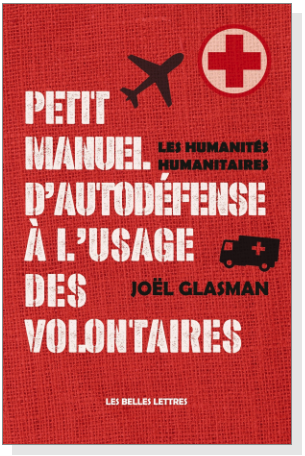
Petit manuel d'auto-défense à l'usage des volontaires
L’action humanitaire implique des choix difficiles. Doit-on accepter les conditions d’accès imposées par les djihadistes ? Faut-il quitter les camps de réfugiés lorsque l’aide y est détournée ? Peut-on accepter les dons de n’importe quelle entreprise privée ? Les organisations humanitaires doivent-elles faire de la lutte contre le réchauffement climatique leur priorité ?
Ce premier manuel d’humanités humanitaires offre un temps de réflexion. De l’histoire de l’action humanitaire à l’anthropologie de la santé mondiale en passant par la sociologie des massacres, ce manuel propose un aperçu des recherches les plus utiles pour penser en situation d’urgence. Une introduction aux sciences humaines et sociales pour celles et ceux qui aident les autres à sauver leur vie et leur dignité.
- Kaime, Thokozani: “Legitimacy, Public International Law and Intractable Problems."Hide
-
Legitimacy, Public International Law and Intractable Problems.
Kaime, Thokozani. 2023. “Legitimacy, Public International Law and Intractable Problems.” In Zeitschrift für ausländisches öffentliches Recht und Völkerrecht 83(3), pp. 399-413.
- Lawanson, Taibat and Gareth Millington: “The territorial temporalities of urban religion...Hide
-
The territorial temporalities of urban religion: Pentecostalism, neighbourhood change and planning control in Lagos, Nigeria.
Lawanson, Taibat and Gareth Millington. 2023. “The territorial temporalities of urban religion: Pentecostalism, neighbourhood change and planning control in Lagos, Nigeria.” In David Garbin, Simon Coleman and Gareth Millington (eds.): Ideologies and Infrastructures of Religious Urbanization in Africa: Remaking the City. London: Bloomsbury, pp. 107-128.
- Lawanson, Taibat, Oluwafemi Olajide and Damilola Odekunle. “Urban Governance and COVID-19 response in Nigeria...Hide
-
Urban Governance and COVID-19 response in Nigeria: Who is left behind?
Lawanson, Taibat, Oluwafemi Olajide and Damilola Odekunle. 2023. “Urban Governance and COVID-19 response in Nigeria: Who is left behind?” In Susan Arndt, Yacouba Banhoro, Taibat Lawanson, Enocent Msindo, and Peter Simatei (eds.): Covid-19 in Africa: Societal and Economic Implications. Palgrave Macmillan, pp. 81-117.
- Lee, Jia Hui: “Colonial rodent control in Tanganyika and the application of ecological frameworks.”Hide
-
Colonial rodent control in Tanganyika and the application of ecological frameworks.
Lee, Jia Hui. 2023. “Colonial rodent control in Tanganyika and the application of ecological frameworks.” In Annals of Science 80(2), pp. 83-111.
- Lee, Jia Hui: “Rezension von: Hill, Melvin G. (Hrsg.): Black Bodies and Transhuman Realities...Hide
-
Black Bodies and Transhuman Realities : Scientifically Modifying the Black Body in Posthuman Literature and Culture
Lee, Jia Hui. 2023. “Rezension von: Hill, Melvin G. (Hrsg.): Black Bodies and Transhuman Realities : Scientifically Modifying the Black Body in Posthuman Literature and Culture. Lanham, Maryland, 2019.” In African Studies Review 66(1), pp. 223-225.
- Lee, Jia Hui: “Lee on Nyabola, “Strange and Difficult Times: Notes on a Global Pandemic’Hide
-
Lee on Nyabola, “Strange and Difficult Times: Notes on a Global Pandemic’
Lee, Jia Hui. 2022. “Lee on Nyabola, “Strange and Difficult Times: Notes on a Global Pandemic’. (Rezension von: Nyabola, Nanjala: Strange and Difficult Times : Notes on a Global Pandemic. London, 2022).” In H-Net Network on science, medicine and technology.
- Li, Qirui, Cyrus Samimi: “Assessing Human Mobility and Its Climatic and Socioeconomic Factors for Sustainable ...Hide
-
Assessing Human Mobility and Its Climatic and Socioeconomic Factors for Sustainable Development in Sub-Saharan Africa.
Li, Qirui, Cyrus Samimi. 2023. “Assessing Human Mobility and Its Climatic and Socioeconomic Factors for Sustainable Development in Sub-Saharan Africa.” Sustainability 15(15). https://doi.org/10.3390/su151511661.
- Matthews, Sally: “Constructing Knowledge about Africa in a South African University Classroom: Living Creatively with ...Hide
-
Constructing Knowledge about Africa in a South African University Classroom: Living Creatively with the Colonial Library.
Matthews, Sally. 2023. “Constructing Knowledge about Africa in a South African University Classroom: Living Creatively with the Colonial Library.” In Nathan Andrews and Erenest Khalema (eds.) Decolonizing African Studies Pedagogies: Knowledge Production, Epistemic Imperialism and Black Agency. London: Palgrave Macmillan, pp. 99-120.
- Michael Steppat, Mine Krause and Yan Sun: "Honor, Face, and Violence...Hide
-
Honor, Face, and Violence: Cross-Cultural Literary Representations of Honor Cultures and Face Cultures
(2020) Honor, Face, and Violence: Cross-Cultural Literary Representations of Honor Cultures and Face Cultures. Cross-Cultural Communication Vol. 34. Authors (not editors!): Michael Steppat, with Mine Krause and Yan Sun. Berlin: Peter Lang.
- Michael Steppat: "Nation vs. world? Global imprints on Shakespeare and the orientation of world literature"Hide
-
Nation vs. world? Global imprints on Shakespeare and the orientation of world literature
Steppat, Michael. "Nation vs. World: Global Imprints on Shakespeare." Neohelicon, 3 (2023).
William Shakespeare is said to be uniquely omnipresent in the world’s literature, yet world literature concepts only devote marginal attention to him, so a conceptual change of direction is necessary for an understanding of his peculiar position. Whereas reception history has long highlighted the nation as the main critical framework, transcultural inquiries are now (re)discovering submerged imprints from regions such as Southwest Asia and West Africa on the initial formation of Shakespeare’s texts. These enable a reorientation in theorizing world literature, to grasp the nature of his achievements and to apply this new direction to other authors.
Link to publication - Njovane, Thando: “Colonial monuments, postcolonial selves: History, trauma and silence in Yvonne Adhiambo ...Hide
-
Colonial monuments, postcolonial selves: History, trauma and silence in Yvonne Adhiambo Owuor’s Dust.
Njovane, Thando. 2023. “Colonial monuments, postcolonial selves: History, trauma and silence in Yvonne Adhiambo Owuor’s Dust.” In The Journal of Commonwealth Literature, 58(1), pp. 169-182.
- Odhiambo, C. J.: “Aesthetics of Participation in Film for Community Development: Watatu.”Hide
-
Aesthetics of Participation in Film for Community Development: Watatu.
Odhiambo, C. J. 2023. “Aesthetics of Participation in Film for Community Development: Watatu.” In: Patrick Oloko, Micheala Ort, Peter Simatei and Clarissa Vierke (eds.): Decolonial Aesthetics II. Modes of Relating. Stuttgart: Metzler, pp. 119-124.
- Olajide, Oluwafemi and Taibat Lawanson: “Are Social Movements Achieving the Right to Adequate Housing in ...Hide
-
Are Social Movements Achieving the Right to Adequate Housing in Lagos, Nigeria?”
Olajide, Oluwafemi and Taibat Lawanson. 2023. “Are Social Movements Achieving the Right to Adequate Housing in Lagos, Nigeria?” In Margot Rubin, Sarah Charlton, Neil Klug (eds): Housing in African Cities. Springer, Cham, pp. 85-103. https://doi.org/10.1007/978-3-031-37408-1_5.
- Olanrewaju. Samson O., Peter Fadeyi, and Taibat Lawanson. 2023. “Distributional Analysis and Access to Fresh fruits ...Hide
-
Distributional Analysis and Access to Fresh fruits and vegetable shops in Residential neighbourhoods of Birnin Kebbi Metropolis, Nigeria: Implications for informal land use planning.
Olanrewaju. Samson O., Peter Fadeyi, and Taibat Lawanson. 2023. “Distributional Analysis and Access to Fresh fruits and vegetable shops in Residential neighbourhoods of Birnin Kebbi Metropolis, Nigeria: Implications for informal land use planning.” Aakriti Grover, Anju Singh, and R. B. Singh (eds.): Sustainable Health through Food, Nutrition and Lifestyle. Singapore: Springer Nature, pp. 259-271.
- Oloko, Patrick, Michaela Ott, Peter Simatei and Clarissa Vierke (eds.): "Decolonial Aesthetics II. Modes of Relating.Hide
-
Decolonial Aesthetics II. Modes of Relating.
Oloko, Patrick, Michaela Ott, Peter Simatei and Clarissa Vierke (eds.). 2023. Decolonial Aesthetics II. Modes of Relating. Stuttgart: Metzler, pp. 163-175.
- Oloko, Patrick: “Singing the Biography: Media Mesh and Aesthetic Reconstitution in an Ethno-Musical Life Narrative.”Hide
-
Singing the Biography: Media Mesh and Aesthetic Reconstitution in an Ethno-Musical Life Narrative.
Oloko, Patrick. 2023. “Singing the Biography: Media Mesh and Aesthetic Reconstitution in an Ethno-Musical Life Narrative.” In Patrick Oloko, Micheala Ort, Peter Simatei and Clarissa Vierke (eds.): Decolonial Aesthetics II. Modes of Relating. Stuttgart: Metzler.
- Onwudinjo, A. and A. Okeregbe: “Migrating Africans and the Brickwall of European Borders: A Cosmopolitanist Evaluation...Hide
-
Migrating Africans and the Brickwall of European Borders: A Cosmopolitanist Evaluation of Hardin’s Lifeboat Ethics
Onwudinjo, A. and A. Okeregbe. 2023. “Migrating Africans and the Brickwall of European Borders: A Cosmopolitanist Evaluation of Hardin’s Lifeboat Ethics” In Pauline Aweto, Franesco Carchedi, and Akinyinka Akinyoade (eds.): Human Trafficking in Nigeria 1960-2020: Pattern, People, Purpose and Places. African Studies Collection, Vol. 82, African Studies Centre, Universiteit Leiden, pp. 251-269.
- Rettova, Alena: “Experience and text: Towards an African-language phenomenology.”Hide
-
Experience and text: Towards an African-language phenomenology.
Rettova, Alena. 2023. “Experience and text: Towards an African-language phenomenology.” In Abraham Olivier, M. John Lamola, and Justin Sands (eds.): Phenomenology in an African Context: Contributions and Challenges. Albany: SUNY Press, pp. 321-338.
- Samimi, Cyrus: “Environmental Change: Populism, Lobbyism, and Injustice."Hide
-
Environmental Change: Populism, Lobbyism, and Injustice.
Samimi, Cyrus. 2023. “Environmental Change: Populism, Lobbyism, and Injustice.” In Jamile Borges da Silva, Fábio Baqueiro Figueiredo, and Patricia Godinho Gomes (eds.): A new Age of Extremes? Anti-political Politics and Identity Remaking in the early 21st Century. University of Bayreuth African Studies Online, pp. 147-177.
- Sansone, Livio: “Eduardo Mondlane: social scientist, cosmopolitan and nationalist.”Hide
-
Eduardo Mondlane: social scientist, cosmopolitan and nationalist.
Sansone, Livio. 2023. “Eduardo Mondlane: social scientist, cosmopolitan and nationalist.” In Oxford Research Encyclopedia of African Studies.
- Simatei, Peter: “East African Asian literature and the emergence of Diasporic Aesthetics.”Hide
-
East African Asian literature and the emergence of Diasporic Aesthetics.
Simatei, Peter. 2023. “East African Asian literature and the emergence of Diasporic Aesthetics.” In Patrick Oloko, Micheala Ort, Peter Simatei and Clarissa Vierke (eds.): Decolonial Aesthetics II. Modes of Relating. Stuttgart: Metzler, pp. 102-113.
- Stein, Jonas, Dominik Ott, Jonas Nüßlein et al.: "Nisq-ready community detection based on separation-node identification."Hide
-
Nisq-ready community detection based on separation-node identification
Stein, Jonas, Dominik Ott, Jonas Nüßlein, David Bucher, Mirco Schoenfeld, and Sebastian Feld. 2023. “Nisq-ready community detection based on separation-node identification.” Mathematics, 11(15), pp. 1–11.
- Tamou, Issa: „Warum gehen die Leute noch zur Schule? Debatten über formale Bildung als Ausdruck sich ...Hide
-
Warum gehen die Leute noch zur Schule? Debatten über formale Bildung als Ausdruck sich verändernder Beschäftigungslandschaften im postkolonialen Nordbenin.
Tamou, Issa. 2023. „Warum gehen die Leute noch zur Schule? Debatten über formale Bildung als Ausdruck sich verändernder Beschäftigungslandschaften im postkolonialen Nordbenin.“ Peripherie 43(2), pp. 307-326.
- Vierke, Clarissa: “‘The Sea Cannot Be Spoken.’ Thinking about Aesthetic Relations, the Poetics of Language(s) and...Hide
-
‘The Sea Cannot Be Spoken.’ Thinking about Aesthetic Relations, the Poetics of Language(s) and Place through Yvonne Owuor’s The Dragonfly Sea.
Vierke, Clarissa. 2023. “‘The Sea Cannot Be Spoken.’ Thinking about Aesthetic Relations, the Poetics of Language(s) and Place through Yvonne Owuor’s The Dragonfly Sea.” In Patrick Oloko, Micheala Ort, Peter Simatei and Clarissa Vierke (eds.): Decolonial Aesthetics II. Modes of Relating. Stuttgart: Metzler, pp. 189-202.
2023 - III
- Akolgo, Isaac Abotebuno: "Ghana's Debt Crisis and the Political Economy...Hide
-
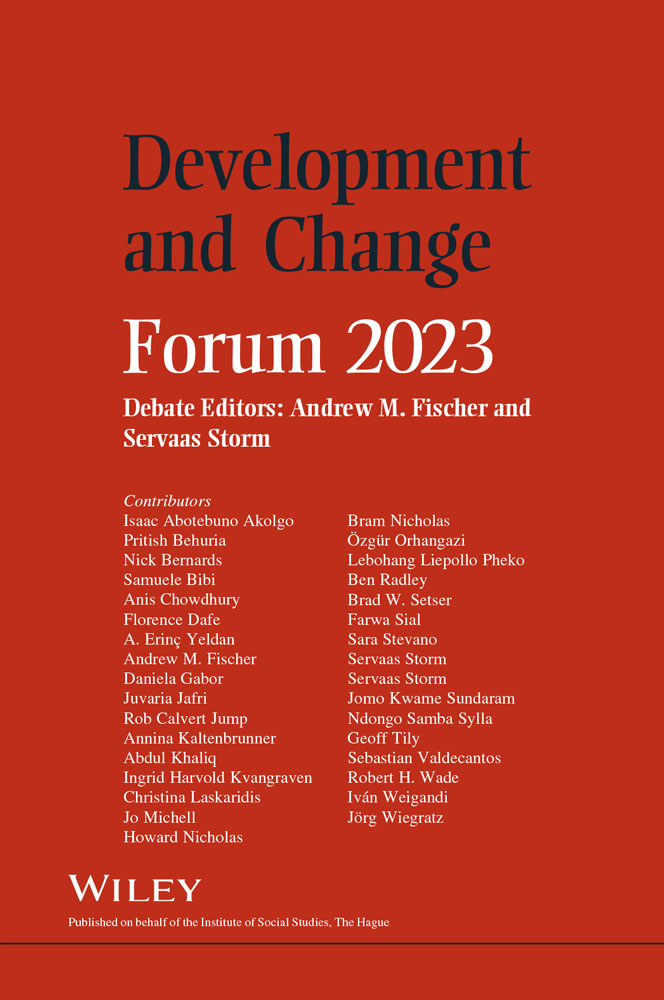
Ghana's Debt Crisis and the Political Economy of Financial Dependence in Africa: History Repeating Itself?
Recent accounts of the re-emergence of debt distress in Africa, while offering significant insights, fail to provide the historical political-economic context within which African indebtedness is set. On the surface, spending induced by the COVID-19 pandemic, economic fallout from the Russia–Ukraine war, and repeated examples of fiscal indiscipline by African governments appear to be the causes of the current wave of debt crises. Beyond these factors, however, this article argues that the present indebtedness, like previous episodes, is rooted in the economic and financial subordination of African economies. Specifically, the article places Ghana's extensive debt within the country's post-independence political-economic context, and thus traces the structural factors and external constraints that underlie its economic vulnerability and financial dependence. These include the collapse of developmentalism in the 1970s, the Structural Adjustment Programmes of the 1980s, and an exploitative transnational lending system dominated by Western commercial creditors. Internally, recent fiscal mistakes by the government, within its limited policy space, have exacerbated Ghana's indebtedness. The Ghanaian experience shows that unconditional debt cancellation, widely called for, is a necessary but insufficient measure to address the recurring cycles of indebtedness. Debt cancellation should be followed by broader economic and financial reforms, globally and domestically.
- Akolgo, Isaac Abotebuno: "On the contradictions of Africa’s fintech boom: evidence from Ghana"Hide
-
On the contradictions of Africa’s fintech boom: evidence from Ghana
Since the pioneering role of Kenya’s mobile money service – M-PESA, a consortium of international development agencies, philanthropists, academics, tech corporations and governments – have led an optimistic account of a poverty-eradicating, prosperity-spreading power of financial technology (fintech) in the global South. In contrast, a growing critical IPE literature has demonstrated that the optimistic accounts are broad-brush and misleading. Drawing from recent theorization on digital financialisation and Marxian conceptualization of capital accumulation, this article shifts the focus of the Kenya-centered critical response to Ghana, the second largest mobile money market in Africa. Relying on quantitative data from the Bank of Ghana, and qualitative data from 42 semi-structured interviews, the article provides evidence to show that the mobile money boom in Ghana is underpinned by (1) customer indebtedness from digital microloans, (2) high transaction costs, (3) excessive taxation, and (4) a prevalence of dormant accounts. Collectively, the findings confirm the wider critical literature suggesting that, far from ending poverty and inspiring prosperity, the fintech-financial-inclusion agenda in Africa is opening new frontiers for a sustained and intensified capitalist exploitation of working-class labor in the continent.
- Coburger, Carla: "When Unification Creates Hierarchies or, The Deadly Life of Currency Unions"Hide
-
When Unification Creates Hierarchies or, The Deadly Life of Currency Unions
The picture of holding the same money in our hands across borders has time and again served as a symbol of unity, while its divisive potential often disappears behind a veil of hope. Real monetary solidarity—the necessary flip side of Pan-African trade and development—requires more than a simplistic plaster of neoliberal currency unions. The time is now to counter the US dollar dominance, and discussions of South-South monetary solidarity are many—from the Pan-African Payment and Settlement System (PAPSS), the West African eco, the East African Monetary Union (EAMU), to a potential sur in Latin America and a move away from the petrodollar system. This contribution outlines a continuum of monetary unification systems and stresses the fundamental nature of political commitment to solidarity across monetary, productive, social, and political frontiers in order to achieve monetary unification as a stepping-stone to Pan-African unity.
- Donko, Kamal, Martin Doevenspeck and Uli Beisel: "‘A experiência dos Estudos (de área) Africanos:...Hide
-
A experiência dos Estudos (de área) Africanos: uma história intelectual
Donko, Kamal, Martin Doevenspeck and Uli Beisel. 2023. ‘A experiência dos Estudos (de área) Africanos: uma história intelectual.’ Afro-Ásia, 68 (December), 214–51. https://doi.org/10.9771/aa.v0i68.52061.
- Donko, Kamal; Doevenspeck, Martin; Nassi, Karl Martial; Imorou, Abou-Bakari: "Contrôle des migrations ...Hide
-
Contrôle des migrations et dynamiques transfrontalières au Sahel : le cas de Kantchari/Makalondi (Burkina-Faso/Niger)
Donko, Kamal; Doevenspeck, Martin; Nassi, Karl Martial; Imorou, Abou-Bakari (2023): Contrôle des migrations et dynamiques transfrontalières au Sahel : le cas de Kantchari/Makalondi (Burkina-Faso/Niger). Publications LASMO. DEZAN 11.1.: 86-113.
- Gruber, Valerie V. V. / Ndi, Gilbert Shang, dirs: '“Embarque”'Hide
-
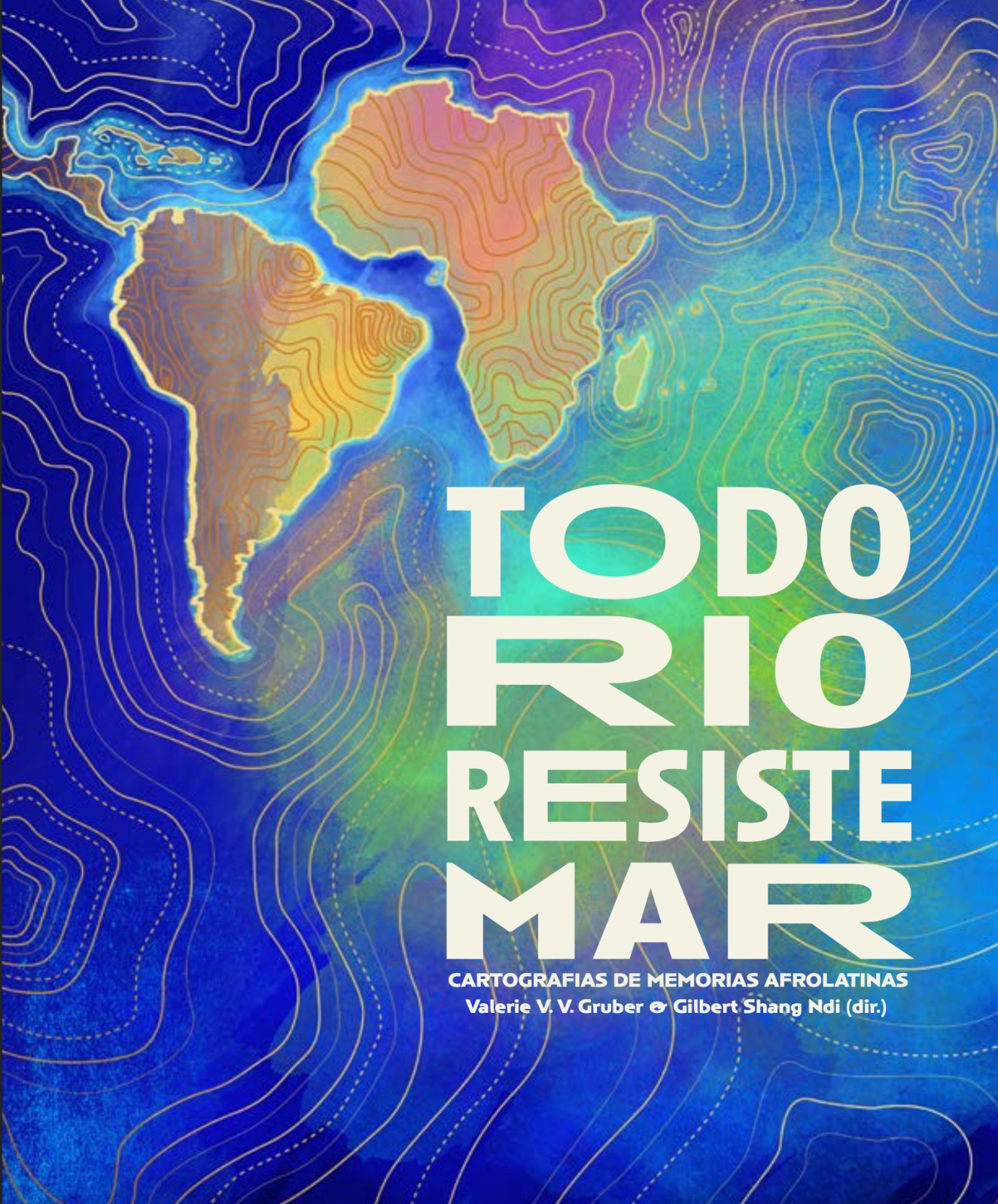
"Embarque"
Gruber, Valerie V. V. / Ndi, Gilbert Shang (2023). “Embarque”, in: Todo Rio Resiste Mar: Cartografias de Memorias Afrolatinas, dirs. Valerie V. V. Gruber / Gilbert Shang Ndi. Conceição da Feira, Bahia: Andarilha Edições, 12-19.
Los invitamos a embarcar en un viaje poético-performativo por corrientes afrolatinas, guiado por artistas jóvenes de Colombia y Brasil. Este libro multimedia surge de un proyecto de intercambio que reúne a miembros y líderes afrodescendientes de la Corporación Cultural Candilé de Cartagena de Indias y la red REPROTAI (Rede de Protagonistas em Ação de Itapagipe) de Salvador de Bahía a través de un proceso de arte-educación presencial y virtual realizado a lo largo de cuatro años. El intercambio cultural se inspira en el método de Investigación-Acción Participativa propuesto por el sociólogo colombiano Orlando Fals Borda, diseñado para contribuir a la (re-)construcción de conocimientos marginados, silenciados e invisibilizados por los discursos predominantes en el campo académico, artístico, político y la sociedad civil. Esta iniciativa establece un diálogo transdisciplinario entre saberes, memorias y prácticas creativas que permite vislumbrar múltiples perspectivas sobre los espacios sociales y morales en la diáspora africana, más específicamente en dos antiguos puertos de la trata transatlántica de africanos esclavizados. Ambas ciudades son – más allá de lugares traumáticos – espacios prolíficos de resistencia, reinvención, superación y transformación.
- Gruber, Valerie V. V. / Ndi, Gilbert Shang / Banguero Velasco, Rigoberto “Towards Transcultural Self-writing: Mapping ...Hide
-
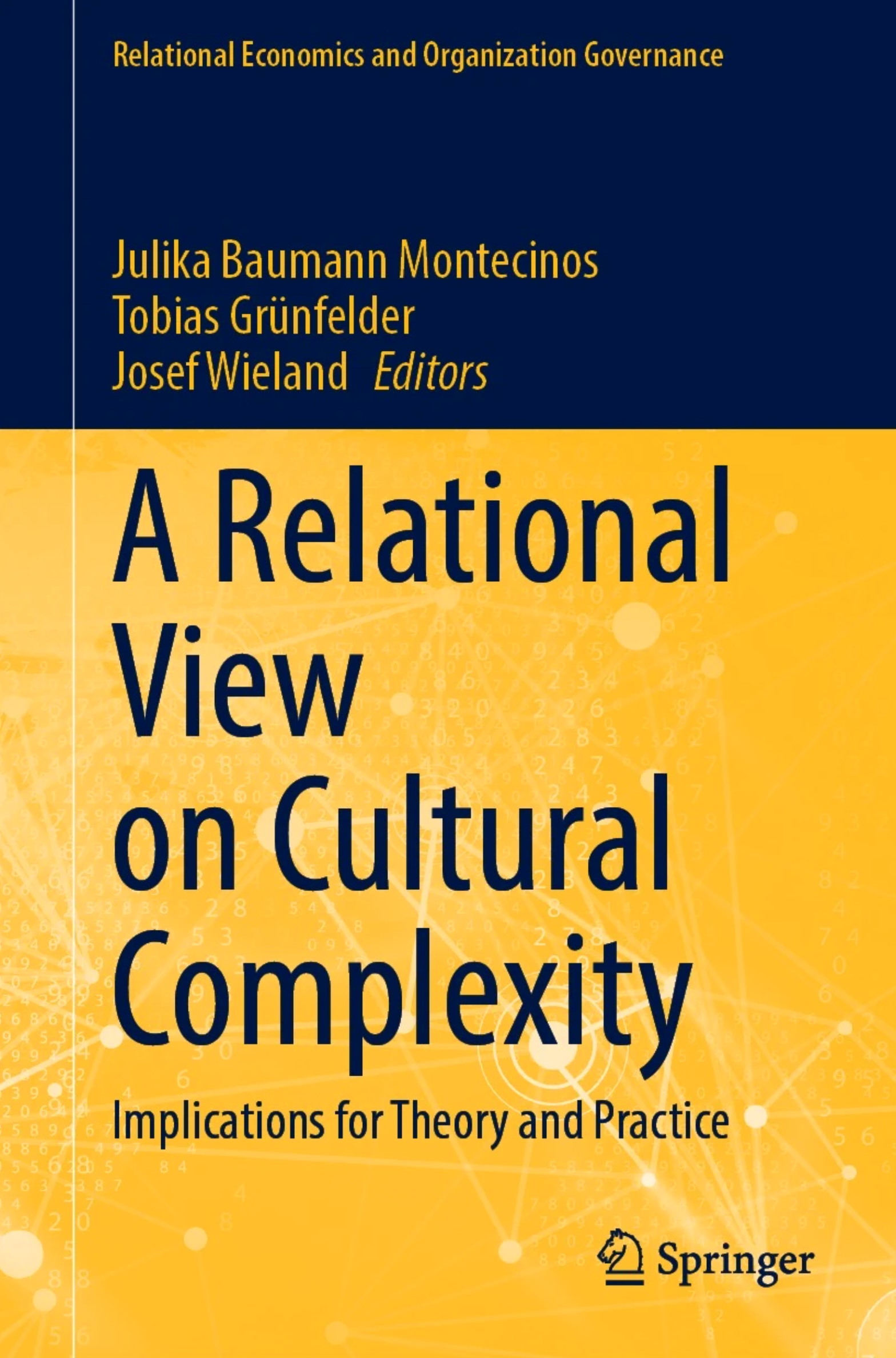
Towards Transcultural Self-writing: Mapping the Struggles of Minoritised Cultures in Colombia
Gruber, Valerie V. V. / Ndi, Gilbert Shang / Banguero Velasco, Rigoberto (2023): “Towards Transcultural Self-writing: Mapping the Struggles of Minoritised Cultures in Colombia”, in: A Relational View on Cultural Complexity: Implications for Theory and Practice, eds. J. Baumann-Montecinos / T. Grünfelder / J. Wieland. Cham: Springer, 173-189.
More explicitly than in most other countries, the case of Colombia reveals that for members of minoritised groups such as Afrodescendant and indigenous communities, transculturality can be both a mobilising vision of hope and resistance, and a traumatising experience of colonisation and marginalisation. Against this backdrop, our chapter focuses on self-writing as a means of exploring the historical and ethical preconditions for a jointly envisioned transculturality, which are often overlooked in neoliberal discourses of a globalised world. Based on ethnographic experiences and self-writing research from Colombia, we examine how memory, corporality and territoriality constitute avenues of transcultural imagination. We argue that transculturality needs to be rooted in a critical consciousness of historical processes of colonisation, collective trauma and persistently unequal power relations. For peoples of formerly colonised spaces, rewriting the self is a matter of urgency and agency. It is the basis for the (re)negotiation of their existence, interaction and exchange with other cultures.
- Gruber, Valerie V. V. / Ndi, Gilbert Shang, dirs: "Todo Rio Resiste Mar: Cartografias de Memorias Afrolatinas"Hide
-

Todo Rio Resiste Mar: Cartografias de Memorias Afrolatinas.
Gruber, Valerie V. V. / Ndi, Gilbert Shang, dirs. (2023). Todo Rio Resiste Mar: Cartografias de Memorias Afrolatinas. Conceição da Feira, Bahia: Andarilha Edições. 175 pp.
Este viaje textual nos lleva por caminos de transformación corporal-emocional-espiritual que abren horizontes a la imaginación creativa de artistas afrodescendientes de Colombia y Brasil. A través de una sinergia de medios artísticos como poesía, documental, memorias, performances coreográficos y musicales, el/la lector/a-espectador/a-oyente acompaña los movimientos de los cuerpos, los recuerdos, los sueños y las ilusiones de las personas mientras deambulan por territorios geográficos complejos donde se enfrentan a nuevas corrientes, cobran impulso, ocasionalmente son amenazadas con disolverse indefinidamente, sólo para resurgir, adquirir nuevos matices y florecer. La colección es producto de una investigación-acción participativa que explora y experimenta modos de co-creación de conocimientos, reflexionando sobre la (re-)existencia individual y colectiva por medio de prácticas artísticas en comunidades periferizadas.
- Isaac Abotebuno Akolgo: "On the contradictions of Africa’s fintech boom: evidence from Ghana"Hide
-
On the contradictions of Africa’s fintech boom: evidence from Ghana
(2023) On the contradictions of Africa’s fintech boom: evidence from Ghana, Review of International Political Economy, DOI: 10.1080/09692290.2023.2225142
Link to publication - Kaime, Thoko, and Godswill Agbaitoro: "An Energy Justice Approach to Resolving the Conflict between...Hide
-
An Energy Justice Approach to Resolving the Conflict between the Development of Energy Access Projects and Human Rights Risks and Violations in Africa: Can a Balance be Struck?
Kaime, Thoko, and Godswill Agbaitoro. 2023. ‘An Energy Justice Approach to Resolving the Conflict between the Development of Energy Access Projects and Human Rights Risks and Violations in Africa: Can a Balance be Struck?’ Global Energy Law and Sustainability 3 (1): 39–71. https://doi.org/10.3366/gels.2022.0067. - Lapavitsas, Costas and The EReNSEP Writing Collective: "The State of Capitalism"Hide
-
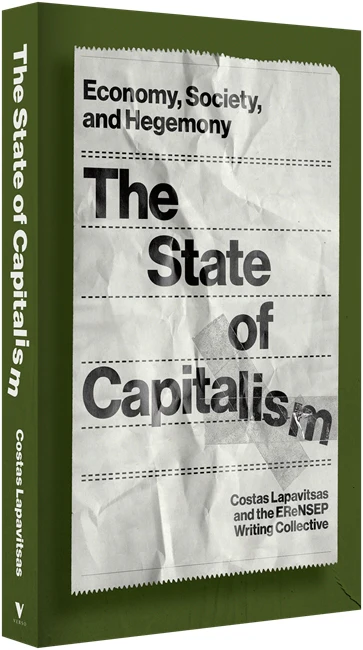
The State of Capitalism: Economy, Society, and Hegemony
The health emergency that broke out in 2020 is a landmark event in the development of capitalism, confirming the underlying change signalled by the Great Crisis of 2007-9. The Pandemic Crisis has catapulted the state to the centre of economic activity. However, a historic impasse is steadily becoming apparent at the core of the world economy
Productive accumulation is flaccid, as both profitability and labour productivity are weak. Financialisation has entered a new phase, as "shadow banking" grew relative to other banks but is entirely dependent on the state. The power of the state derives from command over fiat money and can certainly deliver enormous boosts to aggregate demand, but that is not enough to tackle the weakness of the productive sector. ...
- Lee, Jia Hui, Laura A. Meek and Jacob Katumusiime: "Contested Truths Over COVID-19 in East Africa:...Hide
-
Contested Truths Over COVID-19 in East Africa: Examining Opposition to Public Health Measures in Tanzania and Uganda.
Lee, Jia Hui, Laura A. Meek and Jacob Katumusiime. 2023. ‘Contested Truths Over COVID-19 in East Africa: Examining Opposition to Public Health Measures in Tanzania and Uganda.’ African Studies Review 66 (4): 873–98. https://doi.org/10.1017/asr.2023.69 - Martin Doevenspeck, Kamal Donko, Victor Iwuoha: "Bewaffnete Konflikte in westafrikanischen Grenzräumen."Hide
-
Bewaffnete Konflikte in westafrikanischen Grenzräumen.
Martin Doevenspeck, Kamal Donko, Victor Iwuoha (2023): Bewaffnete Konflikte in westafrikanischen Grenzräumen. Geographische Rundschau 9: 20-24.
- Ouma, Stefan; Vogt-William, Christine; Obeng-Odoom, Franklin; Oduro, Abena D.; Lewis, Tanita J.; Pheko, Lebohang Liepollo et al.: "Reconfiguring African Studies...Hide
-
Reconfiguring African Studies, reconfiguring economics: centring intersectionality and social stratification
Ouma, Stefan; Vogt-William, Christine; Obeng-Odoom, Franklin; Oduro, Abena D.; Lewis, Tanita J.; Pheko, Lebohang Liepollo et al. (2023): Reconfiguring African Studies, reconfiguring economics: centring intersectionality and social stratification. In: Critical African Studies, p. 1–21. DOI: 10.1080/21681392.2023.2226774.
Link to publication - Sawadogo-Compaore, Eveline M.F.W., Adéline D. Kando and Liza Debevec: "Under-standing the constraints that lessened...Hide
-
Under-standing the constraints that lessened the involvement of women regarding integrated water management in the Mouhoun region of Burkina Faso
Sawadogo-Compaore, Eveline M.F.W., Adéline D. Kando and Liza Debevec. 2023. ‘Under-standing the constraints that lessened the involvement of women regarding integrated water management in the Mouhoun region of Burkina Faso.’ Science, Technologie, Développement 3 (1). https://doi.org/10.21494/ISTE.OP.2023.0922.
2023 - II
- Akin-Otiko, Akinmayowa: "Hu ìwà síi bi Ènìyàn ẹlé ̣ran ara (Act towards them as Human being with flesh)...Hide
-
Hu ìwà síi bi Ènìyàn ẹlé ̣ran ara (Act towards them as Human being with flesh): An Ethical Theory of Interaction in African Traditional Medicine (ATM)
Akin-Otiko, Akinmayowa. 2002. Hu ìwà síi bi Ènìyàn ẹlé ̣ran ara (Act towards them as Human being with flesh): An Ethical Theory of Interaction in African Traditional Medicine (ATM), University of Lagos Press and Bookshop Ltd
- Carsten Möller, Martin Doevenspeck: "The fast and the victorious: Mobility, motorcyclists and...Hide
-
The fast and the victorious: Mobility, motorcyclists and political mobilisation in Uganda
& (2023) The fast and the victorious: Mobility, motorcyclists and political mobilisation in Uganda. Area, 00, 1– 8.
- Doevenspeck, M. & K. Donko: "Infrastructures of Migrant (Im)mobilities in the Borderland of Burkina Faso and Niger, SocietyHide
-
Infrastructures of Migrant (Im)mobilities in the Borderland of Burkina Faso and Niger
Doevenspeck, M. & K. Donko (2023): Infrastructures of Migrant (Im)mobilities in the Borderland of Burkina Faso and Niger https://doi.org/10.1007/s12115-023-00856-7
- Iwuoha, V.C. & Doevenspeck, M. (2023): Introduction to Forum: (Im)mobilities, Security, and Identities in West Africa ...Hide
-
Introduction to Forum: (Im)mobilities, Security, and Identities in West Africa Borderlands, Society
Iwuoha, V.C. & Doevenspeck, M. (2023): Introduction to Forum: (Im)mobilities, Security, and Identities in West Africa Borderlands, Society https://doi.org/10.1007/s12115-023-00854-9
- Kinyera, Paddy; Doevenspeck, Martin: "Governing Petro-(im)mobilities: the making of right-of-way for Uganda’s East...Hide
-
Governing Petro-(im)mobilities: the making of right-of-way for Uganda’s East African Crude Oil pipeline
Kinyera, Paddy Banya ; Doevenspeck, Martin:Governing Petro-(im)mobilities: the making of right-of-way for Uganda's East African Crude Oil pipeline. In: Mobilities. (2023) . - pp. 1-17.
- Prokoph, Nicole; Donko, Kamal; Doevenspeck, Martin: "West African Borderlands: Between..Hide
-
West African Borderlands: Between ECOWAS Free Movement and EU Externalization Policy
Prokoph, N., Donko, K., Doevenspeck, M. (2023). West African Borderlands: Between ECOWAS Free Movement and EU Externalization Policy. In: Okunade, S.K., Ogunnubi, O. (eds) ECOWAS Protocol on Free Movement and the AfCFTA in West Africa. Palgrave Macmillan, Singapore: 141-168 - Victor Chidubem Iwuoha and Martin Doevenspeck: "Dilemmas of ‘biometric nationality’: migration control, biometric ID technology...Hide
-
Dilemmas of ‘biometric nationality’: migration control, biometric ID technology and political mobilisation of migrants in West Africa
Victor Chidubem Iwuoha & Martin Doevenspeck (2023) Dilemmas of ‘biometric nationality’: migration control, biometric ID technology and political mobilisation of migrants in West Africa, Territory, Politics, Governance, DOI: 10.1080/21622671.2023.2205885
Link to publication
2023 - I
- Alber, Erdmute: "Inventing the Extended Family in Colonial Dahomey/Benin"Hide
-
Inventing the Extended Family in Colonial Dahomey/Benin
Inventing the Extended Family in Colonial Dahomey/Benin. In: Erdmute Alber, David Warren Sabean, Simon Teuscher and Tatjana Thelen (eds.): The Politics of Making Kinship. Historical and Anthropological Perspectives. New Yorck, Oxford: Berghahn Books: 296-323.
- Alber, Erdmute: "The Politics of Making Kinship"Hide
-
Introduction. Politics of Making Kinship.
Introduction. Politics of Making Kinship. In: Erdmute Alber, David Warren Sabean, Simon Teuscher and Tatjana Thelen (eds.): The Politics of Making Kinship. Historical and Anthropological Perspectives. New Yorck, Oxford: Berghahn Books: 1-22.
- Arndt, Susan, Yacouba Banhoro, Taibat Lawanson, Enocent Msindo, Peter Simatei: "Covid-19 in Africa: Governance...Hide
-
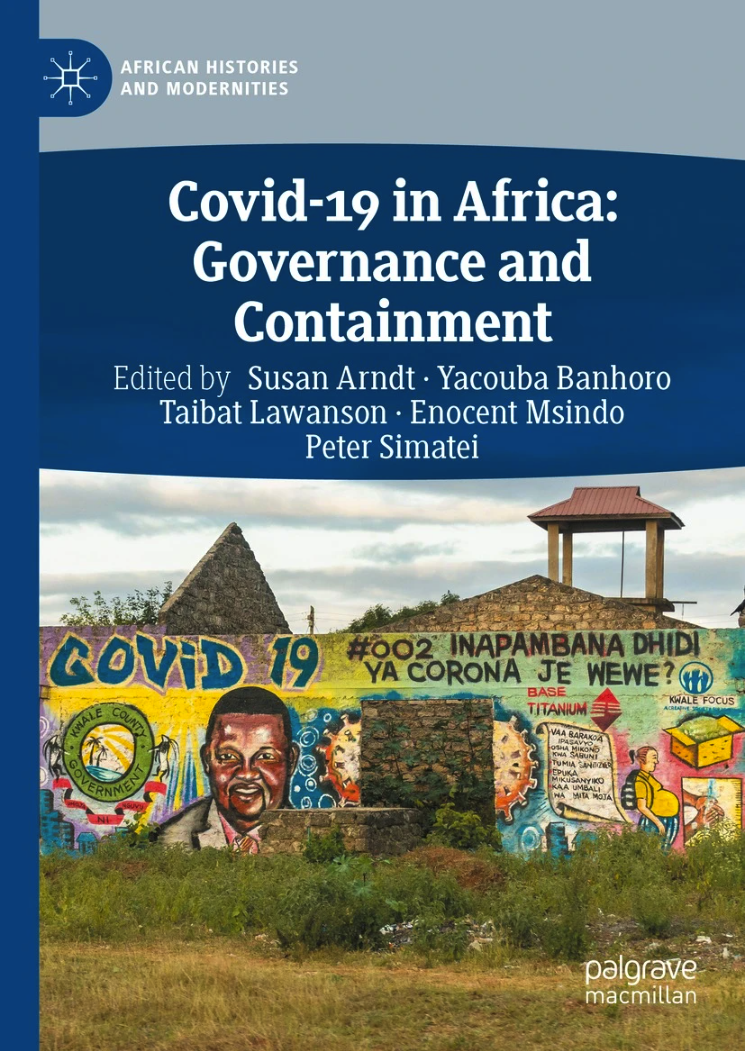
Covid-19 in Africa: Governance and Containment
Written amidst the ongoing Covid-19 pandemic, this edited volume draws on the expertise of social scientists and humanities scholars to understand the several ramifications of Covid-19 in societies, politics, and the economies of Africa. The contributors examine measures, communicative practices, and experiences that have guided the (inter)action of governments, societies and citizens in this unpredictable moment. Covid-19 tested governments’ disaster preparedness as well as exposed governments’ attitudes towards the poor and vulnerable. In the same vein, it also tested the agency of the generality of the African populace in the face of containment measures and how these impacted on everyday social, cultural and economic practices of the ordinary peoples. In this vein, our concern is to understand the relationship between growing vulnerability on the one hand and ingenuity of agency on the other, and how both were embodied, narrated and discoursed by the African poor, university students, religious entities, and middle-classes, and those that bore the major brunt of the lockdowns.
- Arndt, Susan, Banhoro Yacouba, Taibat Lawanson, Enocent Msindo, Peter Simatei: "Covid-19 in Africa: Societal ...Hide
-
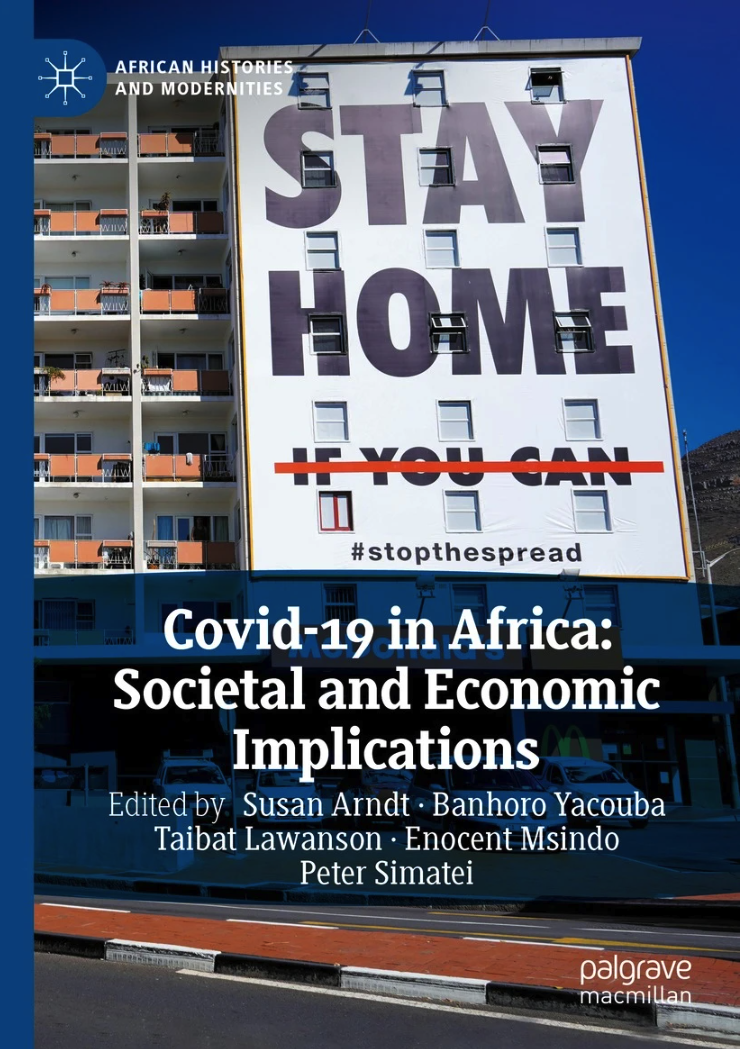
Covid-19 in Africa: Societal and Economic Implications
Written amidst the ongoing Covid-19 pandemic, this edited volume draws on the expertise of social scientists and humanities scholars to understand the many ramifications of Covid-19 on societies, politics, and the economies of Africa. The contributors examine measures, communicative practices, and experiences that have guided the (inter)action of governments, societies, and citizens in this unpredictable moment. Covid-19 tested governments’ disaster preparedness as well as exposed governments’ attitudes towards the poor and vulnerable. In the same vein, it also tested the agency of the African populace in the face of containment measures and their impact on everyday social, cultural, and economic practices of ordinary people. In this vein, our concern is to understand the relationship between growing vulnerability on the one hand, and ingenuity of agency on the other, and how both were embodied, narrated and discoursed by the African poor, university students, religious entities, middle-classes, and those who bore the major brunt of the lockdowns.
- Bacye, Yisso Fidèle and Sawadogo Compaoré Eveline M.F.W: "Genre, changement climatique et subsistance ...Hide
-
Genre, changement climatique et subsistance des ménages agricoles à partir des ressources en eau superficielles
Bacye Yisso Fidèle and Sawadogo Compaoré Eveline M.F.W, Genre, changement climatique et subsistance des ménages agricoles à partir des ressources en eau superficielles à Dassa, 2023, Hypothèse. AgriGenre, ISSN :27263819
- da Silva, Jamile Borges ; Figueiredo, Fábio Baqueiro ; Gomes, Patricia Godinho: " A new age of Extremes...Hide
-
A new Age of Extremes? : Anti-political Politics and Identity Remaking in the early 21st Century
da Silva, Jamile Borges ; Figueiredo, Fábio Baqueiro ; Gomes, Patricia Godinho (2023): A new Age of Extremes? : Anti-political Politics and Identity Remaking in the early 21st Century, University of Bayreuth African Studies Online 10 (ed.: Kroeker, Lena), Bayreuth: Institute of African Studies.
- Drescher, Martina: "Covid-19 related rumors and conspiracy theories. A case study from Cameroon"Hide
-
Covid-19 related rumors and conspiracy theories. A case study from Cameroon
Drescher, Martina (2023): Covid-19 related rumors and conspiracy theories. A case study from Cameroon. In: Butter, Michael / Knight, Peter (eds) Covid Conspiracy Theories in Global Perspective. London / New York: Routledge, 99-113.
- Kirby, Ben: "Thickening Agents: Muslim Commons and Trajectories of Popular Urbanization in Dar es Salaam"Hide
-
Thickening Agents: Muslim Commons and Trajectories of Popular Urbanization in Dar es Salaam.
Kirby, Ben 2023. Thickening Agents: Muslim Commons and Trajectories of Popular Urbanization in Dar es Salaam. In: Ideologies and Infrastructures of Religious Urbanization in Africa: Remaking the City, ed. David Garbin, Simon Coleman, and Gareth Millington. London: Bloomsbury.
- Lingelbach, Jochen: “Lager für europäische Geflüchtete im kolonialen Afrika...Hide
-
Lager für europäische Geflüchtete im kolonialen Afrika. Soziale Ordnungen zwischen Selbstorganisation, kolonialrassistischer Gesellschaft und internationalen Organisationen (1941–1951)
Lingelbach, Jochen 2023 “Lager für europäische Geflüchtete im kolonialen Afrika. Soziale Ordnungen zwischen Selbstorganisation, kolonialrassistischer Gesellschaft und internationalen Organisationen (1941–1951)“, in: Institution Lager. Theorien, globale Fallstudien und Komparabilität, ed. Annett Bochmann, Felicitas Fischer von Weikersthal, Frankfurt/M.: Campus. - Michaela, Ott; and Mbaye Diop Babacar: "Decolonial Aesthetics I"Hide
-
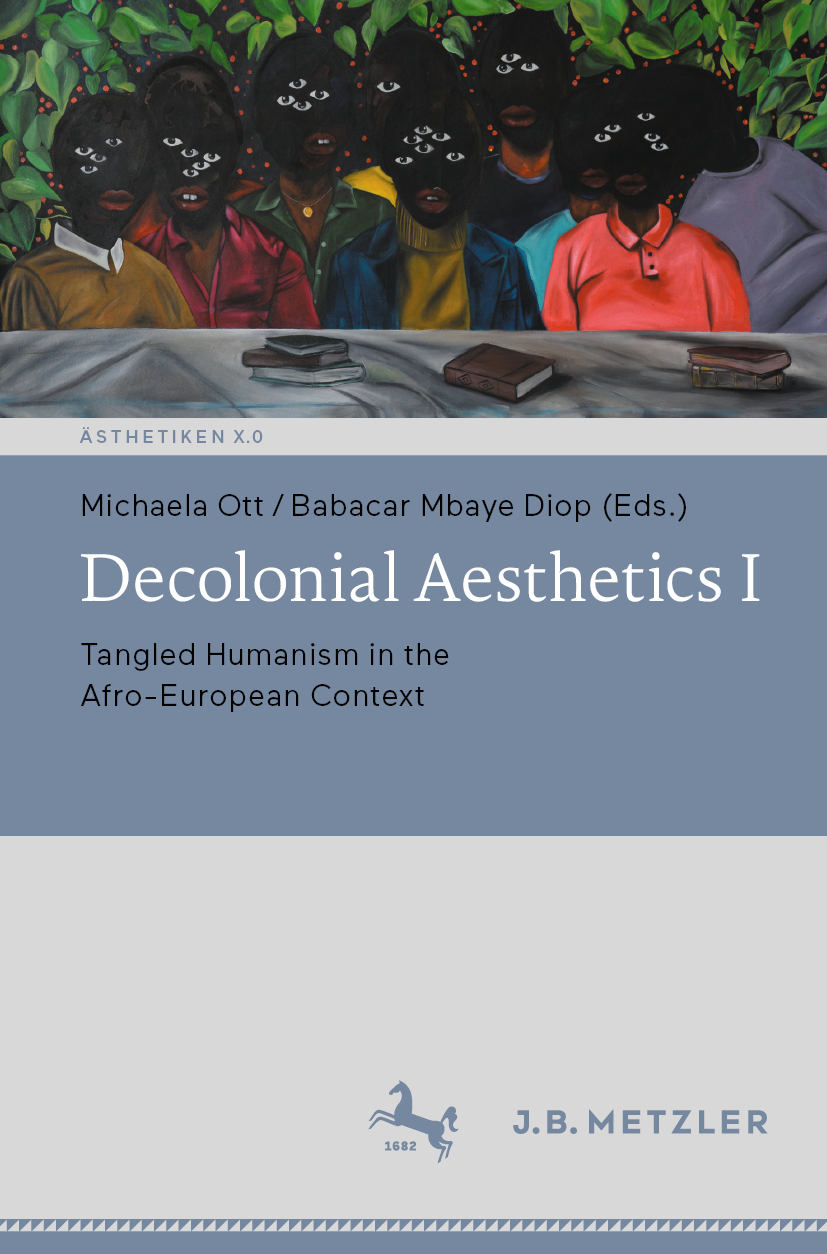
Decolonial Aesthetics I
Tangled Humanism in the Afro-European Context
Michaela Otts, Babacar Mbaye Diop
"Book brings up the question of the decolonisation of aesthetics in the German context. Book offers African perspectives and art practices. Interferences of aesthetics with ecological, environmental and geopolitical concerns". - Phillips, Joschka: "'Complòóót?’ Theorizing about Covid-19 conspiracies in Côte d’Ivoire"Hide
-
’Complòóót?’ Theorizing about Covid-19 conspiracies in Côte d’Ivoire
Phillips, Joschka 2023. “’Complòóót?’ Theorizing about Covid-19 conspiracies in Côte d’Ivoire.” In Conspiracy Theories and the Coronavirus Pandemic, edited by Peter Knight and Michael Butter. London: Routledge (with Oumarou Boukari)
- Spittler, Gerd: "Leben mit wenigen Dingen. Der Umgang der Kel Ewey...Hide
-
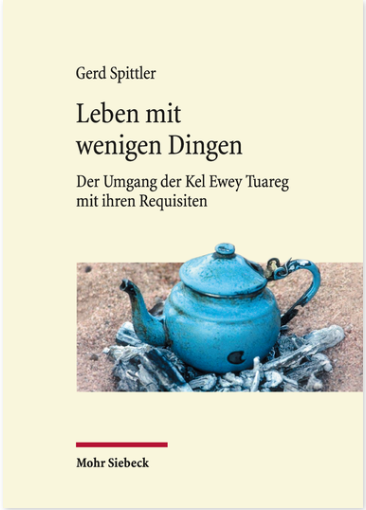
Leben mit wenigen Dingen. Der Umgang der Kel Ewey Tuareg mit ihren Requisiten
Spittler, Gerd 2023. Leben mit wenigen Dingen. Der Umgang der Kel Ewey Tuareg mit ihren Requisiten. Tübingen: Mohr Siebeck
Ein Tuareg in Timia besitzt ca. 130 Gegenstände, ein Student in Bayreuth 3100. Für die meisten Menschen im »reichen« Norden steht außer Zweifel, dass die Tuareg arme Leute sind, bereit für die Migration ins reiche Europa. Gerd Spittler untersucht dagegen detailliert, welche Gegenstände (»Requisiten«) die Tuareg besitzen, wie sie damit umgehen und wie sie sie bewerten. Armut und Reichtum stellten sich hier anders dar als aus der Sicht der Europäer. Die meisten Dinge sind lange in Gebrauch. Sie werden nicht entsorgt, wenn sie nicht mehr neu sind, sondern bleiben auch abgenutzt in Verwendung, werden geflickt und oft in anderen Funktionen benutzt. Die Darstellung wird vertieft durch 300 Fotos des Autors. Grundlage für diese Untersuchung ist eine Feldforschung bei den Kel Ewey Tuareg der Oase Timia über einen Zeitraum von 30 Jahren.
- Steppat, Michael: "Historical Intersections of Intercultural Studies"Hide
-
Historical Intersections of Intercultural Studies
Steppat, Michael 2023. Historical Intersections of Intercultural Studies. Intercultural Research Vol. 11. Shanghai Foreign Language Education Press. - Steppat, Michael: "The Politics and Political Aesthetics of Shakespeare’s (Re)Sources"Hide
-
The Politics and Political Aesthetics of Shakespeare’s (Re)Sources
Steppat, Michael 2023. The Politics and Political Aesthetics of Shakespeare’s (Re)Sources. African Shakespeares: Subversions, Negotiations and Appropriations, eds. I. Aboluwade, S. Talento. Routledge. - Tchokothe, Rémi: "Entré en tant que cousin, sorti en tant que gendarme...Hide
-
Entré en tant que cousin, sorti en tant que gendarme : Visa Balladur, Kwassa Kwassa, (Im)mobilité et Géopoét(h)ique relationnelle aux Comores
Tchokothe, Rémi 2023. Entré en tant que cousin, sorti en tant que gendarme : Visa Balladur, Kwassa Kwassa, (Im)mobilité et Géopoét(h)ique relationnelle aux Comores. Leiden: Brill.
- Ustadh Mahmoud Mau, Annachiara Raia and Clarissa Vierke: "In this Fragile World. Swahili "Hide
-

In This Fragile World
Ustadh Mahmoud Mau, Annachiara Raia and Clarissa Vierke. 2023. In this Fragile World. Islam in Africa.
2022 - IV
- Akin-Otiko, A.: "Understanding the Causes and Treatments of Socio-Spiritual Diseases among the Yoruba"Hide
-
Understanding the Causes and Treatments of Socio-Spiritual Diseases among the Yoruba
Akin-Otiko, A. (2022). Understanding the Causes and Treatments of Socio-Spiritual Diseases among the Yoruba. In Stephen BOLAJI, Adesoji ONI, and Stella ANYAMA. African Education and Diaspora Studies. uniprintNT, Charles Darwin University, Darwin NT 0909 Australia. 77-88. ISBN: 978-0-6487995-0-4.
- Alber, Erdmute: "No school without foster families in Northern Benin : A social historical approach."Hide
-
No school without foster families in Northern Benin : A social historical approach.
Alber, Erdmute: No school without foster families in Northern Benin : A social historical approach. In: Alber, Erdmute ; Thelen, Tatjana (ed.): Politics and Kinship : A Reader. - London : Routledge , 2022 . - pp. 252-265
ISBN 978-0-367-43484-7
- Alber, Erdmute: "Politics and kinship: An introduction"Hide
-
Politics and kinship: An introduction
Politics and kinship: An introduction. In: Erdmute Alber und Tatjana Thelen (eds.): Politics and Kinship. A Reader. Routledge: New York: 1-33 (with Tatjana Thelen)
- Alber, Erdmute: Verwandtschaftspolitiken. Kindspflegschaft in Dahomey/Benin ...Hide
-
Alber, Erdmute. 2022 Verwandtschaftspolitiken. Kindspflegschaft in Dahomey/Benin im 20. Jahrhundert. In: Bettina Hitzer und Benedikt Stuchtey (Hg.): In unsere Mitte genommen: Adoption im 20. Jahrhundert. Wallstein Verlag: Göttingen: 29-45.
- Arndt, Susan: "Rassistisches Erbe. Wie wir mit der kolonialen Vergangenheit unserer Sprache umgehen".Hide
-
Rassistisches Erbe. Wie wir mit der kolonialen Vergangenheit unserer Sprache umgehen
Arndt, Susan 2022. Rassistisches Erbe. Wie wir mit der kolonialen Vergangenheit unserer Sprache umgehen. Unter Mitarbeit von Mario Faust-Scalisi. (Berlin: Duden-Verlag).
- Arndt, Susan and Li, Xin: "Unmaking Silence and FutureS in the Midst of ‘The Passing Dreams of Choice’ (Lorde)."Hide
-
Unmaking Silence and FutureS in the Midst of ‘The Passing Dreams of Choice’ (Lorde)
Arndt, Susan & Li, Xin 2022. “Unmaking Silence and FutureS in the Midst of ‘The Passing Dreams of Choice’ (Lorde).” in: Passages: Moving beyond Liminality in the Study of Literature and Culture. ed. by Jens Kugele, Elisabeth Kovach, and Ansgar Nünning. London: UCL Press, 280-305
- Banguero Velasco, Rigoberto; Gruber, Valerie V. V.: “Emancipatory Methodologies: Knowledge Production and...Hide
-
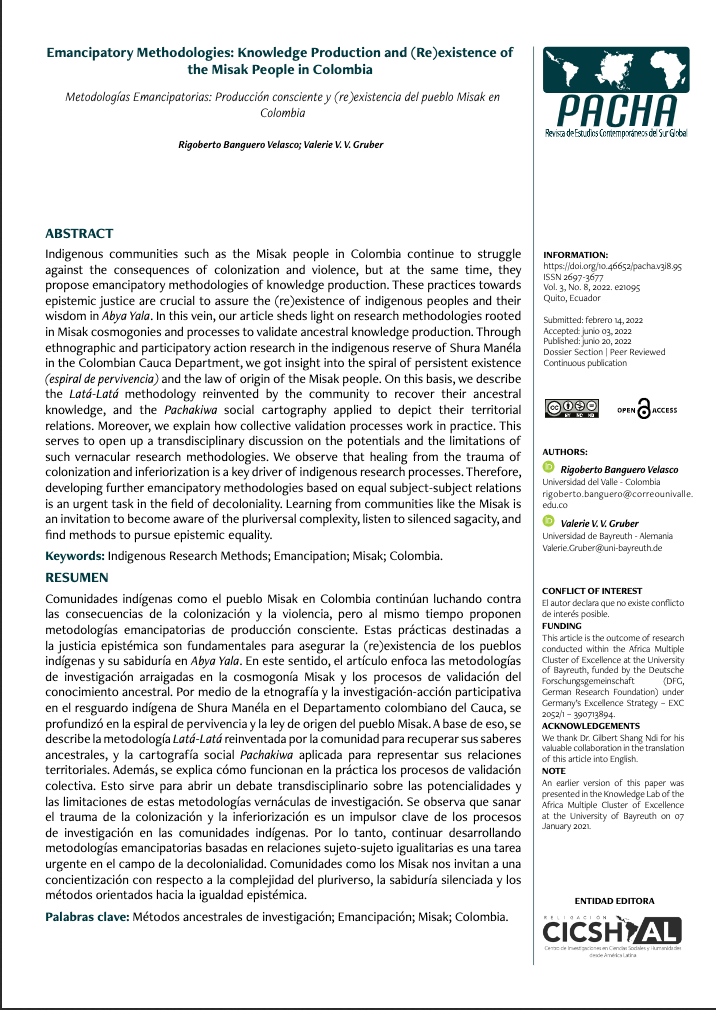
Banguero Velasco, Rigoberto / Gruber, Valerie V. V. (2022). “Emancipatory Methodologies: Knowledge Production and (Re)existence of the Misak People in Colombia”, PACHA – Journal of Contemporary Studies of the Global South 3 (8), e21095.
Indigenous communities such as the Misak people in Colombia continue to struggle against the consequences of colonization and violence, but at the same time, they propose emancipatory methodologies of knowledge production. These practices towards epistemic justice are crucial to assure the (re)existence of indigenous peoples and their wisdom in Abya Yala. In this vein, our article sheds light on research methodologies rooted in Misak cosmogonies and processes to validate ancestral knowledge production. Through ethnographic and participatory action research in the indigenous reserve of Shura Manéla in the Colombian Cauca Department, we got insight into the spiral of persistent existence (espiral de pervivencia) and the law of origin of the Misak people. On this basis, we describe the Latá-Latá methodology reinvented by the community to recover their ancestral knowledge, and the Pachakiwa social cartography applied to depict their territorial relations. Moreover, we explain how collective validation processes work in practice. This serves to open up a transdisciplinary discussion on the potentials and the limitations of such vernacular research methodologies. We observe that healing from the trauma of colonization and inferiorization is a key driver of indigenous research processes. Therefore, developing further emancipatory methodologies based on equal subject-subject relations is an urgent task in the field of decoloniality. Learning from communities like the Misak is an invitation to become aware of the pluriversal complexity, listen to silenced sagacity, and find methods to pursue epistemic equality.
- Clemens, Iris: "Die Herausforderungen postkolonialer Erziehungswissenschaft"Hide
-
Die Herausforderungen postkolonialer Erziehungswissenschaft
Clemens, Iris 2022 Die Herausforderungen postkolonialer Erziehungswissenschaft. Notwendige Relflexionen theoretischer Grundlagen und Anmerkungen aus einer relationalen Perspektive. In Phillip D. Th. Knobloch & Johannes drerup: Bildung in Postkolonialen Konstellationen. Transcript: Bielefeld.
- Clemens, Iris: "Wissen und der homo connectus: Überlegungen zu einem Grundbegriff der Erziehungswissenschaft ...Hide
-
Wissen und der homo connectus: Überlegungen zu einem Grundbegriff der Erziehungswissenschaft aus einer relationalen Perspektive
Clemens, Iris 2022 Wissen und der homo connectus: Überlegungen zu einem Grundbegriff der Erziehungswissenschaft aus einer relationalen Perspektive. Velbrück: Weilerswist
- Coester, Markus: “Problematic Practices and New (Digital) Avenues in Copyright and Intellectual PropertyHide
-
Problematic Practices and New (Digital) Avenues in Copyright and Intellectual Property Rights in African Music
Coester, Markus 2022. “Problematic Practices and New (Digital) Avenues in Copyright and Intellectual Property Rights in African Music”. In Dreiser, A; C. Samimi, (eds.), Frontiers in African Digital Research, BASO 9, 129-46.
- Debele, Serawit: "The Politics of “Queer Reading” an Ethiopian Saint and Discovering Precolonial Queer Africans".Hide
-
The Politics of “Queer Reading” an Ethiopian Saint and Discovering Precolonial Queer Africans
Debele, Serawit 2022. The Politics of “Queer Reading” an Ethiopian Saint and Discovering Precolonial Queer Africans, Journal of African Cultural Studies 1 (34),98-110.
- Doevenspeck, Martin With Donko, Kamal & Beisel, Uli: "Migration Control, the Local Economy..Hide
-
Migration Control, the Local Economy and Violence in the Burkina Faso and Niger Borderland
Doevenspeck, Martin With Donko, Kamal & Beisel, Uli. 2022. Migration Control, the Local Economy and Violence in the Burkina Faso and Niger Borderland. Journal of Borderlands Studies. 37.2. 235-251.
- Donko, Kamal: “Territory, Power and Politics at a Frontier in Central Benin”.Hide
-
Territory, Power and Politics at a Frontier in Central Benin
Donko, Kamal 2022. “Territory, Power and Politics at a Frontier in Central Benin”. Bayreuther Studien zu Politik und Gesellschaft in Afrika | Bayreuth Studies in African Politics and Societies. Nomos Verlagsgesellschaft mbH & Co. KG.
- Donko, K., Doevenspeck, M., and Beisel, U.: "Migration Control, the Local...Hide
-
Migration Control, the Local Economy and Violence in the Burkina Faso and Niger Borderland
Donko, K., Doevenspeck, M., & Beisel, U. (2022). Migration Control, the Local Economy and Violence in the Burkina Faso and Niger Borderland. Journal of Borderlands Studies, 37(2), 235-251.
- Drescher, Martina: "Soziale Positionierungen und moralisches Argumentieren in Covid-19-Diskursen...Hide
-
Soziale Positionierungen und moralisches Argumentieren in Covid-19-Diskursen. Eine Fallstudie zu Kamerun
Drescher, Martina: "Soziale Positionierungen und moralisches Argumentieren in Covid-19-Diskursen. Eine Fallstudie zu Kamerun".In: Schmidt, Franziska, Jaki, Sylvia, Mandl, Thomas (Hg.) Wissen um Corona: Wissenschaftskommunikation, Informationsverhalten Diskurs. Hildesheim: Universitätsverlag Hildesheim, 206-237
- Eleshin, Abisoye: "Linguistics and Sociocultural Implications of Yoruba Slangs in Students’ Narratives in Lagos...Hide
-
Linguistics and Sociocultural Implications of Yoruba Slangs in Students’ Narratives in Lagos, Nigeria
Eleshin, Abisoye 2022, Linguistics and Sociocultural Implications of Yoruba Slangs in Students’ Narratives in Lagos, Nigeria. Language of Education and Development in Africa: Prospects for Decolonisation and Empowerment, Research in English and Applied Linguistics REAL Studies 20, 2022 PP. 93 – 100
- Fendler: “A la recherche des descendants perdus: Rencontres manquées et morts violentes dans Pelourinho...Hide
-
A la recherche des descendants perdus: Rencontres manquées et morts violentes dans Pelourinho et Little Senegal
Fendler. 2022. “A la recherche des descendants perdus: Rencontres manquées et morts violentes dans Pelourinho et Little Senegal.” In: Éliane Elmaleh/Benaouda Lebdai/Delphine Letort (eds): Rémanences de l’esclavage dans les arts, les littératures et les musées. Presses Universitaires Le Mans, 2022, 165-178.
- Fendler: “Escrever para tornar visível os spectros do passado : uma visão pos-memorial em duas romances...Hide
-
Escrever para tornar visível os spectros do passado : uma visão pos-memorial em duas romances de Léonora Miano.
Fendler. 2022. “Escrever para tornar visível os spectros do passado : uma visão pos-memorial em duas romances de Léonora Miano.” In: Leite, Ana Mafalda/Bergamo, Edvaldo A./Brugioni, Elena/Canedo, Rogério (orgs.). O romance africano: tensões, conexões, tradições. Goiânia: Cegraf UFG, 2022, 451-466. ISBN: 978-85-495-0487-61.
- Fendler: “Hacia una ‘tercera-estética - Ecos polirrítmicos Sur-Sur en novelas antillanas e africanas.”Hide
-
Hacia una ‘tercera-estética - Ecos polirrítmicos Sur-Sur en novelas antillanas e africanas
Fendler. 2022. “Hacia una ‘tercera-estética - Ecos polirrítmicos Sur-Sur en novelas antillanas e africanas.” In: Ineke Phaf-Rheinberger/Daiana Nascimentos dos Santos/Koichi
- Fendler, Ute: "A la recherche des descendants perdus...Hide
-
A la recherche des descendants perdus : Rencontres manquées et morts violentes dans Pelourinho et Little Senegal
Fendler, Ute:
A la recherche des descendants perdus : Rencontres manquées et morts violentes dans Pelourinho et Little Senegal.
In: Elmaleh, Éliane ; Lebdai, Benaouda ; Letort, Delphine (ed.): Rémanences de l'esclavage dans les arts, les littératures et les musées. - Rennes : Presses Universitaires de Rennes , 2022
ISBN 978-2-7535-8684-0 - Fendler, Ute: "Escrever para tornar visível os spectros do passado...Hide
-
Escrever para tornar visível os spectros do passado : uma visão pos-memorial em duas romances de Léonora Miano
Fendler, Ute:
Escrever para tornar visível os spectros do passado : uma visão pos-memorial em duas romances de Léonora Miano.
In: Leite, Ana Mafalda ; Bergamo, Edvaldo ; Brugioni, Elena ; Canedo, Rogério (ed.): O romance africano : tensões, conexões, tradições. - Goiânia , 2022 - Figueiredo, Fábio Baqueiro: "Disputed Meanings of Women's Liberation: Social Tensions and Symbolic Struggles During ...Hide
-
Disputed Meanings of Women's Liberation: Social Tensions and Symbolic Struggles During Angolan Independence
During the armed struggle, the Popular Movement for the Liberation of Angola (MPLA) supported women's liberation and appointed women to several political, logistical, and military positions. Meanwhile, in colonial society, changes in economic activities, access to formal education, and urban sociability resulted in a more significant female presence in public spaces. After independence, women's liberation rose to prominence in a context of internal conflict and economic disruption. The new government promoted the “New Man” and a host of associated social personae, all of which were defined by a set of moral qualities individuals were expected to comply with if they wanted to qualify as legitimate actors in the making of independent Angola. Women ought to engage in “National Reconstruction” by joining the Organization of Angolan Women (OMA), which focused on literacy and hygienist campaigns aimed at fighting “obscurantism”. However, many urban women had their own agendas, which called for changes in gender roles in both public and domestic realms. This paper seeks to highlight the shifting gender patterns in Luanda and rural guerrilla zones during the late colonial period, and then analyze how, after independence, different groups of women conceived their place in the building of the new nation, and how the State tried to “domesticate” the possibilities of women's activism as such, in symbolic as well as practical ways.
- Figueiredo, Fábio Baqueiro: "Campanha Nacional de Alfabetização e a construção do Estado em Angola, 1975-1980"Hide
-
Campanha Nacional de Alfabetização e a construção do Estado em Angola, 1975-1980
Este artigo busca examinar os processos de organização e a implementação da Campanha Nacional de Alfabetização promovida em Angola no período imediatamente posterior à independência, tomando-a como uma janela para investigar os dilemas e conflitos que marcaram o nascimento da nova nação e a consolidação do Estado, especialmente no espaço urbano, num contexto de legitimidade contestada e de proliferação de diferentes agendas políticas e interpretações sobre o significado da independência. Utilizando principalmente a cobertura da imprensa escrita e publicações oficiais, este artigo analisa a influência cubana na concepção organizacional e pedagógica da campanha, a fragilidade operacional do Estado em constituição, a atuação política autônoma dos estudantes das cidades – e os esforços do governo para enquadrar seu entusiasmo revolucionário – e a utilização da campanha como uma alavanca para a construção de um sistema universal de educação básica em Angola.
Baqueiro Figueiredo, Fábio. (2022). A Campanha Nacional de Alfabetização e a construção do Estado em Angola, 1975-1980. Revista de História. 181. 1-34. 10.11606/issn.2316-9141.rh.2022.183713
- Frede, Britta: "Introduction"Hide
-
Frede, Britta: "Introduction"
Erudition islamique en Afrique : Nouvelles pistes de recherche et contexte mondial Dakar : CEDRIS, 2022. - S. 224-229 . - (Intellectuels et savoir) - Frede, Britta: "Le monde renversé? La Fayḍa chez les Idaw ‘Alī après les années 1930"Hide
-
Le monde renversé? La Fayḍa chez les Idaw ‘Alī après les années 1930.
Frede, Britta 2022. Le monde renversé? La Fayḍa chez les Idaw ‘Alī après les années 1930. In: Le Sahel musulman entre soufisme et salafisme : Subalternité, luttes de classement et transnationalisme, ed. by Jean Schmitz, Abdel Wedoud Ould-Cheikh, Cédric Jourde, p. 251-74. Paris, Karthala.
- Frede, Britta: "Qu'est-ce que l'éducation islamique traditionelle veut dire?: Réflexions sur...Hide
-
Frede, Britta: "Qu'est-ce que l'éducation islamique traditionelle veut dire? : Réflexions sur les cercles d'apprentissage féminins contemporains de Nouakchott"
Erudition islamique en Afrique : Nouvelles pistes de recherche et contexte mondial Dakar : CEDRIS, 2022. - S. 294-314 . - (Intellectuels et savoir)
- Greven, Katharina: "Women in Mbari – (Re)Discovering Three Artistic Practices"Hide
-
Women in Mbari – (Re)Discovering Three Artistic Practices.
Greven, Katharina 2022. Women in Mbari – (Re)Discovering Three Artistic Practices. In: Black Orpheus: Jacob Lawrence and the Mbari Club, ed. by Ndubuisi Ezeluomba and Kimberli Grant. New Haven, CT: Yale University Press.
- Iddrisu, Azindow Yakubu/Ouma, Stefan/Yaro, Joseph Awetori: "When agricultural commercialization..Hide
-
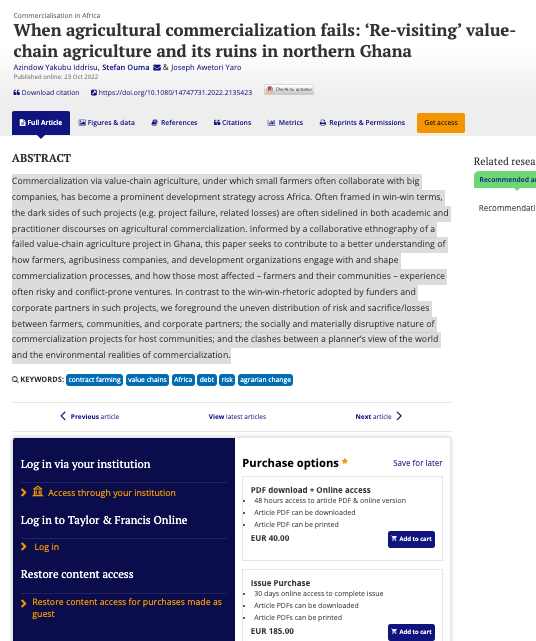
When agricultural commercialization fails: ‘Re-visiting’ value-chain agriculture and its ruins in northern Ghana
Commercialization via value-chain agriculture, under which small farmers often collaborate with big companies, has become a prominent development strategy across Africa. Often framed in win-win terms, the dark sides of such projects (e.g. project failure, related losses) are often sidelined in both academic and practitioner discourses on agricultural commercialization. Informed by a collaborative ethnography of a failed value-chain agriculture project in Ghana, this paper seeks to contribute to a better understanding of how farmers, agribusiness companies, and development organizations engage with and shape commercialization processes, and how those most affected – farmers and their communities – experience often risky and conflict-prone ventures. In contrast to the win-win-rhetoric adopted by funders and corporate partners in such projects, we foreground the uneven distribution of risk and sacrifice/losses between farmers, communities, and corporate partners; the socially and materially disruptive nature of commercialization projects for host communities; and the clashes between a planner’s view of the world and the environmental realities of commercialization.
- Kebaya, Charles and Christopher Joseph Odhiambo (eds): "Reimagining Kenyan Cinema"Hide
-
Reimagining Kenyan Cinema
Charles Kebaya and Christopher Joseph Odhiambo (eds) Reimagining Kenyan Cinema. Peter Lang Verlag, New York, Bern, Berlin, Bruxelles, Oxford, Wien, 2022. XVIII, p. 216
- Kirby, Ben and Adriaan van Klinken "Religions and Masculinities in Africa: Power, Politics, Performance"Hide
-
Religions and Masculinities in Africa: Power, Politics, Performance.
Kirby, Ben 2022. With Adriaan van Klinken. Religions and Masculinities in Africa: Power, Politics, Performance. In: The Routledge Handbook of Religions, Gender and Society, ed. Caroline Starkey and Emma Tomalin. London: Routledge.
- Koddenbrock, Kai, Kvangraven I, Sylla, N: "Beyond financialization: The longue durée of finance and production in ...Hide
-
Koddenbrock Kai, Kvangraven I, Sylla, N: Beyond financialization: The longue durée of finance and production in the Global South, Cambridge Journal of Economics, online first
- Koddenbrock, Kai; Brown, B: "Capital claims: The power of global finance"Hide
-
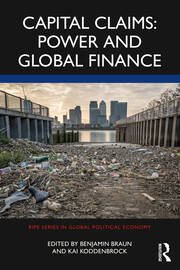
Capital Claims: Power and Global Finance
Edited By Benjamin Braun, Kai KoddenbrockCapital Claims: Power and Global Finance analyses how global financialized capitalism operates and reproduces itself, exploring the remarkable ability of the financial sector to maintain its dominance through even the most severe economic crises.
- Koddenbrock, Kai, Alami, I, Alves, C, Bonizzi B. Kaltenbrunner A, Kvangraven I, Powell, J: "Interna ...Hide
-
Koddenbrock Kai, Alami, I, Alves, C, Bonizzi B. Kaltenbrunner A, Kvangraven I, Powell, J: International Financial Subordination – A critical research agenda, Review of International Political Economy, online first
- Koddenbrock, Kai and Mertens D.: "Geoeconomics and national production regimes. On German exportism and the integration...Hide
-
Geoeconomics and national production regimes. On German exportism and the integration of economic and security policy
Koddenbrock, Kai With Mertens D. Geoeconomics and national production regimes. On German exportism and the integration of economic and security policy. In: Babic, Milan; Dixon, Adam; Liu, Imogen: The Political Economy of Geoeconomics in a Changing Global Order. Palgrave.
- Koddenbrock, Kai and Alami, I, Alves, C, Bonizzi B. Kaltenbrunner A, Kvangraven I, Powell, J. International Financial SubordinationHide
-
International Financial Subordination, A critical research agenda
Koddenbrock, Kai 2022. With Alami, I, Alves, C, Bonizzi B. Kaltenbrunner A, Kvangraven I, Powell, J. International Financial Subordination – A critical research agenda, Review of International Political Economy, online first.
- Koddenbrock, Kai: "Von der Relevanz der deutschen Internationalen Beziehungen zum Nutzen der politischen ...Hide
-
Von der Relevanz der deutschen Internationalen Beziehungen zum Nutzen der politischen Ökonomie als Konfliktanalyse, in: Schöne H und Bergem W (Hg.) Wie relevant ist die Politikwissenschaft?, Springer VS
- Koddenbrock, Kai: "Kapitalismus und Krieg, Wirtschaft und Gewalt"Hide
-
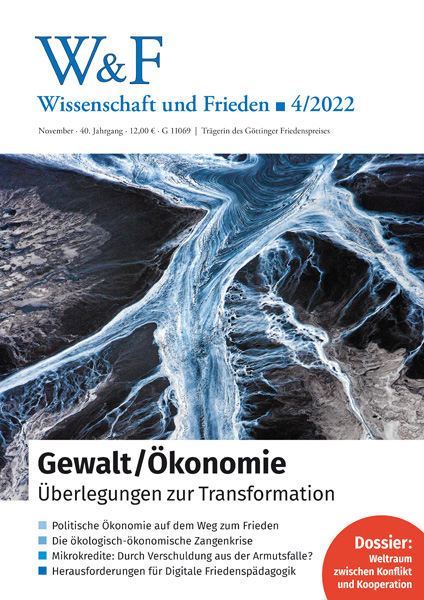
Kapitalismus und Krieg, Wirtschaft und Gewalt. Fünf Thesen und ein Überblick, Wissenschaft und Frieden, 4/2022, 6-9.
Im Kapitalismus sind Krieg und Gewalt nie weit. Sie sind sogar konstitutiver Teil unseres Zusammenlebens und betreffen sowohl autoritäre Staaten wie auch demokratisch organisierte. Gewalt ist dabei im Kapitalismus vielgestaltig und durchdringt fast alle Lebensbereiche – vom Lohnverhältnis bis zur Kriegswirtschaft. Wie sich die ökonomische Friedens- und Konfliktforschung dieser Realität in Deutschland jetzt erneut widmet und gewidmet hat und welche Zukunft wir vor uns haben, diskutiert dieser Text in fünf Thesen.
- Layiwola Peju: "“Bruce Onobrakpeya,” African Modernism in America"Hide
-
“Bruce Onobrakpeya,” African Modernism in America
Layiwola Peju, “Bruce Onobrakpeya,” African Modernism in America, ed. Perrin M. Lathrop (New York: American Federation of Arts, Fisk University Galleries and Yale University Press, 2022), 174-75
- Lingelbach, Jochen: “Imperial Refugee Management. Moving Greek Refugees Through the British Empire and into the...Hide
-
Imperial Refugee Management. Moving Greek Refugees Through the British Empire and into the Belgian Congo (1942–1945)
Lingelbach, Jochen 2022, “Imperial Refugee Management. Moving Greek Refugees Through the British Empire and into the Belgian Congo (1942–1945)”, The Journal of Imperial and Commonwealth History 50, no. 5, 1005–34.
- Lingelbach, Jochen: " Refugees in the Imperial Order of Things: Citizen...Hide
-
Refugees in the Imperial Order of Things: Citizen, Subject, and Polish Refugees in Africa
Lingelbach, Jochen 2022, Refugees in the Imperial Order of Things: Citizen, Subject, and Polish Refugees in Africa (1942–50)”, Africa Today 69, no. 1, 14–35.
- Martin, Jeannett; Alber, Erdmute: "Familie in Afrika"Hide
-
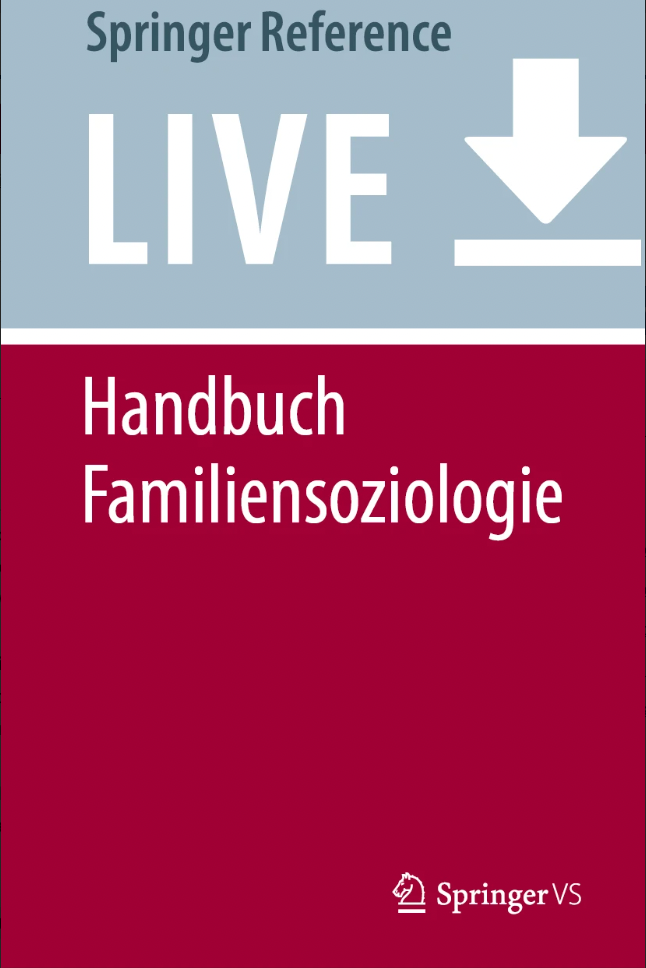
Martin, Jeannett; Alber, Erdmute: "Familie in Afrika"
Der Beitrag thematisiert die sich wandelnden Konstellationen von Verwandtschaft und Familie in den Gesellschaften Afrikas. Neben einem Überblick über zentrale Kategorien und die Entwicklung der wissenschaftlichen Debatten beschreibt er die Vielfalt verwandtschaftlicher und familiärer Lebensformen auf dem Kontinent und deren enorme Flexibilität und Wandlungsfähigkeit. Anhand von zwei Themen, die Entwicklung von Heiratsbeziehungen im südlichen Afrika und Veränderungen bei der Praxis der Kindspflegschaft in der westafrikanischen Republik Benin, werden Transformationslinien auf der Grundlage von Ergebnissen ethnologischer, soziologischer und historischer Forschungen nachgezeichnet. Dabei wird deutlich, dass sich generalisierende Aussagen über Familienstrukturen auf dem afrikanischen Kontinent und deren Wandel kaum treffen lassen.
- Martí, Sandra Amelia / Gruber, Valerie V. V. : “Arte de frontera: (re)creando intersticios en Tijuana y Salvador de Bahía”Hide
-
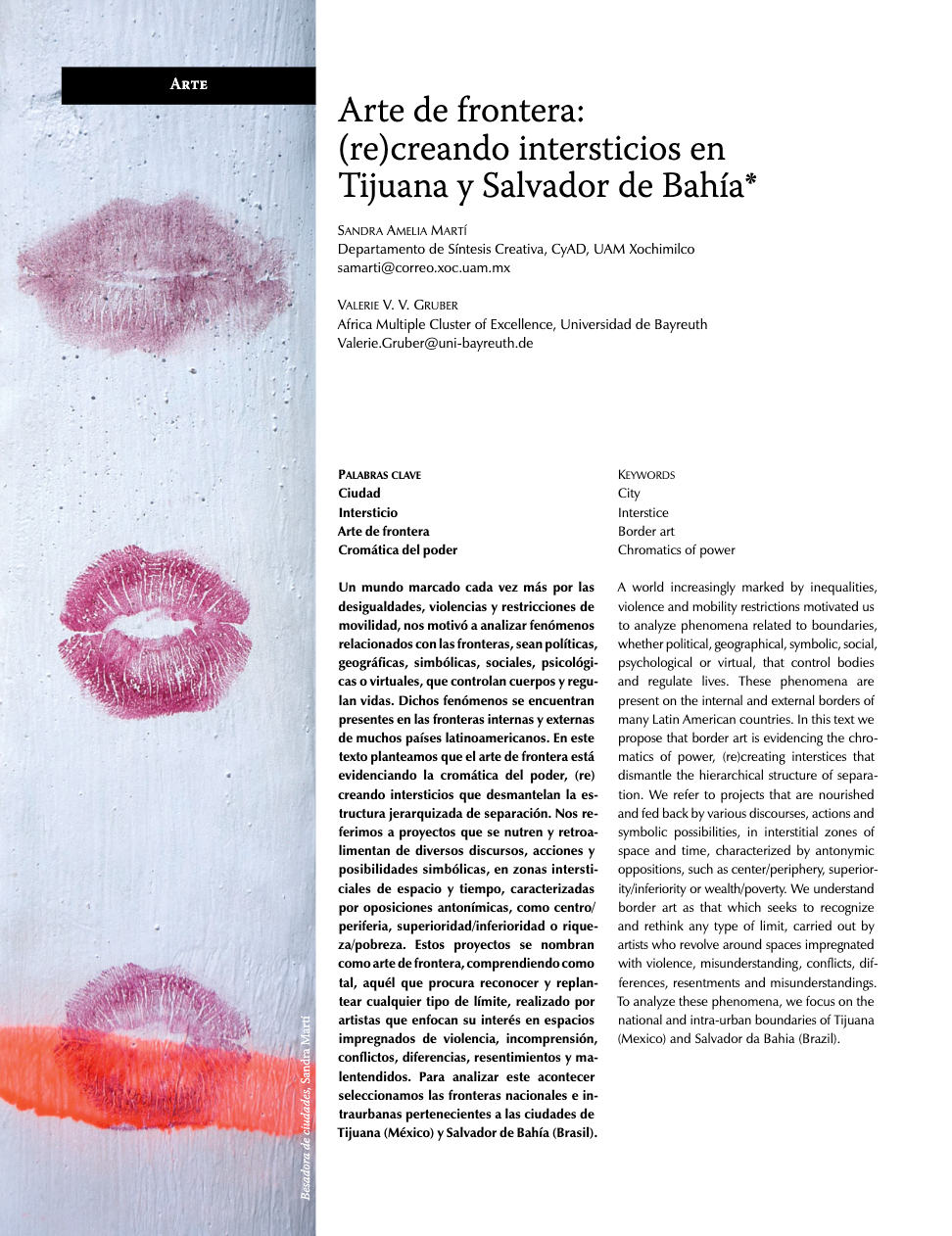
Arte de frontera: (re)creando intersticios en Tijuana y Salvador de Bahía
Martí, Sandra Amelia / Gruber, Valerie V. V. (2022): “Arte de frontera: (re)creando intersticios en Tijuana y Salvador de Bahía”, Revista Diseño y Sociedad 53, 54-67.
A world increasingly marked by inequalities, violence and mobility restrictions motivated us to analyze phenomena related to boundaries, whether political, geographical, symbolic, social, psychological or virtual, that control bodies and regulate lives. These phenomena are present on the internal and external borders of many Latin American countries. In this text we propose that border art is evidencing the chromatics of power, (re)creating interstices that dismantle the hierarchical structure of separation. We refer to projects that are nourished and fed back by various discourses, actions and symbolic possibilities, in interstitial zones of space and time, characterized by antonymic oppositions, such as center/periphery, superiority/inferiority or wealth/poverty. We understand border art as that which seeks to recognize and rethink any type of limit, carried out by artists who revolve around spaces impregnated with violence, misunderstanding, conflicts, differences, resentments and misunderstandings. To analyze these phenomena, we focus on the national and intra-urban boundaries of Tijuana (Mexico) and Salvador da Bahia (Brazil).
- Maurus, Sabrina: "Schoolchildren as Intermediaries: Fights over Children, Education and Power in ...Hide
-
Schoolchildren as Intermediaries: Fights over Children, Education and Power in Hamar on Ethiopia’s Southwestern Frontier
Maurus, Sabrina (2022): Schoolchildren as Intermediaries: Fights over Children, Education and Power in Hamar on Ethiopia’s Southwestern Frontier. In: Zeitschrift für Ethnologie,147, p. 157-171.
- Mühleisen, Susanne, and Billian Otundo: "Code-switching in the context of the speech act of advice: ...Hide
-
Code-switching in the context of the speech act of advice: A comparative analysis of radio phone-in programmes in Kenya and Cameroon
Mühleisen, Susanne, and Billian Otundo. 2022. Code-switching in the context of the speech act of advice: A comparative analysis of radio phone-in programmes in Kenya and Cameroon. Journal of the Language Association of Eastern Africa (JLAEA) 1(1): 1-15.
- Mühleisen, Susanne: "Genre in World Englishes: Case Studies from the Caribbean"Hide
-
Genre in World Englishes : Case Studies from the Caribbean
Mühleisen, Susanne: "Genre in World Englishes: Case Studies from the Caribbean".
Amsterdam : John Benjamins , 2022 . - VIII, 229 S. - (Varieties of English around the World ; G67 )
ISBN 9789027211385, DOI: https://doi.org/10.1075/veaw.g67 - Mühleisen, Susanne: "Introduction to the special issue: Formality and informality in online performances"Hide
-
Introduction to the special issue: Formality and informality in online performances
Mühleisen, Susanne. 2022. Introduction to the special issue: Formality and informality in online performances, in Formality and Informality in Online Performances. Internet Pragmatics 5 (1): 1-11. (Special issue – ed. with Sofia Rüdiger).
- Mühleisen, Susanne: "Talking about Creole: Language attitudes and public discourse in various Caribbean contexts"Hide
-
Talking about Creole: Language attitudes and public discourse in various Caribbean contexts
Mühleisen, Susanne. 2022. Talking about Creole: Language attitudes and public discourse in various Caribbean contexts, in Bettina Migge & Shelome Gooden, eds. Social and Structural Aspects of Language Contact and Change. Language Science Press, 263-287.
- Mühleisen, Susanne: "Tell Me Pastor: Certainty, Directness and the Assertion of Moral Norms in a Jamaican Newspaper Advice Column"Hide
-
Tell Me Pastor: Certainty, Directness and the Assertion of Moral Norms in a Jamaican Newspaper Advice Column
Mühleisen, Susanne. 2022. ‘Tell Me Pastor: Certainty, Directness and the Assertion of Moral Norms in a Jamaican Newspaper Advice Column.’ InGenre in World Eng-lishes: Case Studies from the Caribbean, by Susanne Mühleisen, 105–32. Amster-dam: John Benjamins Publishing Company.https://doi.org/10.1075/veaw.g67.
- Nascimento dos Santos, Daiana: "El océano como cronotopo de la modernidade en la novela contemporánea"Hide
-

El océano como cronotopo de la modernidade en la novela contemporánea.
En este trabajo se analiza la presencia del océano en dos novelas africanas, una escrita en portugués y la otra en español: Kalunga (2018), del angoleño Manuel Rui, y El metro (2007), de Donato Ndongo-Bidyogo, de Guinea Ecuatorial. A una discusión teórica sobre el océano en la literatura y la cultura de áfrica y América Latina le sigue un examen de sus referencias en esas novelas, en el contexto de los desplazamientos poblacionales históricos y actuales, y de la temática de la esclavitud, a partir de la tesis sobre el cronotopo de Michael Bakhtin.
Kalunga y El metro pertenecen a universos diferentes, separados por tradiciones lingüísticas y culturales, y por experiencias poscoloniales propias de cada uno de los textos que, no obstante, se superponen en el modo de representación del océano. En Kalunga, estas referencias se ubican en la experiencia histórica y su relación con la esclavitud en el pasado.
Nascimento dos Santos, Daiana. El océano como cronotopo de la modernidade en la novela contemporánea. In: Ineke Phaf-Rheinberger; Koichi Hagimoto (eds.). Geografías caleidoscópicas: América Latina y sus imaginarios intercontinentales. Madrid: Iberoamericana, 2022, pp. 57-71.
- Nascimento dos Santos, Daiana: "Palabras, sentidos y papilas gustativas en ‘Seios e ventres’ de Kanguimbu Ananaz"Hide
-
Palabras, sentidos y papilas gustativas en ‘Seios e ventres’ de Kanguimbu Ananaz
En este artículo se realiza un análisis del poemario Seios e ventres (2020), para indagar en cómo esta obra representa literariamente los modos de irrupción del patriarcado en el contexto de la literatura de Angola. Se considera que la obra utiliza un conjunto de estrategias estéticas, literarias y culturales para explorar las complejidades de la identidad femenina que sobresalen en el poscolonialismo, así como a la necesidad de repolitizar y reposicionar a las mujeres dentro de este contexto. Como aparato teórico serán considerados aportes importantes de los estudios literarios, poscoloniales y sobre oralidad para leer críticamente la obra poética que nos convoca.
Santos, D. N. , Péndola, P. Palabras, sentidos y papilas gustativas en ‘Seios e ventres’ de Kanguimbu Ananaz. Margens: Revista Interdisciplinar (UFPA), v. 15, n. 25, 93-104.
- Nchare, Karim: "Working Paper: Assessing African Regional Integration Potential: A Data Envelopment Analysis"Hide
-
Working Paper: Assessing African Regional Integration Potential: A Data Envelopment Analysis
This project proposes a quantitative approach to estimate untapped regional integration potential across the African Continent. We first construct an empirical production possibility frontier for regional integration outcomes based on two composite indices capturing respectively enabling factors and achieved levels of regional integration outcomes across various domains. As the composite index of achieved regional integration, we use the African Regional Integration Index (ARII) which aggregates information from various empirical indicators covering five dimensions of regional integration: trade integration, productive integration, macroeconomic integration, infrastructural integration, and movement of people. We then use data envelopment analysis to rate the performance of subregions in terms of integration relative to their estimated potential. The obtained efficiency scores allow us to quantify and compare the empirical magnitudes of untapped integration potential across countries and subregions. From a policy perspective, the proposed approach can be used to assess achievements in targeting subregions with certain needs and in identifying appropriate policy interventions that aimed at fostering higher integration in each subregion.
- Odhiambo, Christopher Joseph: "Reading the Uncanny in the Re-imagination...Hide
-
Reading the Uncanny in the Re-imagination of the PostColonial Kenyan Nation
Christopher Joseph Odhiambo: "Reading the Uncanny in the Re-imagination of the PostColonial Kenyan Nation In Malooned and Ni Sisi pp 69-80 in Reimagining Kenyan Cinema" eds Christopher Odhiambo and Charles Kebaya. Peter Lang, 2022.
- Olajide O, Lawanson Taibat: "Urban paradox and the rise of the neoliberal city: Case study of Lagos, Nigeria"Hide
-
Urban paradox and the rise of the neoliberal city: Case study of Lagos, Nigeria
Olajide O, Lawanson Taibat (2022) ‘Urban paradox and the rise of the neoliberal city: Case study of Lagos, Nigeria’. Urban Studies. 59(9): 1763-1781.
- Otundo, Billian: "Barriers to the implementation of the Education Article of the UNCRPD"Hide
-
Otundo, Billian. 2022. Barriers to the implementation of the Education Article of the UNCRPD
in Kenya. In Jeff Grischow & Magnus Mfoafo-M’Carthy (eds). Disability Rights and Inclusiveness in Africa: The United Nations Convention on the Rights of People with Disabilities, Challenges and Change. London: James Currey Publishers. 103-129
- Otundo, Billian and Martine Grice: "Intonation in advice-giving in Kenyan English and Kiswahili"Hide
-
Otundo, Billian and Martine Grice. 2022. Intonation in advice-giving in Kenyan English and Kiswahili.
Otundo, Billian and Martine Grice. 2022. Intonation in advice-giving in Kenyan English and Kiswahili. Speech Prosody 2022: 150-154.
- Otundo, Billian and Anne Nangulu: "They’re plotting against us`: Public narratives utilised by Kenyan community-based ...Hide
-
Otundo, Billian and Anne Nangulu. 2022. `They’re plotting against us`: Public narratives utilised by Kenyan community-based organisations advocating for land rights.
Otundo, Billian and Anne Nangulu. 2022. `They’re plotting against us`: Public narratives utilised by Kenyan community-based organisations advocating for land rights. Journal of the Language Association of Eastern Africa (vol 1), (3): 1-17.
- Ouma, Stefan: “The Double Enclosure of Co-Produced Knowledge"Hide
-
Ouma, Stefan. 2022. “The Double Enclosure of Co-Produced Knowledge: Moving Towards Open-Access Scholarly Infrastructure and Then All Good?” In Frontiers in African Digital Research : Conference Proceedings, edited by Anja Dreiser and Cyrus Samimi, 3–20: University of Bayreuth.
- Prokoph, N.; Donko, K. and Doevenspeck, M: "Between liberalization and securitization of intraregional mobility...Hide
-
Between liberalization and securitization of intraregional mobility - Negotiating ECOWAS' free movement in West African borderlands
Prokoph, N.; Donko, K. & Doevenspeck, M. (2022). Between liberalization and securitization of intraregional mobility - Negotiating ECOWAS' free movement in West African borderlands. Invited paper (accepted for submission) for an edited volume on “ECOWAS Protocol on Free movement and the AfCFTA in West Africa: Costs, benefits and challenges” edited by Samuel Okunade and Olusola Ogunnubi
- Rejoice, Abusta: "Cultural Pluralisms: Neo-Nollywood and Biyi Bandele’s Ẹlẹ́ṣin Ọba"Hide
-
Cultural Pluralisms: Neo-Nollywood and Biyi Bandele’s Ẹlẹ́ṣin Ọba
In Biyi Bandele’s last feature, Ẹlẹ́ṣin Ọba (2022), adapted from Wole Soyinka’s Death and the King’s Horseman, Bandele registers an awareness for the multiple film cultures that have shaped filmmaking in Nigeria. Ẹlẹ́ṣin Ọba is structured as a homage to the legacies of Yorùbá traveling theatricalities, while retaining the visual codes of contemporary cinema, including in the ways it co-opts traits of Western and neo-Nollywood filmmaking. In this analysis of Ẹlẹ́ṣin Ọba, I map the visual awareness it establishes of the legacies of filmmaking in Nigeria, while also centering the film’s thematic registers of colonial politics, cultural abjection, and gendered representations as constitutive of the colonial world in which the story is situated. I frame Bandele’s pluralistic approach as a spirited engagement with the unstable category that colonization produces for the erstwhile colonized person. That is, it is not only the characters in Ẹlẹ́ṣin Ọba who are forced to interplay between Yorùbá and British intellectual and cultural practices; Bandele, too, is placed in this complex interrogation, as embedded in his stylistic approach.
- Rüdiger, Sofia & Mühleisen, Susanne: "Formality and Informality in Online Performances"Hide
-
Formality and Informality in Online Performances
Rüdiger, Sofia & Mühleisen, Susanne, eds. 2022. Formality and Informality in Online Performances. Internet Pragmatics 4 (2). (Special issue). Amsterdam: Benjamins.
- Sawadogo/Compaoré Eveline M.F.W: "Agroecologie et changement climatique : experiences de Résilience des femmes...Hide
-
Agroecologie et changement climatique : experiences de Résilience des femmes au Centre Nord
Eveline M F W Compaoré Sawadogo, 2022, Agroecologie et changement climatique : experiences de Résilience des femmes au Centre Nord, In Bowendsom Claudine Ouédraogo Rouamba, Magnini Siendira et Fayama Tionyélé (dir) L’agroécologie sous le prisme de la recherche scientifique pluridisciplinaire, Ouagadougou, Edition harmattan, ISBN: ISBN : 978-2-343-22360-5 pp. 179- 189.
- Sawadogo/Compaoré Eveline M.F.W: "Résilience des commerçants (es) de denrées alimentaires des marchés ...Hide
-
Résilience des commerçants (es) de denrées alimentaires des marchés populaires de Ouagadougou face à la pandémie de la Covid-19
Sawadogo/Compaoré Eveline M.F.W. Bacyer Y. Fidèle, Sawadogo Natewinde 2022, Résilience des commerçants (es) de denrées alimentaires des marchés populaires de Ouagadougou face à la pandémie de la Covid-19, Science et Technique, Lettres, Sciences sociales et humaines, DIST/Centre National de la recherche scientifique et technologique, ISSN 1011-6028
- Sowe, S. K., Schoenfeld, M., Samimi, C., Steiner, P., & Schürer-Ries, A. : "Managing North-South ...Hide
-
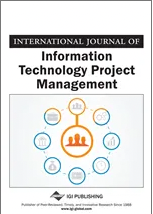
Sowe, S. K., Schoenfeld, M., Samimi, C., Steiner, P., & Schürer-Ries, A. (2022). Managing North-South Research Collaboration Projects During the COVID-19 Pandemic: An Empirical Study. International Journal of Information Technology Project Management (IJITPM), 13(1), 1-25.
Researchers from the Global North and South have collaborated for decades to conduct cutting-edge interdisciplinary research. The tools they used to manage their research projects remained virtually unchanged until the COVID-19 pandemic outbreak early in 2020. Since then, a lot has changed, including the nature and dynamics of research collaboration. How are researchers and project managers adapting to this change? Survey data, semi-structured interviews, and personal accounts from 102 respondents from 33 countries are used in this empirical study to investigate the impact of the pandemic on research collaboration projects. An independent non-parametric t-test revealed a significant difference in the research collaboration infrastructure and home environment between Global North and global South collaborators. The findings have practical implications for people involved in collaborative research projects, funding agencies, project management professionals, and universities interested in pursuing or sustaining North-South research collaboration during the pandemic. - Steuber, Florian, Sinclair Schneider, and Mirco Schoenfeld: „Embedding Semantic Anchors...Hide
-
Embedding Semantic Anchors to Guide Topic Models on Short Text Corpora
Steuber, Florian, Sinclair Schneider, and Mirco Schoenfeld. 2022. „Embedding Semantic Anchors to Guide Topic Models on Short Text Corpora“. Big Data Research 27 (Feb-ruary):100293. https://doi.org/10.1016/j.bdr.2021.100293.
- Vierke, Clarissa: "When the Emperor Travelled the Continent. On the Cosmopolis of Islamic Literature and its Adaptation ...Hide
-
When the Emperor Travelled the Continent. On the Cosmopolis of Islamic Literature and its Adaptation into African languages
Vierke, Clarissa. When the Emperor Travelled the Continent. On the Cosmopolis of Islamic Literature and its Adaptation into African languages. In: Susanne Gehrmann and Pepetual Mforbe (eds).: Crossings and Comparisons in African Literary and Cultural Studies. Series: Literaturen und Kusnt Afrikas. Trier: WVT. Pp. 13-37
2022 - III
- Adams, Julia ; Samimi, Cyrus ; Mitterer, Christina ; Bendix, Jörg ; Beck, Erwin:"Comparison of pasture types in the tropical Andes...Hide
-
Comparison of pasture types in the tropical Andes : Species composition, distribution, nutritive value and responses to environmental change
Adams, Julia ; Samimi, Cyrus ; Mitterer, Christina ; Bendix, Jörg ; Beck, Erwin:Comparison of pasture types in the tropical Andes : Species composition, distribution, nutritive value and responses to environmental change. In: Basic and Applied Ecology. Vol. 59 (2022) . - pp. 139-150. ISSN 1439-1791
- Akin-Otiko, Akinmayowa., Eshiet, Idongesit., Olokodana-James, Oluwatoyin., and Edisua, Merab Yta: "Re-Examining...Hide
-
Re-Examining Gender, Gender Roles and Identity in Nigeria: The Fattening Room Tradition of the Efik (Report of Fieldwork).
Akin-Otiko, Akinmayowa., Eshiet, Idongesit., Olokodana-James, Oluwatoyin., and Edisua, Merab Yta. Re-Examining Gender, Gender Roles and Identity in Nigeria: The Fattening Room Tradition of the Efik (Report of Fieldwork). University of Lagos Press and Bookshop Limited. 2022. (Gender Studies)
- Dogbeh, Richard: "Voyage au pays de Lénine"Hide
-
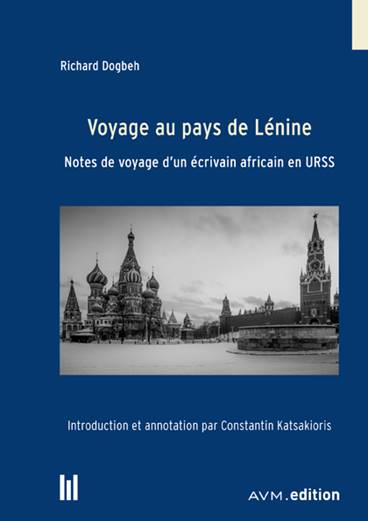
En septembre 1966, le poète dahoméen Richard Dogbeh effectue un voyage en Union soviétique suite à une invitation de l’Union des Écrivains de l’URSS. Il visite Moscou et Leningrad et participe à la Conférence internationale de solidarité avec le peuple vietnamien organisée à Bakou par l’Union des Écrivains. Il s’entretient avec de grandes figures des lettres de l’Union soviétique, dont l’écrivain Constantin Simonov et le poète Evguéni Evtouchenko.
Dans son carnet de Voyage au pays de Lénine, Richard Dogbeh relate ses impressions sur la vie culturelle et artistique, sociale et politique en URSS. Touché par la chaleur humaine et impressionné par les institutions culturelles et pédagogiques, il reste pourtant très critique face aux contraintes idéologiques imposes par le régime. Richard Dogbeh, qui n’était pas communiste, mais pas advantage anticommuniste, a pu voir avec lucidité en quoi le socialisme soviétique pouvait être source d’inspiration pour le développement social et culturel de l’Afrique, mais en quoi elle devait également s’en prémunir. Son récit constitue une source historique extraordinaire témoignant des préoccupations des intellectuels africains au lendemain de la décolonisation, nous permettant également de comprendre pourquoi l’URSS constituait alors une référence incontournable.Constantin Katsakioris est docteur de l’École des Hautes Études en Sciences Sociales à Paris et chercheur à l’Institut d’Histoire Mondiale de l’Université Charles de Prague.
Link to publication (Print Ausgabe)
Link to publication (Open Access Version) - Dreiser, Anja R; Samimi, Cyrus: "Frontiers in African Digital Research"Hide
-
This volume of the University of Bayreuth African Studies Online series comprises most of the talks given at the conference “Frontiers in African Digital Research” organized by the “Digital Solutions” portfolio of the Cluster of Excellence Africa Multiple that was held in the Iwalewahaus of the University of Bayreuth from 30 January to 1 February 2020.
But what is the Digital Solutions portfolio of the Cluster of Excellence and why are we talking of frontiers for our field? We consider some preliminary contextualizing remarks appropriate to start with.
The implementation of research data management units at German universities is a fairly recent development. The need for specialized units which, in view of the data deluge, manage and curate e-science processes according to the FAIR principles2 was in fact articulated in the field of natural sciences, such as astronomy, physics or climate studies, as the “fourth paradigm” back in 2009 more...
- García Kronenburg, Angela ; Haller, Tobias ; van Dijk, Han ; Warner, Jeroen ; Samimi, Cyrus: "Drylands, frontiers, and the politics of change"Hide
-
Drylands, frontiers, and the politics of change
García Kronenburg, Angela ; Haller, Tobias ; van Dijk, Han ; Warner, Jeroen ; Samimi, Cyrus:Drylands, frontiers, and the politics of change. In: García Kronenburg, Angela ; Haller, Tobias ; van Dijk, Han ; Samimi, Cyrus ; Warner, Jeroen (ed.): Drylands Facing Change. - London : Routledge , 2022 . - pp. 1-12 ISBN 9781003174486
- Gashure, Sibilo ; Wana, Desalegn ; Samimi, Cyrus: "Impacts of climate variability and climate-smart ...Hide
-
Impacts of climate variability and climate-smart agricultural practices on crop production in UNESCO designated cultural landscapes of Konso, Ethiopia
Gashure, Sibilo ; Wana, Desalegn ; Samimi, Cyrus: Impacts of climate variability and climate-smart agricultural practices on crop production in UNESCO designated cultural landscapes of Konso, Ethiopia. In: Theoretical and Applied Climatology. Vol. 150 (2022) . - pp. 1495-1511. ISSN 1434-4483 - Khan, Saeed Akhtar ; Vanselow, Kim A. ; Sass, Oliver ; Samimi, Cyrus: "Detecting abrupt change in land cover...Hide
-
Detecting abrupt change in land cover in the eastern Hindu Kush region using Landsat time series (1988–2020)
Khan, Saeed Akhtar ; Vanselow, Kim A. ; Sass, Oliver ; Samimi, Cyrus: Detecting abrupt change in land cover in the eastern Hindu Kush region using Landsat time series (1988–2020). In: Journal of Mountain Science. Vol. 19 (2022) Issue 6 . - pp. 1699-1716. ISSN 1993-0321
- ed.: Kronenburg Garcia, Angela ; Haller, Tobias ; Samimi, Cyrus ; Dijk, Han van ; Warner, Jeroen: " Drylands Facing ChangeHide
-
Drylands Facing Change : Interventions, Investments and Identities
ed.: Kronenburg Garcia, Angela ; Haller, Tobias ; Samimi, Cyrus ; Dijk, Han van ; Warner, Jeroen London : Routledge , 2022 ISBN 9781003174486
- Li, Qirui ; Samimi, Cyrus: "Sub-Saharan Africa's international migration constrains its sustainable development under climate change."Hide
-
Sub-Saharan Africa's international migration constrains its sustainable development under climate change
Li, Qirui ; Samimi, Cyrus: Sub-Saharan Africa's international migration constrains its sustainable development under climate change. In: Sustainability Science. Vol. 17 (2022) . - pp. 1873-1897. ISSN 1862-4057
- Matthews, Sally with P.S. Mataruse: "Commercialising the Struggle: The Organisational and Ideological Effects of Democracy...Hide
-
Commercialising the Struggle: The Organisational and Ideological Effects of Democracy Assistance on Opposition Activism in Zimbabwe
Matthews, Sally with P.S. Mataruse. 2022. Commercialising the Struggle: The Organisational and Ideological Effects of Democracy Assistance on Opposition Activism in Zimbabwe, Review of African Political Economy. DOI: 10.1080/03056244.2022.2026314
Link to publication - Matthews, Sally: "Moving from postcolonial critiques of development towards alternatives to development in Africa."Hide
-
Moving from postcolonial critiques of development towards alternatives to development in Africa.
Matthews, Sally.2022. Moving from postcolonial critiques of development towards alternatives to development in Africa. In: Neoliberalism and Unequal Development: Alternatives and Transitions in Europe, Latin America and Sub-Saharan Africa, edited by Fernando López Castellano, Carmen Lizárraga and Roser Manzanera Ruiz. London: Routledge
- McConnacie, Boudina: "Copyright complications and consequences at the International Library of African Music...Hide
-
Copyright complications and consequences at the International Library of African Music, Rhodes University
McConnacie, Boudina. 2022. Copyright complications and consequences at the International Library of African Music, Rhodes University – a case study. SAMUS.
- Mkalama, Ben., Ciambotti, G., & Ndemo, B: "Digital adoption in micro and small enterprise clusters...Hide
-
Digital adoption in micro and small enterprise clusters: a dependency theory study in Kenya
Mkalama, Ben., Ciambotti, G., & Ndemo, B. (2022). Digital adoption in micro and small enterprise clusters: a dependency theory study in Kenya. In Handbook of Digital Entrepreneurship (pp. 199-220). Edward Elgar Publishing.
- Moses Yakubu (Co-author): "Women, Resistance Movement and Colonialism in Africa: Evidence from Egypt, Kenya and Nigeria"Hide
-
Women, Resistance Movement and Colonialism in Africa: Evidence from Egypt, Kenya and Nigeria
Moses Yakubu (Co-author) (2022). “Women, Resistance Movement and Colonialism in Africa: Evidence from Egypt, Kenya and Nigeria,” in Allen F. & Amadi L. (eds.). Decolonizing Colonial Development Models in Africa: A New Postcolonial Critique. Rowman &Littlefield Publishing Group: Maryland.
- Ndemo, B., & Mkalama, B.:"Digitalization and Financial Data Governance in Africa...Hide
-
Digitalization and Financial Data Governance in Africa: Challenges and Opportunities.
Ndemo, B., & Mkalama, B. (2022). Digitalization and Financial Data Governance in Africa: Challenges and Opportunities.
- Njovane, Thando: “(Un)Homing and the Uncanny: The (Auto)Biographical Es’kia Mphahlele"Hide
-
(Un)Homing and the Uncanny: The (Auto)Biographical Es’kia Mphahlele
Njovane, Thando. “(Un)Homing and the Uncanny: The (Auto)Biographical Es’kia Mphahlele”. The Meaning of Foundational Writers Across a Century: Peter Abrahams, Noni Jabavu, Sibusiso Nyembezi, Es’kia Mphahlele. Ed. Bhekizizwe Peterson, Khwezi Mkhize and Makhosazana Xaba. Johannesburg: Wits University Press, 2022.
- Olokodana-James, Oluwatoyin: “Behind The Academic Mask: Appraising The Expertise of a Creative Designer, Administrator, And Cultural Activist”.Hide
-
Behind The Academic Mask: Appraising The Expertise of a Creative Designer, Administrator, And Cultural Activist
Olokodana-James, Oluwatoyin. “Behind The Academic Mask: Appraising The Expertise of a Creative Designer, Administrator, And Cultural Activist”. Duro Oni: Art, Design and Life 70th Birthday Commemorative Studies and Tributes. Sunday Enessi Ododo & Osita Ezenwanebe (Eds). National Theatre & Alpha Crownes Publishing: Rochester, United Kingdom. Pg. 214 – 227(Theatre and Film Studies)
- Olokodana-James, Oluwatoyin. "Evaluating Duro Oni’s Reflections in Selected Works in Theatre, Cinema, and National Development”Hide
-
"Evaluating Duro Oni’s Reflections in Selected Works in Theatre, Cinema, and National Development”
Olokodana-James, Oluwatoyin. “Evaluating Duro Oni’s Reflections in Selected Works in Theatre, Cinema, and National Development”. Duro Oni: Art, Design and Life 70th Birthday Commemorative Studies and Tributes. Sunday Enessi Ododo & Osita Ezenwanebe (Eds). National Theatre & Alpha Crownes Publishing: Rochester, United Kingdom. Pg. 321 – 332. (Theatre and Film Studies)
- Olokodana-James, Oluwatoyin: "Festivals and Dance as Catalysts for Ethno-Cultural Integration and Identity Formation"Hide
-
Festivals and Dance as Catalysts for Ethno-Cultural Integration and Identity Formation
Olokodana-James, Oluwatoyin. “Festivals and Dance as Catalysts for Ethno-Cultural Integration and Identity Formation”. Fragmented Identities in Nigeria: Sociopolitical and Economic Crisis. London, United Kingdom: Lexington Books (Rowman and Littlefield Publishing Group Inc. 2022. Pg. 151 – 161. (dance Studies)
- Oni, Peter: "Thinking Initiation for Leadership roles in Africa"Hide
-
Thinking Initiation for Leadership roles in Africa
Oni, Peter (2022) “Thinking Initiation for Leadership roles in Africa” in Journal of Philosophy and Culture, A journal of The Department of Classics and Philosophy, University of Cape Coast, Ghana. Vol. 10 (2) pp29-35 DOI: 10.5897 JPC 2020.0062
- Opondo, Paul: "Civil Society Organizations and Regional Integration in the East African Community (EAC)"Hide
-
Civil Society Organizations and Regional Integration in the East African Community (EAC)
Opondo, Paul 2022. Civil Society Organizations and Regional Integration in the East African Community (EAC): A Literature Review. In: International affairs and Global Strategy, Vol. 91. 2022
- OUATTARA, Bapindé, SAWADOGO, Natéwindé: "Intégration du numérique dans l'enseignement supérieur...Hide
-
Intégration du numérique dans l'enseignement supérieur : perspective à partir de l'expérience des enseignants sur la continuité pédagogique pendant la covid-19
OUATTARA, Bapindé, SAWADOGO, Natéwindé, 2022. « Intégration du numérique dans l'enseignement supérieur : perspective à partir de l'expérience des enseignants sur la continuité pédagogique pendant la covid-19 », Revue Internationale de Recherches et d’études Pluridisciplinaires, no5, pp. 413 à 430
- Sabbi, Matthew ; Neubert, Dieter ; Stroh, Alexander: "Social media is for the elite" : Local political ...Hide
-
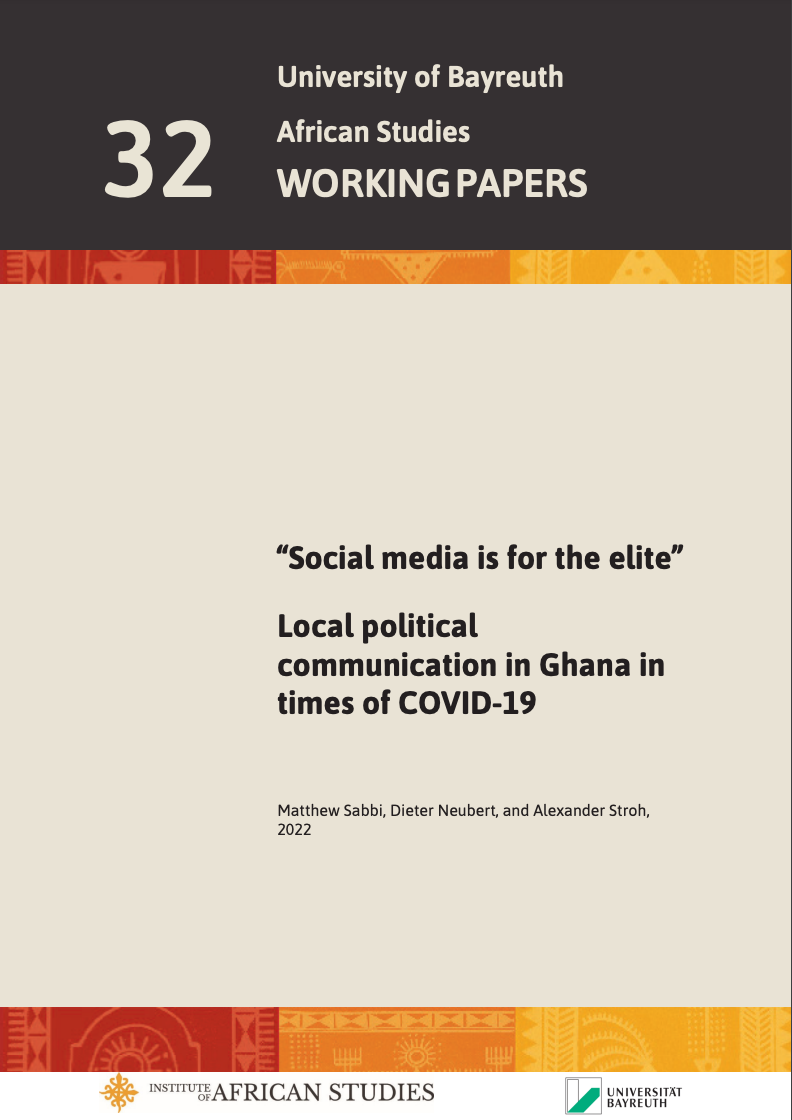
Sabbi, Matthew; Neubert, Dieter; Stroh, Alexander: "Social media is for the elite": Local political communication in Ghana in times of COVID-19.
- Samimi, Cyrus: "Environmental Change : Populism, Lobbyism, and Injustice."Hide
-
Environmental Change : Populism, Lobbyism, and Injustice.
Samimi, Cyrus: Environmental Change : Populism, Lobbyism, and Injustice. In: da Silva, Jamile Borges ; Figueiredo, Fábio Baqueiro ; Gomes, Patricia Godinho , Institute of African Studies, University of Bayreuth (ed.): A new Age of Extremes? : Anti-political Politics and Identity Remaking in the early 21st Century. - Bayreuth , 2023 . - pp. 147-177 . - (University of Bayreuth African Studies Online ; 10 )
- Sansone, Livio: "E. Franklin Frazier"Hide
-
E. Franklin Frazier
Sansone, Livio 2022. "E. Franklin Frazier", in Bernd Reiter & John Anton Sanchez eds. Routledge Handbook of Afro-Latin Studies, 572-576.
- Sansone, Livio: "Entangled fields Some Sources and Hypotheses for the Study of the History of Afro-Brazilian...Hide
-
Entangled fields Some Sources and Hypotheses for the Study of the History of Afro-Brazilian, African-American and African Studies in Brazil and the United States
Sansone, Livio 2022, "Entangled fields Some Sources and Hypotheses for the Study of the History of Afro-Brazilian, African-American and African Studies in Brazil and the United States". Cahiers des Amériques Latines 99: 277-297.
- Sansone, Livio: "Preserving African Afro-Brazilian memory"Hide
-
Preserving African Afro-Brazilian memory
Sansone, Livio 2022, "Preserving African Afro-Brazilian memory", ReVista. Harvard Review of Latin America. Special Issues on Museums. Fall 2022, V XXII,N. 3.
- Santos, Dominos; Shale, Rev Thebe: "Speaking with the Sea: Divination and Identity in South Africa"Hide
-
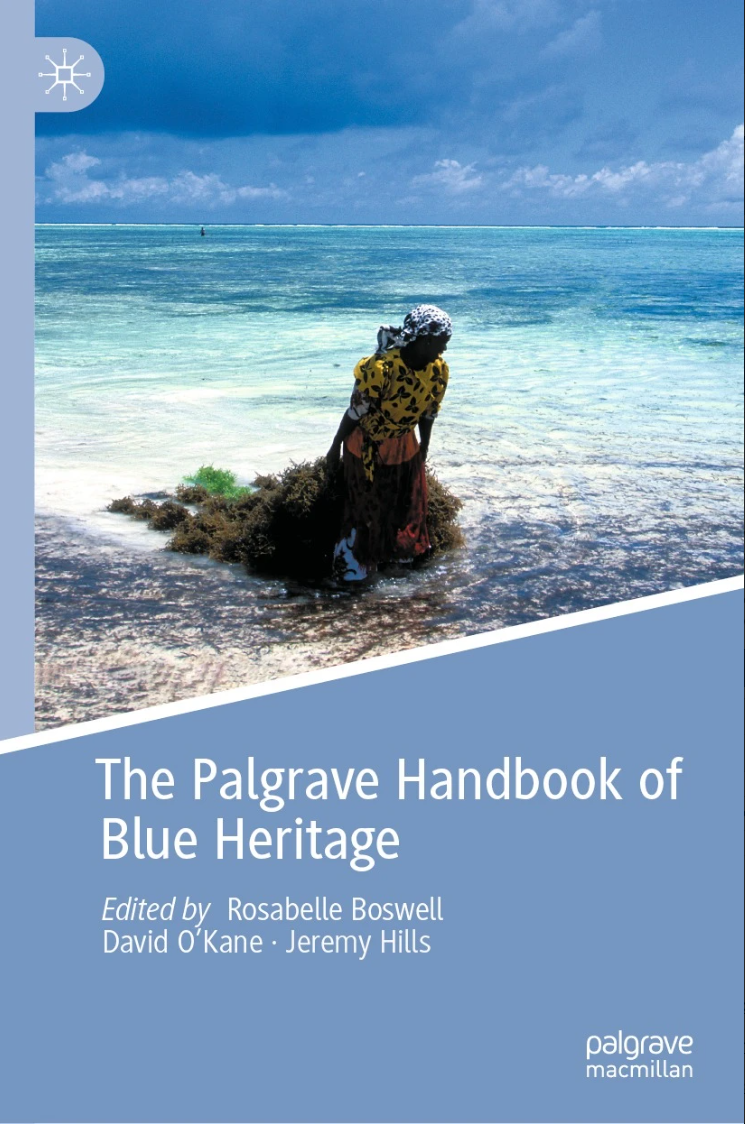
Drawing on frames of divination methodology, subaltern studies and radical participation, this paper begins a provisional process of considering what such engagements might look like as complementary research methodologies that locate indigenous technology not as object of study, but lead investigator to explore more fulsome representations of Portuguese slave shipwrecks and archival accounts of shipwreck survivors on the Indian Ocean coast of South Africa’s Eastern Cape province. We consider the intersection of this cosmological frame and divinatory insight with critique of the ecological consequences of the extractive world which has been created in the past few hundred years. This is revealing of the entanglements of ocean trade as ‘Blue Economy’ with indigenous conceptions of the water, ongoing concerns with social justice and the de-centering of colonial knowledge systems.
- SANWIDI, B. Jacob, SAWADOGO, Natéwindé: "La cartographie conceptuelle comme outil de formulation des résultats d'apprentissage attendus...Hide
-
La cartographie conceptuelle comme outil de formulation des résultats d'apprentissage attendus par les étudiants
SANWIDI, B. Jacob, SAWADOGO, Natéwindé, 2022. « La cartographie conceptuelle comme outil de formulation des résultats d'apprentissage attendus par les étudiants », Revue Nigérienne des Sciences Sociales (RENISS), no4, pp. 139 à 157
- Semde, Cyrille: "Bioethics between moral idealism and ethical realism."Hide
-
Bioethics between moral idealism and ethical realism
Semde, Cyrille: 2022. “Bioethics between moral idealism and ethical realism.”, Cahier du CERLESH, Issue No. 0796-5966, 343-361
- Somé, Boniface : "Discours d’acteurs de mouvements aasociatifs musulmans et maîtres coraniques entre négociation...Hide
-
Discours d’acteurs de mouvements aasociatifs musulmans et maîtres coraniques entre négociation et concertation pour la paix au Burkina Faso
Somé, Boniface 2022. “Discours d’acteurs de mouvements aasociatifs musulmans et maîtres coraniques entre négociation et concertation pour la paix au Burkina Faso”, in: Le terrorisme au Burkina Faso: négocier ou pas, ed. L’Harmattan. Paris: L’Harmattan
- Somé, Boniface: "Le terrorisme au Burkina Faso: négocier ou pas"Hide
-
Le terrorisme au Burkina Faso: négocier ou pas?
Somé, Boniface 2022. Le terrorisme au Burkina Faso: négocier ou pas? . Paris: L’Harmattan.
- Soré, Ousséni: "De l’histoire de la langue française : quelle(s) leçon(s) pour les Etats multilingues francophones africains?"Hide
-
De l’histoire de la langue française : quelle(s) leçon(s) pour les Etats multilingues francophones africains?
Soré, Ousséni 2022. De l’histoire de la langue française : quelle(s) leçon(s) pour les Etats multilingues francophones africains?, Uirtus Vol. 2, N°2, ISSN 2710-4699, pp.190-204. [Online] https://uirtus.net.
- Soré, Ousséni: "Pour une approche pédagogique intégratrice (API) de l’enseignement du français...Hide
-
Pour une approche pédagogique intégratrice (API) de l’enseignement du français quells regards des enseignants burkinabè?
Soré, Ousséni 2022. Pour une approche pédagogique intégratrice (API) de l’enseignement du français: quells regards des enseignants burkinabè? Djiboul Spécial, n°3, ISSN: 2710-4249. e-ISSN : 2789-0031, pp.103-116, [Online] : http://djiboul.org/2022/06/14/djiboul-specialn03/
- Sowe, Sulayman K. ; Schönfeld, Mirco ; Samimi, Cyrus ; Steiner, Petra ; Schürer-Ries, Anke: "Managing North-South Research ...Hide
-
Managing North-South Research Collaboration Projects During the COVID-19 Pandemic : An Empirical Study
Sowe, Sulayman K. ; Schönfeld, Mirco ; Samimi, Cyrus ; Steiner, Petra ; Schürer-Ries, Anke: Managing North-South Research Collaboration Projects During the COVID-19 Pandemic : An Empirical Study. In: International Journal of Information Technology Project Management. Vol. 13 (2022) Issue 1 . - No. 55.
ISSN 1938-0232 - Steppat, Michael: "Concepts of Culture: Developments and Genealogies"Hide
-
Concepts of Culture: Developments and Genealogies
Steppat, Michael. 2022. Concepts of Culture: Developments and Genealogies. Journal of Intercultural Communication & Interactions Research (N.Y.) 2(1).
- Steppat, Michael: "The African Imprint in Shakespeare"Hide
-
The African Imprint in Shakespeare
Steppat, Michael 2022. The African Imprint in Shakespeare. Athens Journal of Humanities & Arts 9, 1-33.
- Tchokothe, Rémi: "Le Franç(h)ais en Mode DésappartenUance dans Les Démons de l’Aube"Hide
-
Le Franç(h)ais en Mode DésappartenUance dans Les Démons de l’Aube
Tchokothe, Rémi 2022. Le Franç(h)ais en Mode DésappartenUance dans Les Démons de l’Aube, in: Le français et ses usages dans l’espace francophone. Créativités langagières et identités socio-discursives. En Hommage à Musanji Mwatha Ngalasso, Professeur émérite à l’université Bordeaux Montaigne, dirs. Barry, Alpha & Chadli, Yamna Abdelkader. Bordeaux: Presses Universitaires de Bordeaux
- Tchokothe, Rémi: "Out of their terrible stories comes beauty and that beauty ...Hide
-
Out of their terrible stories comes beauty and that beauty comes to a world that has once upon the time betrayed them
Tchokothe, Rémi 2022. Out of their terrible stories comes beauty and that beauty comes to a world that has once upon the time betrayed them, Interview with Hope Azeda, Stichproben/Vienna Journal of African Studies No. 42, 85-92.
- van Dijk, Han ; Samimi, Cyrus ; Zandler, Harald: "Climate variability and institutional flexibility...Hide
-
Climate variability and institutional flexibility: Resource governance at the intersection between ecological instability and mobility in drylands
van Dijk, Han ; Samimi, Cyrus ; Zandler, Harald: Climate variability and institutional flexibility : Resource governance at the intersection between ecological instability and mobility in drylands. In: García Kronenburg, Angela ; Haller, Tobias ; van Dijk, Han ; Samimi, Cyrus ; Warner, Jereon (ed.): Drylands Facing Change. - London : Routledge , 2022 . - pp. 15-31
ISBN 9781003174486
Link to publication - Vierke, Clarissa and Chapane Mutiua: “The Kaiser, Angoche and the World at Large...Hide
-
The Kaiser, Angoche and the World at Large. Swahili Poetry from Mozambique as World (War) Literature
Vierke, Clarissa and Chapane Mutiua. 2022. “The Kaiser, Angoche and the World at Large. Swahili Poetry from Mozambique as World (War) Literature.” In African Literatures as World Literatures, ed. Alexander Fyfe and Madhu Krishnan. New York: Bloomsbury.
- Vierke, Clarissa: "’The Sea Cannot Be Spoken.’” Thinking about Aesthetic Relations, the Poetics of Language(s) and Place through...Hide
-
"The Sea Cannot Be Spoken.’' Thinking about Aesthetic Relations, the Poetics of Language(s) and Place through Yvonne Owuor’s The Dragonfly Sea
Vierke, Clarissa. Forthcoming. “’The Sea Cannot Be Spoken.’” Thinking about Aesthetic Relations, the Poetics of Language(s) and Place through Yvonne Owuor’s The Dragonfly Sea.” In Decolonial Aestehtics II. Modes of Relating, ed. Patrick Oloko, Michaela Ott, Peter Simatei and Clarissa Vierke (eds.). Stuttgard: Metzler.
- Wild, Frederik; Stadelmann, David: "Coastal proximity and individual living standards: Econometric evidence from georeferenced household surveys in sub-Saharan Africa"Hide
-
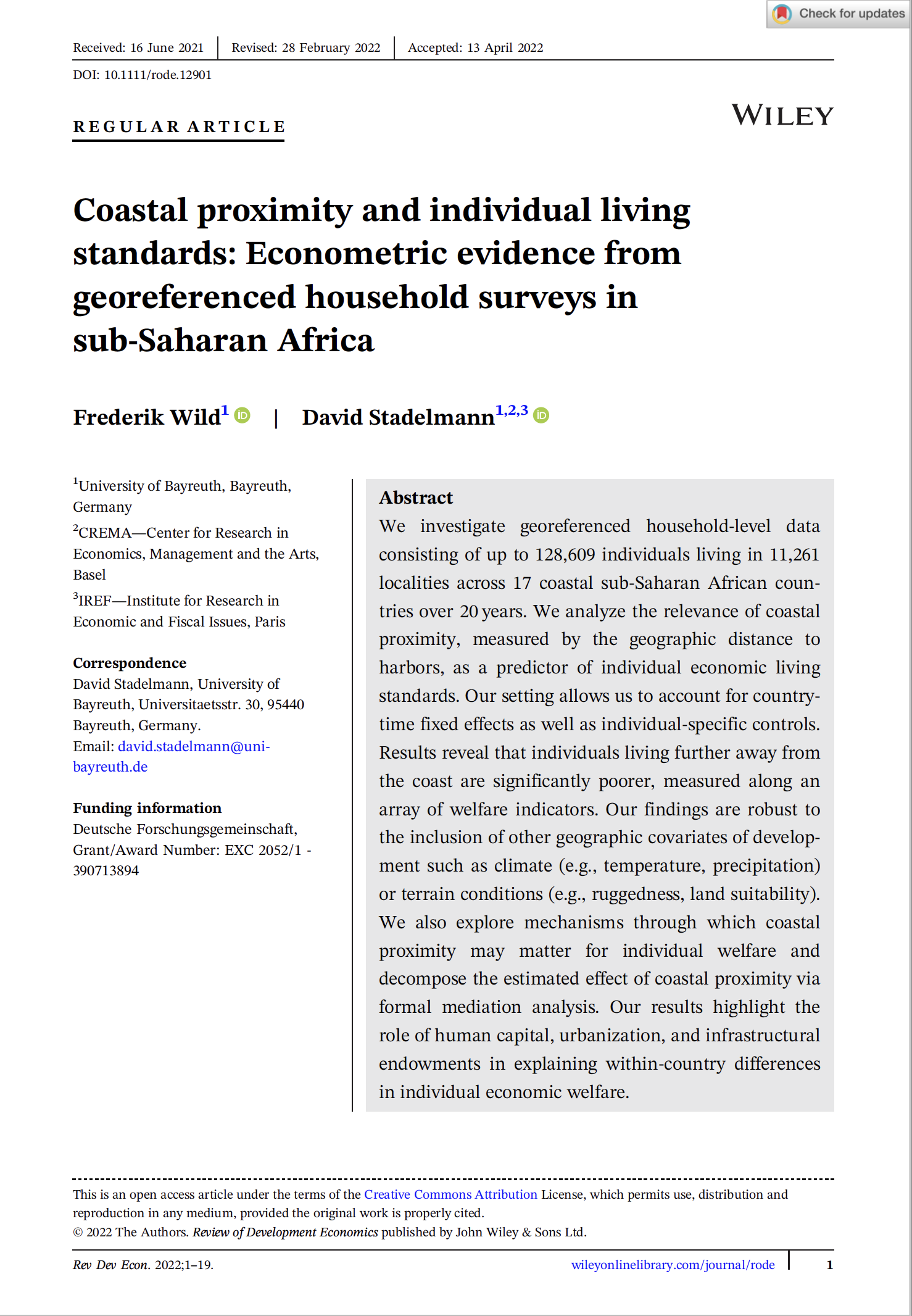
We investigate georeferenced household-level data consisting of up to 128,609 individuals living in 11,261 localities across 17 coastal sub-Saharan African countries over 20 years. We analyze the relevance of coastal proximity, measured by the geographic distance to harbors, as a predictor of individual economic living standards. Our setting allows us to account for countrytime fixed effects as well as individual-specific controls. Results reveal that individuals living further away from the coast are significantly poorer, measured along an array of welfare indicators. Our findings are robust to the inclusion of other geographic covariates of development such as climate (e.g., temperature, precipitation) or terrain conditions (e.g., ruggedness, land suitability). We also explore mechanisms through which coastal proximity may matter for individual welfare and decompose the estimated effect of coastal proximity via formal mediation analysis. Our results highlight the role of human capital, urbanization, and infrastructural endowments in explaining within-country differences in individual economic welfare.
- Yakubu, Moses, Franklin Aideloje & Babawale Taiwo: "An Analysis of the Crimes ...Hide
-
An Analysis of the Crimes Committed by the Multinational Joint Task Force
Yakubu, Moses, Franklin Aideloje & Babawale Taiwo (2022). “An Analysis of the Crimes Committed by the Multinational Joint Task Force,” JCEEAS-Journal of Central and Eastern European African Studies 2(1), 48-67.
2022 - II
- Afro-Asia # 65Hide
-
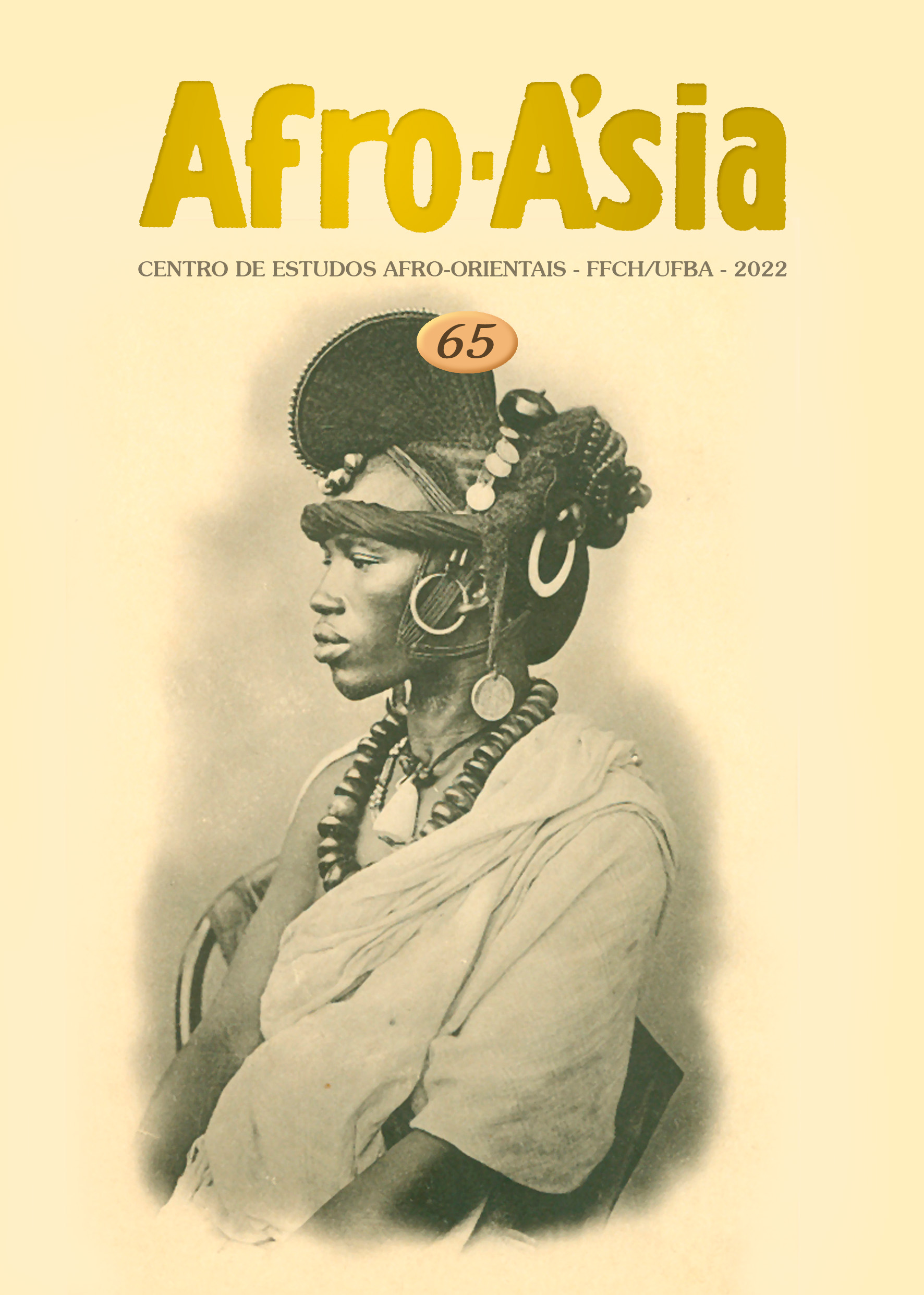
It is with great pleasure that we announce the publication of the newest edition of our journal, at afroasia.ufba.br. Afro-Asia n. 65 (2022) features a special dossier on the transatlantic slave trade in the era of illegality, as well as articles ranging from the Atlantic space in the 19th century to contemporary Brazilian rap, a tribute to Professor Olabiyi Yai (1939-2020), and an impressive collection of reviews.
- Arndt, Susan. "Rassistisches Erbe: wie wir mit der kolonialen Vergangenheit unserer Sprache umgehen"Hide
-
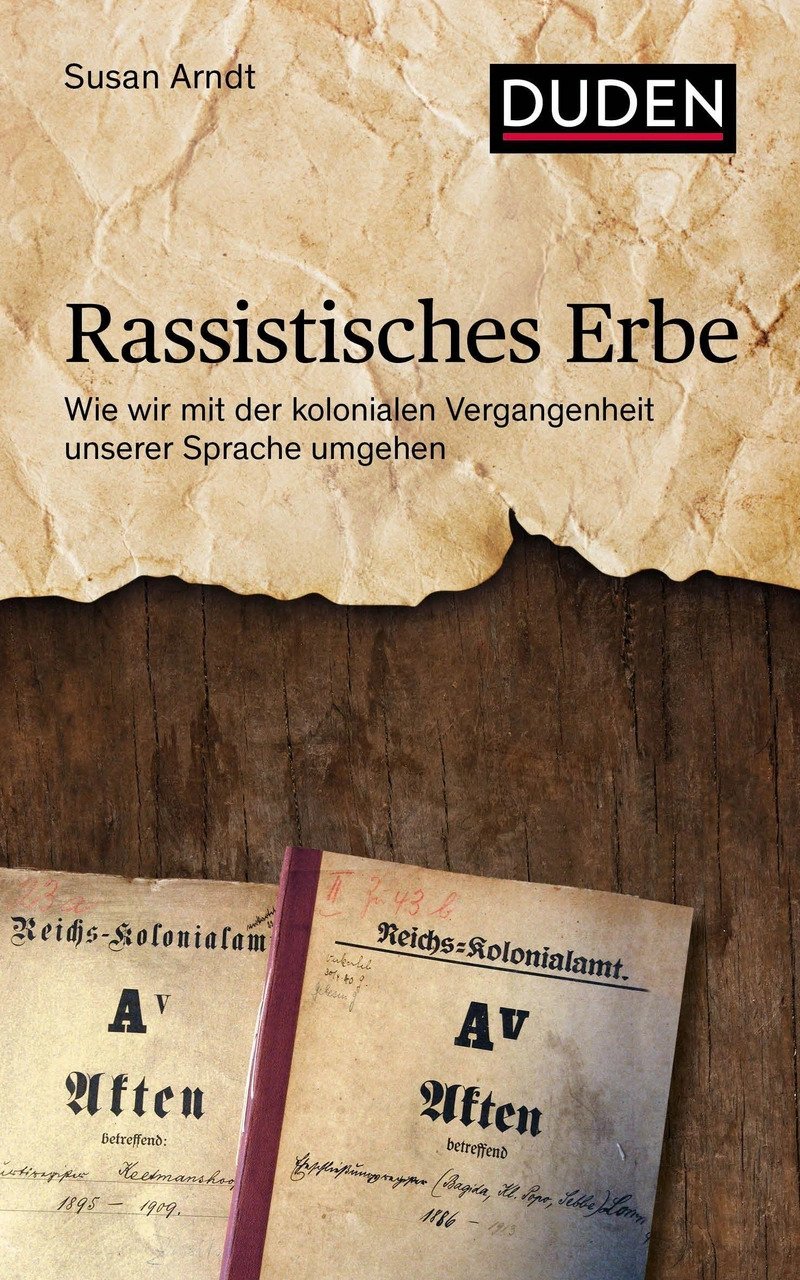
Bei der aufgeheizten politischen Debatte um sprachliche Grenzen und diskriminierende Wortverwendungen, stellt sich die Frage, welche Wörter man benutzen darf. Wo liegen beispielsweise die Unterschiede zwischen »Farbiger« und »Person of Color«? Dieses Buch erläutert, wieso das N-Wort aus der Sprache verschwindet und hinterfragt kritisch, welche vergangenen Denkmuster in Wörtern wie »Naturvolk«, »Eingeborene« und »Tropenmedizin« stecken. Die Kulturwissenschaftlerin Susan Arndt setzt sich entlang konkreter Beispiele mit dem kolonialen Erbe in unserer Sprache auseinander. Darüber hinaus diskutiert sie die Zusammenhänge zwischen Sprache und Macht. Sie zeigt, welche Möglichkeiten wir haben, mit der kolonialen Vergangenheit in unserer Sprache umzugehen und wie neuere Begriffsverwendungen, wie »Indigene Menschen« oder »weiß«, Alternativen bieten.
Arndt, Susan. Rassistisches Erbe: wie wir mit der kolonialen Vergangenheit unserer Sprache umgehen. Berlin: Dudenverlag, 2022. - Cezne, Eric; Hönke, Jana: "The multiple meanings and uses of South–South relations in extraction: The Brazilian mining company Vale in Mozambique"Hide
-
South-South relations have raised hopes of a new development geography – one based on solidarity and more horizontal partnerships among countries in the Global South. In recent years, however, many of these aspirations have proven far-fetched. In the case of Brazil, the presidency of Jair Bolsonaro may even suggest that the South–South hype is now over and done. However, empirical accounts of the engagement of Southern, emerging market-based multinationals across the Global South, such as that of Brazil’s mining corporation Vale in Mozambique, remain scarce. One missing perspective in defining South-South relations is the agency of other actors beyond emerging powers’ governments. This article therefore goes beyond the pre-eminence of the Brazilian state. Instead, it analyses how South–South relations have been signified and used by two critical actors in the context of Vale’s extractive operations in Mozambique: first, the professionals involved in corporate responsibility projects and second, the Mozambican power elites. There is a range of analyses of South–South ties, the imaginaries and hopes associated with them, and their practical possibilities which change according to the expectations, demands, and interests of different actors. We observe that Brazilian professionals in particular have built on specific cultural framings and imaginaries associated with South–South relations to claim a distinct vision and practice of corporate responsibility. Taking note of the prominent role played by Mozambique’s ruling party Frelimo, we further demonstrate how Mozambican power elites have harnessed, through gatekeeping practices, the country’s commodity-spurred architecture of South–South relations to reaffirm political power and amplify individual economic interests. In light of Vale’s current withdrawal from Mozambique, we posit that our analysis provides a timely opportunity to reflect on the multiple makings, and implications of South-South engagement, the controversies linked to the role of Brazilian capital in Africa, and Mozambique’s development through extraction.
- Hönke, Jana; Cezne, Eric; Mia Yang, Yifan: "Liminally positioned in the South : Re-interpreting Brazilian and Chinese relations with Africa"Hide
-
This article brings to fore long-standing intricacies and dilemmas in Brazilian and Chinese diplomatic and corporate narratives. It reveals the complex discursive repertoires shaping these countries’ sense of Self in the world, in the Global South, and, more particularly, in relation to Africa. It observes how constructing South–South relationships and invoking Southern identities have been ambiguous, indeterminate—thus liminal—endeavors in Brazil and China’s international positioning. The article also demonstrates, notwithstanding inherent tensions and contradictions, how Brazilian and Chinese actors have creatively acted upon this liminality to achieve foreign policy goals and frame economic projects in their African relations. The article engages the literature on Brazilian and Chinese relations with Africa, particularly in the post-2000s, to then introduce liminality as a concept to productively nuance and broaden available interpretations of their positioning vis-à-vis the Global South. This is followed by an analysis of how Brazil and China occupy ambiguous—and hence liminal—positions with(in) the “Global South”, based on dissecting Brazilian and Chinese diplomatic and corporate narratives towards Africa. We conclude by discussing the purchase of a liminality lens for understanding variegated positionalities in a changing international order and critically engaging them.
- Kresse, Kai and Clarissa Vierke: "Swahili language and literature as resources for Indian...Hide
-
Swahili language and literature as resources for Indian Ocean studies
Kresse, Kai and Clarissa Vierke. Swahili language and literature as resources for Indian Ocean studies. Special volume History Compass (2022): 1-14. DOI: 10.1111/hic3.12725
- Ndzovu, Hassan J.: "Kenyan Muslims Minority Status: Theological Divisions, Ethno-Racial Competition and Relations ...Hide
-
On the surface, Islam in Kenya presents a continued competition between Sufi-oriented orders and the Salafi-minded Muslims. This article argues that the controversies between “traditional” and “modern” forms of Islam in the country is an indication of the plurality of ways in which Muslims, in a minority context, makes sense of their religious identities. Changing political circumstances in Kenya in the colonial and the post-colonial eras changed the conditions of Muslims in Kenya, thereby explaining their present attitude towards the state. Since the commencement of the war on terror in 2001, Kenyan Muslims have been confronted with rising radicalization amongst certain members of the community and increasing cases of kidnapping and extra judicial killing targeting members of the Muslim population. The result is a complex and problematic relationship with the state, characterised by Muslims’ continuous demands for justice and equal treatment as citizens by the state.
Ndzovu, Hassan J. 2021 (published 2022): Kenyan Muslims Minority Status: Theological Divisions, Ethno-Racial Competition and Relations with the State. Islamic Africa, 12, pp. 240-259
- Ouma, S.: "Navigating the landscape of defiant scholarship in and beyond Africa: On archives, bridges and dangers"Hide
-

Ouma S (2022) Navigating the landscape of defiant scholarship in and beyond Africa: On archives, bridges and dangers. A commentary on Patricia Daley and Amber Murrey's ‘Defiant scholarship: Dismantling coloniality in contemporary African geographies’. Singapore Journal of Tropical Geography 43(2): 180–185.
- Scherer, Christine; R. Sooryamoorthy: "Doctoral training and higher education in Africa"Hide
-
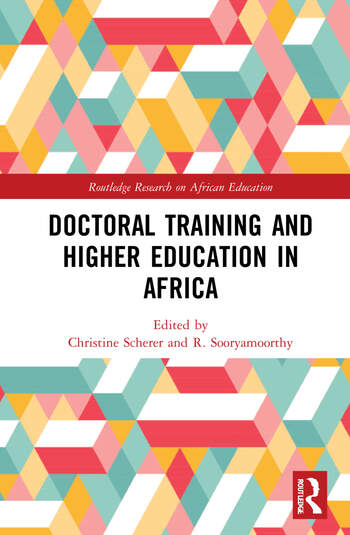
Drawing on insights from across Africa, this book investigates the discourses and practices that guide doctoral training today.
Higher education is regarded as key for driving development and innovation, creating an informed knowledge base equipped to tackle local and global challenges. For too long external forces defined education in the continent, but now African countries are revitalising higher education, designing doctoral training to fit distinctly African needs and contexts. This book investigates the history, present and future potential of doctoral training on international, regional, national and institutional levels. Bringing together expertise from both research and practice, the book analyses the frameworks and structures of the doctoral phase, and how institutions, supervisors, mentors and young scholars meet the challenges of training in real life. The book covers issues such as access to education, proactive recruitment, funding issues, practitioner expertise, enrolment and drop-out, across a range of countries including South Africa, Mozambique, Ethiopia, Nigeria, Benin, Ghana and Morocco.
This book will be a rich resource for higher education administrators and policy makers, as well as researchers and academics with an interest in higher education in Africa.
Scherer, Christine, und R. Sooryamoorthy, Hrsg. Doctoral training and higher education in Africa. Routledge research on African education. Abingdon, Oxon ; New York, NY: Routledge, 2022. - Schramm, Katharina;Plümecke, Tino : "Beständige Kopplungen. NaturenKulturen aktueller RassifizierungenHide
-
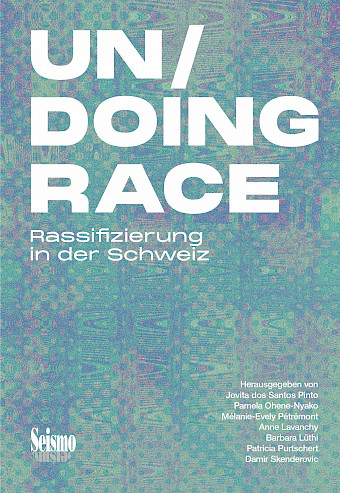
«‹Rassen› gibt es nicht!» Diesen Satz haben wohl alle, die sich mit Rassismus beschäftigen, so oder ähnlich bereits einmal gehört oder gelesen, und viele dürften ihn auch schon selbst einmal geäussert haben, um sich damit gegen ein biologisches Verständnis zur Einteilung von Menschen nach Herkunft und Hautfarbe abzugrenzen. Oft wird dabei auf die Autorität naturwissenschaftlicher Expertise rekurriert, wenn beispielsweise angeführt wird, dass «es keine ‹Rassen› gibt» (Arndt 2011, 660), dass «Rassen […] keine biologischen Tatsachen» seien, es «keine wissenschaftliche Basis für die Einteilung der Menschheit in Rassen» gebe (Degele 2008, 96) bzw. dass «‹Rassen› […] keine biologische Realität» hätten (El-Tayeb 2005, 7). Solche Aussagen sind wichtig, um gegen Versuche vorzugehen, soziale Ungleichheit, Ausbeutung und Rassismus mit biologischen Differenzierungen zu rechtfertigen. «Rasse» erscheint in derlei Äusserungen aber überwiegend als anachronistische Fiktion sowie als Produkt pseudowissenschaftlicher Verirrungen, denen in aufklärerischer Manier – so die Hoffnung – die Faktizität neuester wissenschaftlicher Erkenntnisse entgegenzusetzen sei. Doch die häufige Wiederholung dieser Aussagen hat bis heute weder biologische Rassifizierungen abgeschafft, noch Rassismus beendet. Zudem wird zumeist übersehen, dass dadurch die Biologie und insbesondere die Bedingungen und Praktiken biologischer Wissensproduktion der kritischen Betrachtung entzogen werden, wodurch wichtige Aspekte des Problems Rasse aus dem Blick geraten.
dos Santos Pinto, J., Ohene-Nyako, P., Pétrémont, M.-E., Lavanchy, A., Lüthi, B., Purtschert, P., Skenderovic, D. (Eds.), 2022. Un/doing Race. Seismo Verlag AG. https://doi.org/10.33058/seismo.30819 - Vierke, Clarissa: "An Intimate “Range of Elsewhere”: Sensuous Imaginaries of the Indian Ocean in Precolonial ...Hide
-
An Intimate “Range of Elsewhere”: Sensuous Imaginaries of the Indian Ocean in Precolonial Swahili Poetry
Vierke, Clarissa: An Intimate “Range of Elsewhere”: Sensuous Imaginaries of the Indian Ocean in Precolonial Swahili Poetry. Comparative Literature (2022) 74 (2): 156–170.
2022 - I
- Akolgo, Isaac Abotebuno: "Collapsing banks and the cost of finance capitalism in Ghana, Review of African ...Hide
-
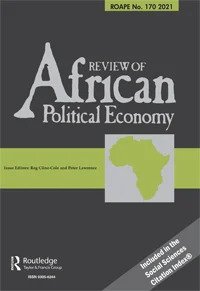
This briefing explains Ghana’s recent banking sector failures and renewed debt crisis as consequences of its uneven and deleterious integration into the global capitalist financial system, a situation that critical scholars in international political economy call international financial subordination.
- Alber, Erdmute: "No school without foster families in Northern Benin : A social historical approach."Hide
-
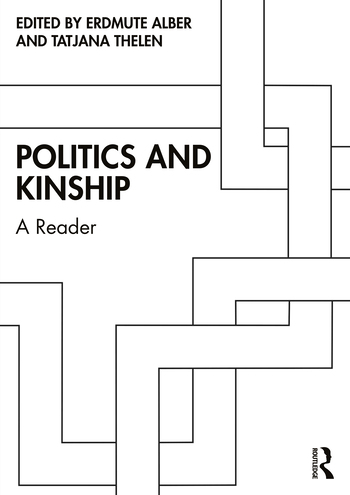
This chapter outlines the transformations of child fosterage among the Baatombu, which began with the colonization of the region by the French in 1898. The Baatombu are a peasant people who live in the northern parts of the Republic of Benin and in Northern Nigeria. In exchange, the warlords guaranteed protection against attacks from other warlords. The Borgu region – where the Baatombu settled – was far from being a peaceful area. Raids and attacks were an everyday occurrence. Behavioural patterns perceived as ‘anti-structures’ are frequently evident in areas dominated by ongoing violence. Many Baatombu narratives and oral traditions from pre-colonial times speak of fosterage as an institution that created peace and cohesion within kinship groups. A strong sense of shame between biological parents and biological children accompanied this conviction.
Alber, Erdmute:
No school without foster families in Northern Benin : A social historical approach.
In: Alber, Erdmute ; Thelen, Tatjana (Hrsg.): Politics and Kinship : A Reader. - London : Routledge , 2022 . - S. 252-265
ISBN 978-0-367-43484-7 - Alber, Erdmute; Thelen, Tatjana: "Politics and kinship: a reader"Hide
-

Politics and Kinship: A Reader offers a unique overview of the entanglement of these two categories in both theoretical debates and everyday practices. The two, despite many challenges, are often thought to have become separated during the process of modernisation. Tracing how this notion of separation becomes idealised and translated into various contexts, this book sheds light on its epistemological limitations. Combining otherwise-distinct lines of discussion within political anthropology and kinship studies, the selection of texts covers a broad range of intersecting topics that range from military strategy, DNA testing, and child fostering, to practices of kinning the state.
Beginning with the study of politics, the first part of this volume looks at how its separation from kinship came to be considered a ‘modern’ phenomenon, with significant consequences. The second part starts from kinship, showing how it was made into a separate and apolitical field – an idea that would soon travel and be translated globally into policies. The third part turns to reproductions through various transmissions and future-making projects. Overall, the volume offers a fundamental critique of the epistemological separation of politics and kinship, and its shortcomings for teaching and research. Featuring contributions from a broad range of regional, temporal and theoretical backgrounds, it allows for critical engagement with knowledge production about the entanglement of politics and kinship.
The different traditions and contemporary approaches represented make this book an essential resource for researchers, instructors and students of anthropology.
Alber, E., Thelen, T. (Eds.), 2022. Politics and kinship: a reader. Routledge, Abingdon, Oxon ; New York, NY. - Benedito, F. R.; Kandolkar, V.: "Canvas Adrift: Vamona Navelcar, Artist of the Unframed Ocean."Hide
-
Born in Portuguese Goa in 1929, trained in art in metropolitan Portugal while the empire was being decolonized in the 1960s, and then exiled in postcolonial Mozambique in the 1970s, Vamona Navelcar became an artist of three continents not solely by choice. Even as his work chronicles these diverse locations, these very transits have made Navelcar's legacy verge on disappearance. As this article argues, it is the politics of nationalism at the three continental sites that constitute Navelcar's life cartography that has defined this artist's trajectory and obscured his oeuvre. Although Navelcar's life and artistic connections across the Lusophonic Indian Ocean world demonstrate its multiplicities and convergences, it is the fixity of nation(s) that has undermined the complexity of such heritage and the artist's legacy.
Ferrão, R. Benedito and Vishvesh Prabhakar Kandolkar. "Canvas Adrift: Vamona Navelcar, Artist of the Unframed Ocean." Verge: Studies in Global Asias, vol. 8 no. 1, 2022, p. 108-140. Project MUSE
- Drescher, Martina: "Une étude comparative des discours sur le Covid-19 en Côte d'Ivoire et au Cameroun beaucoup de ...Hide
-
Une étude comparative des discours sur le Covid-19 en Côte d'Ivoire et au Cameroun beaucoup de peur et de questionnement
Drescher, Martina. Une étude comparative des discours sur le Covid-19 en Côte d'Ivoire et au Cameroun. Bayreuth: University of Bayreuth African Studies Working Papers ; 29 (Africa Multiple connects ; 4) 29 S. [mit Oumarou Boukari und Carline Liliane Ngawa Mbaho]
- Fendler, Ute; Löhr, Doris (eds.): "African Studies Centres Around the World"Hide
-
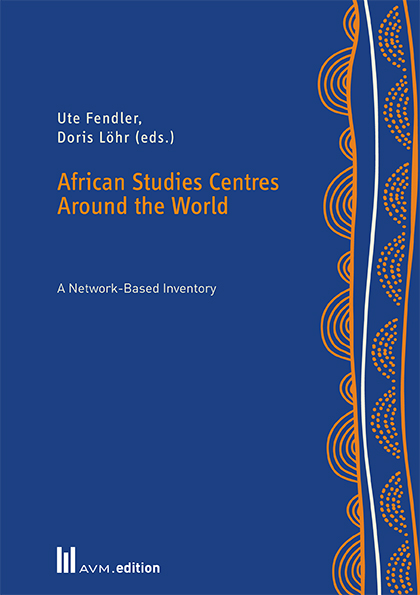
The book “African Studies Centres Around the World – A Network-Based Inventory” compiles a selection of contributions by the directors of eleven African Studies centres from four continents. They comprise Africa’s oldest centre on the continent, at the University of Cape Town, the European centres in Bordeaux, Lisbon and Hradec Králové and the two North American Universities of Florida and Indiana. Central and South America’s contributions to African Studies is represented by the centres in San José, Costa Rica, Santiago de Cuba and Salvador da Bahia, Brazil. The Asian centres are located at Jawaharlal University in Mumbai, India, and at Hankuk University of Foreign Studies in Seoul, South Korea. The eleven chapters show the very diverse history of the centres, explaining their different structures, underpinning the need for more exchange and collaborative research. The volume presents some aspects of the ongoing critical reflections on the historical and political development of African Studies in various parts of the world, disseminating first-hand knowledge while the chapters encourage to open the exchange and collaboration across regional, disciplinary and academic boundaries.
Fendler, Ute / Löhr, Doris (eds.)
African Studies Centres Around the World, A Network-Based Inventory, ISBN 978-3-95477-138-7 - Fendler, Ute: “Animating the Future: Storytelling and Super Heroes in Africa”Hide
-
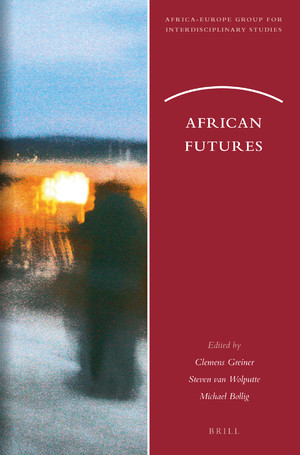
The essays in this collection are written to make readers (re)consider what is possible in Africa. The essays shake the tree of received wisdom and received categories, and hone in on the complexities of life under ecological and economic constraints. Yet, throughout this volume, people do not emerge as victims, but rather as inventors, engineers, scientists, planners, writers, artists, and activists, or as children, mothers, fathers, friends, or lovers – all as future-makers. It is precisely through agents such as these that Africa is futuring: rethinking, living, confronting, imagining, and relating in the light of its many emerging tomorrows.
Ute Fendler: “Animating the Future: Storytelling and Super Heroes in Africa”, in: African Futures, Ed. by Clemens Greiner, Steven Van Wolputte, and Michael Bollig, pp 237–250. Leiden: Brill Series: Africa-Europe Group for Interdisciplinary Studies, Band: 27
- Fendler, Ute: "En compagnie des hommes de Véronique...Hide
-
En compagnie des hommes de Véronique Tadjo : Un conte philosophique et écocritique sur l'épidémie d'Ébola
Fendler, Ute:
En compagnie des hommes de Véronique Tadjo : Un conte philosophique et écocritique sur l'épidémie d'Ébola.
In: Banhoro, Yacouba ; Traoré, Sidiki (ed.): La problématique de la maladie dans la littérature africaine écrite. - Ouagadougou : Presses Universitaires , 2021
ISBN 978-2-38390-000-9 - Mohr, Susanne: "Investigating English in Multilingual Contexts Online: Identity Construction in Geotagged Instagram Data"Hide
-
Tourism discourse, referring to communication in tourism as global industry, contributes to the creation of tourist spaces, where space is a social and affective construct as opposed to place as a geographical one. Tourists and hosts are part of these spaces and form them with their language practices, both offline and online. This article presents a case study of tourism discourse related to Zanzibar on Instagram, focusing particularly on linguistic repertoires, the role of English in them and language choices as well as their implications for identity construction. A central issue, in line with discourse-centred online ethnography, is the comparison of the digital data with previously collected data from the physical tourist space. Theoretically and methodologically, the concept of (linguistic) transnationalism is central for the study, which uses geotags and hashtags as means of data retrieval and framework of analysis to further this concept.
Mohr, S., 2022. Investigating English in Multilingual Contexts Online: Identity Construction in Geotagged Instagram Data. Front. Commun. 6, 778050. https://doi.org/10.3389/fcomm.2021.778050 - Neubert, Dieter: "Do western sociological concepts apply globally? Towards a global sociology"Hide
-
The post-colonial debate challenges the self-certainty of sociology and the suggested universality of its theoretical premises. This has led to calls to provincialize sociological theories and concepts and include perspectives from the South. Thus, we need to ask whether sociological concepts apply globally. Burawoy’s notion of a professional ‘global sociology’ offers a starting point for provincializing sociological concepts without giving up their global applicability. The problems involved in applying the core sociological category of class to Kenya show that classical sociological concepts may be inadequate for analysing societies outside the European and North American context. For the analysis of inequality, we need a more open and empirically founded concept in which the classical notion of class describes just a particular pattern of social structure. For the development of sociological concepts, we always require a broad empirical and intercultural basis in order not to be caught in the trap of Eurocentrism.
Neubert, Dieter 2022. Do western sociological concepts apply globally? Towards a global sociology. In: Sociology. Online first, January 2022
- Ndlovu-Gatsheni, S.J; Seesemann, R.; Vogt-William, C.: "African Studies in Distress: German Scholarship on Africa ...Hide
-
This paper is a response to Matthias Basedau’s article published in issue 55/2020 of the present journal. At a time when African Studies scholarship is rising beyond the flogging of dead horses, certain strands in the field in Germany seem to ignore much of the valuable scholarship and intellectual contributions by excellent African and non-African researchers alike. It is striking to see how Basedau falls prey to the same shortcomings that he draws our attention to, that is, the domination of African Studies by sources and figures outside the continent and the construction of Africa as a space of lack. This underscores the urgency of decolonizing African Studies at many levels, including liberating it from the straightjacket of area studies, interrogating purportedly objective scholarship, and opening it up to new theoretical perspectives. The restriction to comparative approaches will only ensure that these strands in African Studies remain stuck in their epistemological cul-de-sac.
1. Ndlovu-Gatsheni SJ, Seesemann R, Vogt-William C. African Studies in Distress: German Scholarship on Africa and the Neglected Challenge of Decoloniality. Africa Spectrum. February 2022. doi:10.1177/00020397221080179 - Oduro, Abena D.; Ouma, Stefan: "The Debate – why economists get Africa (really, really) wrong"Hide
-
On 3 December 2021, the University of Bayreuth hosted an Event Called “Africa: Why Economists get it (Really) Wrong”. This was our last instalment of a series of interventions organized by Stefan Ouma and Christine Vogt-William to make visible other ways of thinking about the economy beyond Western economic orthodoxies, centring radical African and African Diaspora scholars’ perspective. The event was staged as a debate between the Ghanaian political economist Franklin Obeng-Odoom, and Morten Jerven. It was moderated by Abena D. Oduro and Stefan Ouma.
Oduro, Abena D.; Ouma, Stefan (2022): The Debate – why economists get Africa (really, really) wrong
- Oloko, Patrick: "Peju Layiwola's Indigo Reimagined: Rethinking Adire in Yoruba Fashion ...Hide
-
Peju Layiwola’s Indigo Reimagined: Rethinking Adire in Yoruba Fashion and Textile Modernity
Publisher: Institute of African and Diaspora Studies, University of Lagos
ISBN: 978-978-990-855-4
Copyright Year: 2021
Editor: Patrick Oloko - Ouma, Stefan: "Agri-investment scholars of the world unite! The finance-driven land rush as boundary object"Hide
-
This response addresses several of the issues raised by the commentaries on my book Farming as Financial Asset – Global Finance and the Making of Institutional Landscapes (2020). Reflecting upon the intentions and limitations of the book, it makes a call for treating agri-investments to which scholars contribute from different geographical, theoretical, and methodological angles. In detail, it engages with the question of how farmland investments relate to other ‘asset classes’ in terms of the practical (and political) problem of institutional investibility, the material and human dimensions of institutional landscapes, the ownership question, as well as the challenge to write a book that has a global historical outlook and offers situated accounts at the same time. It also engages with questions of comparativism, methodology, and the political implications of an opening-the-black box approach.
Ouma, S. (2022) ‘Agri-investment scholars of the world unite! The finance-driven land rush as boundary object’, Dialogues in Human Geography. doi: 10.1177/20438206211069711.
- Hide
2021 - IV
- Anchimbe, Eric A.: " Age and Social Interaction": Linguistic Choices in Collectivist Postcolonial Contexts:Hide
-
Anchimbe, Eric A. 2021. Age and Social Interaction: Linguistic Choices in Collectivist Postcolonial Contexts. In Chiangong, Pepetual Mforbe (ed.), Old Age in African Literary and Cultural Contexts. Newcastle: Cambridge Scholars Publishing, 121-136.
- Anchimbe, Eric A.: "Individual Lives in Collectivist Faces: On Social Norms in a Radio Show"Hide
-
Anchimbe, Eric A. 2021. Individual Lives in Collectivist Faces: On Social Norms in a Radio Show. In Onysko, Alexander (ed.), Research Developments in World Englishes. London: Bloomsbury Academic, 231-249.
- Anchimbe, Eric A.: "Socio-ethnic stereotypes and the refusal of offers"Hide
-
Anchimbe, Eric A. 2021. Socio-ethnic stereotypes and the refusal of offers. Ghana Journal of Linguistics 10 (1): 1–20.
- Arndt, Susan: "Rassismus begreifen: Vom Trümmerhaufen der Geschichte zu neuen Wegen"Hide
-
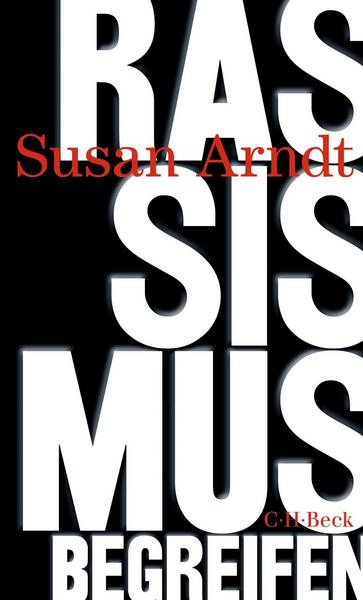
Rassismus ist eine der größten Katastrophen der Menschheitsgeschichte. Er wirkt bis in kleinste Zusammenhänge globaler und lokaler Strukturen hinein – und zwar als Ergebnis seiner viel zu langen Geschichte.
In ihrem aufrüttelnden Buch analysiert und problematisiert Susan Arndt diese Machtstrukturen von ihren Anfängen bis in unsere Gegenwart und zeigt, wie wir über Rassismus reden können, ohne ihn zu reproduzieren. Anti-Rassismus erfordert aktives Handeln und entsprechende Kompetenzen. Dafür braucht es Wissen und Argumente. Dieses Buch liefert sie.
Arndt, S., 2021. Rassismus begreifen eine Anleitung für Antirassisten und alle, die es werden wollen. - Behrends, Andrea: "Krieg, Flucht, Vertreibung : Ungewissheit in der Grenzregion zwischen Tschad und Sudan."Hide
-
Behrends, Andrea:
Krieg, Flucht, Vertreibung : Ungewissheit in der Grenzregion zwischen Tschad und Sudan.
In: Spektrum. Bd. 17 (Oktober 2021) Heft 1 . - S. 58-63. - Clemens, I.: "The emergence of innovations through the encounter of knowledges in "the local" : How fresh action ....Hide
-
In the contribution, first the concept of development and its interrelations with education is critically discussed. This leads to reflexions on the dysfunctionality of these educational concepts in certain so called non-western contexts in the majority world (also called global south). Instead of following the concept of development, the conditions, under which creativity and innovations can emerge in local contexts, are discussed from a network theory or relational perspective. As a basis, the emergence of knowledge in general is explained shortly, including also in line with the interest of the special issue in locality thoughts on indigenous knowledge. This approach is bringing together thoughts on localities, networks, and the emergence of knowledge with perspectives on conditions of possibilities for the emergence of innovations and creativity. I am using tools from the network theory to describe and analyse these relations and processes in detail. For the analysis, I will use an example from a Nigerian classroom.
Clemens, Iris:
The emergence of innovations through the encounter of knowledges in "the local" : How fresh action emerges in networks.
In: International Journal of Training and Development. Bd. 25 (Dezember 2021) Heft 4 . - S. 402-413.
ISSN 1468-2419
DOI: https://doi.org/10.1111/ijtd.12241 - Clemens, Iris: "The relationality of knowledge and postcolonial endeavours : analysing the definition, emergence, and ..."Hide
-
After an attempt to define knowledge and some comments on the biased, discriminating discussions in the past, the chapter draws attention to the approach of trading zones of knowledge as a basis for further argumentation of knowledge encounters. In the following, the process of travelling knowledge in the educational field will be discussed from a network theory perspective. While borrowing the notion of generative tensions by Verran (2001), the last part of the chapter uses an example from math classes in Nigeria to show the creative potential of such encounters of logic or knowledge. Then, some consequences will be discussed. The main goal of this chapter is to contribute to the decolonisation of the definition of knowledge as well as the analysis of its emergence and movement and to argue for the innovation potential through the encounter of knowledges.
Clemens, Iris:
The relationality of knowledge and postcolonial endeavours : analysing the definition, emergence, and trading of knowledge(s) from a network theory perspective.
In: Woldegiorgis, Emnet Tadesse ; Turner, Irina ; Brahima, Abraham (Hrsg.): Decolonisation of Higher Education in Africa : Perspectives from Hybrid Knowledge Production. - London : Routledge , 2021 . - S. 100-117
ISBN 9780367360603 - Clemens, Iris: "Wissen und der homo connectus : Überlegungen zu einem Grundbegriff der Erziehungswissenschaft aus ...Hide
-
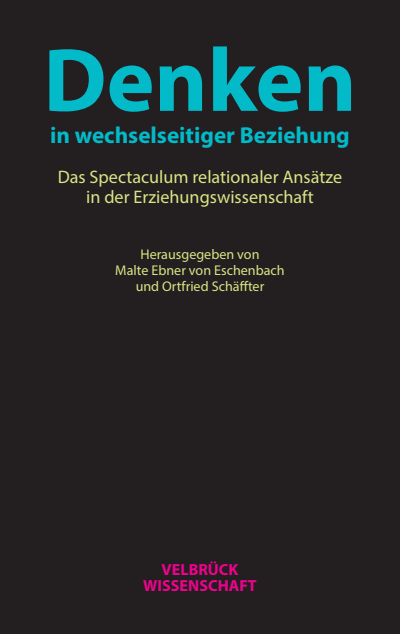
Clemens, Iris:
Wissen und der homo connectus : Überlegungen zu einem Grundbegriff der Erziehungswissenschaft aus einer relationalen Perspektive.
In: Ebner von Eschenbach, Malte ; Schäffter, Ortfried (Hrsg.): Denken in wechselseitiger Beziehung : Das Spectaculum relationaler Ansätze in der Erziehungswissenschaft. - Weilerswist : Velbrück Wissenschaft , 2021 . - S. 50-70
ISBN 978-3-7489-3124-9
DOI: https://doi.org/10.5771/9783748931249-50 - Dodounou, Tsevi and Billian Otundo: "Borrowed languages in Africa: A reflection on the reader-writer imaginary"Hide
-
Dodounou, Tsevi and Billian Otundo. 2021. Borrowed languages in Africa: A reflection on the reader-writer imaginary.
Dodounou, Tsevi and Billian Otundo. 2021. Borrowed languages in Africa: A reflection on the reader-writer imaginary. In Irina Turner, Emnet, Tadesse & Abrahim Brahima (eds). Decolonization in Higher Education. Routledge Publishers. 177-192.
- Donko, K.; Doevenspeck, M.; Beisel, U.: "Migration Control, the Local Economy and Violence in the Burkina Faso and ...Hide
-
The externalized European “migration management” in West Africa has technologically modernized and militarized border posts. This threatens visa-free travel, freedom of settlement and borderland economies in parts of the Economic Community of West African States (ECOWAS). It has interrupted historical mobility patterns, depleted the diversity of mobility practices and criminalized regional economies. At the same time, one can observe intensified and asymmetrical violent conflict in some of these borderlands. By taking the Kantchari-Makalondi borderland as a case study we analysed the relations between migration policies, insecurity, forced immobility and economic decline. Our observations and interviews with migrants, traders, security forces and borderlanders lead us to question conventional narratives on border control and African mobilities as a binary relation between Africa and Europe. Instead, they foreground the multiple practices of (im)mobility in these spaces: the circulation and blockage of travelers, merchandise, surveillance technologies, and military interventions and their impact on security and livelihoods.
- Fendler, Ute; Gruber, Valerie V. V.; Ndi, Gilbert Shang: "Relational Transdisciplinarity and Artistic/Academic Knowledge...Hide
-
Relational Transdisciplinarity and Artistic/Academic Knowledge Production
Fendler, Ute ; Gruber, Valerie V. V. ; Ndi, Gilbert Shang:
Relational Transdisciplinarity and Artistic/Academic Knowledge Production.
2021
Event: Annual Conference of the Africa Multiple Cluster of Excellence “Africa*n Relations : Modalities Reflected” , 14.-17. Jul. 2021 , Bayreuth, Deutschland , online. - Ferrão, R. Benedito: “The Music of Neoliberalism: ‘Only You’ in Roger King’s A Girl from Zanzibar,”Hide
-
Ferrão, R. Benedito, “The Music of Neoliberalism: ‘Only You’ in Roger King’s A Girl from Zanzibar,” Roadsides, Senses, 006 (November 2021), pp. 30-35
- Gadha, M.B.; Patnaik, P.; Sylla, N.S; Mahmoud, I.; Koddenbrock, K.; Kaboub, F.: "Economic and Monetary Sovereignty ...Hide
-
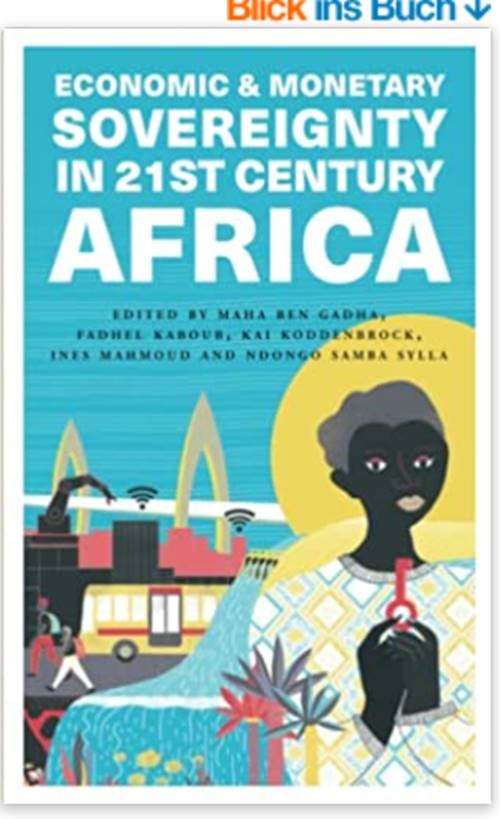
Over forty years after the formal end of colonialism, suffocating ties to Western financial systems continue to prevent African countries from achieving any meaningful monetary sovereignty. Economic and Monetary Sovereignty in 21st Century Africa traces the recent history of African monetary and financial dependencies, looking at the ways African nations are resisting colonial legacies. Using a comparative, multi-disciplinary approach, this book uncovers what went wrong after the Pan-African approaches that defined the early stages of independence, and how most African economies fell into the firm grip of the IMF, World Bank, and the EU’s strict neoliberal policies. This collection is the first to offer a wide-ranging, comparative and historical look at how African societies have attempted to increase their policy influence and move beyond neoliberal orthodoxy and US-dollar dependency. Economic and Monetary Sovereignty in 21st Century Africa is essential reading for anyone interested in the African quest for self-determination in a turbulent world of recurring economic and financial crisis.
Gadha, M.B.; Patnaik, P.; Sylla, N.S; Mahmoud, I.; Koddenbrock, K.; Kaboub, F., 2022. Economic and monetary sovereignty in 21st century Africa. - Greven, Katharina: "Das Archiv als Heimat"Hide
-
Greven, Katharina:
Das Archiv als Heimat : Die ‚Fantasie Afrika’ des Kunstpatrons Ulli Beier und der Künstlerin Georgina Beier. Bayreuth , 2021 . - 559 S. (Dissertation, 2020 , Universität Bayreuth, Bayreuth International Graduate School of African Studies - BIGSAS) - Ibrahim Bachir, Abdoulaye; Zainul Abideen, Jibril: "Turkey's Multidimentional Strategy Towards Africa"Hide
-
Since the late 1990s, Turkey has sought to develop its relations with African countries through various initiatives such as humanitarian, economic, cultural, political, defense, and others. The need for Ankara to play a crucial role beyond its traditional sphere of influence pushed it to engage with African coun- tries. Turkey and African countries’ relations began to strengthen in the early 2000s when the Justice and Development Party (AKP) came to power. Due to the importance of Africa in its new foreign policy orientation, Turkey declared 2005 as the Year of Af- rica. Since then, President Recep Tayyip Erdoğan has made 46 trips to 30 African countries, suggesting Africa’s strategic importance to Turkey.
Ibrahim Bachir, Abdoulaye; Zainul Abideen, Jibril (2021): "Turkey's Multidimentional Strategy Towards Africa"
- Kalfelis, M.: "With or Without the State. Moral Divergence and the Question of Trust in Security Assemblages in ...Hide
-
Since 2015, Burkina Faso has faced a rapid deterioration of national security, giving rise to new Security Force Assistance (SFA) programmes. This article investigates a ‘peacebuilding’ SFA project that assists in integrating state security forces, civil society, self-defence groups called Koglweogo, and the general population. Based on ethnographic fieldwork, which revealed social friction caused by the co-optation of the Koglweogo, the article examines the broad range of security practices and moralities within these ‘security assemblages’. Furthermore, by comparing how the different project participants try to make security work, the article challenges state-centred assumptions about vigilantism in Africa.
Kalfelis, Melina. 2021. „With or Without the State. Moral Divergence and the Question of Trust in Security Assemblages in Burkina Faso.“ Journal of Intervention and Statebuilding 15 (5): 1-16.
- Kasanda, Albert; Hrubec, Marek; "Africa in a Multilateral World. Afropolitan Dilemmas."Hide
-
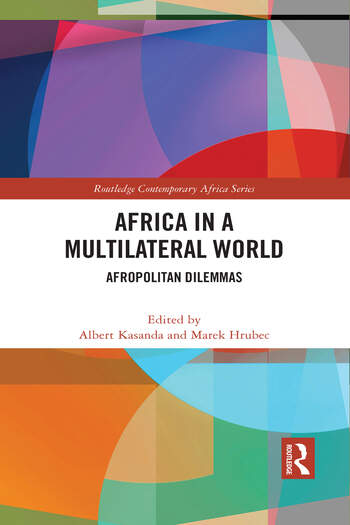
The book analyses how Africans and Africa relate to other parts of the multilateral world, and to the world in general, and how these relations stem from local, national and regional interactions in different parts of Africa, as well as Africa as a whole.
The first part focuses on the assumptions that are necessary to understand the role of Africa on the global stage, especially from the perspectives of political philosophy and global and international studies. The second part of the book looks at both Afropolitan trends and the limits of Afropolitanism. In the third part the authors focus on specific African global tendencies stemming from the local conditions in several case studies. Traditional and modern politics is connected, problematically, with the current Jihadist organisations in the local African conditions related to unilateralism and global war on terror, for example. The fourth part deals with the relevance of the language ambivalence in relation to global interactions. It examines various views of African philosophy and lays bare the perception of earlier colonial languages in view of their current strength of global action.
This book will be of interest to scholars of African studies, political philosophy, politics and global studies.
Kasanda, Albert, Hrubec, Marek eds. Africa in a Multilateral World. Afropolitan Dilemmas. London, Routledge, 2021
- Kinyera, P.; Doevenspeck, M.: "Wertschöpfungsketten und Konflikt – die East African Crude Oil Pipeline in Uganda"Hide
-
Paddy Banya Kinyera & Martin Doevenspeck (2021): Wertschöpfungsketten und Konflikt – die East African Crude Oil Pipeline in Uganda. In: Geographische Rundschau73.12: 32-36.
- Koddenbrock, Kai, Petry, J, Nölke A: "Financialization under state capitalism: Securities exchanges in emerging markets, Environment and Planning A: Economy and Space"Hide
-
Koddenbrock Kai, Petry, J, Nölke A: Financialization under state capitalism: Securities exchanges in emerging markets
- Lawanson, T.: "Planning and Pentecostalism in the spatial (re)configuration of Lagos, Nigeria."Hide
-
Lawanson . T (2021) Planning and Pentecostalism in the spatial (re)configuration of Lagos, Nigeria. Anjali M., Pellissery. S., and Aristazabal. J (Eds)" Theorising Urban Development from the Global South". London: Palgrave Macmillan
- Lawanson T.; Mogo.E: "The case for community-based approaches to integrated governance of climate change and health...Hide
-
In many low- and middle-income countries, urbanisation and urban developmentare characterised by hazards that conspire with climatic risks and socio-economic vulnerabilityto influence population health inequality now and in the future. A large part of theepidemiological profile across countries in the ‘Global South’, has been influenced by a rapidrate of urbanisation and interlinked factors such as climate and ecology. This necessitates anintegrated approach to governance for health and climate change. Through three case studiesin Lagos, we explore real-life examples that demonstrate these interdependencies, notingapproaches taken and missed opportunities. We conclude by reflecting on these experiences, aswell as historical examples of comprehensive systems approaches to health, to propose acommunity-oriented model for integrated climate change and health action in rapidly growingcities.
Oni, T., Lawanson, T., Mogo, E., 2021. The case for community-based approaches to integrated governance of climate change and health: perspectives from Lagos, Nigeria. JBA 9s7, 7–32. https://doi.org/10.5871/jba/009s7.007 - Lawanson, T.; Oyalowo. B; Nubi, T.: (2021) Delivering the Global Urban Development Agenda in Lagos, Nigeria ...Hide
-
Lawanson, T.; Oyalowo. B; Nubi, T.: (2021) Delivering the Global Urban Development Agenda in Lagos, Nigeria – A Local lens is needed. Nubi. T, Anderson, A, Lawanson T and Oyalowo. B (eds) Housing and SDGs in Africa. Singapore: Springer
- Liebelt, C.; Alber, E.; Häberlein, T.; Martin, J.; Maurus, S.; Thelen, T.; Zoanni, T.: "Revisiting Marilyn Strathern's ...Hide
-
Liebelt, Claudia ; Alber, Erdmute ; Häberlein, Tabea ; Martin, Jeannett ; Maurus, Sabrina ; Thelen, Tatjana ; Zoanni, Tyler:
Revisiting Marilyn Strathern's Relations : A Relational Reading.
In: Zeitschrift für Ethnologie. Bd. 146 (2021) Heft 1/2 . - S. 219-224.
ISSN 0044-2666 - Mark-Thiesen, C; Mihatsch, M.; Sikes, M.: "The Politics of Historical Memory and Commemoration in Africa"Hide
-
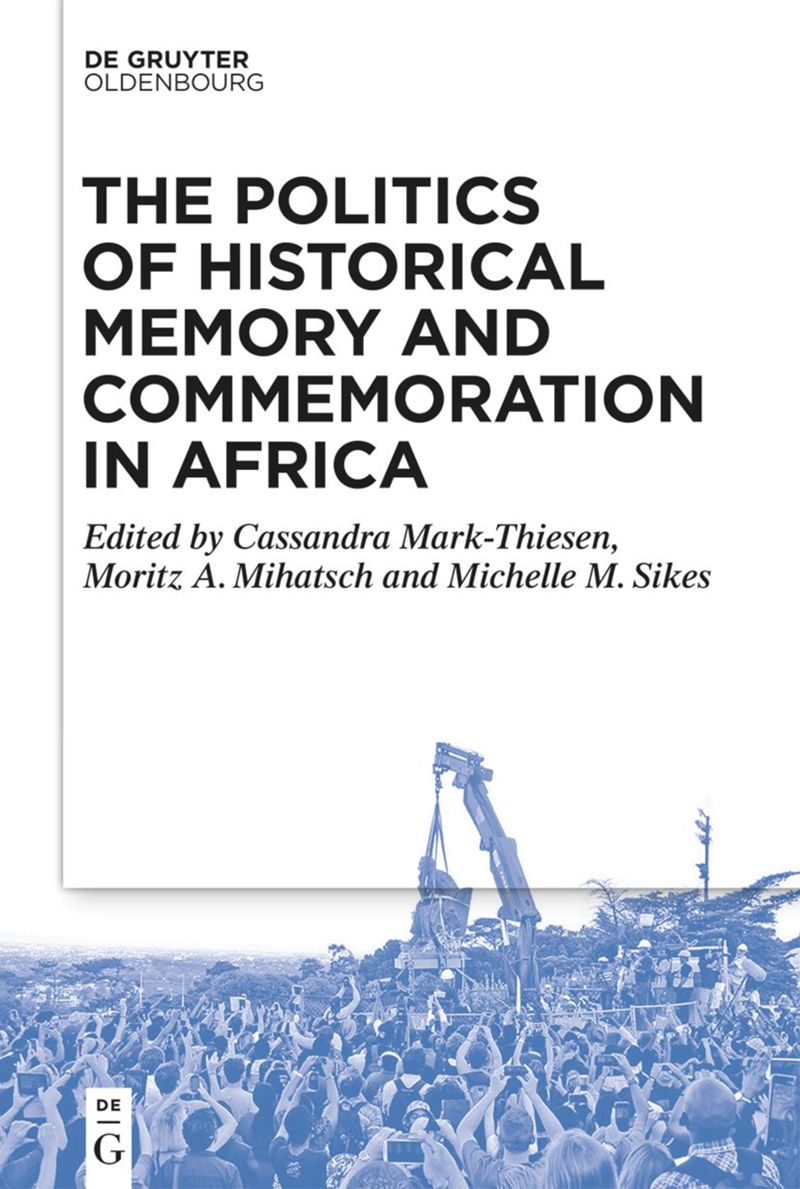
The volume observes some of the principles that drove Prof. Jan-Georg Deutsch's research: highlighting present-day politics for the way they shape historical remembrance, learning from people on the ground through fieldwork and oral history, and bringing various parts of the African continent into discussion with one another.
From Cape Town to Charlottesville, many societies are grappling with historical consciousness and the production of public memory. In particular, how and why societies remember and forget, what should serve as symbols of collective memory, and whether there exists space for multiple memory cultures are questions being vigorously debated once again. These discussions present particular challenges not only to official memory bound to ideological constructions of nationhood but also to the teaching of history and its links to social justice movements.
The volume re-centres Africa and African history in memory studies, with each chapter drawing parallels to comparable cases in Africa and the world. An underlying assumption is that what can be learned from the politics of historical memory in Africa will have relevance for contemporary politics globally and for understanding how memories can be mobilised for political ends.
Mark-Thiesen, C., Mihatsch, M., Sikes, M. (Eds.), 2021. The Politics of Historical Memory and Commemoration in Africa. De Gruyter. https://doi.org/10.1515/9783110655315
- MM Sikes, C Mark-Thiesen and M Mihatsch: "Public Memorialisation and the Politics ...Hide
-
Public Memorialisation and the Politics of Historical Memory in Africa
MM Sikes, C Mark-Thiesen and M Mihatsch, Public Memorialisation and the Politics of Historical Memory in Africa in The Politics of Historical Memory and Commemoration in Africa. [Open Access Chapter]
- Mohamed Seedat, Shahnaaz and Sabelo Ndlovu-Gatsheni: "‘Mbeki’s ‘I am an African Speech’: Mobilizing...Hide
-
Mbeki’s ‘I am an African Speech’: Mobilizing Psycho-Political Resources for Political Reconstitution of Post-Apartheid South Africa.
Mohamed Seedat, Shahnaaz and Sabelo Ndlovu-Gatsheni, ‘Mbeki’s ‘I am an African Speech’: Mobilizing Psycho-Political Resources for Political Reconstitution of Post-Apartheid South Africa.’ African Studies. 80 (3-4), pp. 451-465.
- Mühleisen, S.: "Brutal spoons and cheesy gloves : the formal, the informal and the spoof cooking show on Web stage"Hide
-
In its long presence on television and the internet, the genre of the cooking show has changed and diversified significantly. The initial principally instructional character has given way to more entertaining sub-genres, including parodic ones, that is, ‘spoof cooking shows’ on the internet. The presentation of self ( Goffman 1959 ) takes on many forms in everyday life, but the possibilities of publicly managing one’s own impression have enormously increased on the largest stage in the world, the internet (cf. Shulman 2017 ). The blurring of the Goffmanian concepts ‘front-’ and ‘backstage’ are important here in the presentation of self as ‘fake’ or ‘real’ person on the web. This article looks at the diversification of the genre of the cooking show in its transition to the internet, first by investigating strategies of formality or informality ( Irvine 1979 , 2001 ), then by exploring a particular spoof show, Cooking with Paris, as an example of how genre conventions are manifested by undermining.
Mühleisen, Susanne:
Brutal spoons and cheesy gloves : the formal, the informal and the spoof cooking show on Web stage.
In: Internet Pragmatics. Bd. 4 (2021) .
ISSN 2542-386X
DOI: https://doi.org/10.1075/ip.00073.muh - Mühleisen, S.: " Diaspora, migration and translocation in the spread of English : In search of English-speaking diasporas"Hide
-
Mühleisen, Susanne:
Diaspora, migration and translocation in the spread of English : In search of English-speaking diasporas.
In: Schneider, Britta ; Heyd, Theresa (Hrsg.): Bloomsbury World Englishes. Volume 1. Paradigms. - London ; New York ; Oxford ; New Delhi ; Sydney : Bloomsbury Academic , 2021 . - S. 113-127
ISBN 978-1-3500-6583-3
DOI: https://doi.org/10.5040/9781350065833.0014 - Mühleisen, Susanne: "Linguistics and Cultural Studies : A Story of Division and Common Ground."Hide
-
Mühleisen, Susanne:
Linguistics and Cultural Studies : A Story of Division and Common Ground.
In: Journal for the Study of British Cultures. Bd. 28 (2021) Heft 1 . - S. 125-129.
ISSN 0944-9094 - Müller, S.; Spies, E.; Wagner, H.: "Religion und Entwicklungszusammenarbeit. Positionen aus Politik, Praxis und ...Hide
-
Religion und Entwicklungszusammenarbeit : Positionen aus Politik, Praxis und Afrikaforschung.
Hrsg.: Müller, Sebastian ; Spies, Eva ; Wagner, Heike
Baden-Baden : Nomos , 2021 . - 180 S. - (Bayreuther Studien zu Politik und Gesellschaft in Afrika ; 9 )
ISBN 978-3-8487-7996-3 - Müller, Sebastian ; Spies, Eva ; Wagner, Heike: "Religion und Entwicklungszusammenarbeit : Positionen aus ...Hide
-
Religion und Entwicklungszusammenarbeit : Positionen aus Politik, Praxis und Afrikaforschung
ed.: Müller, Sebastian ; Spies, Eva ; Wagner, Heike Baden-Baden : Nomos , 2021 . - 180 p. - (Bayreuther Studien zu Politik und Gesellschaft in Afrika ; 9 ) ISBN 978-3-8487-7996-3
- Musch, Tilman: "Déclin et ancienne plénitude d’un village au Tibesti"Hide
-
Déclin et ancienne plénitude d’un village au Tibesti.
Musch, Tilman. 2021. Déclin et ancienne plénitude d’un village au Tibesti. Une « archéologie locale » par les habitants de Zoui. Africa. Rivista semestriale di studi e ricerche. III/1. 49-68.
- Musch, Tilman, Sediké, Mahuma Abaliy: "DAGA TUDAA. Pensées Toubou: Proverbes du Sahara Central."Hide
-
DAGA TUDAA. Pensées Toubou: Proverbes du Sahara Central
Musch, Tilman (editor): Sediké, Mahuma Abaliy. 2021. DAGA TUDAA. Pensées Toubou: Proverbes du Sahara Central. [Saharastudien / Saharan Studies / Études Sahariennes].
- Ndi, Gilbert Shang: "Memories of Violence in Peru and the Congo : Writing on the Brink."Hide
-
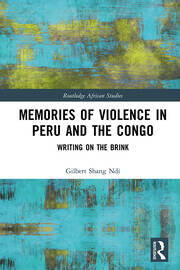
The book presents an intertextual and comparative analysis of memories of violence in Peruvian and Congolese Literature.
Examining a variety of novels that offer insightful representations of violence in their respective historical settings, the author argues that similar historical experiences between Latin America and Africa engender ethical/aesthetic responses and enhance trans-continental critical dialogues in comparative literary studies. In the same way that the drama of the Congo has become the symbolic open wound of (post)colonial dispensation in Africa, Spanish conquest in Latin America also produced spaces where the legacy of colonialism is strongly visible and memorable, providing fertile ground for the reproduction of violence. This book explores the concept and reality of violence beyond its most obvious manifestations, demonstrating how in the colonial contexts of Peru and the Congo, violence was a function of (post)colonial power dynamics and deeply engrained socio-political, economic and cultural ordering and othering. From this perspective, the work considers and re-examines theoretical contributions from authors such as John Galtung, Michel Foucault, Immanuel Wallerstein, Anibal Quijano, Frantz Fanon, Achille Mbembe, Eboussi Boulaga, Pierre Nora, Susan Sontag, Stevan Weine, Cathy Caruth and Nelson Maldonado-Torres.
This book will be of interest for scholars working on how violence is explored and represented in literature and other art forms.
Ndi, Gilbert Shang:
Memories of Violence in Peru and the Congo : Writing on the Brink.
London ; New York : Routledge , 2021 . - 239 S. - (Routledge African Studies )
ISBN 978-0-367-74503-5
DOI: https://doi.org/10.4324/9781003158202 - Ndlovu-Gatsheni, Sabelo J.: "The primacy of knowledge in the making of shifting modern global imaginaries."Hide
-
Ndlovu-Gatsheni, Sabelo J.:
The primacy of knowledge in the making of shifting modern global imaginaries.
In: International Politics Reviews. Bd. 9 (2021) Heft 1 . - S. 110-115.
ISSN 2050-2990
DOI: https://doi.org/10.1057/s41312-021-00089-y - Ndlovu-Gatsheni, Sabelo J. : "Le Long Tournant Decolonial Das Les Etudes Africaines: Defis De La...Hide
-
Le Long Tournant Decolonial Das Les Etudes Africaines: Defis De La Reecriture De L’Afrique
Sabelo J. Ndlovu-Gatsheni, ‘Le Long Tournant Decolonial Das Les Etudes Africaines: Defis De La Reecriture De L’Afrique (The Decolonial Turn(s) in African Studies: The Challenges of Rewriting Africa).’ Politique Africaine: L’Afrique Des Sciences Sociales: Bas, Debats, Combats, 161-162 (1-2), 2021. pp. 449-472.
- Ndlovu-Gatsheni, Sabelo J. : "Beyond Coloniality of Internationalism"Hide
-
Beyond Coloniality of Internationalism
Envisioning a world beyond global coloniality entails unthinking thinking of today and indeed an epistemic revolution which enables a writing of a different future. According to Hamid Dabashi (2019: 183) Europe and the rest of the world have long ‘‘collapsed on each other’’ and what is urgently needed is ‘a switching off and switching on of a vastly different phantasm of peace from the phantasm of war, rethinking what is dignified from what is dishonourable.’’ How this can be achieved Dabashi (2019: 183) suggests that ‘by first and foremost putting people before war, reality before abstractions, Christians before Christianity, Jews before Judaism, Muslim before Islam, atheists before old and new atheism, agnostics before agnosticism’’ because ‘‘reality has escaped the bastille of abstractions, and the abstract vacuity of their commanding metaphysics has obediently yielded to a vastly different intuition of transcendence.’’ Indeed, we can’t continue to oscillate between the world constructed yesterday for today and the world we wish to create beyond today. We have to rethink and unthink the world beyond the empire, after the empire, more precisely against the resilient metaphysical/cognitive empire, and even more revolutionary, despite the empire.
- Ndlovu-Gatsheni, Sabelo J. : "Political Modernity and the Postcolonial New World Order."Hide
-
Political Modernity and the Postcolonial New World Order
Sabelo J. Ndlovu-Gatsheni, ‘Political Modernity and the Postcolonial New World Order.’ Journal of Decolonizing Disciplines, 3(1 &2), pp. 1-18. DOI:35293/jdd.v3il.3721
- Ndlovu-Gatsheni, Sabelo J. : "Unthinking Thinking and Rethinking African Future(s): Scholarly Review Essay."Hide
-
Unthinking Thinking and Rethinking African Future(s): Scholarly Review Essay.
Sabelo J. Ndlovu-Gatsheni, ‘Unthinking Thinking and Rethinking African Future(s): Scholarly Review Essay.’ African Studies Review. Pp. 1-12.
- Ndlovu-Gatsheni , Sabelo J. and Vuyisile Msila: "On Decolonizing Knowledge, Pedagogy and Methodology in Africa"Hide
-
On Decolonizing Knowledge, Pedagogy and Methodology in Africa
Sabelo J. Ndlovu-Gatsheni & Vuyisile Msila, ‘On Decolonizing Knowledge, Pedagogy and Methodology in Africa.’ Method(e)s African Review of Social Sciences and Methodology , 20 (4), pp. 23-46.
- Neubert, Dieter: "The hidden side of local self-organisation and self-regulation. Elements for the comparative analysis..Hide
-
The notions self-organisation and self-regulation are at least implicitly loaded with a positive democratic connotation. The main corresponding debates on social move- ments, governance and civil society mostly refer to the Global North with a well-func- tioning state and democratic political systems. One consequence is that the less dem- ocratic and less liberal hidden side of self-organisation, seen by some critics, does not gain much attention. After a short discussion of the main theoretical approaches, the paper presents a se- lection of self-organised groups depicting their different values, norms, and structural features. These examples reach from democratic groups marked by solidarity to racist violent groups that are a threat to differently minded people. The analysis of these examples leads to a set of criteria for the comparative analysis of the internal structure of self-organised groups including potential membership, in- and outward orienta- tion, underlying basic principles of social order and types of trust with related types of decision-making. These basic elements help to understand the constitution and functioning of self-organisation, which are open to a wide range of value orientation.
Neubert, Dieter. 2021. The hidden side of local self-organisation and self-regulation. Elements for the comparative analysis of the constitution of Self-organised groups. LoSAM working Papers 6. Würzburg: LoSAM.
- Oduku, O.; Lawanson, T.; Ogodo, T.: "Lagos: City Scoping Study. African Cities Research Consortium."Hide
-
Lagos is a coastal city on West Africa’s Atlantic seaboard. It became Nigeria’s first capital city in 1861, and it has grown rapidly since Nigerian independence in 1960, when its estimated population was 763,000.1 At the height of Nigeria’s oil boom in the 1980s, its population reached 2.7 million,2 and it has remained Nigeria’s foremost city, economically and socio-politically.
The Nigerian federal government moved its capital to Abuja in 19913 and many people hoped this would alleviate pressure on Lagos and its aging infrastructure. However, due to an economic downturn beginning in the 1980s, Lagos witnessed significant migration from those in rural areas in search of employment. In recent years, economic migrants have been joined by those escaping conflicts in northern areas and elsewhere in Nigeria and the West African sub-region. Most migrants to Lagos are poor and have been absorbed into the city’s informal settlements. Now at roughly 12 million, Lagos’ population is significantly higher than Nigeria’s other major cities4 and more than 40% of its population (circa. 6 million) is under the age of 25.
Oduku, O.; Lawanson, T.; Ogodo, T. (2021) Lagos: City Scoping Study. African Cities Research Consortium. https://www.african-cities.org/publications/
- Olajide, O.; Lawanson, T.: "Urban paradox and the rise of the neoliberal city: Case study of Lagos, Nigeria."Hide
-
In a bid to actualise the vision of transforming Lagos into Africa’s model megacity and global economic and financial hub, the state government has embarked on and/or supported various urban development projects. Drawing on the theoretical underpinnings of neoliberalism, we argue that governance practices in Lagos are transforming the city in a manner that is paradoxical to the intents of the city’s development plan. This paper, therefore, explores how government practices have shaped the city, and the socio-spatial consequences of the recent Lagos state government-supported developments. Of interest are projects from the Lagos State Development plan (2012–2025) which have resulted in significant spatial displacements – hence the selected case studies of Lekki Free Trade Zone and Badia-East Housing Estate. The study reveals that the Lagos state development policy results in creative destruction largely due to the uncritical embrace of market logic over social logic, thereby entrenching urban discontent and socio-spatial fragmentation across the city.
Olajide, O., Lawanson, T., 2021. Urban paradox and the rise of the neoliberal city: Case study of Lagos, Nigeria. Urban Studies 004209802110144. https://doi.org/10.1177/00420980211014461 - Omobowale, A. Oyé, Sawadogo, Natéwindé: "An historical assessment and analysis of economic imperialism in West Africa"Hide
-
An historical assessment and analysis of economic imperialism in West Africa
OMOBOWALE, A.Oyé, SAWADOGO, Natéwindé, 2021. “An historical assessment and analysis of economic imperialism in West Africa”, Journal of Labor and Society, pp. 1 à 17 - Raia, Annachiara: "Rewriting Yusuf: A Philogical and Intertextual Study of a Swahili Islamic Manuscript Poem"Hide
-
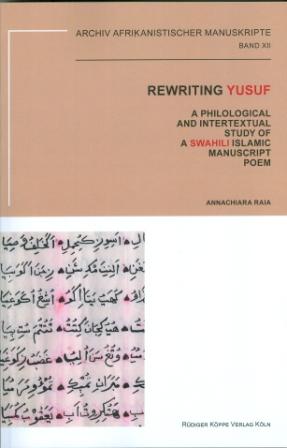
Die Autorin behandelt in ihrer hier vorgelegten und überarbeiteten Dissertation eine kritische Textedition der Josefsgeschichte und eine Studie zu ihrer Adaption an der Swahili-Küste.
Die Geschichte von Joseph wurde auf der ganzen Welt verbreitet, in viele verschiedene Sprachen übersetzt, und im Laufe der Jahrhunderte in verschiedene Genres adaptiert, was sie zu einer der am weitesten verbreiteten Geschichten der Menschheit macht. Der jugendliche Kanaaniter Joseph, Sohn Jakobs, wie er im Alten Testament genannt wird – Yūsuf ibn Yaʿqūb auf Arabisch – ist eine Figur, die sowohl von jüdisch-christlichen als auch von muslimischen Gemeinschaften verehrt wird. Yusuf war Yaqubs elfter Sohn, und am meisten von seinem Vater geschätzt; sein Vater hielt sich nie zurück, seine Bevorzugung für seinen geliebten und längst verlorenen Sohn zu zeigen. Er wurde in Paddan-Aram von der gerechtesten und schönsten Frau von Yaqub, Rachel, geboren, nachdem sie sieben Jahre lang unfruchtbar gewesen war. Seine Schönheit ist legendär und Gegenstand vieler apokryphischer Darstellungen): Gott hat ihm zwei Drittel aller menschlichen Schönheit zugeteilt.
Raia, Annachiara, und Farouk Topan. Rewriting Yusuf. A Philological and Intertextual Study of a Swahili Islamic Manuscript Poem. Köln. ln: Rüdiger Köppe Verlag, 2021. - R Kunstmann, C Mark-Thiesen: "The Memory Process in the Commemorations of the Dead in West African Newspapers ...Hide
-
The Memory Process in the Commemorations of the Dead in West African Newspapers
R Kunstmann, C Mark-Thiesen, "The Memory Process in the Commemorations of the Dead in West African Newspapers" in The Politics of Historical Memory and Commemoration in Africa. [Open Access Chapter]
- Salter, M.; Gilbert, E.; Grove, J.; Hönke, J.; Rosenow, D.; Stavrianakis, A.; Stern, M.: "Race and racism in critical ....Hide
-
In the current moment, we are witnessing a resurgent political urgency around demands to overthrow the inequities that are entrenched in oppressive structural formations such as racism and colonialism. Debates about race and racism are also unfolding in academia. While there has been a long tradition of speaking plainly about race within international relations (Doty, 1993; Grovogui, 2001), the past decade has seen a re-engagement not just with race as an analytical category but also with racism (Anievas et al., 2015; Muppidi, 2018; Rutazibwa, 2016; Vitalis, 2015), frequently articulated in terms of, or alongside calls for, the decolonization of academia. As editors of a scholarly journal, we believe that our role is to foster academic debate on matters such as these. This special forum is born out of Security Dialogue’s ongoing commitment to the creation of a structured, reflexive space for critical attention to the question of race and racism in critical security studies.
Salter, Mark B. ; Gilbert, Emily ; Grove, Jairus ; Hönke, Jana ; Rosenow, Doerthe ; Stavrianakis, Anna ; Stern, Maria:
Race and racism in critical security studies.
In: Security Dialogue. Bd. 52 (November 2021) Heft 1S . - S. 3-7.
ISSN 0967-0106
DOI: https://doi.org/10.1177/09670106211038787 - Samsom, Ridder and Clarissa Vierke (eds.): "One Text – Many Forms. A Comparative View on the ...Hide
-
One Text – Many Forms. A Comparative View on the Variability of Swahili Manuscripts.
Samsom, Ridder and Clarissa Vierke (eds.). One Text – Many Forms. A Comparative View of the Variability of Swahili Manuscripts. In: Samsom and Vierke (eds.): One Text – Many Forms. A Comparative View on the Variability of Swahili Manuscripts. Special Issue of Manuscript Cultures 7: 3-12.
- Schramm, Katharina: "Race, Genealogy, and the Genomic Archive in Post-apartheid South Africa"Hide
-
From the early 2000s onward, scientists, politicians, and intel-lectuals have presented the South African gene pool as a new archive for the new nation, suggesting a non-racial unity in diversity through com-mon human origins. In this discourse, population genomics and genetic ancestry allude to metaphors of shared kinship to overcome the legacies of race. However, a focus on the underlying practices of measuring and classification reveals how the genomic archive is implicated in the his-tory of apartheid and its racialized subjectivities. Similarly, individual interpretations of genetic ancestry show that race is constantly brought forth in this archival process. The genomic archive interweaves measuring practices in the sciences with the politics of social and biographical experience—a relationship that is at the heart of genetic genealogies.
Schramm, K., 2021. Race, Genealogy, and the Genomic Archive in Post-apartheid South Africa: Social Analysis 65, 49–69. https://doi.org/10.3167/sa.2021.650403 - Spies, Eva: "Religion und Entwicklung: Geschichte, Akteure, Positionen"Hide
-
Spies, Eva 2021. Religion und Entwicklung: Geschichte, Akteure, Positionen. In: Dies., Sebastian Müller und Heike Wagner (Hrsg.): Religion und Entwicklungszusammenarbeit. Positionen aus Politik, Praxis und Afrikaforschung. Baden-Baden: Nomos. (Bayreuther Studien zu Politik und Gesellschaft in Afrika; 9), 11-36.
- Talento, Serena: "Framing Texts – Framing Social Spaces. Conceptualising Literary Translation in three Centuries ...Hide
-
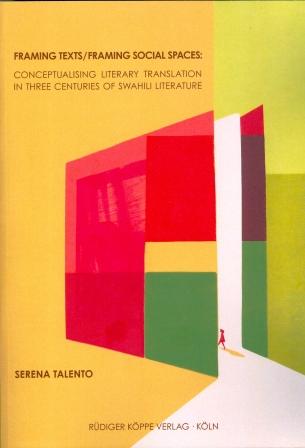
Übersetzungsdiskurse sind eine symbolische Produktion die einen Schlüssel liefern, wie Texte und Praktiken konzeptualisiert sind und wie diesen im Prozess der (Re-)Produktion von Wissen Bedeutung gegeben wird, was wiederum die sozialen Realitäten formt.
Das Ziel dieser Studie ist es, den Diskurs über die literarische Übersetzung ins Swahili aus einem vergleichenden und diachronen Blickwinkel sowie aus einer soziologischen Perspektive zu untersuchen, um die tiefen Verflechtungen zwischen soziokultureller Lage, historischen Kontingenzen und literarischer Empfänglichkeit zu identifizieren, die den Rahmen bilden für die Verbreitung oder Ablehnung von literarischen Übersetzungen. Drei historische Schauplätze zu bestimmten Zeitpunkten der dramatischen sozialen Veränderung werden untersucht: Die Machtergreifung durch Oman an der ostafrikanischen Küste, die britische Herrschaft in Tanganyika und das Nation Building-Projekt im post-unabhängigen Tansania.
Zu den wichtigsten Fragen in diesem Buch gehören: Gab es Hauptübersetzungsströme? Was waren ihre Hauptfunktionen? Wie wurden Swahili-Übersetzungen und Übersetzer konzeptualisiert im Laufe der Geschichte? Was motivierte Übersetzer bestimmte Texte zu übersetzen? Was hinderte oder begünstigte ihr Vorhaben?
Pierre Bourdieu’s Feldtheorie bezüglich der (Re-)Produktion von Wissen und Pascale Casanova, Johan Heilbron und Gisèle Sapiro’s Theorien der Zirkulation symbolischer Güter in einem internationalen Raum kultureller, politischer und wirtschaftlicher Beziehungen bilden einen Rahmen für die Erforschung der Dynamik der literarischen Einfuhr ins Swahili.Talento, Serena, Möhlig, Wilhelm J.G und Rüdiger Köppe Verlag. Framing Texts - Framing Social Spaces Conceptualising Literary Translation in three Centuries of Swahili Literature, 2021. - Turner, I., Lamoureaux, S., Merron, J.: "Indiscipline as Method: From Telescopes to Ventilators in Times of Covid"Hide
-
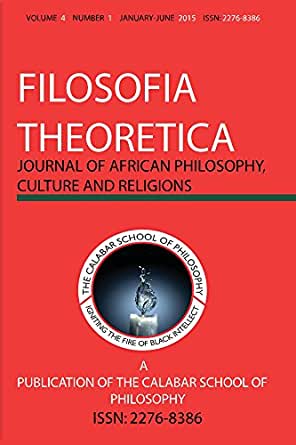
There is no unproblematic way to study things as “African”, yet an epistemologically situated approach based on concrete technological projects situated in Africa and their social and political implications offers an important account of the intersection of the Fourth Industrial Revolution and African Studies. We explore this perspective through the notion of “indiscipline” using the Square Kilometre Array radio telescope project (SKA) based in South Africa as a case study through which to observe “indiscipline” as a methodological approach to technoscience at work. Indiscipline helps frame the socio-technical (by)products of astrophysics and engineering, and we present the production of ventilators for COVID-19 patients as an example of how the design of mega-science projects can become entangled with the dynamic concerns of society. Our conclusion elaborates on the politics of large technological systems, opening up a conversation on the intersection of science and society in the context of the Fourth Industrial Revolution in African settings, using the template of experiences with the SKA and the National Ventilator Project in South Africa.
Turner, I., Lamoureaux, S., Merron, J., 2021. Indiscipline as Method: From Telescopes to Ventilators in Times of Covid. FITAJII 10, 79–102. https://doi.org/10.4314/ft.v10i3.6 - Vierke, Clarissa: "Writing Songs, Singing Texts: Orality and Literacy in Swahili Manuscripts"Hide
-
Writing Songs, Singing Texts: Orality and Literacy in Swahili Manuscripts
Vierke, Clarissa. Writing Songs, Singing Texts: Orality and Literacy in Swahili Manuscripts. In: Samsom and Vierke (eds.): One Text – Many Forms. A Comparative View on the Variability of Swahili Manuscripts. Special Issue of Manuscript Cultures 7: 87-104.
- Vierke, Clarissa. Foreword. In: Adjirakor, Nikitta D.; Ajayi, Oladapo O.; Diman, Hanza and Mingying Yuan (eds.): "Fieldwork ...Hide
-
Fieldwork Experiences and Practices in Africa.
Vierke, Clarissa. Foreword. In: Adjirakor, Nikitta D.; Ajayi, Oladapo O.; Diman, Hanza and Mingying Yuan (eds.): Fieldwork Experiences and Practices in Africa. BIGSASWorks 10; University of Bayreuth African Studies, Working Papers 27: vi-viii
- Voigt, Maike: "The Rise and Fall of Kenyan Entrepreneurs"Hide
-
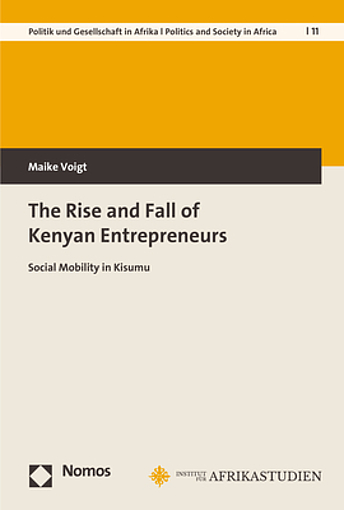
Dieses Buch analysiert Mittelschichtunternehmen in Kenia und den sozialen Auf- und Abstieg ihrer Gründer:innen. Anhand konkreter Ereignisse, individueller Biografien und dichter Empirie zeigt Maike Voigt, wie das Zusammenspiel von persönlichen, familiären Charakteristika mit politischen, wirtschaftlichen Trends individuelle soziale Mobilität bestimmt. Methodisch innovativ, ethnographisch gehaltvoll und mit analytischer Genauigkeit untersucht die Autorin Veränderungen, Unsicherheiten und Chancen in unternehmerischen Lebensverläufen. Das Buch leistet damit wertvolle empirische und konzeptuelle Beiträge zu Debatten um soziale Mobilität, Unternehmertum und Mittelschichten in zeitgenössischen afrikanischen Gesellschaften und darüber hinaus.
Voigt, Maike, 2021. The Rise and Fall of Kenyan Entrepreneurs. Social Mobility in Kisumu, Nomos, Politik und Gesellschaft in Afrika, Band 11, Baden-Baden
2021 - III
- Augusto, Asaf: "North to South Migration"Hide
-
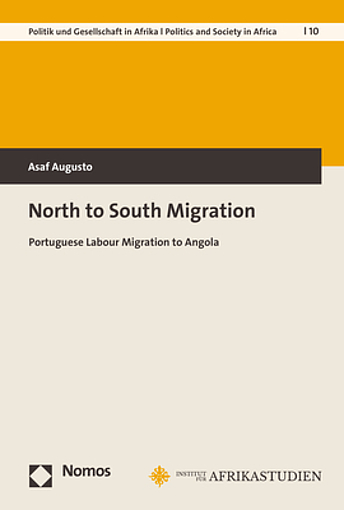
Die Wirtschaftskrise hat in den südeuropäischen Ländern neue Migrationstrends in Gang gesetzt. In Portugal ging die Migration nach der Krise vor allem in zwei Richtungen: nach Norden in die wohlhabenderen europäischen Länder und nach Süden in die ehemaligen portugiesischen Kolonien in Afrika - vor allem in das ölproduzierende Angola. Der Migration aus dem globalen Norden in den globalen Süden wurde in den Migrationstheorien bislang wenig Aufmerksamkeit geschenkt. Der Autor argumentiert, dass die portugiesische Migration nach Angola nicht nur als Folge der Wirtschaftskrise verstanden werden sollte, sondern auch als ein komplexes Geflecht von Überschneidungen im Kontext der portugiesischen Kultur, des sprachlichen Erbe in Angola, von familiären Netzwerken, Diskursen, Mythen und kolonialer Macht.
Augusto, Asaf. North to South Migration: Portuguese Labour Migration to Angola. 1st edition. Bayreuther Studien Zu Politik Und Gesellschaft in Afrika, volume 10. Baden-Baden: Nomos, 2021. - Drescher, Martina; Boukari, Oumarou: "Afrikanische Sprachen in der Bildungsmigration"Hide
-
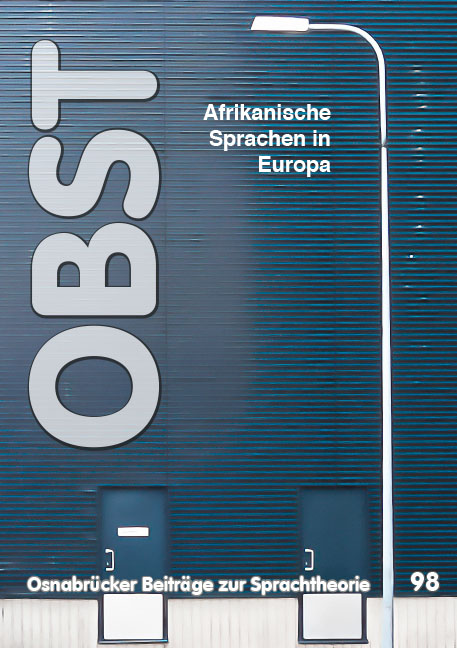
Drescher, Martina ; Boukari, Oumarou:
Afrikanische Sprachen in der Bildungsmigration : Eine soziolinguistische Studie zur Bayreuth International Graduate School of African Studies (BIGSAS).
In: Erfurt, Jürgen ; Reimer, Peter (Hrsg.): Afrikanische Sprachen in Europa. - Duisburg : Universitätsverlag Rhein-Ruhr , 2021 . - S. 129-155 . - (Osnabrücker Beiträge zur Sprachtheorie ; 98 )
ISBN 978-3-95605-083-1 - E-book "Pandemics and utopias: political agendas and emerging possibilities"Hide
-
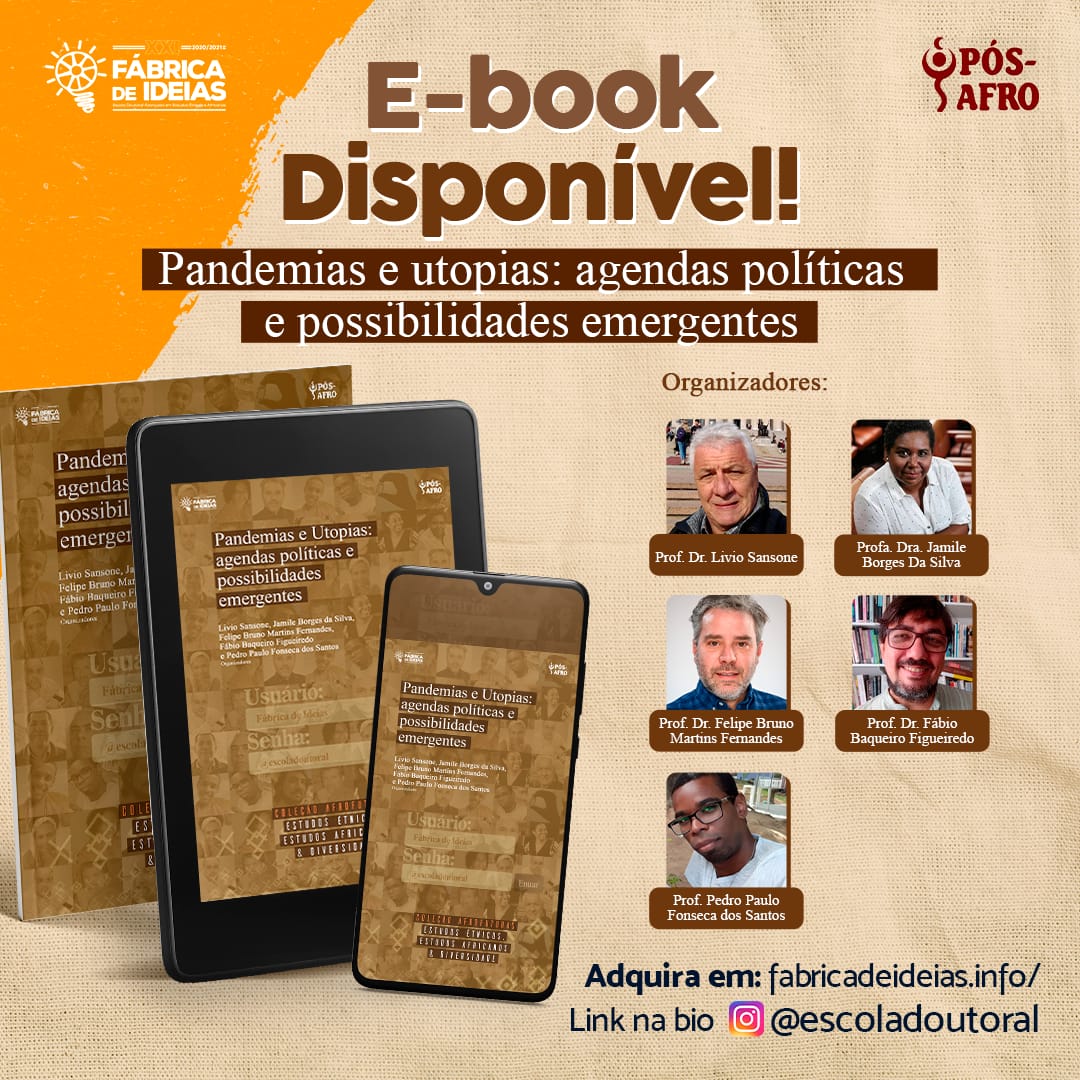
The E-book "Pandemics and utopias: political agendas and emerging possibilities" is now available. The E-book is the result of the 1st Cycle of Lives of the Idea Factory in partnership with the Post-Afro, held in 2020.
To access the E-book, please click here.
- Edeagu, Ngozi: "Negotiating Patriarchy and Gender in Africa"Hide
-
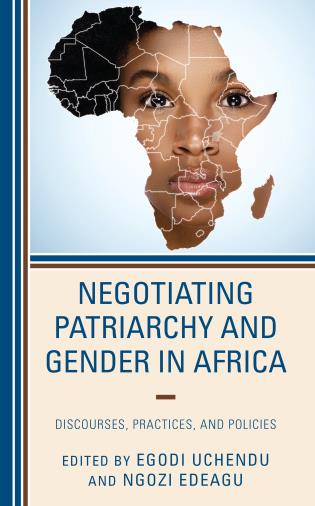
Negotiating Patriarchy and Gender in Africa: Discourses, Practices, and Policies examines the entrenchment of patriarchy in Africa and its attendant socioeconomic and political consequences on gender relations. The contributors analyze the historical and modern ways in which gender expectations have enabled women in African societies to be systematically abused and marginalized, from unpaid labor to poor representation in decision-making areas. Exploring regions such as rural Uganda, the suburbs of Zimbabwe, the Gold Coast, South Africa, and Nigeria, contributors incorporate a wide range of academic theories and disciplines to establish the need for improved policy implementation on gender issues at both the local and national government levels in Africa.
Uchendu, E., Edeagu, N. (Eds.), 2021. Negotiating patriarchy and gender in Africa: discourses, practices, and policies. Lexington Books, Lanham. - Falayi, M.; Gambiza, J.; Schoon, M.: "A scoping review of environmental governance challenges in southern Africa from ...Hide
-
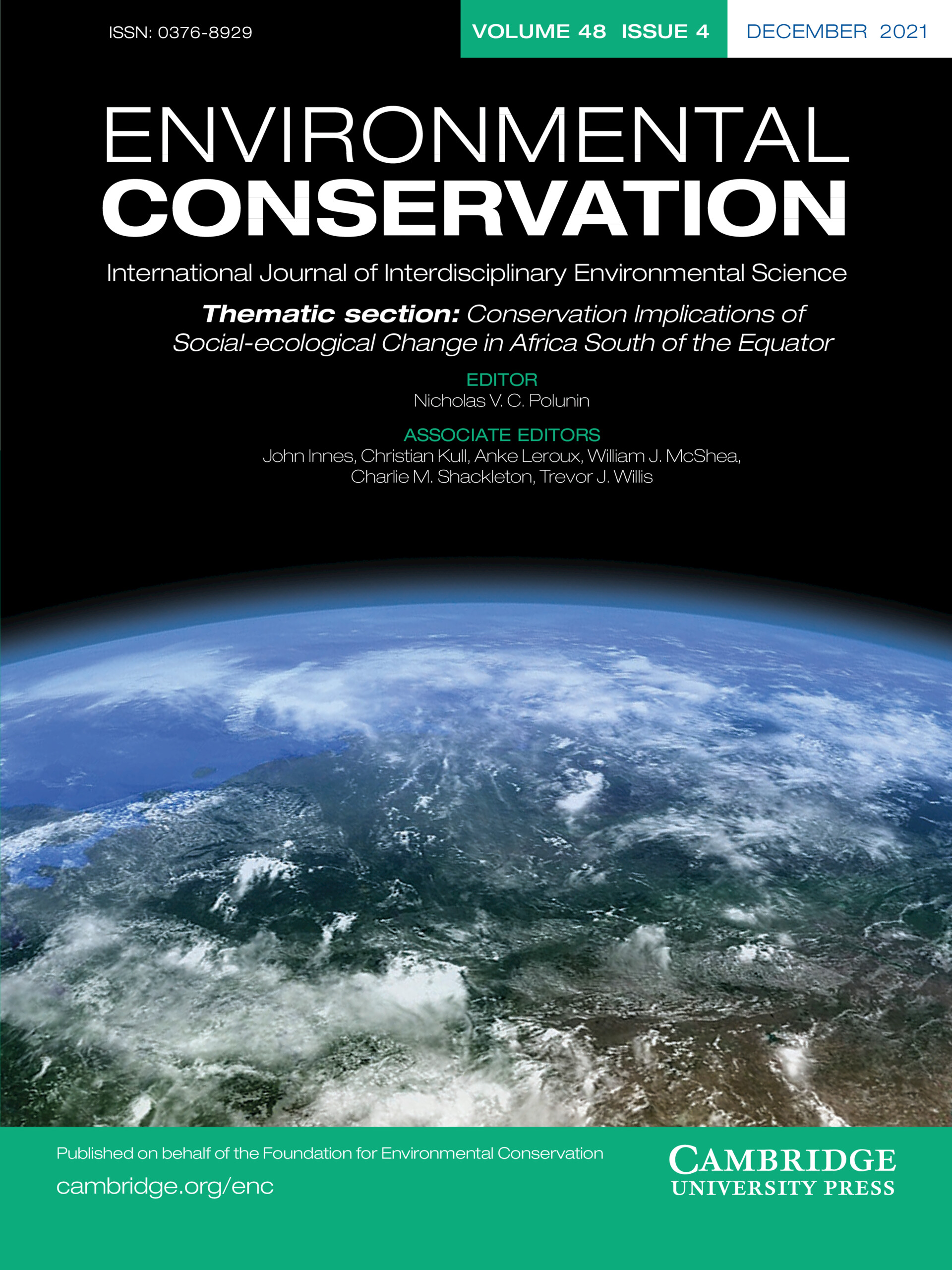
Throughout southern Africa, there have been growing concerns about the rates of ecosystem degradation. This issue and natural resource governance concerns in general remain key challenges. We conducted a scoping review of 135 articles to inductively assess how governance challenges have manifested in natural resource management during 2010–2020 in southern Africa. The paper’s findings show that governance challenges in southern Africa are ‘hydra-headed’. The results suggest that governance challenges related to the maintenance of system integrity and functioning – specifically lack of coordination, accountability, capacity, skills and resources to define effective natural resource management – were the most reported in literature. Challenges related to achieving socially equitable governance were the second most mentioned, followed by those related to institutional robustness. Challenges related to the adaptability and flexibility of institutions, specifically learning, monitoring capacity and innovation, were the least identified, showing that these areas are poorly studied or that these attributes are considered less problematic for achieving sustainable outcomes. Furthermore, the review highlights critical gaps – the limited engagement with governance-related frameworks, specifically polycentricity, adaptive governance and social-ecological stewardship. In concluding, we highlight governance reforms and future research needs on the topic of natural resources in southern Africa.
Falayi, M., Gambiza, J., & Schoon, M. (2021). A scoping review of environmental governance challenges in southern Africa from 2010 to 2020. Environmental Conservation, 48(4), 235-243. doi:10.1017/S0376892921000333 - Ferrão, R. Benedito: “Reorienting a Theme: Bollywood Parks Dubai and Off-screen Filmic Imaginaries”Hide
-
Ferrão, R. Benedito, “Reorienting a Theme: Bollywood Parks Dubai and Off-screen Filmic Imaginaries,” Middle East Journal of Culture and Communication, Film and Visual Media in the Gulf [Special issue], 14-1.2 (September 2021), pp. 177-205
- Frede, Britta: "In an Era of Terror Threats : Negotiating the Governance of a (Trans)Local Islamic Heritage in the Islamic ..."Hide
-
This chapter scrutinises the negotiation of various actors about the governance of the Mauritanian Islamic heritage. In the context of hopes for democratisation and the war on terror, social frictions are fuelled and lead to a quite confrontational mode of negotiating identity and citizenship. The traditional Islamic educational institution, the maḥḍara, plays a crucial role within these debates. Being perceived as an institution for (re)producing local tradition, the maḥḍara and its visions become the focus of conflict, praised by politicians and the ʿulamāʾ (Islamic scholars) as a driver of social peace, feared by security experts as a breeding ground for terrorism, and finally, wished to be reformed by human right activists. The war on terror goes hand in hand with the threat of terror, producing more rumours than facts and spreading feelings of insecurity that foster violent action.
Frede, Britta:
In an Era of Terror Threats : Negotiating the Governance of a (Trans)Local Islamic Heritage in the Islamic Republic of Mauritania.
In: Dağyeli, Jeanine Elif ; Ghrawi, Claudia ; Freitag, Ulrike (Hrsg.): Claiming and Making Muslim Worlds. - Berlin ; Boston : De Gruyter , 2021 . - S. 131-157 . - (ZMO-Studien ; 40 )
ISBN 9783110726763
DOI: https://doi.org/10.1515/9783110726534-006 - Gaibazzi, Paolo: "Frontiers of Externalisation : Borders and temporality in the Euro-African zone."Hide
-
Gaibazzi, Paolo:
Frontiers of Externalisation : Borders and temporality in the Euro-African zone.
In: Paideuma. Bd. 66 (2020) .
ISSN 0078-7809 - Gebauer, Matthias: "Black Islam South Africa : Religious Territoriality, Conversion, and the Transgression of Orderly ...Hide
-
Social alienation and the struggle to belong in the South African society are not only matters of political discourse but touch the practical sphere of everyday life in the respective places of residence. This book approaches the entanglements of religion and space within the processes of re-ordering African indigeneity in post-apartheid South Africa. It asks how conversion to Islam constitutes the longing for a post-colonial and post-racialized African self. This study specifically engages with dynamics surrounding Black and Muslim practices and identity politics in formerly demarcated Black African areas. Here, even after the official end of apartheid, spatial racialization and social inequalities persist. Modes of orderings rooted in colonialism and apartheid still define what orderly belonging and African indigeneity mean. Thus, the inhabitants of those spaces find themselves in situations every day in which their habitat continuously ascribes oppression and racialization. The post-1994 promise for equal citizenship seems to be slowly fading, becoming a broken promise, on whose fulfillment the majority of people who were previously—by official definition and demarcation—only granted the right of being a migratory workforce, sojourners in the White spaces, are still waiting. Against this background, this thesis engages with the attempts to reformulate and recreate African indigeneity on the basis of a counter-hegemonic ideology of being Black and Muslim. It pays attention to the emergence and articulation of a Black Muslim indigeneity that is based on bringing together a pre-colonial idealization of the African self with global ideologies of Muslim Blackness.
With a regional focus on KwaZulu-Natal and a specific look at the developments in and around the urban and peri-urban areas of eThekwini (Durban), it features particular case studies which highlight religious territorialization on the one hand and attempts to transgress the social and spatial modes of orderings by converting to Islam on the other. Here, South Africans once classified as Black African seek a common modus operandi in Muslim Blackness in order to break with orderly indigeneity as ascribed, defined, and structured by colonialism and apartheid, even going as far as to out-migrate from the lived-in places which continue to be experienced daily as unsettling and uprooting. With preparations being made to create a new settlement and establish a new social order, the unfulfilled promise of post-apartheid will be left behind, once and for all.
This makes the featured case a peculiar, though so far under-researched, example: Throughout the history of colonization and especially during the time of apartheid, the practice of Islam was strongly interwoven with a changing but persistent struggle for identity and belonging. Being Muslim became oppressively obscured as it was directed as an institutional term towards such politically created population categories as Indian or Coloured. This implied a very structural and spatial effect, as the communal practice of Islam was limited to those respective residential areas. Thus, the former Black African areas of South Africa are important places to engage with: Segregated and socio-spatially ordered over decades of colonialism, racism, and apartheid, these vast areas of relatively high-density living conditions and desolated livelihoods characterize the surroundings of every major city in South Africa. The duality of White urban core and Black outskirts represents a spatial and social pattern whose inequalities persist up until now. But these places also came to manifest a stratification of religious practices and orderly religious belonging, as orderly African indigeneity was unquestionably linked to Christianity, while Islamic institutions were almost non-existent within the Black African areas. The case of conversions to Islam among the indigenous African population of South Africa also exemplifies the paradoxical untouchability of religiously territorialized space within the ideology of apartheid, which enabled some to maintain an exclusive sense of belonging to their former places of residence and a practical connection to the land from which they had been forcibly removed. By moving beyond the specific cases, the ideas and practices of Blackness and Muslimness are discussed in light of diasporic identity formations in relation to their colonial connotations, thereby opening up a perspective on creating an indigeneity transgressive to the conditions of everyday life.Gebauer, Matthias:
Black Islam South Africa : Religious Territoriality, Conversion, and the Transgression of Orderly Indigeneity. Überarbeitete Fassung.
Passau : Selbstverlag Fach GEOGRAPHIE der Universität Passau , 2021 . - 115 S. - (Passauer Schriften zur Geographie ; 32 )
ISBN 978-3-9817553-5-0 - Gebauer, M.: "Indigenous Millennialism : Murabitun Sufism in the Black African Townships of South Africa."Hide
-
This article analyzes the development of the Murabitun in South Africa and the impact of their ideology against the background of a promise of the end of time for the persisting modes of segregation and injustice. It asks how indigeneity as Blackness is merged with a Sufi-oriented vision of a purified, revived Islamic community. The material presented here forms part of a research project on converts to Islam in the Black African townships and former homelands of South Africa alongside the challenging social and spatial modes of ordering by translating Blackness into the realm of Muslim practice and ideology. The empirical data for this article derive from qualitative fieldwork conducted in the province of KwaZulu-Natal in 2015 and 2016. These will be discussed together with a critical review of selected texts by the founder of the Shadhili Darqawi order, also known as the Murabitun World Movement, Abdalqadir as Sufi, a Scottish convert to Islam and founder of the Sufi tariqah who began his ideological outreach and da’wah activities (Islamic missionary work) in South Africa in the 1980s.
Gebauer, Matthias:
Indigenous Millennialism : Murabitun Sufism in the Black African Townships of South Africa.
In: Lehner, Hans-Christian (Hrsg.): The End(s) of Time(s) : Apocalypticism, Messianism, and Utopianism through the Ages. - Leiden ; Boston : Brill , 2021 . - S. 328-357 . - (Prognostication in History ; 6 )
ISBN 978-90-04-46102-4 - Gebauer, M.;Umscheid, M.: "Roots tourism and the Year of Return campaign in Ghana : Moving belonging beyond ...Hide
-
Roots tourism from the United States to African countries is a field within which aspects of tourism, diasporic belonging and migration back to Africa intersect. Destinations such as Ghana invest heavily in campaigns such as the 2019 Year of Return in order to access the African American diaspora market. Since its beginnings in the early 20th century, roots tourism became a significant economic factor for African destinations and involved companies alike. The overall success of this particular variation of diaspora tourism is without a doubt based on the constant and growing interest among African Americans to engage with one’s own historical links to the trans-Atlantic slave trade. The wish to overcome this – as Paul Gilroy terms it – shared history of suffering and the longing for reconnecting to the (imagined) motherland Africa became the pillars of success for roots tourism. But this also led to a situation where the destinations got locked in a mode of making a narrative of home accessible to touristic consumption based on the marketing of the cruelty of slavery. Ghana’s 2019 Year of Return indicates an important change in this regard. The central strategies and narratives of the campaign point to a shift away from such highly politicised images of heritage and belonging towards a more event-oriented performance of cosmopolitan Africanness. This could become a crucial factor for the continuation of the success story of roots tourism across the Atlantic.
Gebauer, Matthias ; Umscheid, Marie:
Roots tourism and the Year of Return campaign in Ghana : Moving belonging beyond the history of slavery.
In: Saarinen, Jarkko ; Rogerson, Jayne M. (Hrsg.): Tourism, Change and the Global South. - London ; New York : Routledge , 2021 . - S. 123-134 . - (Contemporary Geographies of Leisure, Tourism and Mobility )
ISBN 978-0-367-54953-4 - Gebauer, M.: "Roots-Tourismus nach Westafrika : Das Geschäft mit den Wurzeln."Hide
-
Gebauer, Matthias:
Roots-Tourismus nach Westafrika : Das Geschäft mit den Wurzeln.
In: Geographische Rundschau. Bd. 73 (2021) Heft 1/2 . - S. 32-33.
ISSN 0016-7460 - Hofäcker, J. ; Gebauer, M.: "Airbnb in Townships of South Africa : A New Experience of Township Tourism?"Hide
-
This chapter engages with the introduction of Airbnb to the South African township of Langa, Cape Town. Based on qualitative research, the study looks into the effects of the peer-to-peer idea behind the economic scheme of Airbnb on the accommodation sector in the township. The findings are contextualized against the background of the history of segregation brought about by colonialism and apartheid, as well as the existing sector of township tourism in general. The specific focus of the featured case study on recent activities of Airbnb in the respective township allows discussion of how the developments are prone to challenge and change the spatial and temporal frames of interaction that tourists have with the actual place of the still segregated part of the city. The introduction of a globally accessible peer-to-peer platform with an existing accommodation sector that is (so far) mainly frequented by students, volunteers and academics as the major international clientele, furthermore points to an increasing individualization of the township tourism sector, but also to a further manifestation of the narrative of the township as being the exclusive and ‘other’ side of urban South Africa.
Hofäcker, Jana ; Gebauer, Matthias:
Airbnb in Townships of South Africa : A New Experience of Township Tourism?
In: Rogerson, Christian M. ; Rogerson, Jayne M. (Hrsg.): Urban Tourism in the Global South : South African Perspectives. - Cham, Schweiz : Springer , 2021 . - S. 129-147 . - (GeoJournal Library )
ISBN 978-3-030-71546-5
DOI: https://doi.org/10.1007/978-3-030-71547-2_6 - Mboya, Tom Michael: "Guitar Music and Cultural Identity in Kenya".Hide
-
In this paper I discuss the relationship between popular music and cultural identity through a reading of the story of the early career of the Kenyan guitar–based dance music called benga. Genre theory guides the reading. Bringing into interplay basic elements of the early story of benga (on which there is a general consensus) and historical facts of the context in which it emerged, I show that the genre was at the moment of its origination a musical articulation of the cultural identity of a generation of Kenyan Africans of the Luo ethnic group who lived through the late colonial Kenya and into the early years of the country’s Uhuru, Independence. At the heart of the reading is an exploration of the origins and deployments of the practices and technologies that came together at a particular time and place and in specific social and political conditions to constitute benga.
Mboya, Tom Michael. „Guitar Music and Cultural Identity in Kenya: Benga and Luo Identity, c. 1955 to c.1980“. Application/pdf, 2021, 301393 b. https://doi.org/10.25365/PHAIDRA.310_05. - Livio Sansone: "Field Station Bahia"Hide
-
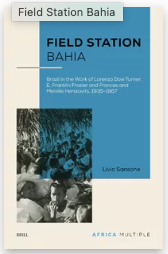
Field Station Bahia
Brazil in the Work of Lorenzo Dow Turner, E. Franklin Frazier and Frances and Melville Herskovits, 1935-1967
This book offers a new perspective on the making of Afro-Brazilian, African-American and African studies through the interrelated trajectory of E. Franklin Frazier, Lorenzo Dow Turner, Frances and Melville Herskovits in Brazil. The book compares the style, network and agenda of these different and yet somehow converging scholars, and relates them to the Brazilian intellectual context, especially Bahia, which showed in those days much less density and organization than the US equivalent. It is therefore a double comparison: between four Americans and between Americans and scholars based in Brazil.
- Neubert, Dieter: "How political is the middle class in Kenya?"Hide
-
The current debate presents the middle class in the Global South as a driver of democratic change and the core of civil society. The activities of NGOs, or student protests, for instance, seem to support this notion. However, these examples should not be overstretched. Before confirming the idea that the ‘middle class’ is a carrier of political protest and a driver of democratic change, we need to answer at least two questions. Is the ‘middle class’ really a class in the strict sociological sense, with a common class consciousness or just a group with a middle-income: ‘middle-income group’? And are the protests really representative of the middle-income group? Taking Kenya as an example, we cannot identify a ‘middle class’ in the strict sense of the sociological class concept. Neither does the political commitment of the middle-income group follow socio-economic differences. More important are patterns of socio-cultural differentiation that can be conceptualised as socio-cultural ‘milieus’.
Neubert, Dieter. 2021. How political is the middle class in Kenya? In: Journal of Contemporary African Studies. Online first, August 2021
- Ouma, Stefan: "Challenging the Orthodoxy: Race, Racism and the Reconfiguration of Economics"Hide
-
Books abound on what is wrong with economics (Chang 2014; Keen 2011; Nelson 2018, Mazzucato 2018, Raworth 2018, Stanford 2015), and what we would have to do to change it. Given the little change we have seen in economics training and policy-effective economic thinking since the global finance crisis of 2007/08, and in light of the global environmental, inequality and health crises, it is to be seen whether these interventions can make any meaningful impact. What is good though: Half of these impactful books were written by female economists. Despite this ‘wind of change’ in an overtly male discipline, it is striking that these books still offer a glaring lacuna: the issues of race and racism (except for brief mentions in Nelson 2018 and Stanford 2015). For many people around the world, these are no mere ‘issues’, but integral to their daily struggles and experiences in White majority countries. These are part of a differentiated life– a life differentiated so much that it can be full of unrealized potentials, suffering and trauma, physical harm and violence, and premature death in the worst of cases. Therefore, while we could move on, building on these interventions and many others (e.g., Obeng-Odoom 2020; Sarr 2019 or here), to discuss what would have to change in economic thinking (which includes economics training), policy and praxis to help achieve a “safe and just operating space for humanity” (Raworth 2018), the goal of this blog entry is more firmly tied to the question of how economic thinking would change if race and racism were taken seriously as structural-relational problems?
Ouma S (2021) Challenging the Orthodoxy: Race, Racism and the Reconfiguration of Economics. Available at: https://developingeconomics.org/2021/07/11/challenging-the-orthodoxy-race-racism-and-the-reconfiguration-of-economics/
2021 - II
- Behrends, Andrea ; Abdelbanat, Oumar ; Neneck, Allah-Kauis ; Hoinathy, Remadji: "Death of the Chadian President ....Hide
-
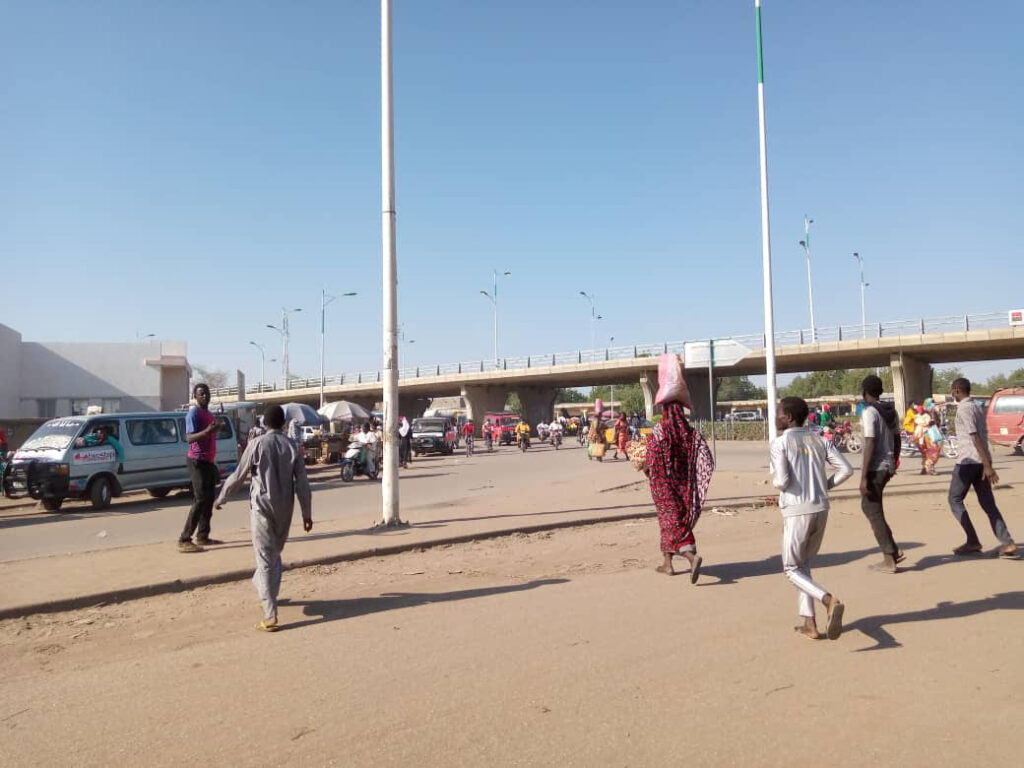
Behrends, Andrea ; Abdelbanat, Oumar ; Neneck, Allah-Kauis ; Hoinathy, Remadji:
Death of the Chadian President Idriss Déby : Where Were You When You Heard the News?
Royal African Society (RAS): African Arguments
In: African Arguments. 28 April 2021 - Boukari, O.; Tetereou D.: "Laa'ilaah! de la profession de foi au marqueur de discours moral en fulfulde : une ...Hide
-
BOUKARI, Oumarou & TETEREOU Djibrila. 2021. Laa'ilaah! de la profession de foi au marqueur de discours moral en fulfulde : une pragmaticalisation qui ebranle les catégories linguistiques. In: Revue Internationale de Linguistique Appliquée, de Littérature et d'Education (RILALE). Vol. 4. N° 2. University of Abomey-Calavi. Cotonou. 63-98.
- Breuer, A.; Doevenspeck, M.; Donko, K.; Ouedraogo, S.: "COVID-19 and (Im)mobilities in West Africa"Hide
-
Abstract
This study examines recent developments of mobility patterns in West Africa within the context of the ongoing COVID-19 pandemic. A broad understanding of mobilities is applied to account for mobilities of people, goods and capital likewise. The aim is to track changes in mobility patterns caused by the pandemic and by institutional responses to the latter. The study may herein serve to encourage more in depth and comprehensive studies of the new (im)mobilities and the regimes that shape them. Embedding the subject of mobility changes into the political-economic framework of the networks of global capitalism and taking a perspective on the formative regimes, we develop first suppositions on how to apply the concept of (im)mobility regimes to assess the newly manifested (im)mobilisations. To shed light on the bigger picture of recent developments in Western Africa, this study tackles a wide range of mobility-related topics. At first, the epidemiological situation as well as the local testing regimes are analysed in order to assess the extent to which the pandemic is scientifically captured in Western Africa in contrast to other regions. By then providing a systematic outline of the lockdown policies of the individual ECOWAS member states, a first approach to the formative regimes can be given. The manifest new (im)mobilities of people are then evaluated with a focus on public transport, migratory movements and public air travel. Thereafter, the (im)mobilities of goods are discussed with a special focus on maritime freight mobilities. Finally, (im)mobilities of capital are dealt with in order to address changes and constants in the context of COVID-19, for example in the realm of remittances. Overall, this provides a first basis for a multi-dimensional understanding of the emerging phenomena in the ECOWAS region.
Breuer, Andras ; Doevenspeck, Martin ; Donko, Kamal ; Ouedraogo, Serge:
COVID-19 and (Im)mobilities in West Africa.
Hrsg.: Maurus, Sabrina
Bayreuth, Germany : Institute of African Studies , 2021 . - XIV, 153 S. - (University of Bayreuth African Studies Working Papers ; 26 ) (Africa Multiple connects ; 3) - Brugioni, E.; Fendler, U.: "Islands, Theory and the Postcolonial Environment: Reading the Work of Khal Torabully"Hide
-
Brugioni, Elena ; Fendler, Ute:
Islands, Theory and the Postcolonial Environment : Reading the Work of Khal Torabully.
In: Portuguese Studies. Bd. 37 (2021) Heft 2 . - S. 165-177.
ISSN 2222-4270
DOI: https://doi.org/10.5699/portstudies.37.2.0165 - Clemens, Iris: "The relationality of knowledge and postcolonial endeavours : analysing the definition, emergence, and ....Hide
-
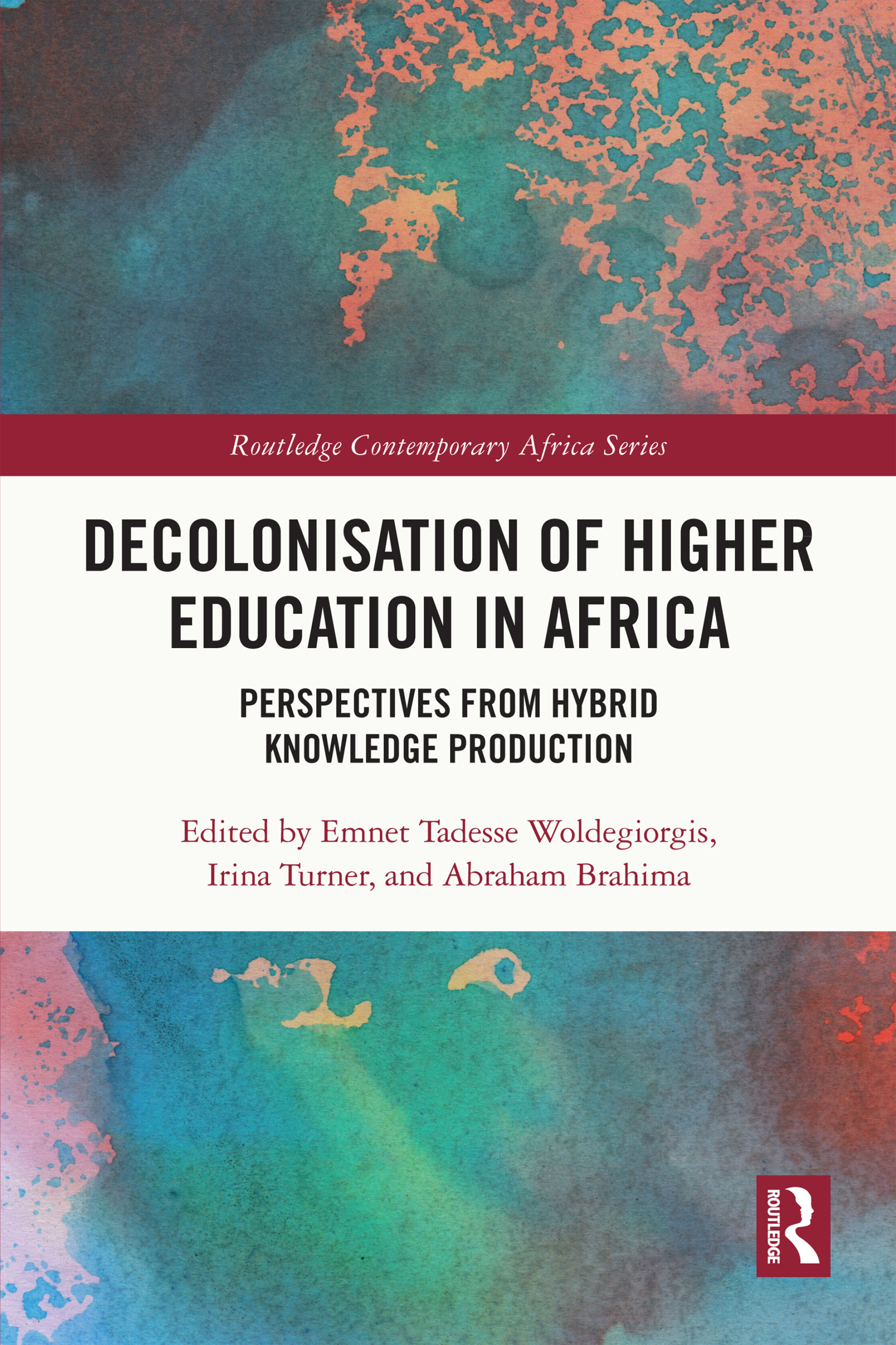
After an attempt to define knowledge and some comments on the biased, discriminating discussions in the past, the chapter draws attention to the approach of trading zones of knowledge as a basis for further argumentation of knowledge encounters. In the following, the process of travelling knowledge in the educational field will be discussed from a network theory perspective. While borrowing the notion of generative tensions by Verran (2001), the last part of the chapter uses an example from math classes in Nigeria to show the creative potential of such encounters of logic or knowledge. Then, some consequences will be discussed. The main goal of this chapter is to contribute to the decolonisation of the definition of knowledge as well as the analysis of its emergence and movement and to argue for the innovation potential through the encounter of knowledges.
Clemens, Iris:
The relationality of knowledge and postcolonial endeavours : analysing the definition, emergence, and trading of knowledge(s) from a network theory perspective.
In: Woldegiorgis, Emnet Tadesse ; Turner, Irina ; Brahima, Abraham (Hrsg.): Decolonisation of Higher Education in Africa : Perspectives from Hybrid Knowledge Production. - London : Routledge , 2021 . - S. 100-117
ISBN 9780367360603 - Frede, Britta: "Chapter II: Knowledge transmission. Introduction"Hide
-
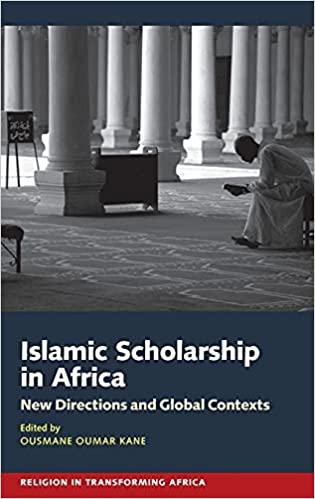
Islamic knowledge (ʽilm) and its transmission refer to long-standing traditions that have changed over time within and between different strands of Islamic thinking. Some examples of these strands of Islamic thinking are Sufis with a focus on spiritual practice often combined with an emphasis on textual knowledge. Further, there are Islamic scholars who stress the importance of fiqh (jurisprudence), ḥadīth (traditions of the prophet), or philosophy. Finally, more recently, there are Salafīoriented scholars with their neglect of tradition (taqlīd) and attempted return to the early Islamic period (salaf aṣ-ṣāliḥ) while frequently giving substantial weight to the Ḥanbalī madhhab (school of law). These strands have evolved into translocal networks from an early point in history, fostered through teacher–student relations that developed within institutions of knowledge transmission: mosques, fortifications including mosques and schools, Qur’ānic schools, colleges teaching various disciplines of Islamic knowledge, Sufi lodges (zāwiya) often including schools as well, or more recently, Islamic institutes or Islamic universities.
Various doctrines and institutions have developed different conceptions of Islamic knowledge and sometimes even different hierarchies between the disciplines for its transmission. Furthermore, periods of exclusive initiation into knowledge alternate throughout Islamic history with periods of popular dissemination of Islamic knowledge to vast parts of the Muslim populace, giving rise to transformations concerning the performance of authority, modes of knowledge transmissions, and finally, the composition of the textual repertoire building the corpus of knowledge. Nevertheless, no matter how much these conceptions may vary, to attach great importance on seeking and transmitting religious knowledge is one of the shared duties and a central element of all Islamic strands of doctrine and practice. This has led to the development of various kinds of institutions dedicated to religious knowledge transmission. The oldest institution in this context might be the mosque.
Three outstanding Medieval institutions of higher education can be found in Africa that enfolded a transregional scholarly influence: al-Qarawiyyīn (founded 859) in Fez (Morocco), al-Azhar (founded 988) in Cairo (Egypt), and az-Zaitūna (built around 856 as a mosque, which during the thirteenth and fifteenth centuries expanded to an institution for higher education) in Tunis (Tunisia).
Chapter II: Knowledge transmission. Introduction, in: New Directions in the Study of Islamic Scholarship in Africa, ed. by Ousmane Kane, 233-38. London: James Currey, 2021. (Mit Cluster Referenz)
- Frede, Britta: "Mahzara : Moritanya'nın İslami Eğitim Geleneğinde Kadın Âlimlerin Rolü."Hide
-
Frede, Britta:
Mahzara : Moritanya'nın İslami Eğitim Geleneğinde Kadın Âlimlerin Rolü.
In: sabah ülkesi : üç aylık kültür-sanat ve felsefe dergisi. (April 2021) Heft 67 . - S. 64-67.
ISSN 2195-6456 - Frede, Britta: "Part III: Education : Introduction."Hide
-

Frede, Britta:
Part III: Education : Introduction.
In: Kane, Ousmane Oumar (Hrsg.): Islamic Scholarship in Africa : New Directions and Global Contexts. - Oxford : Boydell & Brewer , 2021 . - S. 233-238 . - (Religion in Transforming Africa ; 5 )
ISBN 9781847012319
DOI: https://doi.org/10.2307/j.ctv136c3ds.20 - Frede, Britta: "What Does Traditional Islamic Education Mean? : Examples from Nouakchott's Contemporary Female ... "Hide
-

Umm al-Qura is a village around 60km east of Nouakchott, the capital of Mauritania. This village has achieved international fame due to its maḥḍara, an institution for transmitting Islamic knowledge that ties in the tradition of an Islamic learning circle (ḥalqa). Its fame was based on the work and appeal of Shaykh Muḥammad Sālim b. ʿAddūd (ʿAbd al-Wadūd; 1929–2009), who was considered among the most learned scholars (ʿulamāʾ) of twentieth-century Mauritania, especially in the field of Mālikī jurisprudence (fiqh), Arabic language (lugha), grammar (naḥw), poetry (shiʿr), and the biography of the Prophet Muḥammad (sīra). Looking at one of the short biographical notes published after his death in April 2009, we see that maḥḍara education in post-independent Mauritania allowed him to enter influential posts within state institutions.
Shaykh Muḥammad Sālim b. ʿAddūd was born in 1929 during French colonial rule and trained in the maḥḍara of his father, al-Jalīl Muḥammad ʿᾹlī b. ʿAddūd (ʿAbd al-Wadūd). Coming from a well-known prestigious scholarly family, he developed himself into a famous scholar, jurist, and teacher. The first teaching position he held was during the 1950s at the Maʿhad Būtilimīt al-Islāmī, the first and only successful French medersa in the colony of Mauritania, which had been founded in 1918 and introduced new teaching methods and a modified curriculum into the maḥḍara institution. However, during his later life, he was a director of an internationally frequented maḥḍara in Umm al-Qura. But scholarly activities were not his only occupations: he was also very much involved in contemporary politics and designing post-independence Mauritania, especially the relationship between religious institutions and the state.
Frede, Britta:
What Does Traditional Islamic Education Mean? : Examples from Nouakchott's Contemporary Female Learning Circles.
In: Kane, Ousmane Oumar (Hrsg.): Islamic Scholarship in Africa : New Directions and Global Contexts. - Oxford : Boydell & Brewer , 2021 . - S. 300-320 . - (Religion in Transforming Africa ; 5 )
ISBN 9781847012319
DOI: https://doi.org/10.2307/j.ctv136c3ds.24 - Kalfelis, M.C., Knodel, K. (Eds.): "NGOs and lifeworlds in Africa: transdisciplinary perspectives"Hide
-
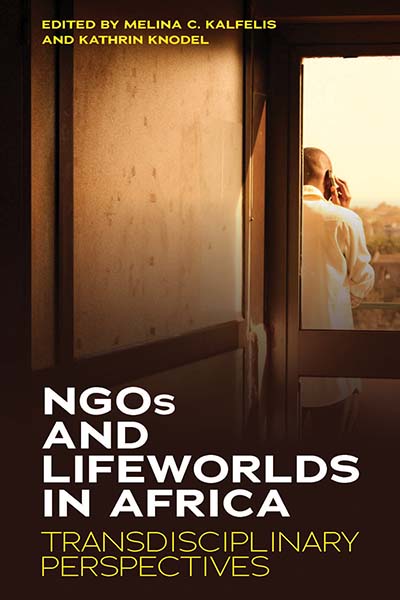
"Non-governmental organizations (NGOs) have become ubiquitous in the development sector in Africa and attracting more academic attention. However, the fact that NGOs are an integral part of the everyday lives of men and women on the continent has been overlooked thus far. In Africa, NGOs are not remote, but familiar players, situated in the midst of cities and communities. By taking a radical empirical stance, this book studies NGOs as a vital part of the lifeworlds of Africans. Its contributions are immersed in the pasts, presents and futures of personal encounters, memories, decision-making and politics"
Kalfelis, M.C., Knodel, K. (Eds.), 2021. NGOs and lifeworlds in Africa: transdisciplinary perspectives. Berghahn Books, New York. - Kroeker, L.: "Factual Conflicts and the Hegemony of Interpretation: Four Narratives and the Anthropologist’s Version" Hide
-
During ethnographic research on HIV-positive pregnant women in Lesotho, I found myself confronted with conflicting narratives, but what we do know is that MaMeli’s baby passed away the day after she gave birth in the hospital. Trying to reconstruct what had happened, I interviewed the young mother, her mother-in-law, a midwife, and a paediatrician. Their stories differed significantly from each other. Yet, despite the inconsistencies between them, they proved valuable for my study. Ethnographic storytelling can reveal an informant’s present view on past occurrences and give insights into the social roles of narrator and audience. A narration always implies two time periods: the past situation as experienced (erzählte Zeit) and the situation now when the occurrence is being interpreted (Erzählzeit). Hence, whilst analysing the stories did not bring me any closer to understanding what had happened to the baby, an examination of the four versions taught me much about each narrator’s present situation and how they related to each other. In other words, the different renderings of the event allowed an understanding of the hegemony of interpretation. I argue in this paper that contradictions in narratives are more a chance than a challenge for ethnographic writing. I call on anthropologists not to erase out inconclusive stories in their ethnographic data but to delve into them and to find plausible explanations for why it is not possible to achieve conclusive solutions.
Kroeker, L. (2021). Factual Conflicts and the Hegemony of Interpretation: Four Narratives and the Anthropologist’s Version. Ethnoscripts, 23(1).
- Moyo, Charles: "Icons of Zimbabwe’s Crisis and their Interpretation by European Union Officials"Hide
-
This study focused on how EU officials interpret iconic pictures depicting Zimbabwe’s Crisis, especially in light of the country’s national image and economic dynamics. Generally, the study centred on the respondents’ feelings, memories, descriptions and remarks about the above-mentioned pictures. Specifically, the study explored the respondents’ remarks about the pictures in question vis-à-vis Zimbabwe’s national image and economic trajectory. This study was motivated by the fact that, despite the existence of numerous pictures depicting Zimbabwe’s political and economic predicament, studies focusing on such pictorial material remain extremely scant. Instead, there is a widespread tendency by scholars to focus on the verbal, rhetorical and statistical narrative of Zimbabwe’s Crisis at the expense of its pictorial dimension. Such a tendency has relegated the pictures in question to the periphery, yet they could augment the Zimbabwe Crisis debate. Therefore, this study sought to bridge such a scholarship lacuna by delving on Zimbabwe’s Crisis from a visual-cultural perspective in general, and from a pictorial point of view, in particular. Studying the afore-mentioned pictures dovetails with the theoretical discourse of image science/Bildwissenschaft and iconology which underpin this study.
Moyo, Charles:
Icons of Zimbabwe’s Crisis and their Interpretation by European Union Officials.
Bayreuth , 2021
( Dissertation, 2019 , Universität Bayreuth, Bayreuth International Graduate School of African Studies - BIGSAS) - Rothfuß, E.; Boamah, F.; Dörfler, T.: "Relational governance of territorial resources in post-colonial Africa – A new analytic ...Hide
-
Current political sociology scholarship suggests that limited state autonomy from societal organisations undermines state enforcement capacity throughout the national territory, and therefore does superficial separation of the state from civil society (or formal from informal institutions) in the conceptualisation of what effective state system ought to be. These conceptions contradict realities in post-colonial Africa where societal organisations have evolved to bear ‘state-like’ qualities in resource governance, especially in remote locations where the state has no promising alternative to accommodating inputs from revered institutions or charismatic actors to complement its functions. Colonial experiences in Africa have produced institutional pluralism and a consequential split loyalty to the state in the post-independence era. Apparently, limited state autonomy sometimes refract or obstruct state visions; the resultant co-governance regime does not imply ‘wishy-washy’ state leadership. This is because state formation processes have produced an intermeshed governance of people, places, and resources through a complicated interplay between entities which have become indistinct in terms of functions, and hence cannot be simplistically categorised as either formal or informal, state or non-state. In this sense, the activity of regulating affairs in the post-colonial regime is characterised by relational governance – a form of governance sutured via reciprocal relation(s) between multiple actors across different spatial scales and milieus. Drawing on an empirical study of biofuel projects in Ghana, we believe a relational governance approach provides an analytic framework to challenge this orthodoxy in governance studies and refresh discussions on the nature of state-society relations required for effective governance of territorial resources in postcolonial regimes characterised by institutional pluralism.
Eberhard Rothfuß, Festus Boamah, Thomas Dörfler 2021: Relational governance of territorial resources in post-colonial Africa – A new analytic framework. – DIE ERDE 152 (2): 75-90 DOI:10.12854/erde-2021-527
- Rudwick, S.; Sijadu, Z.; Turner, I.: "Politics of Language in COVID-19: Multilingual Perspectives from South Africa"Hide
-
This study is based on a discourse analysis of official COVID-19 addresses by South African national government ministers with a focus on linguistic choices. While access to healthcare is an obvious issue of social justice during the pandemic, language plays a covert role in processes of access and inequality. Linguistic understanding influences social participation and during an epidemic crisis, access to language plays a significant role in improving responses of affected individuals. Although English is widely accepted as a common lingua franca in the country, it excludes those who are not proficient in the language. In this article, we analyse code-switching practices, translanguaging, and increasing African language usage among ministers of parliament during official COVID-19 speeches and briefings. We argue that the growing use of multilingual resources among South African politicians carries ramifications on language politics, i.e. a shift away from an unquestioned monolingual discourse purporting English as ‘the’ lingua franca which has in the past characterised most national speeches. From this new multilingual perspective, the pandemic has effected an inward orientation rather than the previously dominating concern with international relations.
Rudwick, S., Sijadu, Z., Turner, I., 2021. Politics of Language in COVID-19: Multilingual Perspectives from South Africa. Politikon 1–18. https://doi.org/10.1080/02589346.2021.1917206
2021 - I
- Behrends, Andrea: "Die Verwandlung von sudanesischen Geflüchteten in tschadische Flüchtlingsbürger:innen"Hide
-
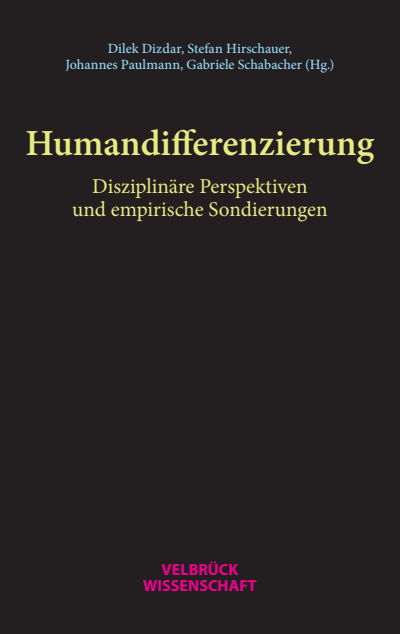
Behrends, Andrea:
Die Verwandlung von sudanesischen Geflüchteten in tschadische Flüchtlingsbürger:innen : Eine bürokratische Statuspassage.
In: Dizdar, Dilek ; Hirschauer, Stefan ; Paulmann, Johannes ; Schabacher, Gabriele (Hrsg.): Humandifferenzierung : Disziplinäre Perspektiven und empirische Sondierungen. - Weilerswist : Velbrück , 2021 . - S. 106-132
ISBN 978-3-95832-242-4 - Bewaji, John Ayotunde (Tunde) Isola: "African Studies and the Question of Diasporas"Hide
-
The concept Diaspora applied to Africa is a misnomer of sorts, bearing in mind that Africa was the original home of the oldest human beings. Science has discussed how the earlier waves of emigrant Africans (humans originally domiciled in Africa) have adapted to their environment, becoming various shades as melanin presence dictated. Later groups are in India, Tonga, New Zealand, Australia, the Americas: black skinned, flat nose, but with various forms of stretchered out hair. These earlier groups are not called, technically, Diaspora. Only recent migrants to the West, Europe, Asia Minor, Asia and the Americas are called Diaspora: they migrated voluntarily for various reasons or they were forced out of Africa as captives. Part of the challenges that African Studies instigate are fraught because of (a) the participation of continental Africans in slavery wars in Eastern, Central Africa, Northern and Central Africa; (b) the Middle Passage of the Atlantic and the Sahara/Pacific; (c) the empty baggage syndrome and epistemicide and, (d) the Willie Lunch Syndrome of Divide and Conquer exemplified in Obama phenomenon. African studies writ large must then encompass (a) Repairing the Breach; (b) Recovering the Heritage - Calypso, Blues and Jazz, Reggae, Rastafari, Sports; (c) Restoring Indigenous Knowledge Systems by erasing epistemicide and (d) Restoring the African humanity. These efforts must be multi/inter disciplinary and encompass all domains of human intellectual theory and practice. Recovering the human intellectual traditions and knowledge systems of continental and Diasporas would be a treasure trove of ideas to solve many of the challenges faced by humanity today; this will require transcending what Claude Ake has dubbed “Social Science as Imperialism”. In this essay, I attempt to sketch what would constitute a more appropriate, historiographically accurate and globally judicious understanding of African Studies that is holistic. My goal is to sketch an African Studies that is not segmented on the basis of the agendas of exogenous forces bent on decimating global African peoples, by playing diverse groups against each other, but one which recognizes the continuity of human heritage as primarily African heritage writ large, and one which recognizes that the African Diasporas, recent and classical, are all continuous with Africa feeding and renewing the world with humanity by virtue of being the original home of humanity. This calls for so many different approaches, but primary being the complete overhaul of the current curricula used to programme the minds of humanity, especially those emanating from European climes, to persist in negro-gaze: the objectification and exoticization of Africa and peoples of Africa globally, thereby derogating their humanities and agencies.Bewaji, John Ayotunde (Tunde) Isola:
African Studies and the Question of Diasporas.
Hrsg.: Maurus, Sabrina . Institute of African Studies
Bayreuth, Germany : Institute of African Studies , 2021 . - VI, 16 S. - (University of Bayreuth African Studies Working Papers ; 25 ) (Africa Multiple connects ; 2) - Biswas, Aparajita: "Engagement of China and India in the Western Indian Oceanlittoral and island states of East Africa"Hide
-
A significant development in contemporary times is the emergence of the Indian Ocean as an important economic zone and an area of intensifying rivalry between China and India. In this region, East African Indian Ocean littoral and island states have assumed importance because of their geo-strategic significance. Both India and China have increased their presence in the region and offered windows of opportunities to these states. While China’s intense relationship with the region began with the introduction of its One Belt One Road (OBOR) in 2013, India, on its part, has declared this region as a ‘top priority’ area in its foreign policy agenda. This article explores the driving factors behind the growing footprint of China and India in the Western Indian Ocean (WIO) littoral and island states in East Africa. While India and China have competing interests and strategies in this region, this article examines whether their increasing engagements bring development opportunities or pose challenges.
Biswas, A., 2021. Engagement of China and India in the Western Indian Ocean littoral and island states of East Africa. Journal of the Indian Ocean Region 1–18. - Fendler, Ute Les spectres des frontières : Tropique de la ViolenceHide
-
Les spectres des frontières : Tropique de la Violence.
Fendler, Ute:
In: Lendemains. Vol. 45 (2020) Issue 178/179 . - pp. 14-23.ISSN 0170-3803
- Ferrão, R. Benedito: “Disease and Discrimination in Goa: COVID-19 in the Afterlife of AIDS,”Hide
-
Mangor Hill in the city of Vasco da Gama (more popularly known as Vasco) became Goa’s first containment zone in June 2020 owing to a rising number of Coronavirus infections among its residents. What resulted was a slew of events where residents were stigmatised because of their associations with the city of Vasco, even beyond the containment zone. In one such instance in July 2020, Mahi Volvoikar, who had been experiencing abdominal pain, was refused attention by a doctor at the Goa Medical College; her husband turned to social media to complain about the discrimination they faced when the medic asked them to leave upon discovering they were from Vasco (NT Network, 2020).
In the realm of contagious diseases, stigma proliferates infectiously. As Leonardo de Castro (2015, 3) advises, ‘Stigma and discrimination continue to occupy the core of [an] epidemic. [T]hese … become part of the epidemic itself… .’ Several instances of anti-Chinese rhetoric from across the globe are proof that the stigma attached to the Coronavirus pandemic has international ramifications politically (Erlanger, 2020). Yet the pandemic-related stigmatisation is also personalised as has been seen with episodes of anti-Asian racism in the United States, as well as discrimination against Northeasterners in India. Thus, the stigma people from Vasco have experienced lately because of the high number of COVID-19 infections in their city is not unique. Nonetheless, infectious disease-related stigma in Goa occurs within the umbra of a particular history of contagion-discovery and virus associated prejudice. After all, the first instance of HIV-infection in India was detected in Goa.
Ferrão, R. Benedito, “Disease and Discrimination in Goa: COVID-19 in the Afterlife of AIDS,” Society and Culture in South Asia, “Social” Distancing, COVID-19, and South Asian Experiences [Special issue], 7.1 (January 2021), pp. 119-125
- Ferrão, R. Benedito: “Everyday: The Exquisite Intricate”Hide
-
Ferrão, R. Benedito, “Everyday: The Exquisite Intricate,” Tomás: The Journal of the UST Center for Creative Writing and Literary Studies, 3.2 (2020), pp. 174-186
- Ferrão, R. Benedito: "Running Naked and Unmasked in Goa: Pleasure in the Pandemic"Hide
-
In November 2020, Indian celebrity Milind Soman posted a picture of himself on social media, which showed him running naked on a beach. He was charged with obscenity. This article considers the time and place of Soman’s act over the alleged impropriety. The photograph was taken on a beach in Goa, the tropical setting serving as a pleasure periphery to India which annexed the region in 1961. Accordingly, a longer history of states of undress in Indian advertising, filmmaking, and tourism are considered here to apprehend how Goa has been posited in the Indian imagination as a destination for wanton self-gratification while local realities are undermined. The article thus interrogates what it means for Goa, whose economy is overly dependent on tourism, to serve as a vacation spot during the COVID-19 pandemic, especially when, in 2020, it had among the highest number of virus-related deaths in the country (Dias, 2020, par. 4). Using the metaphor of the celebrity who has no qualms about running naked and unmasked in Goa, this article enquires into what such events leave unrevealed in the economic requirement that some locales function as holiday destinations, even in the midst of a pandemic.
Ferrão, R. B., 2021. Running Naked and Unmasked in Goa: Pleasure in the Pandemic. eTropic 20, 134–156. https://doi.org/10.25120/etropic.20.1.2021.3789
- Ferrão, R. Benedito: “Twenty-Five Years after Dominic D’Souza: What Happens when your Queer Icon Refuses to Be?”Hide
-
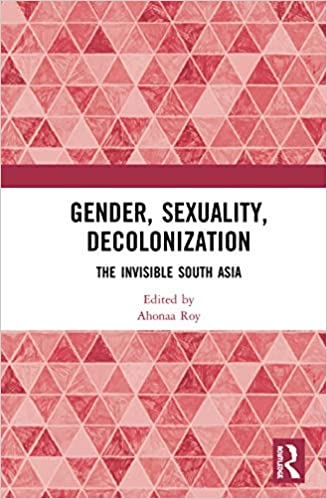
The year 2017 marked the 25th anniversary of the passing of activist Dominic D’Souza, who succumbed to AIDS-related complications briefly after being diagnosed as the first person in India to have become infected with HIV. On this anniversary, as in the past, D’Souza’s death was used as a platform for gay rights in India, not least because of the film My Brother… Nikhil (MBN; 2005), allegedly the first in India to depict a gay story. Yet D’Souza never claimed to be gay, and the film does not acknowledge the use of the activist’s life story in its credits. Using the director’s admission that MBN was nevertheless inspired by D’Souza’s life and legacy, this chapter examines it as a quasi-biopic that employs the struggles of the AIDS activist to champion the rights of middle-class gay men in India while failing to represent the larger political ramifications of AIDS advocacy. Alongside this, the essay also recoups the figure of D’Souza as a Goan person to consider what this could mean for the possibility of queer activism beyond the limitations of nationalism.
Ferrão, R. Benedito, “Twenty-Five Years after Dominic D’Souza: What Happens when your Queer Icon Refuses to Be?,” Gender, Sexuality, Decolonization: South Asia in the World Perspective, ed. Ahonaa Roy (Oxon and New York: Routledge, 2021), pp. 61-83
- Frede, Britta: "Female Islamic Knowledge in Africa : A Forgotten Story."Hide
-
Frede, Britta:
Female Islamic Knowledge in Africa : A Forgotten Story.
In: OASIS : A biannual Journal of the Oasis International Foundation. Bd. XV (Dezember 2020) Heft 30 . - S. 25-36.
ISSN 2037-1799 - Frede, Britta: "Le savoir islamique féminin en Afrique : Une histoire oubliée."Hide
-
Frede, Britta:
Le savoir islamique féminin en Afrique : Une histoire oubliée.
In: OASIS : Revue Semestrielle de la Fondation Internationale Oasis. Bd. XV (Dezember 2020) Heft 30 . - S. 25-36.
ISSN 2037-1799 - Frempong, Raymond: Stadelmann, David: "Risk preference and child labor: Econometric evidence"Hide
-
Households may invest in the human capital development of their children not only for altruistic reasons but also as insurance against future income shocks. Therefore, the allocation of the child's time between school and work is a function of the risk preference of the household head. This paper analyzes the relationship between parental risk preferences and child labor decisions using recall information on child labor and a risk elicitation question. Results reveal that risk‐averse households are more likely to send their children to work. Endogeneity issues are addressed by employing instrumental variables. These results suggest that child labor may be driven by the need to maximize the household's expected income from the child. Regarding heterogeneity, we find that the child labor effect of risk‐aversion is higher for older children. Furthermore, the father's risk‐aversion matters for the probability of child labor, while the intensity of child labor increases with the mother's risk‐aversion. The findings call for an understanding of the behavioral context of the affected households and how risk preferences can affect the success of proposed policies to reduce child labor.
Frempong, R.B., Stadelmann, D., 2021. Risk preference and child labor: Econometric evidence. Rev Dev Econ rode.12746. - Kalfelis, M.; Kabore, A.: "Le paradoxe de la violence et de la sécurité. L’Avenir de la lutte contre le terrorisme et ...Hide
-
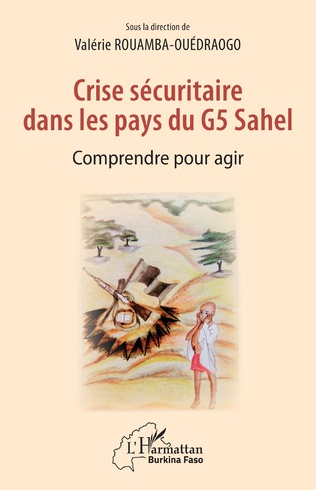
Cet ouvrage collectif est une contribution pluridisciplinaire à la compréhension de la crise sécuritaire dans les pays du G5 Sahel à travers sa genèse et une évaluation des différentes approches et actions proposées pour sa résolution. La réponse militaire apportée par ces pays a montré ses limites, et un des plus gros défis en matière de politique sécuritaire est de se tourner désormais vers le développement socioéconomique des zones touchées tout en luttant contre les groupes armés dont les revendications ne sont pas toujours clairement avancées.
Together with Amado Kabore (2021): "Le paradoxe de la violence et de la sécurité. L’Avenir de la lutte contre le terrorisme et l'insécurité au Burkina Faso", in: Rouamba-Ouédraogo, Bowendsome C. V. (Hg.): Crise sécuritaire dans les pays du G5 Sahel : comprendre pour agir. Harmattan.
- Kalfelis, Melina: "NGO als Lebenswelt. Transnationale Verflechtungen im Arbeitsalltag von Entwicklungsakteuren"Hide
-
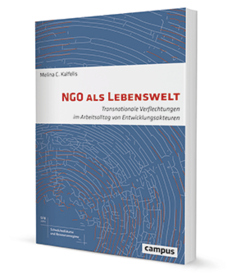
Der Arbeitsalltag westafrikanischer Entwicklungsakteure im Rahmen von NGO-Partnerschaften ist weitgehend unerforscht. Die Tatsache, dass viele dieser Akteure selbst an der Schwelle zu einem Phänomen stehen, das in Entwicklungsdiskursen als »Armut« bezeichnet wird, findet kaum Beachtung. Diese Ethnographie führt die paradigmatischen Veränderungen der Internationalen Zusammenarbeit mit der Analyse eines von Unsicherheit geprägten Alltags in Burkina Faso zusammen. An der Schnittstelle von Theorie und Empirie werden neue Einsichten zu den Verflechtungen von NGO-Praktiken in Westafrika mit transnationalen Ordnungen der Entwicklungspraxis gewonnen.
Kalfelis, M.C., Campus Verlag, 2020. NGO als Lebenswelt transnationale Verflechtungen im Arbeitsalltag von Entwicklungsakteuren. - Lawanson,T.: "Gated Communities in Lagos, Nigeria: Development Solution or Emerging Risk?"Hide
-
Lawanson.T, (2021) Gated Communities in Lagos, Nigeria: Development Solution or Emerging Risk? Sub-Saharan Africa Architectural Guide. Berlin: DOM Publisher
- Maurus, Sabrina: "Die Selbstverständlichkeiten von Schule und Kinderarbeit."Hide
-
Wie selbstverständlich es in Deutschland geworden ist, dass alle Kinder eine Schule besuchen, zeigen die Schul- und Kitaschließungen während der Corona-Pandemie. Dass Kinder den ganzen Tag zu Hause sind, ist eine ungewohnte Situation für viele Haushalte und beeinträchtigt den Arbeitsalltag ihrer Eltern. Im Gegensatz dazu ist es in anderen gesellschaftlichen Kontexten selbstverständlich, dass Kinder die Arbeit ihrer Eltern begleiten und selbst mitarbeiten. Die Durchsetzung einer allgemeinen Schulpflicht und ein Verbot von Kinderarbeit stellt diese Haushalte vor Herausforderungen.
Maurus, Sabrina:
Die Selbstverständlichkeiten von Schule und Kinderarbeit.
In: Zeitschrift der Gewerkschaft Erziehung und Wissenschaft Landesverband Bayern. (8 März 2021) . - S. 17-18.
ISSN 1431-2158 - Meyer, B., Veer, P. van der (Eds.): "Refugees and religion: ethnographic studies of global trajectories."Hide
-
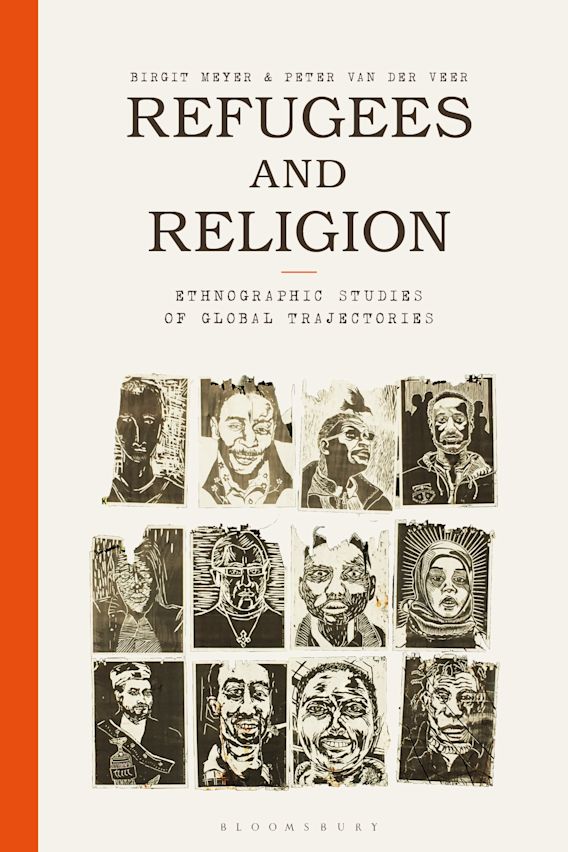
This book is open access and available on www.bloomsburycollections.com. It is funded by Utrecht University and the Max Planck Society.
Understanding religion from a material and corporeal angle, this book addresses the ways in which refugees practice their religions and convert or develop new faiths. It also evaluates how secular institutions in Europe frame and determine what is classified as religion according to the law, and delineate the limits of religious authority, religious practice, and religious speech.
The question of nationalism and migration has been shaping the political landscape in Europe for more than a decade, resulting in a nationalist upsurge. This volume places the current trajectories of people from Asia and Africa who flee from conditions such as oppression and conflict, and who are seeking refuge in Europe in a broader historical and comparative perspective. In so doing, it addresses past experiences in Europe with the role of religion in both producing and accommodating refugees, in the aftermath of the Peace of Westphalia, World War II, and in the context of the Cold War.
Refugees and Religion: Ethnographic Studies of Global Trajectories (ed with Peter van der Veer), Bloomsbury 2021, open access: https://www.bloomsburycollections.com/book/refugees-and-religion-ethnographic-studies-of-global-trajectories/
- Mogorosi, Tumi: "DeAesthetic. Writings from and with the Black Sonic"Hide
-
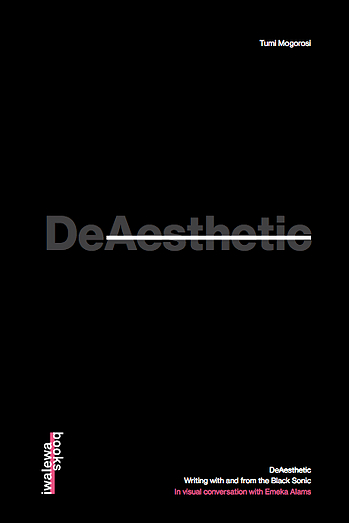
DeAesthetic. Writing with and from the Black Sonic presents essays by Johannesburg-based artist, jazz percussionist and thinker Tumi Mogorosi. The essays focus on the Black Sonic as a dislocated episteme, which identifies the aesthetic as a limitation. In their de-centring, the texts fundamentally open a way to write and read beyond hegemonic knowledge validations. As a reading that straddles between Brenda Fassie, Louis Armstrong, Louis Moholo-Moholo and Sade, they are in visual conversation with symbols created by Emeka Alams of Gold Coast Trading Company.
Tumi Mogorosi. DeAesthetic. Writings from and with the Black Sonic. Johannesburg, 2021., ed. by Siegert, Nadine & Fink, Katharina
- Musch, T.: "Exploring Environments through Water: An Ethno-Hydrography of the Tibesti Mountains (Central Sahara)"Hide
-
An ethno-hydrography, studying the organization of space through water, can provide a key to understanding how people conceive their environments in a holistic way. Based on mapping as a dynamic process, different representations of river systems among the Tubu Teda, who live in the Tibesti mountains (Central Sahara), are described in this paper. I first discuss a large-scale subdivision of the mountains into drainage basins, and then representations of a sub-regional and local river system, including an engraving on a sandstone rock. Finally, I discuss these case studies in the context of holistic experiences of environments and the dynamic processes of mapping.
Musch, Tilman (2021): "Exploring Environments through Water: An Ethno-Hydrography of the Tibesti Mountains (Central Sahara)". Ethnobiology Letters 12(1).
- Neubert, Dieter; Stoll, Florian: "Diversity as sociocultural difference. Middle class milieus in urban Kenya"Hide
-
Neubert, Dieter & Stoll, Florian. 2021. Diversity as sociocultural difference. Middle class milieus in urban Kenya. In: Böllinger, Sarah; Mildner, Carsten & Vierke, Ulf (eds.), Diversity gains: Stepping stones and pitfalls, Baden-Baden: Nomos, 149-172.
- Nubi. T, Anderson, A, Lawanson T and Oyalowo. B (eds): "Housing and SDGs in Africa"Hide
-
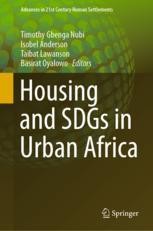
There is a dearth of collections of scholarly works dedicated wholly to African issues, that comes out of the work done by African scholars and practitioners with both African collaborators and from elsewhere. This volume brings together scholarly works and thoughts that cut across and intertwine the tripods-environment-consciousness, socially just development and African development into options that could deliver on the promise of the SDGs. The book project is an initiative of the Centre for Housing and Sustainable Development at the University of Lagos, which realized the gap in ground research linking the housing sector with the SDGs in African cities. This book therefore presents chapters that explore the interconnections, interactions and linkages between the SDGs and Housing through research, practice, experience, case-studies, desk-based research and other knowledge media.
Nubi. T, Anderson, A, Lawanson T and Oyalowo. B (eds). (2021) Housing and SDGs in Africa. Singapore: Springer
- Obaitor, O.S.; Lawanson, T.O.; Stellmes, M.; Lakes, T.: "Social Capital: Higher Resilience in Slums in the Lagos Metropolis."Hide
-
Different slums exhibit different levels of resilience against the threat of eviction. However, little is known about the role of the social capital of the slum community in this context. This study investigates the factors contributing to slum resilience in the Lagos Metropolis, Nigeria, through a social capital lens. This study first investigates land allocation in slums, then the available social capital, and subsequently how this capital influences resilience to the threat of eviction in slums. Data were collected in two slum communities, in Lagos, through in-depth interviews and focus groups discussion. This study shows that land allocation is done by the traditional heads, contrarily to the mandate of the Nigeria Land Use Act of 1978. Furthermore, there is a form of structural social capital through the presence of government registered community development associations in the slums; however, their activities, decision-making process and the perception of the residents’ towards their respective associations, differs. This led to differences in trust, social cohesion and bonding ties among residents of the slum, thereby influencing resilience to the threat of eviction in slums. Since community group associations, through the appointed executives, drive the efficient utilization of social capital in slums, this study therefore recommends their restructuring in order to support a sustainable solution to the threat of eviction in slums in Lagos.
Obaitor, O.S.; Lawanson, T.O.; Stellmes, M.; Lakes, T. Social Capital: Higher Resilience in Slums in the Lagos Metropolis. Sustainability 2021, 13, 3879. https://doi.org/10.3390/su13073879
- Peju Akande, Toni Kan, Jahman Anikulapo: "Who’s Who in the Yorùbá Pantheon? The 16 most important orisas"Hide
-
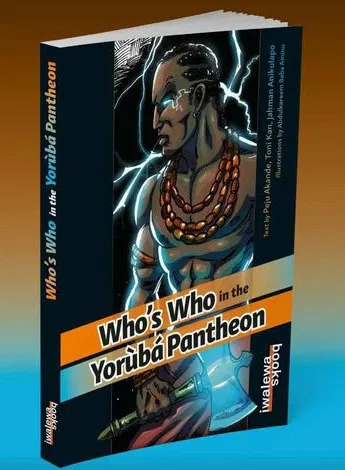
The book captures, celebrates and hopes to re-appropriate the Yoruba Orisas who have been demonised and characterised as animist personages especially Esu, who has been mis-characterised as the devil.
Focusing on 16 orisas, Who’s Who in the Yoruba Pantheon, attempts to define who the orisas are by focusing on their characteristics and essences while illuminating the crucial role they play as custodians of cultural ethos and beliefs. It also captures the primacy of the orisas as agents of communal and cultural cohesion.
Peju Akande, Toni Kan, Jahman Anikulapo: Who’s Who in the Yorùbá Pantheon? The 16 most important orisas. Lagos 2021, edited by Siegert, Nadine; and Fink, Katharina
- Phillips, J. et al.: "Global South Youth Studies, Its Forms and Differences among the South, and between the North and South"Hide
-
This essay comprises reflections of scholars in and originating from the Global South, plus some comments from Northern scholars, forming an integrated dialogue. It focuses on the development of youth studies in Africa, Latin America, parts of Asia, and the Caribbean, illuminating how youth studies in, from, and for the South emerge as a result of struggle—to get recognition, to theorize beyond dominant Northern frameworks, and state-led developments, and to be heard. Paradoxically, youth studies from the South are strongly influenced by the work of Northern scholars. Despite these influences, Northern ideas struggle to grasp local contexts and conditions and consequently there is a need for more localized knowledge and theorizing to make sense of young people’s lives outside the Global North. The reflections provide a reminder that struggles over the meaning and situation of youth, within particular contexts, are highly political.
Batan, C.M., Cooper, A., Côté, J.E., France, A., Gilbert-Roberts, T.-A., Hettige, S., Miranda, A., Nilan, P., Philipps, J., Ugor, P., 2021. Global South Youth Studies, Its Forms and Differences among the South, and between the North and South, in: Swartz, S., Cooper, A., Batan, C.M., Kropff Causa, L. (Eds.), The Oxford Handbook of Global South Youth Studies. Oxford University Press. https://doi.org/10.1093/oxfordhb/9780190930028.013.4
- Schramm, Katharina ; Dube, Mmeli: "This is our water : The politics of locality and the commons in the city of Bulawayo."Hide
-
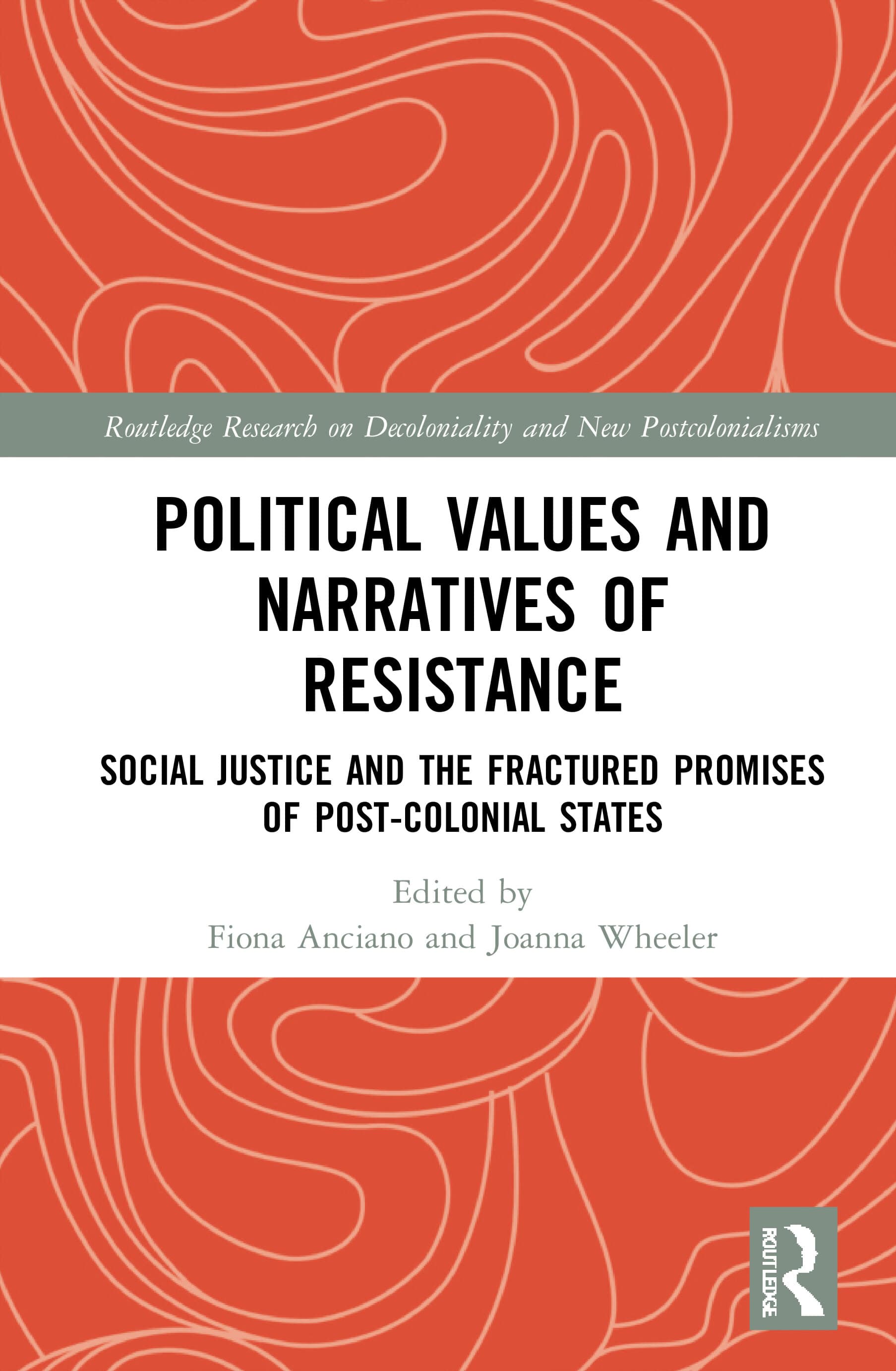
The city of Bulawayo has had water problems since its establishment. This is partly due to the semi-arid climate within which it is situated, but also to rising levels of demand that have not been met with adequate supply. There are many disagreements among various stakeholders around ownership and management of water infrastructure. Between 2005 and 2015, two waves of protests occurred that had a profound impact on citizen-state relations at both the national and local levels of government. The first wave, 2005–2008, was supported by local city authorities as well as residents. They directed their protest at the ruling government’s decision to effectively transfer the management and ownership of the city’s water resources to a central government agency, the Zimbabwe National Water Authority (ZINWA). The transfer to that agency was part of a national program supposedly meant to improve water provision in the country’s cities and towns. However, the residents of Bulawayo and other cities that were run by the opposition regarded this decision about a common good – water – as a paternalistic assault on their political autonomy. In the end, these protests were successful, and Bulawayo remained the only city in control of its water resources. A few years later, the second wave of protests, 2011–2015, took a different turn. This time, people directed their protest at the City of Bulawayo and its decision to privatize the common good by introducing prepaid water meters. Again, the city’s rationale for the intended changes in the water management system was, purportedly, to improve supply and access. Yet, the residents of Bulawayo fiercely rejected this intervention, this time framing their protests in the language of indignation and need. This chapter critically engages the shifting political subjectivities of protesters in relation to national and local authorities in Bulawayo. By rethinking the notion of water as a common good, it also critically engages the concept of the moral economy as a lens of interpreting the ways in which the citizens in Bulawayo perceive and engage with the state.
Schramm, Katharina ; Dube, Mmeli:
This is our water : The politics of locality and the commons in the city of Bulawayo.
In: Anciano, Fiona ; Wheeler, Joanna (Hrsg.): Political Values and Narratives of Resistance : Social Justice and the Fractured Promises of Post-colonial States. 1. Auflage. - London : Routledge , 2021 . - S. 105-123 . - (Routledge Research on Decoloniality and New Postcolonialisms ; 11 )
ISBN 978-0-367-63905-1, DOI: https://doi.org/10.4324/9781003121244-7 - Stroh, A.: "Traces of socialism in Burkina Faso’s party system: the trajectory of Sankarism in times of political liberalization"Hide
-
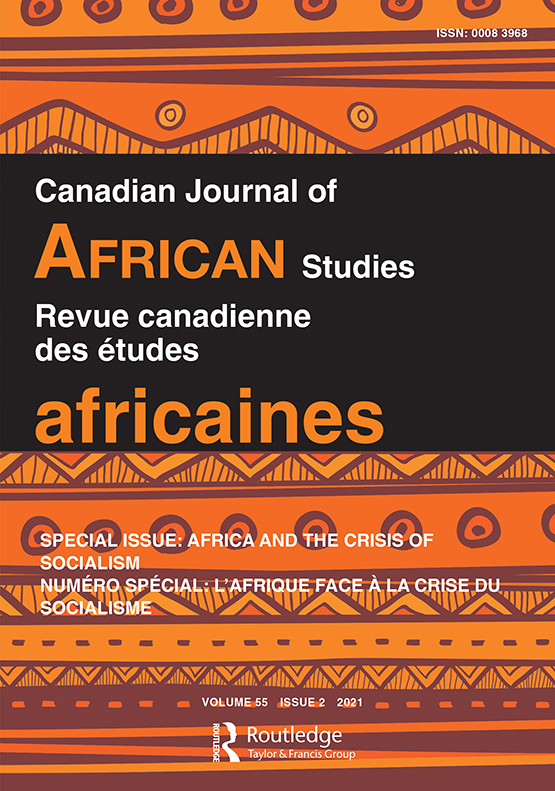
The leftist traces of Thomas Sankara, Africa’s Che, in Burkina Faso and beyond is undeniable. The recent insurgency that overthrew Blaise Compaoré and his long-standing government framed itself as a second revolution, referring extensively to Sankara, whose image proved to mobilize many young protesters. Political parties that identify as Sankarist have opposed Compaoré over decades and managed not to fade away despite the increasing temporal distance from the first revolution led by Sankara between 1983 and 1987. This contribution argues that Sankarism survived in Burkina Faso’s party system because partial political liberalization allowed Sankarist politicians to compete against Compaoré, and because Sankarism adapted to a changing institutional environment and turned away from socialism to become social democratic by trend. In other words, contingently emerging pockets of liberal democracy have let Sankarism survive.
Stroh, A., 2021. Traces of socialism in Burkina Faso’s party system:the trajectory of Sankarism in times of political liberalization.Canadian Journal of African Studies / Revue canadienne des étudesafricaines 55, 351–371.
2020 - IV
- Adeboye, Olufunke: "Fighting in God’s Name: Religion and Conflict in Local-Global Perspectives"Hide
-
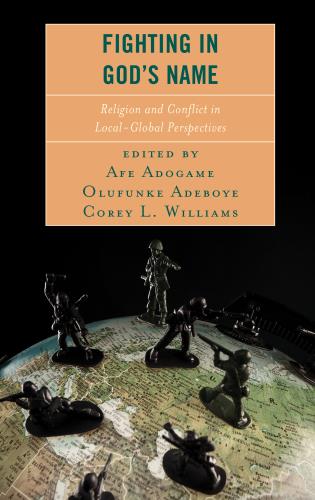
This collection book provides a critical, inter-disciplinary exploration of the relationship between religion, conflict, violence, and tolerance from local-global perspectives. It focuses mainly on theoretical issues and approaches with contrasting case studies drawn from Africa, Europe, the Middle East, North America, and South Asia.
Adogame, A., Adeboye, O., Williams, C.L. (Eds.), 2020. Fighting in God’s name: religion and conflict in local-global perspectives. Lexington Books, Lanham. - Agbele, Fortune; Stroh, Alexander: "Manoeuvring the Complexities of Field Research in Africa: Experiences from ....Hide
-
Agbele, Fortune; Stroh, Alexander: "Manoeuvring the Complexities of Field Research in Africa: Experiences from Voter Turnout Research in Ghana"
Field research enables interaction between a researcher and research participants, offering an opportunity for the discovery of primary empirical data. As exciting as field research can be, for a novice researcher or research in unfamiliar terrain, community field research can also be daunting. These challenges may include, but are not limited to, the determination of community entry strategies, identification of potential respondents, as well as dealing with the non-availability of respondents. Based on field experiences, this research note offers practical suggestions on how to deal with these challenges within the realm of political science fieldwork. The experiences from a Voter Turnout research in Ghana shared in this note are of particular relevance to field research designs in the subject area of voter participation, focusing on voters as informants rather than experts or members of a professional network. Keywords: Field Research; Political Science; Field Strategies; Voter Turnout.
- Behrends, Andrea: "Renegotiating humanitarian governance. Challenging invisibility in the Chad-Sudan borderlands"Hide
-
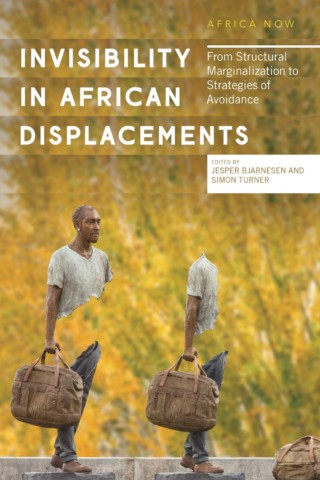
African migrants have become increasingly demonised in public debate and political rhetoric. There is much speculation about the incentives and trajectories of Africans on the move, and often these speculations are implicitly or overtly geared towards discouraging and policing their movements. What is rarely understood or scrutinised however, are the intricate ways in which African migrants are marginalised and excluded from public discourse; not only in Europe but in migrant-receiving contexts across the globe.
Invisibility in African Displacements offers a series of case studies that explore these dynamics. What tends to be either ignored or demonised in public debates on African migration are the deliberate strategies of avoidance or assimilation that migrants make use of to gain access to the destinations or opportunities they seek, or to remain below the radar of restrictive governance regimes.
This books offers fine-grained analysis of the ways in which African migrants negotiate structural and strategic invisibilities, adding innovative approaches to our understanding of both migrant vulnerabilities and resilience.
Behrends, Andrea: Renegotiating humanitarian governance : challenging invisibility in the Chad–Sudan borderlands. In: Bjarnesen, Jesper ; Turner, Simon (Hrsg.): Invisibility in African Displacements : From Structural Marginalization to Strategies of Avoidance. - New York : Zed Book Press , 2020 . - S. 19-35
ISBN 9781786999207 - Boukari, Oumarou: Investigations linguistiques et pragmatico-discursives autour des violences verbales dans les interactions Hide
-
Boukari, Oumarou (2020) : Investigations linguistiques et pragmatico-discursives autour des violences verbales dans les interactions Songhay-Zarmas : entre transgression, discours moral et morale du discours. In : Lɔŋgbowu, Revue des Lettres, Langues et Sciences de l’Homme et de la Société. Université de Kara. Nr. 009, Vol. 2, pp.91-114.
- Boukari, Oumarou; ADJÉ, Tanguy Aka Cédric: Rituels de salutation dans les interactions abouré et phraséologismes ...Hide
-
Boukari, Oumarou / ADJÉ, Tanguy Aka Cédric (2020) : Rituels de salutation dans les interactions abouré et phraséologismes communicationnels : à la recherche d’une typologisation. In : Revue Cahiers Ivoiriens de Recherche Linguistique (C.I.R.L). Université Felix Houphouet Boigny. Nr. 47, pp. 123-140.
- Brahima, A.; Turner, I.; Woldegioris, E. T.: "Hide
-
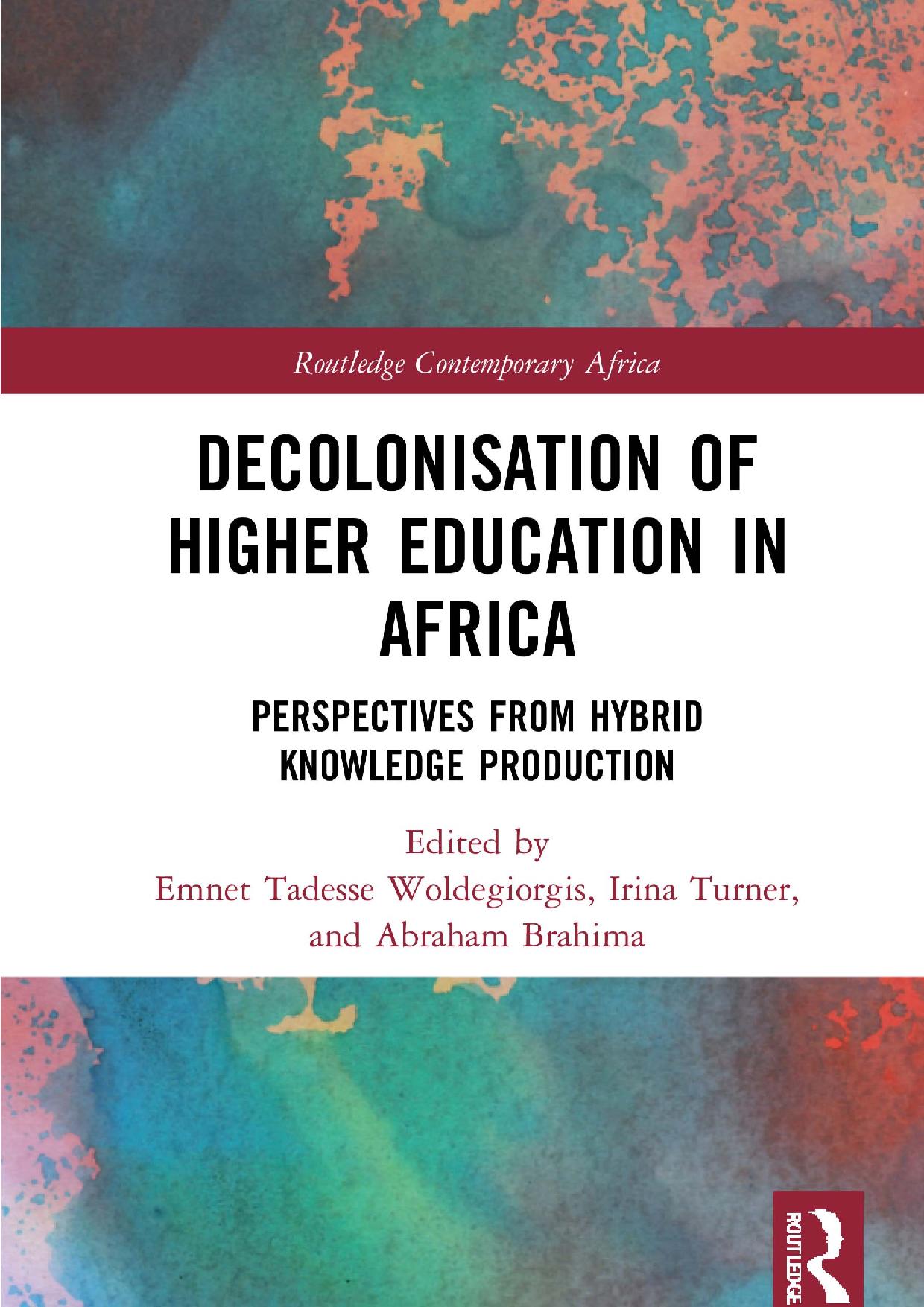
This book discusses the status and importance of decolonisation and indigenous knowledge in academic research, teaching, and learning programmes and beyond.
Taking practical lessons from a range of institutions in Africa, the book argues that that local and global sciences are culturally equal and capable of synergistic complementarity and then integrates the concept of hybrid science into discourses on decolonisation. The chapters argue for a cross-cultural dialogue between different epistemic traditions and the accommodation 'Indigenous' knowledge systems in higher education. Bringing together critical scholars, teaching and administrating academics from different disciplines, the chapters provide alternative conceptual outlooks and practical case-based perspectives towards decolonised study environments.Decolonisation of Higher Education in Africa : Perspectives from Hybrid Knowledge Production.
Hrsg.: Brahima, Abraham ; Turner, Irina ; Woldegioris, Emnet Tadesse
London ; New York, NY : Routledge , 2020 . - 244 S. - (Routledge Contemporary Africa Series )
ISBN 978-0-367-36060-3 DOI: https://doi.org/10.4324/9780429355288 - Braukmann, F.; Haug, M.; Metzmacher, K; Stolz, R. (eds.): "Being a Parent in the Field"Hide
-
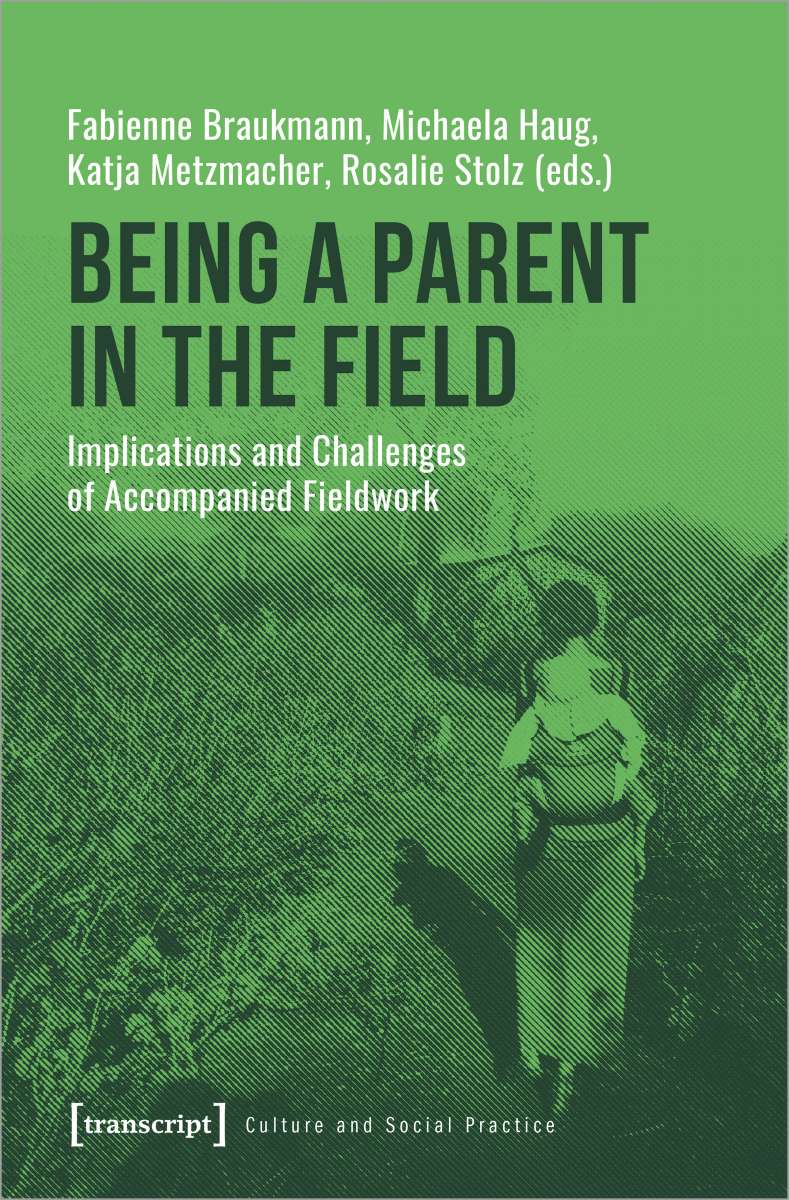
How does being a parent in the field influence a researcher's positionality and the production of ethnographic knowledge?
Based on regionally and thematically diverse cases, this collection explores methodological, theoretical, and ethical dimensions of accompanied fieldwork. The authors show how multiple familial relations and the presence of their children, partners, or other family members impact the immersion into the field and the construction of its boundaries.
Female and male authors from various career stages exemplify different research conditions, financial constraints, and family-career challenges which are decisive for academic success.
Being a parent in the field: implications and challenges of accompanied fieldwork, 2020. , Kultur und soziale Praxis. Transcript, Bielefeld. - Fendler, Ute: "L’interface d’humour: comédies et rencontres interculturelles dans le cinéma français"Hide
-
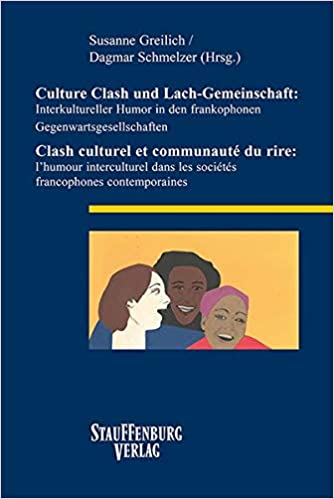
Die frankophonen Gesellschaften zeichnen sich heute durch das Nebeneinander verschiedener sozialer und kultureller Modelle aus. Fragen kultureller und geschlechtlicher Identität und Alterität sind daher ebenso wie Kulturkontakt und Kulturkonflikt ständiges Thema nicht nur politischer Debatten, sondern auch künstlerischer Repräsentationen. Nachdem Literatur und Film sich dieser Thematik in den 1980er und 1990er Jahren v.a. in ernster und kritischer Form angenommen haben, kann man seit der Jahrtausendwende einen anderen Zugriff beobachten: Situationen des culture clash und interkultureller Missverständnisse, Vorurteile und Ressentiments werden im Modus des Lachens behandelt und humorig durchgespielt. Angesichts ihres großen Publikumserfolgs sehen sich Humoristen wie Culture-Clash-Komödien dabei regelmäßig dem Vorwurf ausgesetzt, Probleme kleinzureden, die Debatte in Sentimentalität zu ersticken oder bar jeder soziopolitischen Relevanz zu sein. In 12 Beiträgen nimmt der Band sich vor, diesem Eindruck entgegenzutreten und die spezifischen Potentiale des Humors als wohlwollender Variante der Komik in verschiedenen medialen Formaten zu untersuchen. Neben Filmkomödien u.a. von Klapisch, Allouache, Boon, de Chauveron und Rambaldi kommen Theaterstücke, Web-Serien, Stand-Up-Comedy und Erzähltexte in den Blick. Der Schwerpunkt des Bandes liegt auf dem Hexagone selbst, für das sich die Frage des Zusammenspiels von Humor und Identitätsdebatte nicht nur angesichts der postkolonialen Situation, sondern auch vor dem Hintergrund des Republikanismus einerseits und des communautarisme andererseits mit besonderer Virulenz stellt.
Fendler, Ute:
L'interface d'humour : Comédies et rencontres interculturelles dans le cinéma français.
In: Greilich, Susanne ; Schmelzer, Dagmar (Hrsg.): Culture Clash und Lach-Gemeinschaft : Interkultureller Humor in den frankophonen Gegenwartsgesellschaften. - Tübingen : Stauffenburg , 2020 . - S. 31-50
ISBN 978-3-95809-265-5 - Fendler, Ute: "Lusophone filmmaking in the realm of transnational African cinemas: from ‘global ethnic’ to ‘global aesthetics"’Hide
-
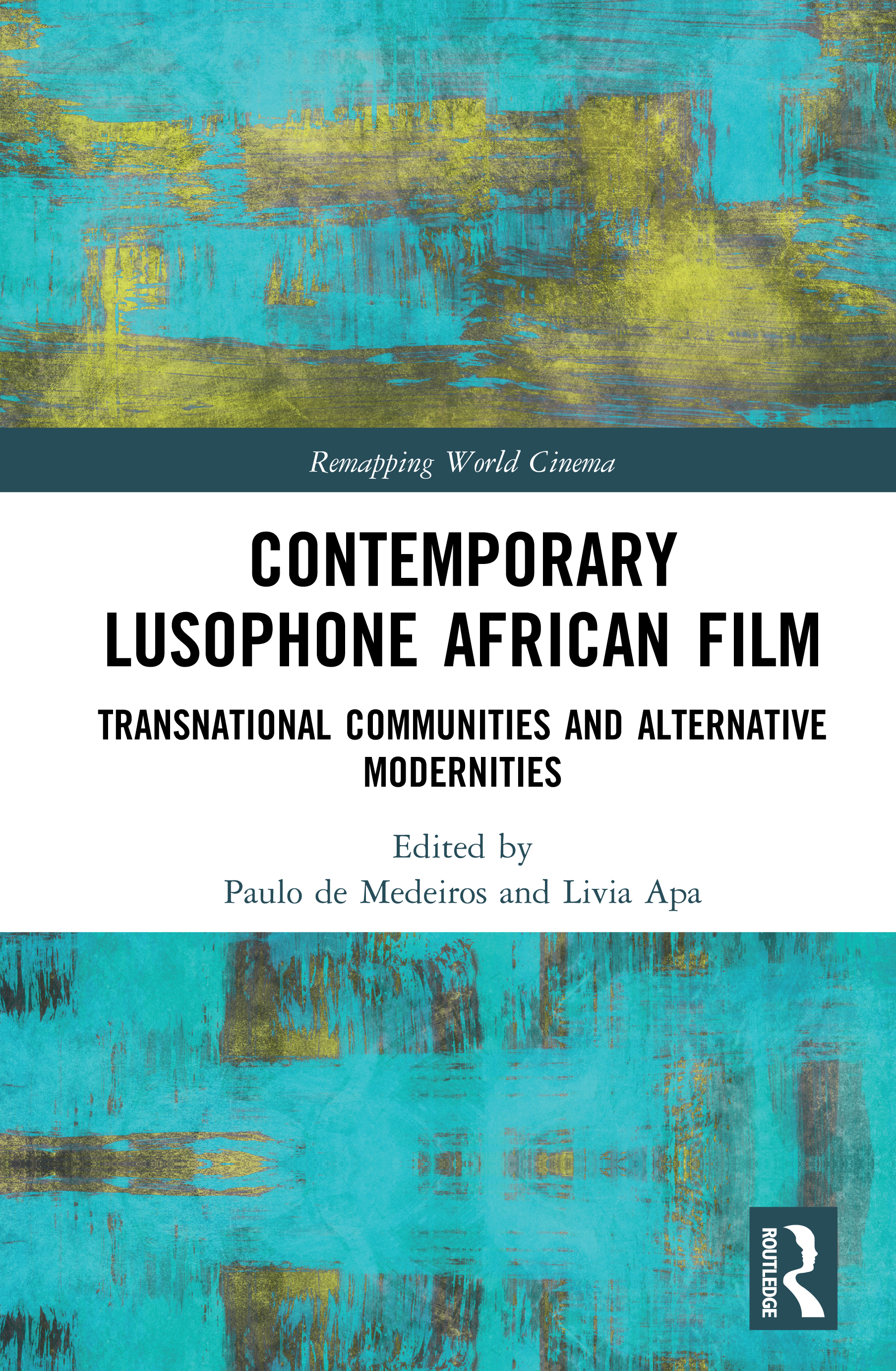
Lusophone cinemas are generally marginalized in discussions of African cinema. The very peculiar situation of Lusophone cinema in Africa overlaps with the specificities of African cinemas in an international context. African films are rarely present in the ‘global ethnic’ stage: and while there is some analysis that would ask for the anthropological and sociological knowledge transmitted, it is not reduced to it. This chapter discusses some Luso-African films using the new approach based on these key concepts in order to illustrate the possible shift in the appreciation of films as an artistic positioning on a world stage where linguistic and regional affiliations are characteristics among others. The aesthetics of the film are peculiar in an African context, but in its symbolic usage of colours and sound, the film could be closer to films by Marker or the Nouvelle Vague.
Fendler, Ute:
Lusophone filmmaking in the realm of transnational African cinemas : from 'global ethnic' to 'global aesthetics'.
In: Apa, Livia ; de Medeiros, Paulo (Hrsg.): Contemporary Lusophone African Film : Transnational Communities and Alternative Modernities. - London : Routledge , 2020 . - (Remapping World Cinema )
ISBN 978-0-367-13497-6 -
Fendler, Ute: "Re-voir les drames
: Yaaba et Tilaï d'Idrissa Ouédraogo". Hide -
Fendler, Ute:
"Re-voir les drames <ruraux> : Yaaba et Tilaï d'Idrissa Ouédraogo".
In: Actes du colloque international en hommage au cinéaste burkinabé Idrissa Ouédraogo. - Ouagadougou , 2020
ISBN 978-2-84775-256-4 - Glasman, Joël: " The invention of impartiality: the history of a humanitarian principle, from a legal, strategic and algorithmi ...Hide
-
The principle of impartiality, which is often reduced to a principle of mathematical distribution, was originally coined by the International Committee of the Red Cross (ICRC), at that time on a quest for legitimacy. However, reducing impartiality to a resource distribution algorithm strengthens the overarching position held by non-territorial organisations. This is the theory put forward by the author in his latest book.
Impartiality in one of the least disputed humanitarian principles in the aid sector. While the meaning and usages of other principles, such as neutrality and independence, are passionately debated, there is a broad consensus about the principle of “impartiality”. Indeed, not only the large humanitarian organisations – both secular and faith-based non-governmental organisations (NGOs), as well as the American and European aid agencies – all endorse the principle, but nation-states and private funding bodies even give it a special place. ...more
Joël Glasman, The invention of impartiality: the history of a humanitarian principle, from a legal, strategic and algorithmic perspective, 18 November 2020
- Gruber, Valerie V. V.: "Identificando Pesquisadores Pesquisando Identidades: Rumo a uma Análise Reflexiva dos ...Hide
-
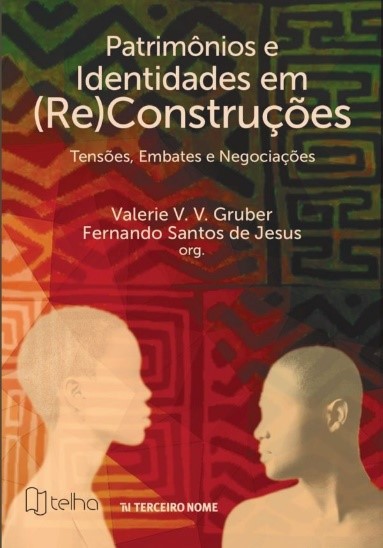
Como podemos falar de identidades em países que foram colonizados, sem reproduzir incontestadamente as categorizações dos colonizadores? Como podemos (re)valorizar os saberes dos grupos marginalizados, sem negar as suas relações complexas com as culturas hegemônicas? Enfim, como podemos fazer pesquisa sobre processos identitários, sem ocultar a nossa própria inserção nas estruturas de poder? A partir dessas questões, o objetivo principal da minha contribuição para este livro é fazer uma reflexão crítica sobre os processos identitários que acontecem no decorrer das nossas pesquisas. Concomitantemente, pretendo realçar a importância de uma (co)produção de conhecimentos que visa superar, na medida do possível, as relações desiguais de poder-saber. Para isso, convém combinar as perspectivas de diferentes autores do Sul e do Norte Global, representando diversos contextos socioculturais, identificações étnico-raciais, gêneros e disciplinas acadêmicas. Entre eles destacam-se o francês Pierre Bourdieu, a argentina Irene Vasilachis de Gialdino, o português Boaventura de Sousa Santos e o brasileiro Milton Santos. Cabe acrescentar que o artigo está enfocado na pesquisa social qualitativa que implica trabalho de campo, mesmo que muitas das noções expostas possam ser aplicadas também a outras áreas de conhecimento. A minha reflexão concluirá com uma manifestação a favor de diálogos que ultrapassam barreiras culturais, hierarquias de poder e fronteiras disciplinares. Ao todo, esse artigo é um apelo para que cada um de nós questione as dinâmicas identitárias que distorcem a própria visão e valorize os conhecimentos dos sujeitos que pretende conhecer, respeitando tanto a igualdade como as diferenças.
Gruber, Valerie V. V., 2020. “Identificando Pesquisadores Pesquisando Identidades: Rumo a uma Análise Reflexiva dos Processos Identitários na (Co)Produção de Conhecimentos”, in: Patrimônios e Identidades em (Re)Construções: Tensões, Embates e Negociações, eds. Valerie V. V. Gruber; Fernando Santos de Jesus. Rio de Janeiro: Telha; Terceiro Nome, 2020, pp. 19-49.
- Gruber, Valerie V. V.; Jesus, F.: "Patrimônios e Identidades em (Re)Construções: Tensões, Embates e Negociações"Hide
-

Against the backdrop of tensions, transformations and disruptions, this book attests to the importance of dealing with questions related to identities and cultural heritage in Latin America and Africa. Adopting innovative theoretical approaches, the 16 authors foreground their argumentations on empirical findings from Brazil, Colombia, South Africa, Angola and Cape Verde. The first part of this interdisciplinary volume explores the plurality of identity formation processes in different contexts, ranging from research and education to music and religion. In the second part, the authors examine narratives, memories and social practices of individuals and groups who are invisibilised in their societies. They include residents of disadvantaged neighbourhoods as well as Afro-Brazilian intellectuals. The third part focuses on political, economic, social and technological initiatives aimed at innovation and the preservation of the natural and cultural heritage on both sides of the Atlantic. The book ensues from critical discussions, reflections and the personal initiative of committed young scholars who participated in the XVIII International Doctoral School “Fábrica de Ideias: Patrimônio, Desigualdade e Políticas Culturais” in São Luís/Maranhão (Brazil) in March 2017. Within the context of the UN International Decade for People of African Descent (2015-2024), the authors uncover inequalities related to cultures of remembrance, identity constructions and political negotiation processes. By way of critical analyses and thought-provoking impulses, their texts constitute a fundamental contribution to contemporary debates in the cultural and social sciences.
Gruber, Valerie V. V.; Jesus, Fernando Santos de (eds.). Patrimônios e Identidades em (Re)Construções: Tensões, Embates e Negociações. Rio de Janeiro: Telha; Terceiro Nome, 2020. ISBN 978-65-86823-04-2.
- Häberlein, Tabea; Maurus, Sabrina: Losing or Securing Futures? Looking Beyond ‘Proper’ Education to Decision-Making ...Hide
-
The education of young people in Africa has been receiving increasing political attention due to expanded schooling and, as a result, an expanding number of unemployed educated youths who challenge governments. While many studies have described young people in Africa as being in a stage of ‘waithood’, this special issue looks at decision-making processes in youths’ education. The articles, which are mainly based on anthropological fieldwork, show how fears of ‘losing’ the future and ideas of ‘securing’ it guide decisions about young people’s education. Economic, political, moral, gendered, and religious factors are decisive in educational decision-making processes. Moreover, the status and prestige attributed to various forms of education impact those decisions. By looking beyond ideas of ‘proper’ education, which often reduce it to public schooling, this issue gives insight into the educational landscape in Africa and its connections to those of other continents that shapes young people’s lives and futures.
Häberlein, T., Maurus, S., 2020. Losing or securing futures? Looking beyond ‘proper’ education to decision-making processes about young people’s education in Africa – an introduction. Children’s Geographies 18, 569–583. - Kvangraven, I.; Koddenbrock, K.; Sylla N.; "Financial subordination in 21st century Africa: What about financialization?"Hide
-
The financialization debate has not paid enough attention to the African continent. The continent's populations and governments have found creative ways of dealing with the capitalist world market and political power relations since decolonization in the late 1950s. However, several forms of structural dependence and subordination persist. We ask in this article how the global process of financialization has unfolded across the continent and what it means for relations of dependence. We understand financialization as the global expansion of financial practices, and, in particular, the financial sector, that followed the end of the Bretton Woods era. We consider to what extent it has occurred at all in the four case study countries of Mauritius, Nigeria, Zambia, and South Africa. The empirical analysis of aggregate country data shows that financialization is, at best, an uneven and patchy process on the continent, not a general structural shift in the way capital accumulation is organized. Rather, where financialization occurred, it appears to have diversified the relations of dependence that states, corporations, and populations have found themselves in.
Kvangraven I, Koddenbrock, K, Sylla Ndongo (2020) Financial subordination in 21st century Africa: What about financialization? Journal for Community Development, forthcoming
- Matzke, C.; van der Hoven, L.; Odhiambo, C. ; Roos, H.: "African Theatre 19 : Opera & Music Theatre"Hide
-
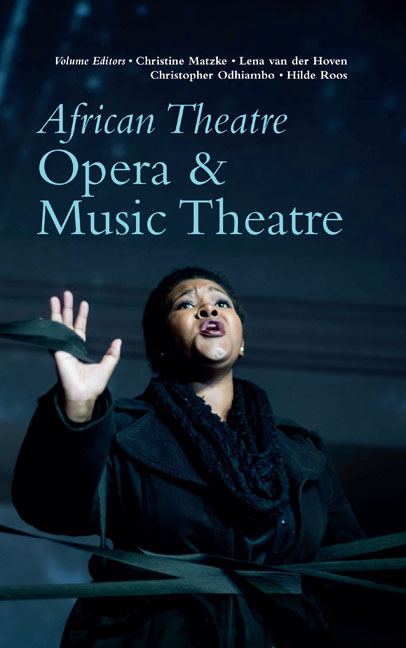
Music is often cited as a central artistic mode in African theatre and performance practices. However, little attention has been paid to music theatre on the continent in general, and to opera in particular, with the exceptions of a few noted genres, such as Concert Party or the Yorùbá "folk opera" of the 1960s, and the emerging research on opera culture in South Africa.
This volume of African Theatre highlights the diversity across the continent from a variety of perspectives - including those of genre, media, and historiography. Above all, it raises questions and encourages debate: What does "opera" mean in African and African diasporic contexts? What are its practices and legacies - colonial, postcolonial and decolonial; what is its relation to the intersectionalities of race and class? How do opera and music theatre reflect, change or obscure social, political and economic realities? How are they connected to educational and cultural institutions, and non-profit organisations? And why is opera contradictorily, at various times, perceived as both "grand" and "elitist, "folk" and "quotidian", "Eurocentric" and "indigenous"?
Contributors also address aesthetic transformation processes, the porousness of genre boundaries and the role of space and place, with examples ranging from Egypt to South Africa, from Uganda to West Africa and the USA.
The playscript in this volume is We Take Care of Our Own by Zainabu Jallo.African Theatre 19 : Opera & Music Theatre.
Hrsg.: Matzke, Christine ; van der Hoven, Lena ; Odhiambo, Christopher ; Roos, Hilde
Woodbridge, Suffolk : James Currey , 2020 . - 288 S. - (African Theatre ; 19 )
ISBN 978 1 84701 257 9
DOI: https://doi.org/10.1017/9781787449503Further Links:
- Matzke, C.: "'Home is where the memory persists most' : Introducing Zainabu Jallo's We Take Care of Our Own"Hide
-

The opening setting: a Viking-themed birthday party at a plush retirement home somewhere at the convergence of central, eastern and western Europe. The characters: three men from various diasporas with distinguished careers. Nonagenarian birthday boy Bajran from south-east Europe (‘The Balkans’, WTC) is a former chemist with a prominent Swiss pharmaceutical company; octogenarian Moon-So is a South Korean filmmaker obsessed with his unfinished documentary on dragonflies and, at 87, is the youngest of the group; and Dr Youssouf Sadio, aged 89, is a renowned Senegalese astrophysicist who awaits approval of the naming of a star he discovered before his retirement. These three men are thrown together by fate (and sufficient financial means) in a nursing facility that does not feel like ‘home’ but rather like a golden cage, expressed in the overall sentiment: ‘“How the hell did we end up here?”’ (WTC). These men present the audience with interesting paradoxes. They are both wise and infantile at the same time; as representatives of a highly accomplished group of transnational experts they look back on professional privilege and success while suffering from existential anxieties in their twilight hours. While they bicker and reluctantly bond, they gradually begin to share memories of former selves and imaginaries of their homelands. Each has a skeleton in his closet, and all suffer from private angst. Youssouf believes that he is observed in a panopticon; Moon-So is haunted by voices; and Bajran wants to be cleansed by a second, fully immersive baptism. This ceremony – into which Bajran bullies the others for reasons of solidarity rather than religious conversion – sets off a series of events which brings them closer to dealing with their deepest regrets and fears, including their fear of dying.
Few plays and performances put the (very) elderly and their concerns centre-stage, even if Miriam Bernard and Lucy Munro argue that, ‘older people feature strongly in the theatrical cultures in many countries and eras, both as performers and characters’ (2015: 61).
Matzke, Christine:
"Home is where the memory persists most" : Introducing Zainabu Jallo's We Take Care of Our Own.
In: Matzke, Christine ; van der Hoven, Lena ; Odhiambo, Christopher ; Roos, Hilde (Hrsg.): African Theatre 19 : Opera & Music Theatre. - Woodbridge, Suffolk : James Currey , 2020 . - S. 194-202 . - (African Theatre ; 19 )
ISBN 978 1 84701 257 9
DOI: https://doi.org/10.1017/9781787449503.011Further Links:
- Meyer, B.: "Religion und Pandemie."Hide
-
»Corona« umschreibt nicht nur das Sars-CoV-2-Virus und die von ihm verursachte Krankheit Covid-19, sondern ist als ein totales gesellschaft-liches Phänomen – im Sinne von Marcel Mauss (1968: 17) – zu betrach-ten, das uns viel Stoff zum Nachdenken gibt. Aus dieser Perspektive ist »Corona« nicht nur ein Thema für die Virologie, sondern ebenso für die Geistes-und Sozialwissenschaften. Auch wenn die Erkrankungen in Europa zurzeit, von einigen Krisenherden abgesehen, rückläufig sind, werden wir uns langfristig auf ein Leben mit dem Virus einrichten müssen.
Meyer, B. (2020). Religion und Pandemie. In Bernd Kortmann & Günther Schulze (Eds.), Jenseits von Corona. Unsere Welt nach der Pandemie – Perspektiven aus der Wissenschaft (pp. 147-156) (10 p.). Bielefeld: Transcript Verlag.
- Musch, Tilman: "Am Rande und im Zentrum –die Teda und das Tibesti. "Hide
-
Tilman Musch (2020): "Am Rande und im Zentrum – die Teda und das Tibesti." [In the center and on the margins – the Teda and the Tibesti]. Zentralblatt für Geologie und Paläonthologie I(1): 151-181.
- Musch, T.; Brückner, D.: "Clayton Rings and ancient beekeeping. An ethno-zoological contribution" Hide
-
Der Artikel beschäftigt sich mit den immer noch geheimnisvollen „Clayton Rings“, die an ungefähr 50 Fundorten der Zentralsahara, die meisten davon in der Libyschen Wüste, auftraten. Nach bisherigen Hypothesen stand die Töpferware wohl im Bezug zu speziellen Subsistenzstrategien in einer ariden Umgebung, und dienten der Nahrungsbeschaffung. In unserem ethno-biologischen Vorgehen diskutieren wir eine dieser Hypothesen, die auf Bienenhaltung und Honigproduktion abzielt. Dabei vergleichen wir die Töpferware mit verschiedenen Beuten aus Ton oder Schlamm des Mittelmeerraums und setzen ihren Gebrauch in Bezug zum Vorkommen von Apis mellifera sahariensis, einer Unterart der Honigbiene, die wahrscheinlich das Relikt eines früher weit verbreiteten Bienenvorkommens im Gebiet der heutigen Sahara ist. Wir schließen, dass es die wohl wahrscheinlichste Lösung des Rätsels um die geheimnisvolle Töpferware ist, diese als Beuten für Bienen zu deuten.
Musch, T., Brückner, D., 2020. Clayton Rings and ancient beekeeping. An ethno-zoological contribution. Journal of Global Archaeology § 1-28. - Nyeck, S. N.: "Poetics: Queer Recesses of the Heart and the Spirit of Intimacy within the Africana Household"Hide
-
Audre Lorde is a household name within Black queer communities and has almost exclusivelybeen associated with scholarship on gender and sexuality. Her early political involvement inAfrica’s liberation in the context of Négritude,a pan-African movement of self-affirmation, has largely gone unnoticed, inad-vertently giving credence to the unfounded but popular idea that queer folks are not interested inAfrica’s political priorities. This essay is written with the view that Africa and her Diaspora need preeminent queer actors influencing the presentandfuture trajectories and strategies to be considered in defence of a Black dignified presence in the world and against global racism. Itis further submitted that the personal is not just political–it is primarily spiritual. Hence the triad,personal, spiritual, and political has implications for our appraisal of meanings within the Africana household. The exploration of poetry as aspiritual practice of the queered self in this essay blurs the boun-daries between religion and politics in order to offer an integral account of gender diversity within the Africana household. We need to collectively learn from the experiences that not just resist racial oppression but also from those that simultaneously free the heart. From this vantage point, Audre Lorde’s poetics is read as internal recommendations for building up the Africana dwelling by calling out what remains dormant or imperfectly considered within the realm of spiritual and political imagination: queer recesses of the heart.
Emory School of Law, Nyeck, S.N., 2020. Poetics: Queer Recesses of the Heart and the Spirit of Intimacy within the Africana Household. AJGR. - Ouba, K.; Banhoro, Y.; Semde, R.: "Histoire contemporaine ce la pharmacie au Burkina Faso"Hide
-
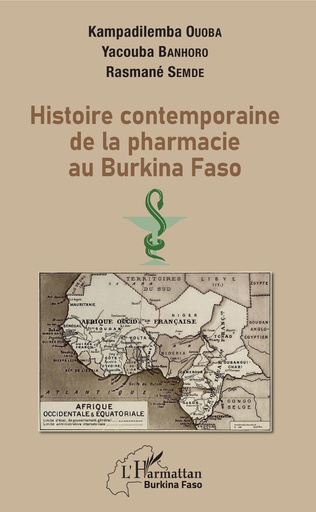
Cet ouvrage reconstitue l'histoire contemporaine de la pharmacie du Burkina Faso et, par ricochet, celle de l'Afrique occidentale francophone. L'art pharmaceutique burkinabè a connu de grandes étapes d'évolution, tirant sa source de l'administration coloniale française à partir des années 1900. Les auteurs ont retracé les évolutions historiques de l'administration pharmaceutique, du cadre juridique, de la démographie et de la pratique professionnelle. Ils ont également mis en lumière les oeuvres indélébiles des héros et héroïnes de la profession de pharmacien du pays des Hommes intègres.
- Ouma, Stefan; Klinge, Tobias J.: "Commodities"Hide
-
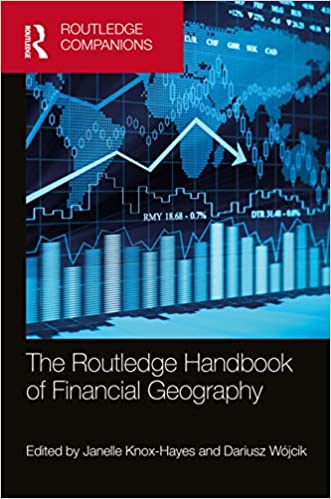
When talking about commodities in the world of global finance, matters are less clear than they first appear. While usually associated with investments into hard and soft commodities, other ‘investment plays’ involving farmland, or different stages of commodity production and natural resource extraction are often also categorized as commodities.
Ouma, Stefan; Klinge, Tobias J. (2020): Commodities. In Janelle Knox-Hayes, Dariusz Wójcik (Eds.): The Routledge Handbook of Financial Geography. Milton: Taylor & Francis Group (Routledge Companions in Business, Management and Marketing Ser), pp. 208–231.
- Ouma, Stefan; Kweka, Opportuna: “Changing beyond Recognition”?: Reimagining the future of smallholder farming systemsHide
-
We use the case of Northern Tanzania to put empirical flesh on the idea of diverse economies. We advance the idea that smallholder production systems offer ontological and practical resources to envision and perform more viable African rural futures, potentially with important lessons for the rest of the world.
Kweka, Opportuna L.; Ouma, Stefan (2020): “Changing beyond Recognition”?: Reimagining the future of smallholder farming systems in the context of climate change. In Geoforum 115, pp. 153–155. DOI: 10.1016/j.geoforum.2019.05.029.
- Ouma, Stefan; Hughes, Alex; Murphy, James; Opondo, Maggie: "Envisioning African futures: Perspectives from economic ..."Hide
-
The commentaries and reviews in the section that follow take up the recently popularized notion of 'African futures' in order to explore the geographies, modes, potentialities, politics, and practices of epistemic, socio-economic, political and socio-ecological transformations that may be complementary or antagonistic to the global capitalist project.
Ouma, Stefan; Hughes, Alex; Murphy, James T.; Opondo, Maggie (2020): Envisioning African futures: Perspectives from economic geography. In Geoforum (115), pp. 146–147. DOI: 10.1016/j.geoforum.2019.05.030.
- Pissarskoi E, Ouma S, Schopp K, et al.: "Welche Bio_Ökonomie für welche Zukunft?"Hide
-
Mehrere Kritiker*innen warnen, dass die Verbreitung des Bioökonomie-Diskurses die Kolonialität von Märkten und Wissen weiter verfestige, welche die formal postkolonialen Nord-Süd-Beziehungen prägten. In diesem Text stimmen wir diesem Gedankengang nur teilweise zu. Kritiker*innen der globalen Wirkungsmacht des Bioökonomie-Diskurses setzen ein zu enges Verständnis von Bioökonomie voraus. Wir argumentieren, dass ein unumstrittener Kern des Bioökonomie-Diskurses darin liegt, Visionen und Wege zu konzipieren, wie Institutionen zur Ermöglichung menschlichen Wohlergehens derart organisiert werden können ("Wirtschaft"), dass sie den Erfordernissen inter- und intragenerationeller Gerechtigkeit entsprechen und alle moralisch berücksichtigungswürdigen Wesen berücksichtigen ("Bio"). Um diesen "Raum des Möglichen" zu öffnen, schlagen wir vor, die Idee der "Bioökonomie" strategisch neu anzueignen und stattdessen den Begriff "Bio_Ökonomie" zu verwenden: Der Unterstrich verweist auf eine breite Vielfalt ethisch rechtfertigbarer Visionen, wie das "Bio" mit der "Ökonomie" verknüpft werden sollte. Das gesamte Spektrum der politischen Diskurse über die Zukunft der Landwirtschaft in den Ländern Subsahara-Afrikas enthält das Potenzial, einen kritischen Diskurs über Bioökonomie-Visionen entstehen zu lassen. Diese These belegen wir anhand von zwei Fallstudien aus dem landwirtschaftlichen Diskurs in Tansania: zu Landnutzung und zu gentechnisch veränderten Organismen. In beiden Bereichen finden sich Indizien dafür, dass es eine Vielfalt bio_ökonomischer Visionen gibt, die von verschiedenen Interessengruppen in Tansania, wenn auch implizit, befürwortet werden.
Pissarskoi, Eugen/Ouma, Stefan/Schopp, Kerstin/Singo, Leiyo/Potthast, Thomas: Welche Bio_Ökonomie für welche Zukunft? Zur Repolitisierung eines Diskurses im Globalen Norden durch Einsichten aus Tansania, PERIPHERIE – Politik • Ökonomie • Kultur, 3+4-2020, S. 258-283.
- Seesemann, Rüdiger: "Figuring out how to Reconfigure African Studies."Hide
-
As the Working Paper Series of the Africa Multiple Cluster of Excellence, Africa Multiple connects offers a forum for research conducted and presented by researchers affiliated to the Cluster. The series also accommodates papers such as invited lectures, workshop contributions, or conference papers submitted by the Cluster’s guests and visiting scholars.
Established in January 2019 through the Excellence Strategy of the German Federal and State Governments, and building on a long record in African Studies at the University of Bayreuth, the Africa Multiple Cluster of Excellence pursues an innovative agenda as expressed in its subtitle, Reconfiguring African Studies. The Cluster hosts almost one hundred fifty scholars from three continents, who represent a diverse range of academic disciplines and pursue joint research interests together with partner institutions in Africa, Germany, Europe, Asia, and the Americas. Our understanding of the reconfiguration of African Studies focuses on stimulating new theoretical approaches and includes the creation of new forms of academic collaboration. The Cluster develops and pursues research questions and theory-building in collaborative interdisciplinary projects, most notably those conducted with our African Cluster Centres (ACCs) at the Universities of Lagos (Nigeria), Joseph Ki-Zerbo (Burkina Faso), Moi (Kenya), and Rhodes (South Africa).
Our key concepts are multiplicity, relationality, and reflexivity. We employ them to capture the dynamic interrelationship of diversity and entanglement that characterize African and African diasporic ways of life and world-making.
Africa Multiple connects complements the existing Working Paper sub-series published under the umbrella of the University of Bayreuth African Studies Working Papers: academy reflects, the sub-series featuring research by fellows and postdoc working groups of the Bayreuth Academy of Advanced African Studies, which is now part of the Africa Multiple Cluster; and BIGSASworks!, the platform for publishing research-related articles and edited volumes by Junior Fellows of the Bayreuth International Graduate School of African Studies (BIGSAS).
Institute of African Studies, Bayreuth, Germany : Institute of African Studies , 2020 . - V, 15 S. - (University of Bayreuth African Studies Working Papers ; 24 ) (Africa Multiple Connects; 1), DOI: https://doi.org/10.15495/EPub_UBT_00005120 - Treiber, M.; Maurus, S.: "Kindheit und Jugend in Afrika."Hide
-
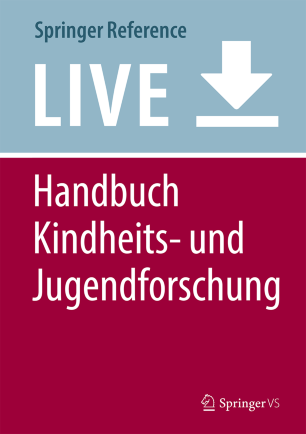
Unser Beitrag gibt einen Überblick über Themen der Kindheits- und Jugendforschung in Afrika. Im ausgehenden 20. und beginnenden 21. Jahrhundert wandeln sich gesellschaftliche, politische und ökonomische Verhältnisse und damit Aufwachsen, Erziehung und Bildung von Kindern. Trotz aller Vielfalt der Lebensverhältnisse in Afrika, zeigt sich, dass sich die Mehrheit der Jugendlichen derzeit in einer Phase der waithood befindet, in der sie hoffen, ihre Träume eines guten Lebens in einer weithin ungewissen Zukunft zu verwirklichen. Hierbei sind Kindheit und Jugend in Afrika in einem globalen Kontext zu verstehen.
Treiber, Magnus ; Maurus, Sabrina:
Kindheit und Jugend in Afrika.
In: Krüger, Heinz-Hermann ; Grunert, Cathleen ; Ludwig, Katja (Hrsg.): Handbuch Kindheits- und Jugendforschung. - Wiesbaden : Springer VS , 2021 . - S. 1-23 ; DOI: https://doi.org/10.1007/978-3-658-24801-7_21-1 - Sabelo J. Ndlovu-Gatsheni: "Geopolitics of Power and Knowledge in the Midst of Covid-19 Pandemic...Hide
-
Geopolitics of Power and Knowledge in the Midst of Covid-19 Pandemic: Decolonial Reflections on a Global Crisis
Sabelo J. Ndlovu-Gatsheni, ‘Geopolitics of Power and Knowledge in the Midst of Covid-19 Pandemic: Decolonial Reflections on a Global Crisis.’ Journal of Developing Societies, 36(4), pp. 366-389
- Sabelo J. Ndlovu-Gatsheni: "Decolonization/Decoloniality: Converging Africa/Latin America Thinking."Hide
-
Decolonization/Decoloniality: Converging Africa/Latin America Thinking
Sabelo J. Ndlovu-Gatsheni, ‘Decolonization/Decoloniality: Converging Africa/Latin America Thinking.’ The MIRS Review (Makerere Institute of Social Research Journal), 3, May, pp. 112 - 140.
- Sabelo J. Ndlovu-Gatsheni: "Revisiting Nguni Formations: The Mfecane and Nguni ...Hide
-
Revisiting Nguni Formations: The Mfecane and Nguni Migrations in South-Eastern Africa
Sabelo J. Ndlovu-Gatsheni, ‘Revisiting Nguni Formations: The Mfecane and Nguni Migrations in South-Eastern Africa.’ The MISR Review (Makerere Institute of Social Research Journal), 3, May, pp. 8-45.
- Sabelo J. Ndlovu-Gatsheni: "African Decolonization’s Past and Present Trajectories."Hide
-
African Decolonization’s Past and Present Trajectories
Sabelo J. Ndlovu-Gatsheni, ‘African Decolonization’s Past and Present Trajectories.’ Current History:A Journal of Contemporary World Affairs, May 2020, pp. 188-193.
- Sabelo J. Ndlovu-Gatsheni: "The Ndebele Kingdom of Mzilikazi Khumalo."Hide
-
The Ndebele Kingdom of Mzilikazi Khumalo
Sabelo J. Ndlovu-Gatsheni, ‘The Ndebele Kingdom of Mzilikazi Khumalo.’ The MIRS Review(Makerere Institute of Social Research Journal), 3, May, pp. 61 -94.
- Turner, Irina: "As far as the eye can see : Urban bias in South African linguistic research"Hide
-
Urban bias remains a debated topic in South Africa in many spheres of society. Due to the logic of apartheid, ‘rural’ came to mean ‘black’; or in post-apartheid-speak ‘previously disadvantaged’. Up to today, the effects of long-term structural and systematic disadvantaging are quite tangible in the country. Though in parts also applicable to urban settings, poverty, insufficient infrastructure and lack of access are largely foremost still a problem of the rural – and mostly black – population. These structural imbalances are purported through a number of social fields including academia. Often, studies are conducted where access and conveniences are close and risks impeding the successful completion of research projects are low. While the tendency to consider feasibility in research is not per se questionable, the total body of research projects and results might foreground a distorted reflection of South Africa’s sociolinguistic landscape. Binary categories of urban/rural, however, carry a certain bias within themselves and are thus not comfortably fitting in a South African context but call for deconstruction. On this background, the chapter presents a critical review of 135 scholarly articles (2010–2017) from the eminent linguistic journal Southern African Linguistics and Applied Language Studies examined for traces of urban bias in the research set up and weighs the results in the light of the current socio-political situation in South Africa.
Turner, Irina:
As far as the eye can see : Urban bias in South African linguistic research.
In: Sociolinguistic Studies. Bd. 14 (2020) Heft 3 . - S. 257-275.
ISSN 1750-8649 DOI: https://doi.org/10.1558/sols.38789 - Turner, Irina: "What is the point of studying Africa in Europe? : A micro-ethnographic study of decolonising African studies ...Hide
-
The success of the decolonial project in academia requires self-critical engage-ment of the North with its own influence in the continuation of neo-colonial structures and power relations. On a practical level, this also refers to decoloni-zing curricula and organizational structures; foremost and especially in the field of African Studies. Though some might argue that process has already taken place, this saturated and static viewpoint does not do justice in acknowledging and mirroring the current developments on the African continent; core for maintaining relevance and legiti-mation within the field of African Studies in Europe.The views of African post-graduate students studying in Germany can be a cont-ribution to decolonization of African Studies in Europe. Students from Africa can bring their diverse educational socializations and insights from all over the conti-nent to Europe and can thus play a key role in deconstructing neo-colonial structu-res at Northern universities.In 2017, the Afrikanistik at University of Bayreuth introduced the new Master Pro-gramme African Verbal and Visual Arts: Languages, Literatures, Media and Art in Africa. While the linguistic study of African languages and communication in Afri-can languages is a field which will become increasingly relevant for the future and research can for instance support policy on a global scale, the ongoing critical de-construction of the field’s past is necessary to enable survival of this niche subject.The AVVA Master programme was developed in order to broaden the scope from linguistics and enable fruitful connections with the field of literatures, media and curational studies. It came to life through students with a highly international pro-file and close connections to Africa. While residing on four major blocks ― African languages and linguistics, literatures in African languages, media and art curation in Africa ― students can individually specialize and thus the programme can be tailored to specific disciplinary and regional interests. The students thus infuse a decolonial outlook on African linguistics and related fields.This paper proposes a micro-ethnographic study among Master students of the new AVVA programme exploring the following questions: What was the students’ motivation to undergo a tedious bureaucratic, expensive and longwinded applica-tion process to be part of this new programme in Germany? What role did and does decoloniality play in the students’ academic life and educational history? What do they hope to gain from this programme and how can it contribute to a decoloniz-ation of African Studies in the North? How do they envisage to influence a decolo-nial education back home? With this mini-survey, the paper hopes to contribute to the current redefinition and re-legitimization of African Studies in the North.
Turner, Irina:
What is the point of studying Africa in Europe? : A micro-ethnographic study of decolonising African studies through international postgraduates in Germany.
In: Brahima, Abraham ; Turner, Irina ; Woldegiorgis, Emnet T. (Hrsg.): Decolonisation of Higher Education in Africa : Perspectives from Hybrid Knowledge Production. - London ; New York, NY : Routledge , 2020 . - S. 78-99 . - (Routledge Contemporary Africa Series )
ISBN 978-0-367-36060-3 DOI: https://doi.org/10.4324/9780429355288 - van der Hoven, Lena ; Matzke, Christine ; Roos, Hilde ; Odhiambo, Christopher: "Introduction"Hide
-

Music is often cited as a central artistic mode in African theatre and performance practices. However, little attention has been paid to music theatre on the continent in general, and to opera in particular, with the exceptions ofa few noted genres, such as Concert Party or the Yorùbá "folk opera" of the 1960s, and the emerging research on opera culture in South Africa.
This volume of African Theatre highlights the diversity across the continent from a variety of perspectives - including those of genre, media, and historiography. Above all, it raises questions and encourages debate: What does "opera" mean in African and African diasporic contexts? What are its practices and legacies - colonial, postcolonial and decolonial; what is its relation to the intersectionalities of race and class? How do opera and music theatre reflect, change or obscure social, political and economic realities? How are they connected to educational and cultural institutions, and non-profit organisations? And why is opera contradictorily, at various times, perceived as both "grand" and "elitist, "folk" and "quotidian", "Eurocentric" and "indigenous"?
Contributors also address aesthetic transformation processes, the porousness of genre boundaries and the role of space and place, with examples ranging from Egypt to South Africa, from Uganda to West Africa and the USA.
The playscript in this volume is We Take Care of Our Own by Zainabu Jallovan der Hoven, Lena ; Matzke, Christine ; Roos, Hilde ; Odhiambo, Christopher:
Introduction.
In: Matzke, Christine ; van der Hoven, Lena ; Odhiambo, Christopher ; Roos, Hilde (Hrsg.): African Theatre 19 : Opera & Music Theatre. - Woodbridge, Suffolk : James Currey , 2020 . - S. 1-13 . - (African Theatre ; 19 )
ISBN 9781847012579
DOI: https://doi.org/10.1017/9781787449503.001Further Links:
- Woldegiorgis, E.T.; Turner, I.; Brahima, A.: "Decolonisation of Higher Education in Africa"Hide
-

This book discusses the status and importance of decolonisation and indigenous knowledge in academic research, teaching, and learning programmes and beyond.
Taking practical lessons from a range of institutions in Africa, the book argues that that local and global sciences are culturally equal and capable of synergistic complementarity and then integrates the concept of hybrid science into discourses on decolonisation. The chapters argue for a cross-cultural dialogue between different epistemic traditions and the accommodation 'Indigenous' knowledge systems in higher education. Bringing together critical scholars, teaching and administrating academics from different disciplines, the chapters provide alternative conceptual outlooks and practical case-based perspectives towards decolonised study environments.
This book will be of interest to researchers of decolonisation, postcolonial studies, higher education studies, political studies, African studies, and philosophy.
Woldegiorgis, E.T., Turner, I., Brahima, A. (Eds.), 2021. Decolonisation of higher education in Africa: perspectives from hybrid knowledge production, Routledge contemporary Africa. Routledge, Abingdon, Oxon ; New York, NY.
2020 - III
- Arndt, Susan: "Sexismus. Geschichte einer Unterdrückung" Hide
-
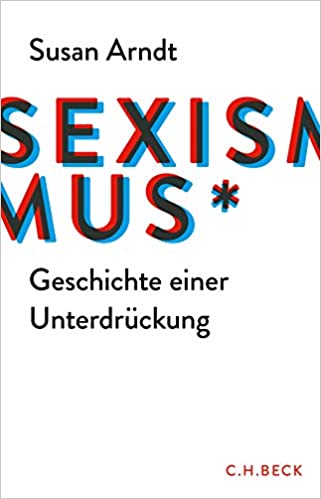
Zwar ist Sexismus spätestens seit #Aufschrei und #MeToo wieder in aller Munde. Doch meist wird bloß hitzig aneinander vorbei diskutiert. Susan Arndt legt mit ihrem umfassenden Buch die Grundlage für eine fundierte und kritische Debatte jenseits von Verharmlosung und Ziellosigkeit.
Nicht wenige übersehen alltäglichen Sexismus oder leugnen ihn; andere wiederum gelten als zu moralisch oder politisch hyperaktiv. Und viele ziehen es inzwischen vor, sich gar nicht mehr zu äußern. Es gibt aber keine neutrale Position gegenüber Sexismus. Denn Sexismus ist ein umfassendes Denk- und Herrschaftssystem, das sich in die DNA unserer Gesellschaft eingeschrieben hat. Susan Arndt identifiziert als seinen Kern das Postulat der binären Zweigeschlechtlichkeit. Es erm öglicht patriarchalische Herrschaft und legt die Grundlagen für die Diskriminierung von Frauen* sowie von homosexuellen, inter*sexuellen und trans*geschlechtlichen Personen. Doch auch Männer* werden vom Sexismus als Individuen normiert und können gebrochen werden. Das Buch zeigt die systemischen Zusammenhänge von Sexismus als Herrschafts- und Machtsystem auf, beschreibt seine Geschichte(n) sowie auch, wie er sich heute äußert. Denn nur, wenn verstanden wird, was Sexismus eigentlich ist, kann er erkannt, verlernt und strukturell nachhaltig unterwandert werden - und koste es auch, Gewohntes oder gar Privilegien, Macht und Herrschaft aufzugeben. - Banguero Velasco, R.; Gruber, Valerie V. V.: “El muntu afrodiaspórico en el mundo-vida del Chocó, Colombia”Hide
-
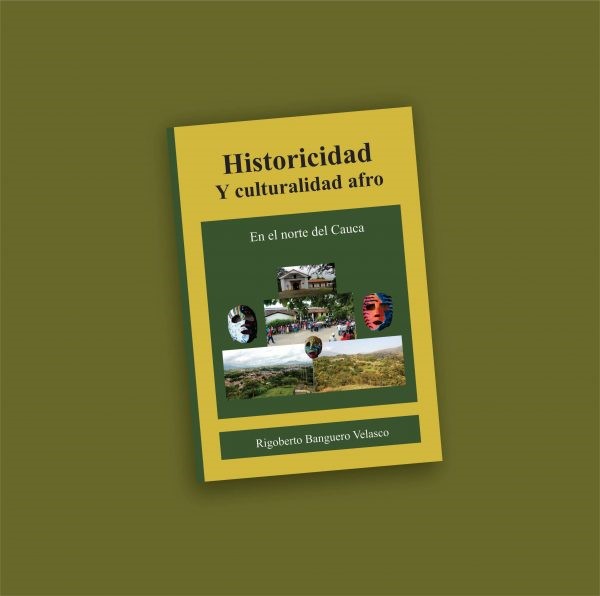
Este escrito narra el sentido que denota el sistema simbólico de la población negra del Chocó (Colombia) conectado con el territorio biogeográfico. A través de una exploración etnográfica, se muestra cómo la espiritualidad teje las prácticas ancestrales (religiosas, ecoculturales, de funebria y de ritmos musicales) con las identidades de los chocoanos, visibilizadas en su muntu, es decir, en su fuerza vital para revitalizar y recrear el mundo-vida en su territorio.
Banguero Velasco, Rigoberto; Gruber, Valerie V. V., 2020. “El muntu afrodiaspórico en el mundo-vida del Chocó, Colombia”, in: Historicidad y culturalidad afro en el norte del Cauca, ed. Rigoberto Banguero Velasco. Cali: Poemia, pp. 64-83.
- Böllinger, S.;Fink, K.;Mildner, C.: „From Critical Intervention to Trademark – and Back! Diversity Gains in Discourse ...Hide
-
Sarah Böllinger, Katharina Fink, Carsten Mildner, 2020. From Critical Intervention to Trademark – and Back! Diversity Gains in Discourse and Praxis, in: Böllinger, S., Mildner, C., Vierke, U. (Eds.), Diversity Gains. Nomos Verlagsgesellschaft mbH & Co. KG, pp. 7–24. https://doi.org/10.5771/9783748909705-7
- Doevenspeck et al.: "Mobilité des Hutu en Ituri. Entre acceptation et méfiance"Hide
-
Une recherche qualitative sur la mobilité des Hutu en Ituri qui tente de cerner cette problématique, ses dynamiques, ses causes et ses conséquences et proposer des solutions aux problèmes identifiés.
Nene Morisho Mwana Biningo, Martin Doevenspeck, Christophe Sebudandi, Philippe Kaganda Mulume Oderhwa et Aloys Tegera (2020): Mobilité des Hutu en Ituri. Entre acceptation et méfiance. Dossier. Pole Institute. Goma.
- Echtler, Magnus: "Redeeming Zululand: Emplacing cultural resonances in the Nazareth Baptist Church, South Africa"Hide
-
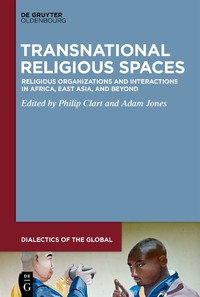
This volume, bringing together work by scholars from Europe, East Asia, North America, and West Africa, investigates transnational religious spaces in a comparative manner by juxtaposing East Asian and African examples. It highlights flows of ideas, actors, and organizations out of, into, or within a given continental space. These flows are patterned mainly by colonialism or migration. The book also examines cases where the transnational space in question encompasses both East Asia and Africa, notably in the development of Japanese new religions in Africa. Most of the studies are located in the present; a few go back to the late nineteenth century. The volume is rounded off by Thomas Tweed’s systematic reflections on categories for the study of transnationalism; his chapter "Flows and Dams" critically weighs the metaphorical language we use to think, speak, and write about transnational religious spaces.
2020, Redeeming Zululand: Emplacing cultural resonances in the Nazareth Baptist Church, South Africa, in Transnational Religious Spaces: Religious Interactions in Africa, East Asia, and Beyond, edited by Philip Clart and Adam Jones. Oldenbourg: de Gruyter (Dialectics of the Global), 84–106.
- Fink, K.: „Inklusion im Museum. Ein Gesamt-Kunst-Werk"Hide
-
Fink, K.: „Inklusion im Museum. Ein Gesamt-Kunst-Werk". In: Das 20. Jahrhundert ausstellen, Reihe Kommunikation. Interaktion. Partizipation. Kunst- und Kulturvermittlung im Museum am Beginn des 21. Jahrhunderts, Bayerische Museumsakademie (eds.), München 2020.
- Fink, K.: „'When Making is Inclusive, Good Things Happen' – Really?Why Diversity is Problematic, and Why an Inclusive ...Hide
-
Katharina Fink, 2020. “When Making is Inclusive, Good Things Happen” – Really? Why Diversity is Problematic, and Why an Inclusive Practice might Re-Politicize the Museum, in: Böllinger, S., Mildner, C., Vierke, U. (Eds.), Diversity Gains. Nomos Verlagsgesellschaft mbH & Co. KG, pp. 105–124. https://doi.org/10.5771/9783748909705-105
- Frede, Britta: "Female Muslim Scholars in Africa"Hide
-
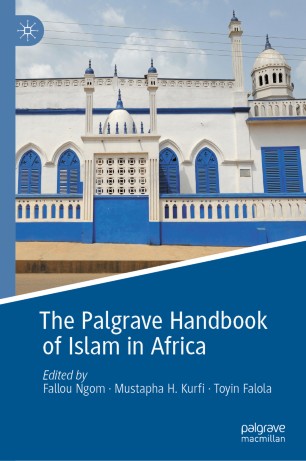
The chapter deals with female Muslim scholars in Africa in a historical perspective. After discussing some research paradigms that led to the fact that our knowledge about female Muslim scholars in Africa is still very scattered, it gives a historical overview of the development of female Islamic scholarship in Africa. It also illustrates, among other things, how the twentieth century saw tremendous changes in Muslim scholarship through educational reforms that created Muslim scholars who were no longer exclusively trained at Islamic institutions but received state education often up to university level. It elaborates further on the fact that governmental involvements in the religious sphere in the twenty-first century creates opportunities for a more visible engagement of women in Islamic education, spiritual guidance and religious institutional leadership.
Frede, Britta: Female Muslim Scholars in Africa.
In: Ngom, Fallou; Kurfi, Mustafa H.; Falola, Royin (Hrsg.): The Palgrave Handbook of Islam in Africa. - Cham: Palgrave MacMillan , 2020 . - S. 221-232
ISBN 978-3-030-45758-7 - Frempong, Raymond; Stadelmann, David; Wild, Frederik: "Coronavirus-Lockdowns, Secondary Effects and Sustainable ..."Hide
-
Frempong, Raymond; Stadelmann, David; Wild, Frederik: "Coronavirus-Lockdowns, Secondary Effects and Sustainable Exit-Strategies for Sub-Saharan Africa"
Pandemics and the reactions to pandemics increase the general problem of scarcity. Scarcity induced trade-offs are
particularly relevant for countries in Sub-Saharan Africa as (1) the region suffers more than other regions from
diseases whose death toll may increase substantially due to lockdowns, (2) economic effects of lockdowns affect the
region more negatively because citizens in Sub-Saharan Africa have limited economic resources compared to more
developed economies, and (3) weak institutions may increase the adverse societal impacts of the pandemic.Raymond Boadi Frempong & David Stadelmann & Frederik Wild, 2020. "Coronavirus-Lockdowns, Secondary Effects and Sustainable Exit-Strategies for Sub-Saharan Africa," CREMA Working Paper Series 2020-09, Center for Research in Economics, Management and the Arts (CREMA).
- Häberlein, Tabea: "Entangled Family"Hide
-
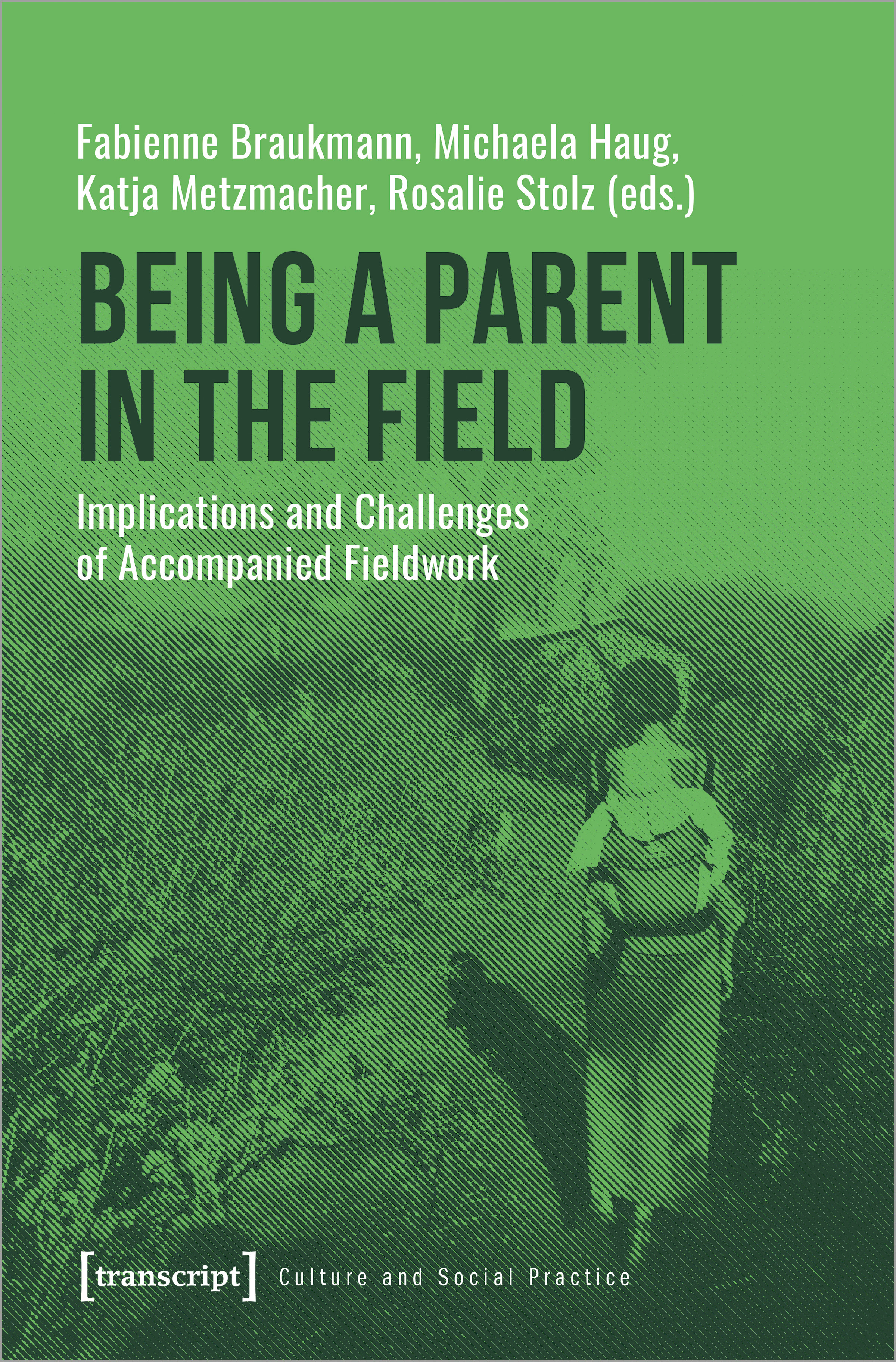
How does being a parent in the field influence a researcher's positionality and the production of ethnographic knowledge?
Based on regionally and thematically diverse cases, this collection explores methodological, theoretical, and ethical dimensions of accompanied fieldwork. The authors show how multiple familial relations and the presence of their children, partners, or other family members impact the immersion into the field and the construction of its boundaries.
Female and male authors from various career stages exemplify different research conditions, financial constraints, and family-career challenges which are decisive for academic success.Häberlein, T., 2020. Entangled Family: Parenting and Field Research in a Togolese Village, in: Braukmann, F., Haug, M., Metzmacher, K., Stolz, R. (Eds.), Being a Parent in the Field. transcript Verlag, pp. 127–144. https://doi.org/10.14361/9783839448311-007 - Lawanson. T, Foley. L, Assah. F, Mogo. E, Mapa-Tassou. C, Ogunro. T, Onifade. V and Oni. T.: "The urban environment ..Hide
-
We highlight aspects of the ordinary – known interactions between urban environments and physical activity – that are amplified by the extraordinary – the COVID-19 pandemic in Lagos, Nigeria. Leisure physical activity is shaped by local contexts, and pandemic-related changes may have altered existing trade-offs between the benefits and risks of undertaking leisure physical activity in the city. We note the dynamic and inequitable ways that urban spaces are used during the pandemic and the urgent need for local evidence and solutions. Our reflections in this commentary illustrate the possibility of rethinking urban development and the reforms necessary to address health inequalities post-pandemic.
Lawanson. T, Foley. L, Assah. F, Mogo. E, Mapa-Tassou. C, Ogunro. T, Onifade. V and Oni. T. (2020) The urban environment and leisure physical activity during the COVID-19 pandemic: a view from Lagos. Cities and Health. https://doi.org/10.1080/23748834.2020.1806459
- Matthews, Sally: "Reviewing the South African Political Studies Curriculum: Evaluating Responses to Calls for Decolonisation"Hide
-
The 2015 and 2016 student protests amplified criticism of university curricula which protesters proclaimed to be ill-suited to our context. This paper engages with such criticism by evaluating the South African political studies curriculam it terms of whether or not it can be considered to be ‘decolonised’. I ask three questions, all of which arise from comments made by student protesters about the need for curriculum change: ‘Who is teaching our students?’, ‘Which scholars’ work is being prescribed?’ and ‘Which geographical areas receive attention?’ These questions are answered based on data gathered from undergraduate political studies course outlines from seven South African universities. In answer to the first question, I show that while white academics are still over-represented, the demographics of those teaching undergraduate politics are shifting towards demographic representivity. In answer to the second question, I show that our political studies departments still mostly prescribe the work of male scholars, white scholars and Western scholars. Responding to the third question, I show that politics departments include courses focused on Africa and particularly on South Africa while other regions of the world receive little attention. The paper concludes by raising some difficult questions with the hope of stimulating further debate.
Matthews, S., 2020. Reviewing the South African Political Studies Curriculum: Evaluating Responses to Calls for Decolonisation. Politikon 47, 321–341. https://doi.org/10.1080/02589346.2020.1796000 - Neubert, Dieter: "Sociology of development : sociology, development studies or already dead?"Hide
-
The term ‘sociology of development’ refers to the existence of a more or less clearly defined sociological sub-discipline which emerged in the 1950s and 1960s. The sociology of development increasingly became a part of the interdisciplinary field of development studies, which for a long time was caught up in the debate on the ‘grand theories’ of modernisation and dependency. Exhausted by this theoretical debate which did not reach a conclusion, sociologists working on the Global South re-invented the sociology of development in the 1980s with an ‘empirical turn’. However, the discussion on postdevelopment started at the same time, and this critical view was later supported by postcolonialism. Sociologists working on the Global South participated in all these debates and quite a few became outspoken critics of the development concept, while others still carry the flag of sociology of development against all odds. This leads to the question whether the sociology of development still exists as a sub-discipline, or whether there are just a few institutional artefacts left, such as sections in sociological associations, which provide a playground for elderly scholars who still live and work in yesterday’s world.
Neubert, Dieter. 2020. Sociology of development: sociology, development studies or already dead? Sandra Kurfürst & Stefanie Wehner (Hg.), Southeast Asian transformations. Urban and rural developments in the 21st century. Festschrift für Rüdiger Korff. Bielefeld: Transcript, 25-40.
- Neubert, D.: "The simplified assumptions of the global middle class narrative: Glocal middle-income groups in Kenya"Hide
-
The narrative of the global middle class presented by economic journals, marketing organisations and optimistic economists depicts the middle class as a homogeneous group acting as “the” driver of change with regard to development and democratisation. This view simplifies the much more nuanced reality. First, it is questionable whether the so-called middle class is a class according to sociological theory. Secondly, we need to consider the wide-ranging socio-cultural diversity of the middle-income stratum. Besides a critical analysis of the understanding of class, and using the case of Kenya as an example, this article presents the conceptual model of “milieus” which can help to depict the socio-cultural diversity of the middle-income stratum.
Neubert, Dieter:
The simplified assumptions of the global middle class narrative : Glocal middle-income groups in Kenya.
In: Suter, Christian ; Madheswaran, S. ; Vani, B. P. (Hrsg.): The Middle Class in World Society. - London : Routledge , 2020 . - S. 167-190
ISBN 978-1-138-60950-1 DOI: https://doi.org/10.4324/9781003049630-10 - Ouma, Stefan: ‘Africapitalism’ and the limits of any variant of capitalismHide
-
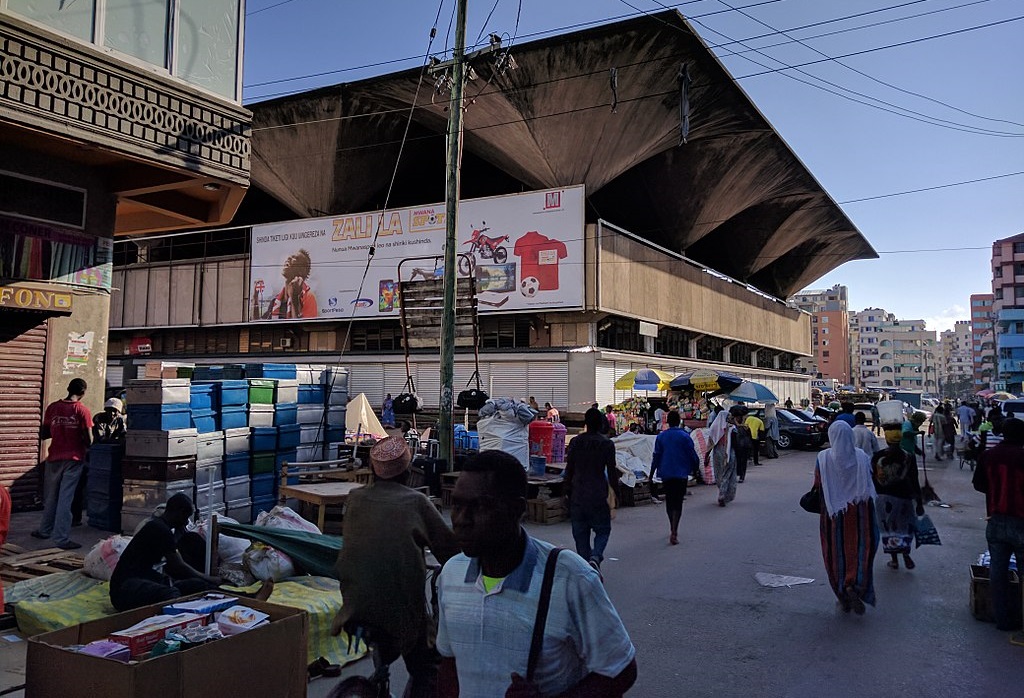
In a contribution to ROAPE’s debate on capitalism in Africa, Stefan Ouma provides a critical account of Africapitalism as well as an assessment of the future/s it imagines, what it silences and its potential to transform African economies. Ouma concludes that the ecologically destructive and dehumanizing architecture of our global economic system provides further evidence to condemn any variant of capitalism.
- Ouma, Stefan: "Waren, Wissen und „Raum“ : Die Dunklen Seiten globaler Lieferketten im Lebensmittelhandel." Hide
-
Der Band betrachtet am Beispiel des Lebensmittelmarkts die drei Teilkontexte Produktion, Marktentnahme und Konsum in ihren wechselseitigen Handlungsbezügen sowie die Rolle von Macht und Wissen für die Koordination von Warenketten. Die Autorinnen und Autoren aus Geographie, Soziologie, Wirtschaftswissenschaften sowie der Stadt- und Regionalplanung widmen sich verschiedenen sich ergänzenden Aspekten der Koordination der Warenkette und der beteiligten Akteure von der Produktion, über die Logistik bis hin zum Handel und Konsum. Die Beiträge zeigen den unmittelbaren Zusammenhang zwischen Wissen und Handlungen der Akteure sowie deren Wirkungen auf die räumliche Organisation und Ordnung der Warenkette. Hinsichtlich der Rolle von Wissen geben die Beiträge eine Vielzahl an pointierten Analysen zu Teilaspekten der Gesamtinteraktionszusammenhänge.
Ouma, Stefan:
Waren, Wissen und „Raum“ : Die Dunklen Seiten globaler Lieferketten im Lebensmittelhandel.
In: Baur, Nina ; Fülling, Julia ; Hering, Linda ; Kulke, Elmar (Hrsg.): Waren - Wissen - Raum : Interdependenz von Produktion, Markt und Konsum in Lebensmittelwarenketten. - Wiesbaden : Springer VS , 2020 . - S. 486-516
ISBN 978-3-658-30718-9 - Schramm, Katharina: "Diasporic Citizenship under Debate: Law, Body and Soul"Hide
-
In this paper I explore the nexus of slavery, diaspora, and citizenship through the close examination of the complex negotiations of “diasporic citizenship” in Ghana. Over the past 25 years, Ghana has been a major site for diasporic homecoming, both in terms of tourism and repatriation. This movement has been accompanied by multiple demands and promises of citizenship. I discuss three dimensions of citizenship that speak to the problematics of inclusion and exclusion in the rhetoric and practice of diasporic homecoming. First, there is citizenship as an affective claim to belonging; second, there is citizenship as a legal status (and obligation); and third, there is the renegotiation of citizenship through genetic ancestry. Articulated in terms of soul, dual citizenship, and embodied link, these citizenship claims and practices transcend and challenge the strict limits of the nation-state, thereby pointing toward the “crisis of citizenship” as a larger problem.
Schramm, Katharina:
Diasporic Citizenship under Debate.
In: Current Anthropology. Bd. 61 (September 2020) Heft 22 . - S. 210-219.
ISSN 0011-3204 - Scherer, Christine: "Internationale Zusammenarbeit"Hide
-
Scherer, Christine:
Internationale Zusammenarbeit
In: Hammerschmidt, Anette ; Enke, Neela (Hrsg.): Forschen, Lehren, Führen : Das ABC für die Hochschulkarriere. - Konstanz: UTB. Pp , 2020 . - S. 98-102
ISBN 9783825254254 - Scherer, Christine: "Internationalisierung"Hide
-
Scherer, Christine:
Internationalisierung.
In: Hammerschmidt, Anette ; Enke, Neela (Hrsg.): Forschen, Lehren, Führen : Das ABC für die Hochschulkarriere. - München : UVK Verl. , 2020 . - S. 96-98
ISBN 9783825254254 - Spies, E., Schrode, P.: "Religious engineering: exploring projects of transformation from a relational perspective"Hide
-
This introduction presents the concept of religious engineering, offering a new perspective on a field of research which deals with the interrelations of religion and international development. The concept, we propose, allows for an analysis of a wide array of projects of transformation without presupposing religion, secularity and development as different given spheres or concepts. Following criticisms of the instrumental use of a sui generis concept of religion and a narrow definition of development, we suggest a focus on the relational, on-going constitution of development and religion through transformative practices of religious engineering. This refers to ways of working on the future shape of a society, group or individual, where the ‘engineers’ allude to what they understand as religious traditions and practices. At the same time, the concept accesses purposeful transformations of religious traditions and self-understandings that are spurred on by such projects of societal and/or individual improvement.Spies, E., Schrode, P., 2020. Religious engineering: exploring projects of transformation from a relational perspective. Religion 1–18. https://doi.org/10.1080/0048721X.2020.1792053
- Stegbauer, Christian; Clemens, Iris: "Corona- Netzwerke. Gesellschaft im Zeichen des Virus"Hide
-
Das Buch lotet aus, wie das Auftreten des Corona Virus und die Maßnahmen zur Bekämpfung der Ansteckung unser Zusammenleben verändern. Hierzu werden Fachleute aus der Netzwerkforschung befragt, denn fast alle Maßnahmen beeinflussen die Beziehungen zwischen den Menschen. Die Beiträge betrachten die Folgen der Krise für Alltag, Kultur, Wirtschaft, Gesundheit und Politik. Die AutorInnen verarbeiten ihre Forschungserfahrung zusammen mit Beobachtungen und kleinen Fallstudien zu kurzen Betrachtungen darüber, wie die Krise unser Leben bereits jetzt verändert hat.
Stegbauer, C., Clemens, I. (Eds.), 2020. Corona-Netzwerke – Gesellschaft im Zeichen des Virus. Springer Fachmedien Wiesbaden, Wiesbaden. https://doi.org/10.1007/978-3-658-31394-4 - Vierke, Clarissa; Raia, Annachiara: "Texts Travelling Beyond the West. An Introduction"Hide
-
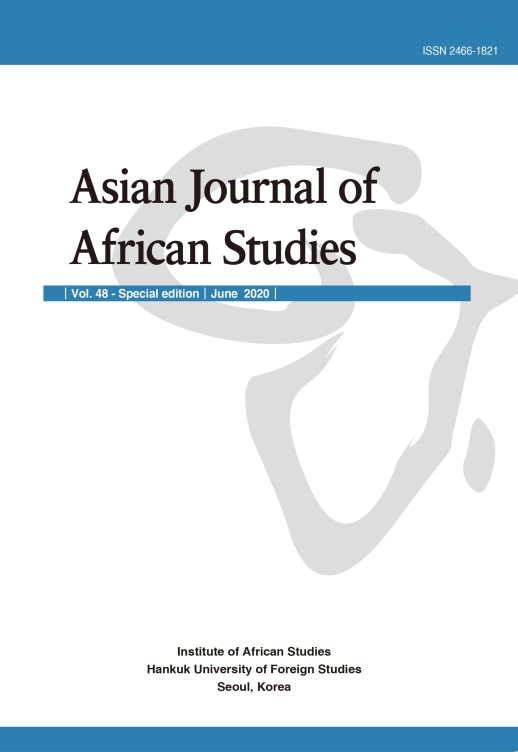
At the core of this special issue, lies the editors’ own fascination with and research on travelling literature in African languages. We often do not find it represented in postcolonial debates about “contact zones” as well as recently growing discussions about textual entanglements fueled by notions of World Literature, although, as we believe, it can make an important contribution in reflecting about literary connections not only in our specific area, but about literary connections on a global scale. Africa is a part of the world, whose literary networks have a long history of being sidelined. This special issue brings together contributions by scholars working on literature in other “minor” languages from the Far East, the Middle East, India, Papua New Guinea – and East Africa. They can remind us of the relativity of Western categories and Western disciplinary organization of literary studies of the last 200 years, which are, however, often taken as universal.
Clarissa Vierke and Annachiara Raia. 2020. (eds.). Texts Travelling Beyond the West. Special Issue. Asian Journal of African Studies (48).
2020 - II
- Abubakar, R.; Lawanson, T.; Usman, A.: "Urban Planning Practices in Lagos"Hide
-
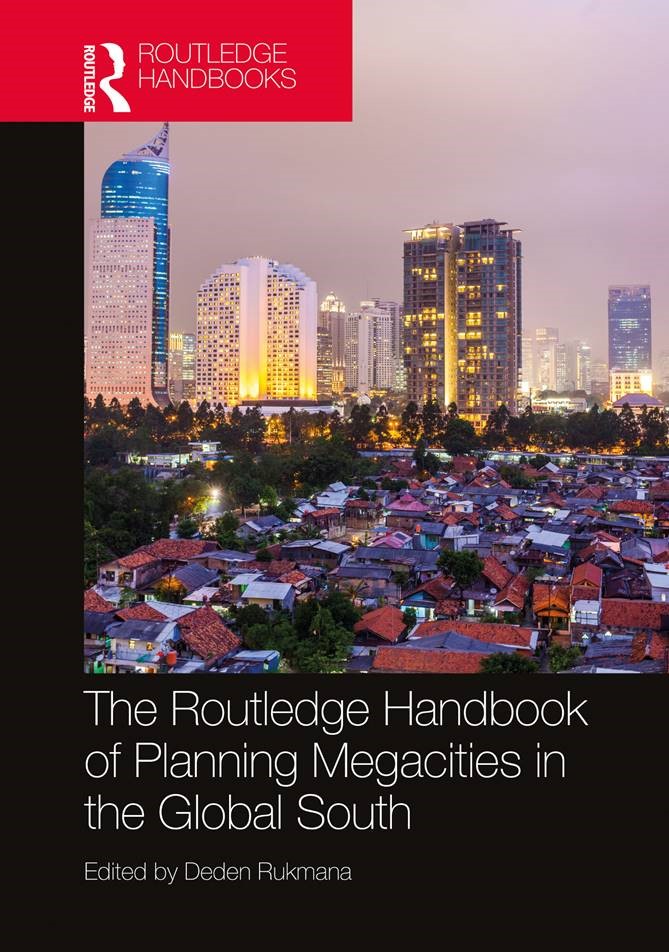
Cities are important places not just for living, but also for producing goods and services. Annually, around 60 million people are being added to urban areas, which housed one-fifth of humans a century ago, half in 2007, and would be home to about two-thirds by 2030. In the global South, the rate of urban population growth is unprecedented. Africa and Asia would be home to about 90% of the estimated increase in the global urban population by 2030 (2.5 billion people), with 37% of the increase expected to happen in China, India, and Nigeria. The challenges of planning the rapidly expanding cities are felt more often in the Global South where the extent of the challenges intensifies every day with a rapid urbanization rate. Consequently, urban development stakeholders seek opportunities in innovative urban planning capacities and tools to confront the challenges. In Lagos, the most populous city in Nigeria and its economic and industrial hub, the government has gone on an extensive planning reform paradigm, developing a few model city and sub-regional master plan to address the city’s urbanization challenges. This paper, therefore, reviews key urbanization challenges faced by Lagos and explores how urban plans and their planning framework are being implemented in managing the megacity. It concludes by highlighting some effective urban planning and governance practices that can help confront Lagos’ urbanization challenges and foster urban sustainability.
Abubakar. R, Lawanson.T & Usman. A (2020) Urban Planning Practices in Lagos. Rukuma. D (ed) The Routledge Handbook of Planning Megacities in the Global South. London & New York: Routledge. Chapter 28
- Alber, Erdmute: "From Tightrope Walks to Entangled Families"Hide
-

How does being a parent in the field influence a researcher's positionality and the production of ethnographic knowledge?
Based on regionally and thematically diverse cases, this collection explores methodological, theoretical, and ethical dimensions of accompanied fieldwork. The authors show how multiple familial relations and the presence of their children, partners, or other family members impact the immersion into the field and the construction of its boundaries.
Female and male authors from various career stages exemplify different research conditions, financial constraints, and family-career challenges which are decisive for academic success.
Alber 2020: From Tightrope Walks to Entangled Families. In: Fabienne Braukmann, Michaela Haug, Katja Metzmacher, Rosalie Stolz (Hg.): Being a Parent in the Field: Implications and Challenges of Accompanied Fieldwork. Transcript: Bielefeld: 279-286.
- Anchimbe, Eric A.: "Naming food in multilingual Cameroon"Hide
-
Naming food in a nativised variety of English in a densely multilingual context like Cameroon is a complex phenomenon. This is because certain foods or dishes carry sociocultural significations that may be lost or altered if their original names are translated or abandoned for others. Using data from the food blog, this paper explains the word formation processes used and the social meanings embedded in food names in Cameroon English (CamE). Borrowing and compounding emerge as the most common processes, although there are a few cases of metaphorical extension. The data is analysed using the competition and selection hypothesis (Mufwene 2001) and the framework of filtration processes (Anchimbe 2006), both anchored in the World Englishes paradigm.
Anchimbe, Eric A. 2020. Naming food in multilingual Cameroon. In: Sofia Rüdiger and Susanne Mühleisen (eds.). Talking about Food: The Social and the Global in Eating Communities. Amsterdam: John Benjamins, pp.257-276.
- Arndt, Susan: "Blinded by Privilege. The West and the Rest under Lockdown"Hide
-
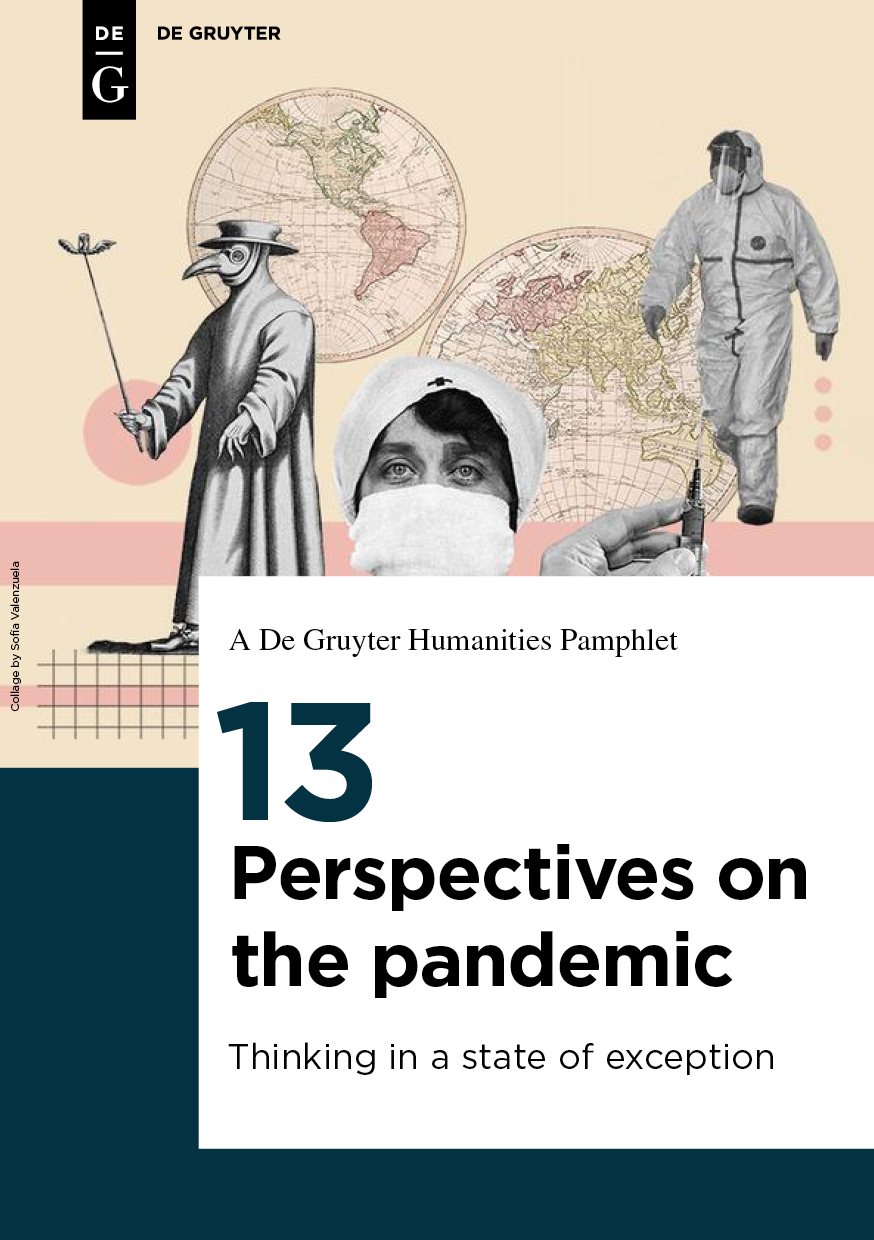
The coronavirus pandemic has rapidly changed our world. In response to this challenge, we are publishing the pamphlet 13 Perspectives On The Pandemic: Thinking In A State Of Exception. This free publication provides a virtual space for thinkers in the humanities to historically embed and critically interrogate our response to the Covid-19 crisis. We hope it will become a useful part of the academic response to reflect the current moment.
- Beneduce, R.; Damon, L.; Gaibazzi, P.; Machinya, J.; Monz, K.: " Comment décoloniser la recherche sur la migration...Hide
-
Les auteurs ont établi le texte ci-présent à partir des idées énoncées et des discussions menées lors de la rencontre « Récits et débats locaux sur la migration. Dits et non-dits de l'expérience du départ et du retour » à Bamako du 2 au 6 octobre 2019. Tous les participants de l'atelier ont eu leur part active dans la conception des approches avancées par la suite. Résumé Sortant d'un atelier interdisciplinaire sur la migration africaine, les auteurs proposent quelques pistes pratiques afin de commencer à décoloniser la recherche sur la migration. Ces pistes se résument en un réajustement de nos méthodes de travail par rapport à la relation que nous tenons avec nos sujets de recherche humains. Il s'agit justement de faire ressortir plus clairement l'agentivité de nos interlocuteurs tout en réduisant notre propre présence, qui peut parfois peser lourd sur la recherche. Dans ce but, nous proposons que le chercheur laisse plus de place à son interlocuteur de s'exprimer librement et qu'il écoute les théorisations proposées par les acteurs eux-mêmes. Au lieu de forcer nos analyses spécialisées sur le sujet, notre tâche consistera plutôt en une contextualisation pour faciliter la lecture à des personnes tierces. Nous nous devons donc de diffuser les résultats de nos recherches aussi en dehors de nos disciplines respectives afin de susciter l'intérêt pour notre travail et nos efforts. Abstract After having participated in an interdisciplinary workshop on African migration, the authors suggest some practical ways to start decolonizing migration research. These avenues can be summarized as follows: readjusting our analytical methods to speak with rather than for our human research subjects. We seek to accentuate the agency of our interlocutors by reducing our own presence, which can sometimes weigh heavily on the research. To this end, we propose that researchers leave more space to their interlocutors to express themselves freely and listen to the theorizing actors themselves propose. Instead of forcing our specialized analyses on the subject, our task is rather to contextualize the research in order to make it easier for third parties to read. We must therefore also disseminate the results of our research outside our respective disciplines in order to generate interest in our work and efforts.
Beneduce, Roberto; Damon, Lisa; Gaibazzi, Paolo; Machinya, Johannes; Monz, Katharina
Comment décoloniser la recherche sur la migration africaine? Quelques idées
In: Cosmopolis (2020) Heft 3-4. - S. 66-79 - Behrends, A.; Fall, B.; Hoinathy R.: "Lifeworlds in Crisis. Covid-19 Governmental Restrictions in Senegal and Chad"Hide
-
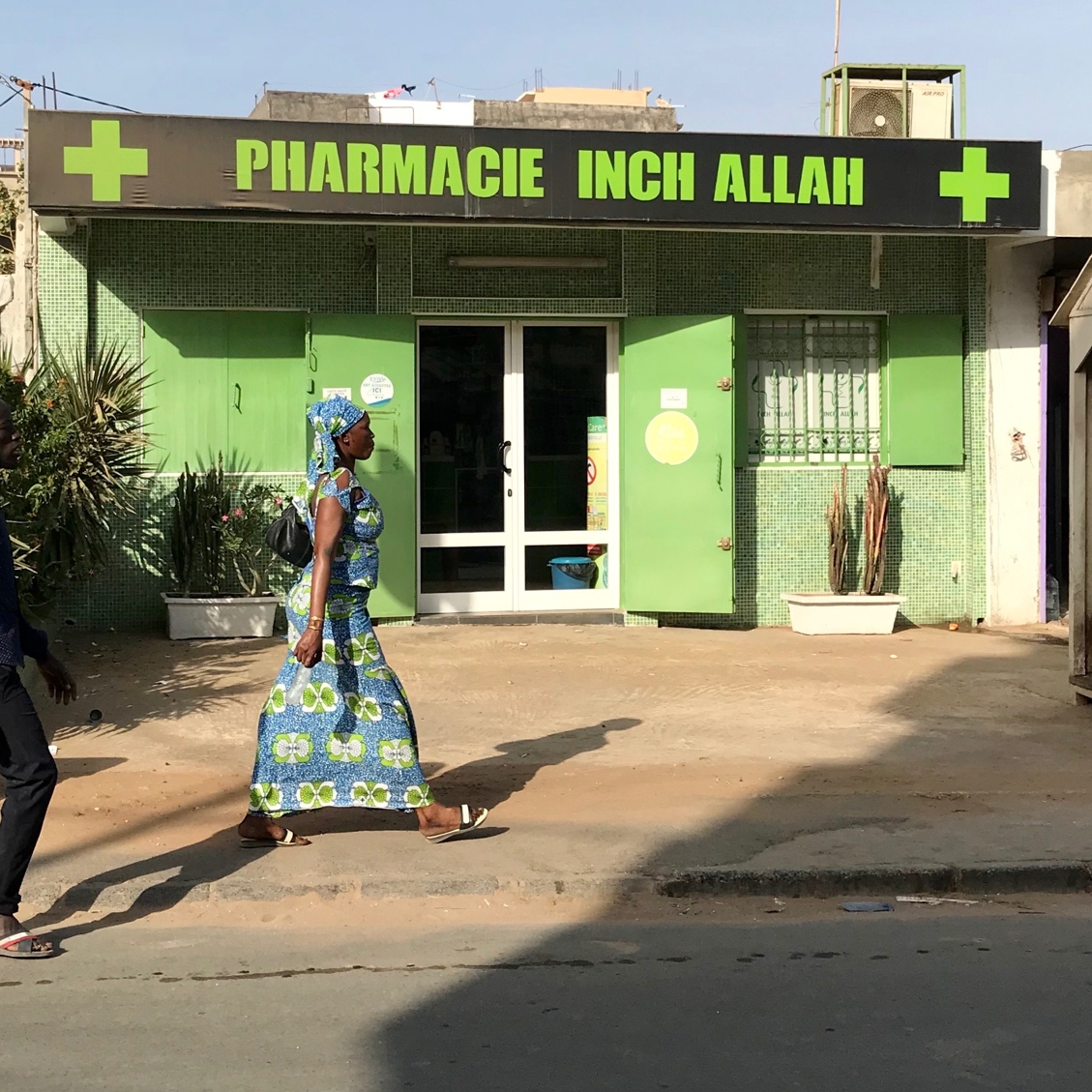
Public media conveys the widespread fear that ‘Africa’ will be ‘hit worst’ when the virus starts to fully spread. Conflict zones that are out of state control, marginalized areas without appropriate medical services, poverty, the feared pre-existing illnesses that render the virus more lethal seem to be on people’s minds when thinking of the African condition in view of Covid-19. However, the strict safety measures to prevent the spread of the virus applied in all African countries do not make similar headlines.
- Bunza, Mukhtar Umar: "Islamic/Muslim Education in Africa: From North to West Africa"Hide
-
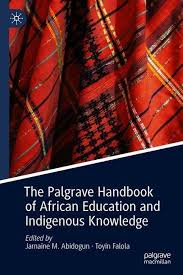
This handbook explores the evolution of African education in historical perspectives as well as the development within its three systems–Indigenous, Islamic, and Western education models—and how African societies have maintained and changed their approaches to education within and across these systems. African education continues to find itself at once preserving its knowledge, while integrating Islamic and Western aspects in order to compete within this global reality. Contributors take up issues and themes of the positioning, resistance, accommodation, and transformations of indigenous education in relationship to the introduction of Islamic and later Western education. Issues and themes raised acknowledge the contemporary development and positioning of indigenous education within African societies and provide understanding of how indigenous education works within individual societies and national frameworks as an essential part of African contemporary society.
Abidogun, J.M., Falola, T., 2020. The Palgrave handbook of African education and indigenous knowledge. Palgrave Macmillan, Cham. - De Groof, Matthias: "Lumumba in the Arts"Hide
-
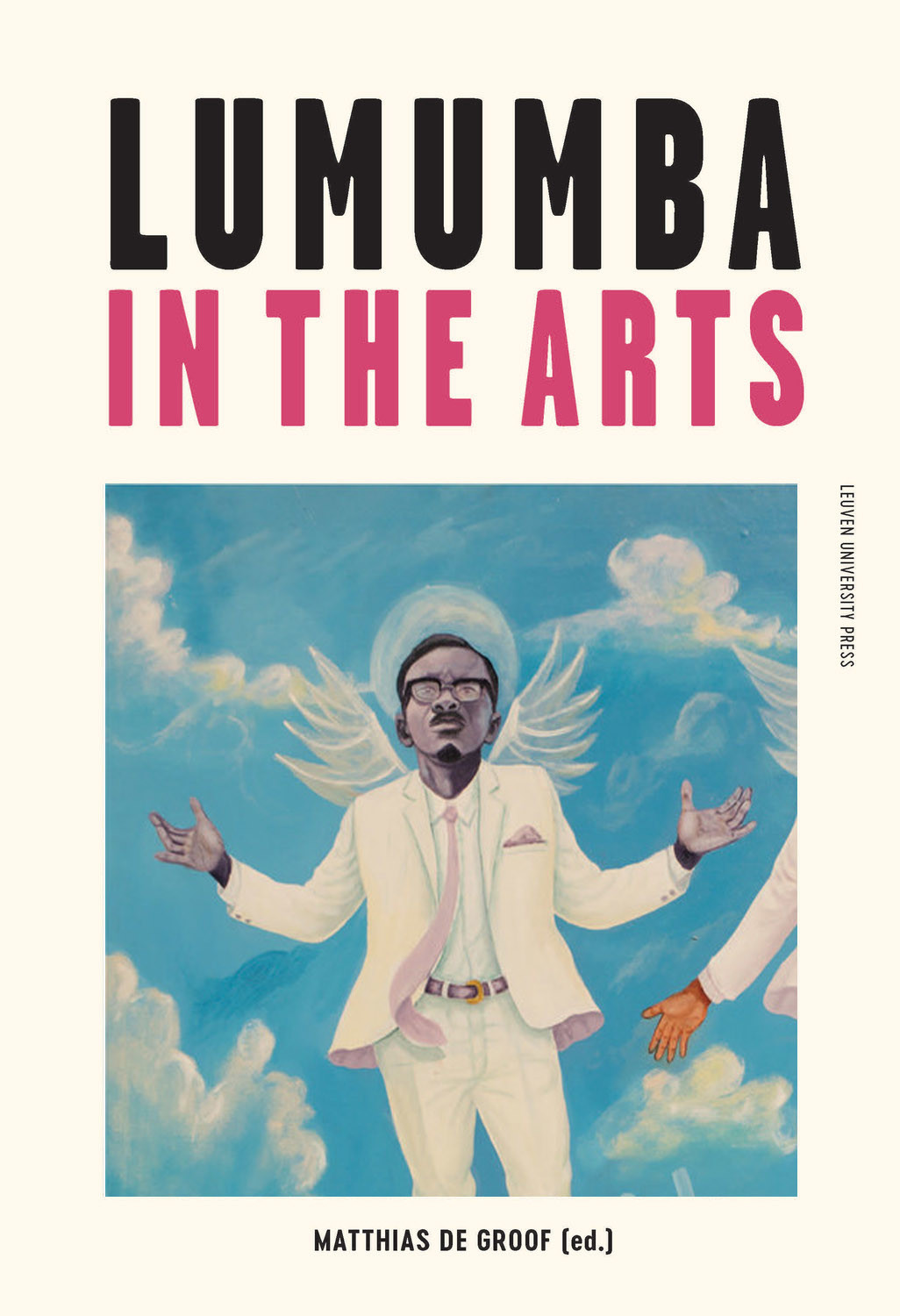
Lumumba as a symbol of decolonisation and as an icon in the arts
It is no coincidence that a historical figure such as Patrice Emery Lumumba, independent Congo’s first prime minister, who was killed in 1961, has lived in the realm of the cultural imaginary and occupied an afterlife in the arts. After all, his project remained unfinished and his corpse unburied. The figure of Lumumba has been imagined through painting, photography, cinema, poetry, literature, theatre, music, sculpture, fashion, cartoons and stamps, and also through historiography and in public space. No art form has been able to escape and remain indifferent to Lumumba. Artists observe the memory and the unresolved suffering that inscribed itself both upon Lumumba’s body and within the history of Congo. If Lumumba – as an icon – lives on today, it is because the need for decolonisation does as well.
Rather than seeking to unravel the truth of actual events surrounding the historical Lumumba, this book engages with his representations. What is more, it considers every historiography as inherently embedded in iconography. Film scholars, art critics, historians, philosophers, and anthropologists discuss the rich iconographic heritage inspired by Lumumba. Furthermore, Lumumba in the Arts offers unique testimonies by a number of artists who have contributed to Lumumba's polymorphic iconography, such as Marlene Dumas, Luc Tuymans, Raoul Peck, and Tshibumba Kanda Matulu, and includes contributions by such highly acclaimed scholars as Johannes Fabian, Bogumil Jewsiewicky, and Elikia M’Bokolo.
ISBN 9789462701748, paperback, 19,5 x 28,5 cm, 464 p., English
- Drescher, M.: “The Moral Taste of Food : A Discourse Analysis of Social Media Discussions about Vegetarianism and Veganism”Hide
-
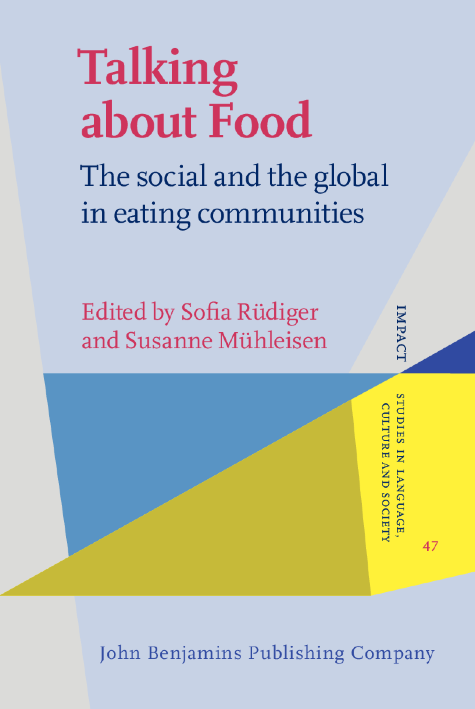
This paper analyses discussions about vegetarianism and veganism in francophone social media groups where moral statements play an important role. It sketches a communicative conception of morality as ‘doing ethics’ that zooms in on how morality emerges and is negotiated in interaction by concentrating on linguistic practices that key morality. Based on two case studies, it examines controversies about moral values of food which offer insights in the more general machinery of moral discourse. The data reveal different linguistic techniques which are frequent in, although not specific to, moral discourse. In particular, these are evaluations, pejorative or upgrading lexicon, deontic modality, generalisations, typical speech acts like advice or instruction as well as semantic and structural forms of intensification.
Drescher, Martina (2020): “The Moral Taste of Food : A Discourse Analysis of Social Media Discussions about Vegetarianism and Veganism”. In: Rüdiger, Sofia ; Mühleisen, Susanne (Hrsg.): Talking about Food : The Social and the Global in Eating Communities. - Amsterdam ; Philadelphia : John Benjamins Publishing Company , 2020 . - S. 35-56 .
- Fendler, Ute: "Ghosts as Mediators: Memory, Healing, Knowing and the Negation of Time"Hide
-
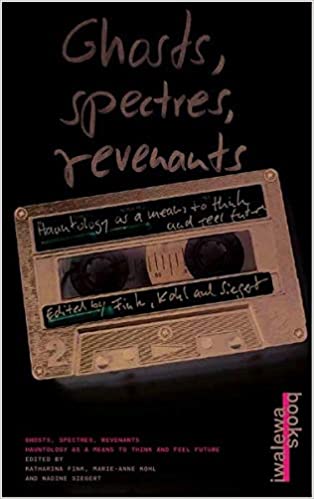
Hauntology, as as theoretical perspective, opens a field to discuss presence and absence, visibility and invisibility also beyond Literary, Religious or Visual Studies. It relates the lingering of presumably ‘failed’ ideas to the concept of ‘ghosts’ and specters as the haunting presence of past or simultaneously present futures. The scholars and artists contributing to this volume dis-cussed these conceptual outlines in a series of transdisciplinary events, hosted by the editors. The concept proved particularly fruitful in the context of the discourse on global migration, European border politics and the re-emergences of nationalism and right-wing and straight men politics.
Hauntology in this context enables to see that the so-called crises lie somewhere very different: Not in the movement of people but in the di-spensation of wealth and access throughout the world. The present we live is embedded in the presence of ghosts and specters, and the traces of imag-inations of different times and spaces may become visible and doable. Art in its various forms is the integral part of the hauntological discussion. As such, the contributions by Kitso Lynn Lelliott (Johannesburg), Simon Vincent (London), Silhouette Tapes (Bayreuth/Berlin), Danilo Barata (Cachoeira), Spoek Mathambo (Johannesburg), Henriette Gunkel (London), Esther Peeren (Amsterdam), Renzo Baas (London), Ute Fendler (Bayreuth), Kathrin Rothe-mund (Bayreuth), Jörg Skiebeleit (Berlin/Flossenbürg), Ibrahim Mahamat Zene (Bayreuth/ N’Djamena) and others sound the field of hauntology for the future. Stipulating hauntological thinking may help to see, feel and listen to worlds radically different from the “capitalist realism” (Fisher) of the con-temporary.
In: Fink, Katharina ; Kohl, Marie-Anne ; Siegert, Nadine (ed.): Ghosts, specters, revenants : Hauntology as a means to think and feel future. - Bayreuth : iwalewabooks , 2020 . - (Diskurs ; 2 ) ISBN 978-3-947902-12-5 - Fink, K., Kohl, M.-A., Siegert, N.: "Ghosts, specters, revenants Hauntology as a means to think and feel future"Hide
-

Fink, Katharina; Kohl, Marie-Anne; Nadine Siegert, Nadine: "Ghosts, specters, revenants Hauntology as a means to think and feel future.
Hauntology, as as theoretical perspective, opens a field to discuss presence and absence, visibility and invisibility also beyond Literary, Religious or Visual Studies. It relates the lingering of presumably ‘failed’ ideas to the concept of ‘ghosts’ and specters as the haunting presence of past or simultaneously present futures. The scholars and artists contributing to this volume dis-cussed these conceptual outlines in a series of transdisciplinary events, hosted by the editors. The concept proved particularly fruitful in the context of the discourse on global migration, European border politics and the re-emergences of nationalism and right-wing and straight men politics.
Hauntology in this context enables to see that the so-called crises lie somewhere very different: Not in the movement of people but in the di-spensation of wealth and access throughout the world. The present we live is embedded in the presence of ghosts and specters, and the traces of imag-inations of different times and spaces may become visible and doable. Art in its various forms is the integral part of the hauntological discussion. As such, the contributions by Kitso Lynn Lelliott (Johannesburg), Simon Vincent (London), Silhouette Tapes (Bayreuth/Berlin), Danilo Barata (Cachoeira), Spoek Mathambo (Johannesburg), Henriette Gunkel (London), Esther Peeren (Amsterdam), Renzo Baas (London), Ute Fendler (Bayreuth), Kathrin Rothe-mund (Bayreuth), Jörg Skiebeleit (Berlin/Flossenbürg), Ibrahim Mahamat Zene (Bayreuth/ N’Djamena) and others sound the field of hauntology for the future. Stipulating hauntological thinking may help to see, feel and listen to worlds radically different from the “capitalist realism” (Fisher) of the con-temporary.
Fink, Katharina; Kohl, Marie-Anne; Nadine Siegert, Nadine, 2020. Ghosts, specters, revenants Hauntology as a means to think and feel future. - Gehrmann, S.: Musumba, O.; Obura, O.; Ogone, J.: Emerging Trends in Eastern African Literatures and Cultures.Hide
-
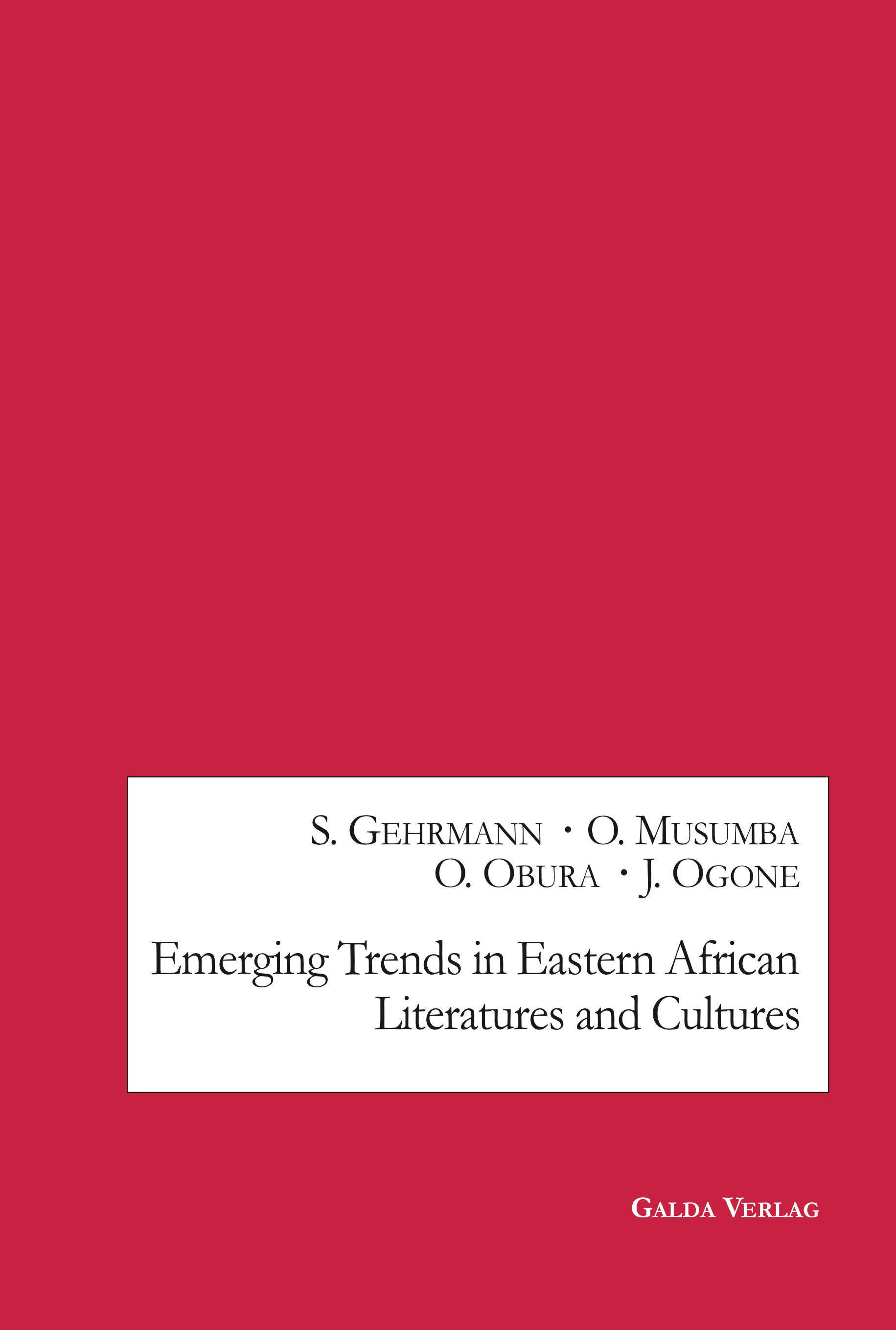
This book volume engages the emergent ways and exercises of world-making in eastern African literatures and cultures. It also includes how the world comes to eastern Africa as well as how eastern Africa speaks to the world. Writers within the region have come up with novel commentaries on diverse social issues. Artists and other users have invented new forms of expression through digitalization. The structure and content of this literature and cultural conversations, in line with modernity, has exhibited a fluidity that calls for the critical appraisal carried out in this book.
Therefore, this book volume centralises the emergence of new patterns of engagement in the literatures and cultures of the region. Taking cue from the cultural transformations, technological advancements and political influences, the volume raises questions on politics, conflict and war, and the evolving genres and canon. The book crosses language barriers beyond English and includes critical attention to texts written in the Swahili and French languages. The chapters aim to give a broad overview of the writings and cultural expressions in the eastern African region, including novels, films, short stories, theatre, poetry, oral, and digital performances.Susanne Gehrmann, Obala Fanuel Musumba, Oduor Obura und James Ogone (Hg.): Emerging Trends in Eastern African Literatures and Cultures. Galda Verlag, Glienicke 2020, 352 S.
- Hide
-
Katharina Greven. '"Sehnsuchtsort’ Archiv - Die Heimatsuche der beiden Kunstpatrone Ulli und Georgina Beier”, in: Heimat verhandeln?, hrsg. von Amalia Barboza, Barbara Krug-Richter und Sigrid Ruby, Köln: Böhlau Verlag, 2020, 353-372.
- Gehrmann, S.: "Rezension von Catherine Gilbert: From Surviving to Living. Trauma, Voice and Witness in Rwandan ...Hide
-
Rezension von Catherine Gilbert: From Surviving to Living. Trauma, Voice and Witness in Rwandan Women's Writing. Presses universitaires de la Méditerranée, Montpellier 2018, in: Études littéraires africaines 50/2020, S. 258-260.
- Haas, R.; Kohl, M.-A; Ndogo, S.; Odhiambo, C.J: “Power to the People?”Hide
-
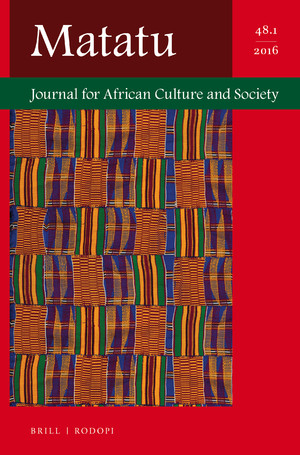
Matatu is a peer-reviewed journal on African literatures and societies dedicated to interdisciplinary dialogue between literary and cultural studies, historiography, the social sciences and cultural anthropology.
Matatu is animated by a lively interest in African culture and literature (including the Afro-Caribbean) that moves beyond worn-out clichés of “cultural authenticity” and “national liberation” towards critical exploration of African modernities. The East African public transport vehicle from which Matatu takes its name is both a component and a symbol of these modernities: based on “Western” (these days usually "Asian") technology, it is a vigorously African institution; it is usually regarded with some anxiety by those travelling in it, but is often enough the only means of transport available; it creates temporary communicative communities and provides a transient site for the exchange of news, storytelling, and political debate.In Matatut, Band 51 (2020): Ausgabe 1 (Jun 2020): Special Issue: “Power to the People?”—Patronage, Intervention and Transformation in African Performative Arts
- Lawanson, T.; Udoma-Ejorh, O.: "How Smart is Smart City Lagos?" Hide
-
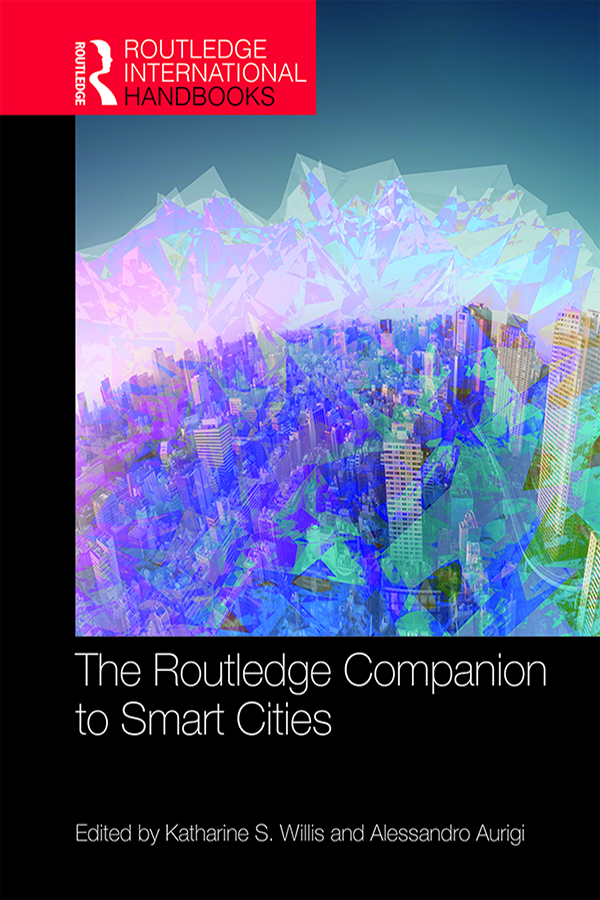
The concept of ‘smart city’ is subject to various interpretations from utopian visions of modernist infrastructure to the infusion of technology into public policy and practice. Nowhere is this more apparent than in Lagos – Nigeria’s commercial capital which is currently on a mission to transit ‘from a megacity to a smart city’. However, the linkages between the global narrative on the smart city concept and its framing vis-à-vis urban development in Lagos are yet to be fully interrogated. What is the smart city agenda for Lagos? Who benefits? Specifically, this chapter reviews the deployment of smart city principles in urban infrastructure, economic development and governance efforts, and the effects of these changes on everyday experiences of residents of Lagos.
Lawanson.T & Udoma-Ejorh. O (2020) How Smart is Smart City Lagos? Willis. K and Aurigi. A (eds) The Routledge Companion to Smart Cities. London: Routledge, Chapter 10. Doi: https://doi.org/10.4324/9781315178387
- Lingelbach, Jochen: "On the Edges of Whiteness"Hide
-
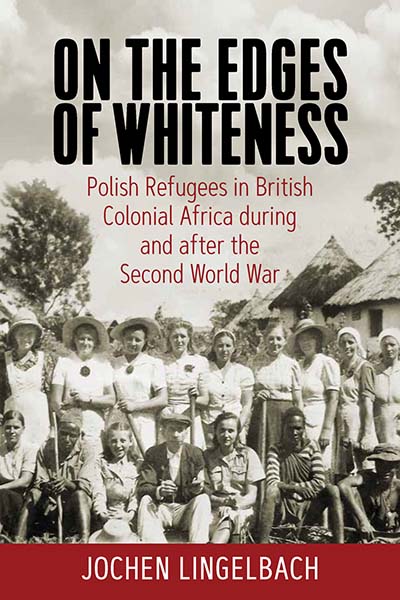
Lingelbach, Jochen: "On the edges of whiteness: Polish refugees in British colonial Africa during and after the Second World War"
“From 1942 to 1950, nearly twenty thousand Poles found refuge from the horrors of war-torn Europe in camps within Britain’s African colonies, including Uganda, Tanganyika, Kenya and Northern and Southern Rhodesia. On the Edges of Whiteness tells their improbable story, tracing the manifold, complex relationships that developed among refugees, their British administrators, and their African neighbors. While intervening in key historical debates across academic disciplines, this book also gives an accessible and memorable account of survival and dramatic cultural dislocation against the backdrop of global conflict.”
Lingelbach, J., 2020. On the edges of whiteness: Polish refugees in British colonial Africa during and after the Second World War. Berghahn Books, New York. - M’charek, Amade ; Schramm, Katharina: "Encountering the Face : Unraveling Race"Hide
-
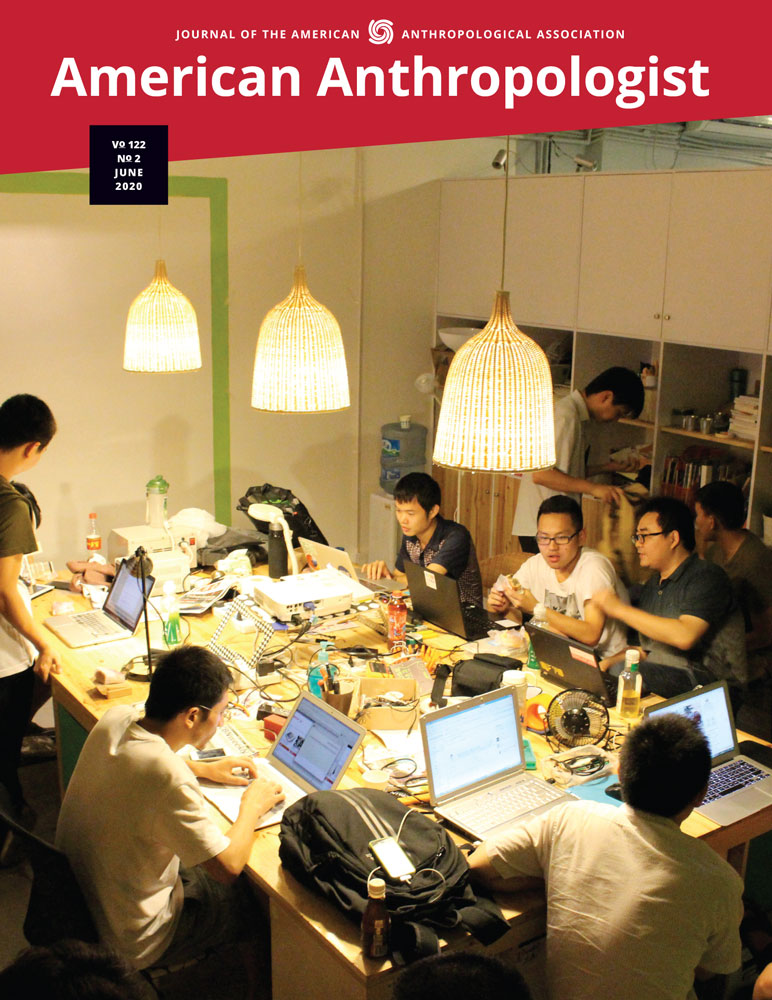
The face is everywhere and nowhere. In everyday life, the face is ubiquitous. Widely spread in our media, it enjoys solid cultural presence. Yet in social theory, the face as an object of critical inquiry is rather absent. While scholarship on the body—for example, in anthropology, science and technology studies (STS), or feminist and postcolonial studies—has taken firm shape, the critical turn to the face has not yet been made. In this special section, we start a theoretical conversation about the face, especially in relation to the current debate on race and science. “Encountering the Face—Unraveling Race” indicates two things. First, in line with feminist analysis of the body, our turn to the face seeks to denaturalize the face as a neutral abstraction and to focus on the relations through which it comes about. This also entails attention to the multiple kinds of work the face does, including the relations it generates. Second, we see the need to empirically engage with the many ways the face appears in scientific and other practices. We observe a “return of the phenotype” that calls for ethnographic attention.
M’charek, Amade ; Schramm, Katharina:
Encountering the Face : Unraveling Race.
In: American Anthropologist. Bd. 122 (2020) Heft 2 . - S. 321-326.
ISSN 0002-7294 - Mohr, Susanne: "Language choices among South African migrants in the tourist space of Zanzibar"Hide
-
In an increasingly mobile world, in which people and languages from different cultures meet all across the globe, the development and dynamics of linguistically and culturally superdiverse spaces are of particular sociolinguistic interest. In this regard, two important phenomena are migration and tourism. This article analyses language choices and their motivations in the superdiverse tourist space of Zanzibar. Applying Q-methodology developed for behavioural psychology, the article presents a case study of two South African migrant workers and two local Zanzibari hosts, and motivations for their languages choices in interaction with tourists. The results show important differences between the South Africans who choose their native language English for practical reasons and the Zanzibaris who accommodate tourists to a much larger extent and use a large linguistic repertoire to boast. Apart from English, ‘Hakuna Matata Swahili’ (HMS), a simplified form of Kiswahili, is frequently used. The South Africans employ it possibly due to their lack of Kiswahili skills and the popularity of HMS expressions in popular culture. In this way, language choices and reasons for them illustrate the glocal nature of language practices in tourism and the liminal status of the South Africans in Zanzibari society.
Mohr, S., 2020. Language choices among South African migrants in the tourist space of Zanzibar. Southern African Linguistics and Applied Language Studies 38, 60–72. https://doi.org/10.2989/16073614.2020.1750966 - Mohr, Susanne: "The "I" in sociolinguistics: The role of subjectivity in ethnographic fieldwork"Hide
-
This paper illustrates the importance of reflexivity for the awareness of a researcher’s subjectivity in (socio)linguistic work on tourism, particularly during fieldwork. It shows that a researcher’s positionality, i.e. their loyalties to epistemological conceptions and tools, crucially affects every part of the research process, reaching from the inception of the topic, to the choice of the relevant methodology and participants, to such apparently objective procedures as statistical analyses. This is illustrated by a study applying Q-methodology from psychology used to investigate language choices in the tourist space of Zanzibar. The method’s focus on subjective views of the participants makes it a powerful tool to raise a researcher’s awareness of their own subjectivity with respect to the research process. Ultimately, the paper argues, such constructionist approaches to science produce more valid results in linguistics, as well as in other areas of science in general.
Mohr, Susanne. (2020). The "I" in sociolinguistics: The role of subjectivity in ethnographic fieldwork. 101-118.
- Mühleisen, Susanne: "Formality and informality in cooking shows: Paula Deen and the development of a genre" Hide
-

Televised cooking shows have emerged as a genre with an established format in the entertainment industry. This chapter will look at cooking shows as a communicative event with a predictable sequence of acts and a set overt (instruction) and covert (entertainment) goal. This highly focussed and potentially formal communicative event (Irvine 1979) typically relies on strategies of informality, that by now have become a convention of the genre, in order to distract from its directive ‘lesson’ character. In a comparison of several cooking shows by US Southern celebrity chef Paula Deen, I will pay attention to changes in conventions of formality and informality which can be observed over time. Particular emphasis will also be placed on the linguistic features which are indexical to Paula Deen’s US Southern persona.
Mühleisen, S., 2020. Chapter 10. Formality and informality in cooking shows: Paula Deen and the development of a genre, in: Rüdiger, S., Mühleisen, S. (Eds.), IMPACT: Studies in Language, Culture and Society. John Benjamins Publishing Company, Amsterdam, pp. 189–207. - Mühleisen, Susanne; Rüdiger, Sofia: "Introduction: Food and talk in social life"Hide
-
 Mühleisen, S., Rüdiger, S., 2020. Chapter 1. Introduction: Food and talk in social life, in: Rüdiger, S., Mühleisen, S. (Eds.), IMPACT: Studies in Language, Culture and Society. John Benjamins Publishing Company, Amsterdam, pp. 1–11.
Mühleisen, S., Rüdiger, S., 2020. Chapter 1. Introduction: Food and talk in social life, in: Rüdiger, S., Mühleisen, S. (Eds.), IMPACT: Studies in Language, Culture and Society. John Benjamins Publishing Company, Amsterdam, pp. 1–11. - Mühleisen, Susanne; Rüdiger, Sofia: "Talking about Food: The social and the global in eating communities"Hide
-

All humans eat and all humans speak – activities which in social life often, but not always, co-occur: We talk while eating and drinking with others, but food is also a prominent literal and metaphorical discursive topic which contributes to establishing communities and identities. This omnipresence of eating and drinking in our daily lives has led to a public fascination with foodways. The contributions in this edited collection investigate the connection between language and food from a variety of perspectives. As food discourses operate on local, global, and mediated levels, they are intertwined with notions of identity and culture and thus shed light on intimate understandings of ourselves as human beings. Talking about Food – The Social and the Global in Eating Communities provides up-to-date and thought-provoking contributions to the linguistics of food. The book is essential reading for anyone interested in food-related subjects.
Rüdiger, S., Mühleisen, S. (Eds.), 2020. Talking about Food: The social and the global in eating communities, IMPACT: Studies in Language, Culture and Society. John Benjamins Publishing Company, Amsterdam. - Nene, Morisho; Kalubi, Josepha; Park, Sung-Joon; Doevenspeck, Martin: "Same but Different? A Comparison of Ebola ...Hide
-
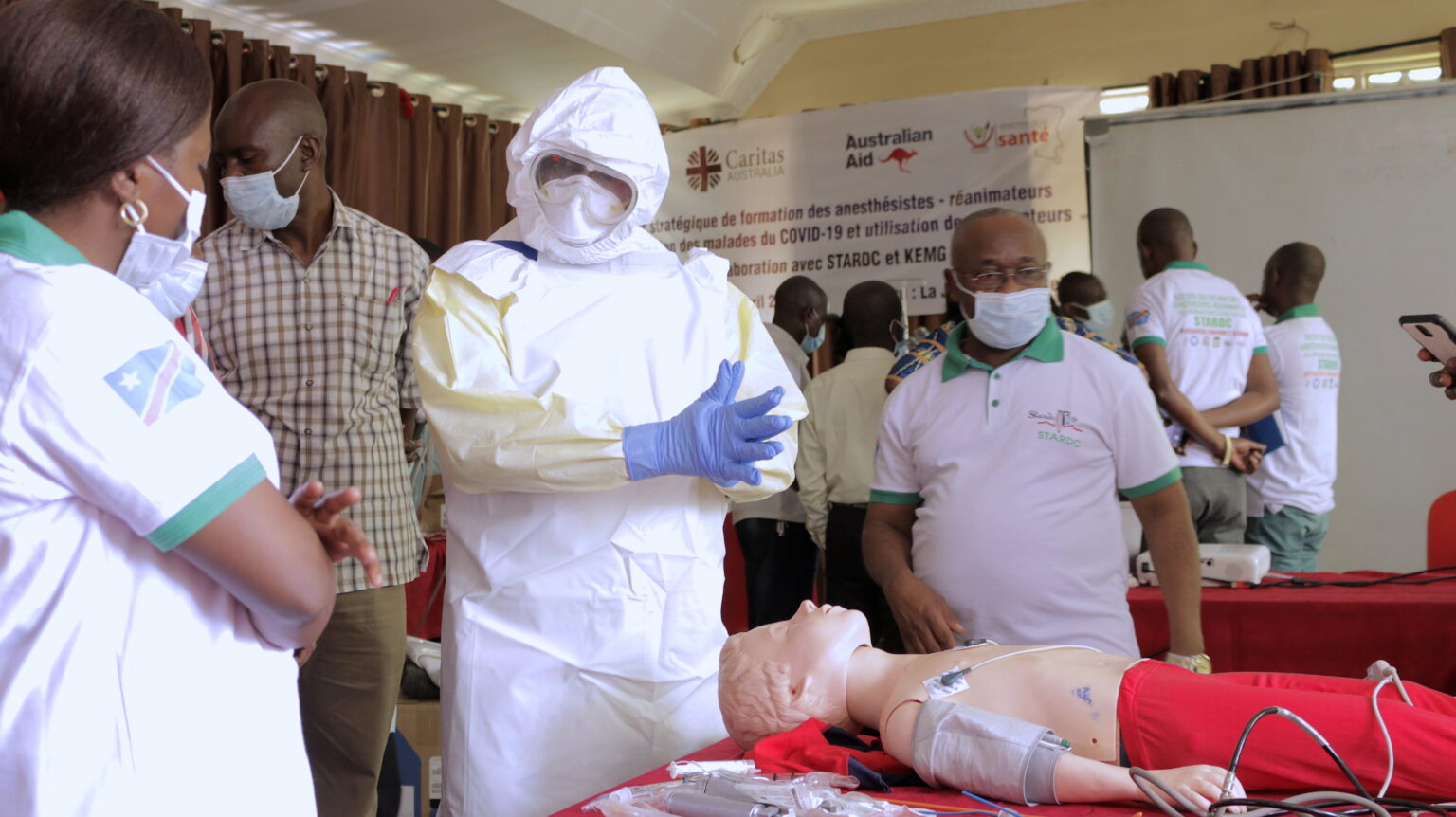
Nene, Morisho; Kalubi, Josepha; Park, Sung-Joon; Doevenspeck, Martin: "Same but Different? A Comparison of Ebola Virus Disease and Covid-19 After the Ebola Epidemic in Eastern DRC (2018–20)"
In February 2020, we were still following the case numbers of the Ebola Virus Disease (EVD) epidemic in North Kivu, Eastern Congo, which by then were finally coming down. At the same time, we were also following the news of the Covid-19 pandemic which had spread within China and thereafter in Europe and in the US. By then, most African governments, just as those in Europe or the US weeks before, were still seeing it as a distant problem and no measures had been taken in preparation.
On March 3, the last patient with the Ebola was discharged in North Kivu Province, the epidemic having lasted more than two years. On March 10, the first case of Covid-19 was confirmed in Kinshasa. It took two weeks for the authorities to take a firm decision to lock down the city, prohibit mobility between the capital and other provinces, and ban access to Congolese territory for any international flight. Panic set in for most Congolese citizens who felt they had never experienced such a global crisis before.
Moving from one crisis to the next raises the question: what can be learned from the Ebola epidemic for the Covid-19 pandemic? Are inhabitants of the most affected regions better prepared for Covid-19? Will the lessons learnt from the Ebola epidemic help citizens in the entire country to adapt to the new pandemic too? What are the similarities and differences between these two epidemics or pandemic?
Nene, Morisho; Kalubi, Josepha; Park, Sung-Joon; Doevenspeck, Martin: "Same but Different? A Comparison of Ebola Virus Disease and Covid-19 After the Ebola Epidemic in Eastern DRC (2018–20)". In: African Arguments
- Ouma, Stefan: "Farming as Financial Asset: Global Finance and the Making of Institutional Landscapes"Hide
-
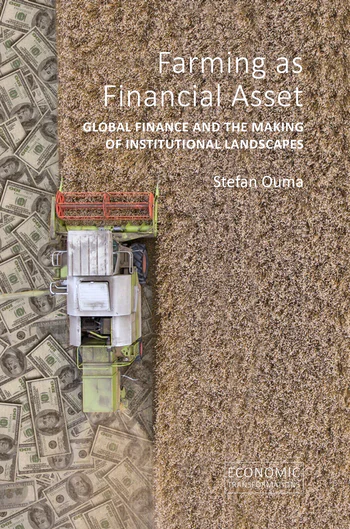
Ouma, Stefan: "Farming as Financial Asset: Global Finance and the Making of Institutional Landscapes"
Since the global financial crisis, the world has seen a stark rise in financial investment in farming and agricultural production. Indeed, finance has been identified as one of the main causes of the so-called “global land rush”. In a world with a growing population that needs to be fed, the financial returns from agriculture are sold as safe bets. The debate that this has prompted has been frequently alarmist, with financiers blamed for rising land prices, corporate enclosures, the dispossession of smallholder farmers and the expansion of large-scale industrial agriculture.
Stefan Ouma speaks to these concerns via an ethnographic journey through the agrifocused asset management industry. His penetrating analysis of case studies taken from New Zealand and Tanzania allows him to put global finance “in place”, bringing into view the flesh-and-blood institutions, globespanning social relations, everyday practices and place-based value struggles that are often absent in broad-brushed narratives on the “financialization of agriculture”. The book closes with a key question for the Anthropocene: which form of finance for which kind of food future?
OUMA, S., 2020. FARMING AS FINANCIAL ASSET. AGENDA PUBLISHING, S.l. - Owino, Omondi R.: "Embracing A Culture of Environmental Compliance Auditing"Hide
-
Environmental abuses in Kenya ‘triple satanic depravity’. Nothing brings this assertion to the fore more than the recent Nation Newspaper’s investigative pieces on environmental abuses in the Lake Victoria aptly intituled ‘Lake of Poison’. The diabolical nature of environmental abuses in Kenya rings true when one thinks back to the Owino Uhuru slum lead poisoning case which has led to the loss of several lives and continues to threaten the existence of an entire village. Memories of Solai dam disaster which left 48 people dead in its wake and a trail of destruction of apocalyptic proportions in May 2018 remain fresh. The insidious threat to life and limb on dining tables in Kenyan homes came to the fore when NTV in late 2019 ran an exposé titled the ‘Toxic Flow’ on pollution of Nairobi River. The documentary detailed how toxins pumped into Nairobi River by industries find their way into food and water consumed by Kenyans.
Omondi R. Owino ‘Embracing A Culture of Environmental Compliance Auditing’ Justice Newsletter, Vol 3 Issue 1 2020:37-38
- Owino, Omondi R.:"Realizing a Low Carbon Future in the East African Community Energy Sector"Hide
-
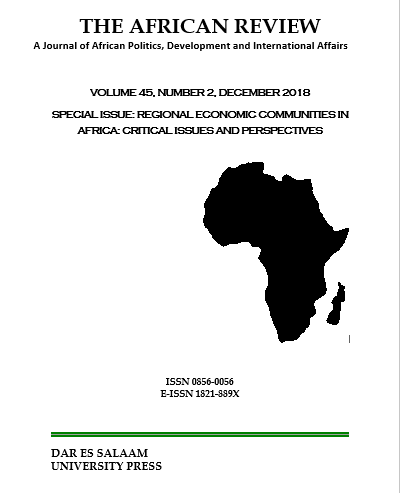
Owino, Omondi R.:"Realizing a Low Carbon Future in the East African Community Energy Sector: Assessment of the Regional Policy and Legislative Framework"
The twin concerns of regulating climate change and spurring economic development lie at the intersection of a low carbon development pathway. Legislative measures aimed at curbing climate change are often construed as dampeners on economic development with the assumption that such laws pose a competitive disadvantage for national economies and companies. This article however advances the contrarian argument that, with the ascendancy of renewable energy technologies, it is increasingly becoming clear that ‘laws to tackle climate change are leading to greater resource and energy efficiency, clean, low carbon growth and improved energy safety. This promise then becomes the premise that is tested along the contours of the EAC regulatory landscape and against the background of regional initiatives in as far as realization of a low-carbon development pathway is concerned. The article makes the conclusion that the varied regional initiatives, policies and legislative measures in the EAC, that ought to advance the realization of a low-carbon pathway are inchoate and beset by several dampeners. The foregoing fact notwithstanding, several drivers of a low-carbon pathway are identifiable. Both the regional and national renewable energy
and efficiency measures adopted in the EAC set the stage for a low-carbon development pathway. Upon attaining maturity, it is a valid presupposition that these budding measures can address climate change without necessarily curtailing economic development.Omondi R. Owino ‘Realizing a Low Carbon Future in the East African Community Energy Sector: Assessment of the Regional Policy and Legislative Framework’ The African Review, Vol. 45, No. 2 (Special Issue) December, 2018:154-170
- Sabbi, Matthew; Doumbia, Lamine; Neubert, Dieter: "Dynamics of Everyday Life within Municipal Administrations ...Hide
-
Sabbi, Matthew; Doumbia, Lamine; Neubert, Dieter: "Dynamics of Everyday Life within Municipal Administrations in Francophone and Anglophone Africa"
Decentralisation in sub-Saharan Africa promises to build responsive institutions, hold officials to account and promote popular participation. Still, existent studies ignore the everyday interface between decentralised structures and citizens, as well as how decentralised institutions function in relation to their local contexts and other “authorities” on the margins. These contexts shape service provision and the impact of local power structures on local communities. Against this backdrop, our conference in Dakar, Senegal, on “Dynamics of Everyday Life within Municipal Administrations in Francophone and Anglophone Africa,” which took place in May 2019, demonstrated three key points of interest: namely, how actors within local bureaucracies interface with those who are outside; how ordinary citizens appropriate the bureaucratic techniques of the state and how these actors negotiate and adapt to the daily practices of municipal administrations. In general, decentralisation is not simply implemented, rather, it creates new frameworks and spaces for both formal and informal public action.
Sabbi, M., Doumbia, L., Neubert, D., 2020. Dynamics of Everyday Life within Municipal Administrations in Francophone and Anglophone Africa. Africa Spectrum 000203972091463. https://doi.org/10.1177/0002039720914630 - Schramm, Katharina: "Stuck in the Tearoom : Facial Reconstruction and Postapartheid Headache"Hide
-

This article examines a project of facial reconstruction of human remains from an archaeological excavation that took place in 1994 in the inner city of Cape Town, South Africa. The initiators of the project envisioned it as an opportunity to translate the power of scientific knowledge to a lay audience, conveying a postapartheid, postracial vision of unity in diversity. However, this translation failed, and the faces got stuck in limbo. I demonstrate how the logic of face resisted a linear translation whereby past could be juxtaposed with present, death with “bringing back to life,” or slavery, colonialism, and apartheid with a new nonracial democracy. Instead, all these different temporalities were collapsed in the practice of face‐making and the politics surrounding it. I argue that it is important to pay attention to such failed translation as an avenue to understanding race as an ongoing and troubling matter of concern. [facial reconstruction, race trouble, Indigenous human remains, postapartheid South Africa]
Schramm, Katharina:
Stuck in the Tearoom : Facial Reconstruction and Postapartheid Headache.
In: American Anthropologist. Bd. 122 (2020) Heft 2 . - S. 342-355.
ISSN 0002-7294Link to publication
- Tchokothe, R: "(au)tour de Mayotte. "Mayotte à la dérive" en dialogue avec quelques œuvres littéraires"Hide
-
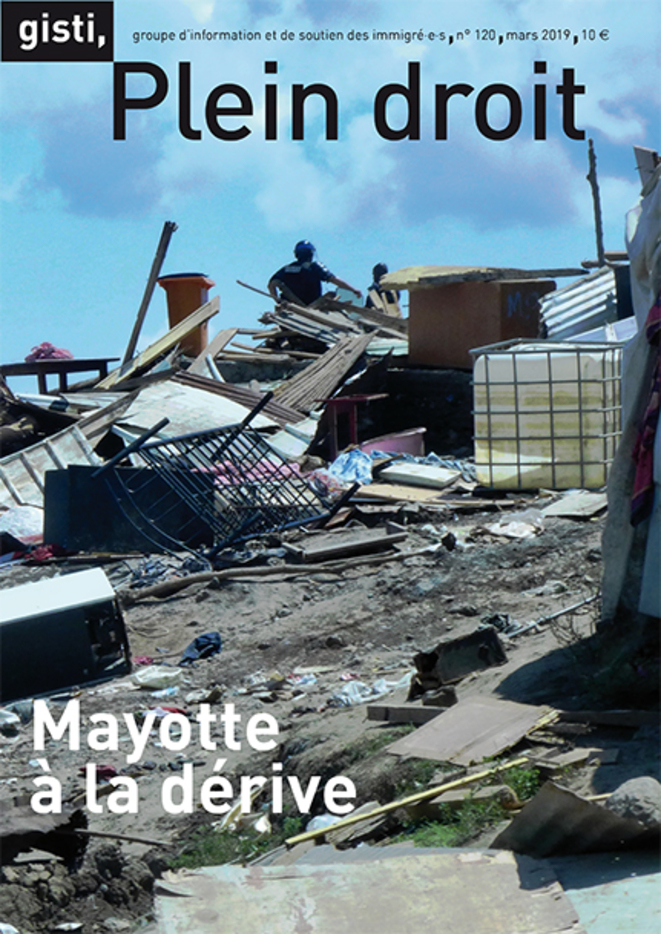
Rémi Tchokothe est maître de conférence en Littératures Africaines et en Études des langues africaines à l‘Université de Bayreuth, Principal Investigator dans le Cluster of Excellence “Africa Multiple: Reconfiguring African Studies” et professeur associé au Centre Universitaire de Formation et de Recherche de Mayotte. Il est l’auteur de Transgression in Swahili Narrative Fiction and Its Reception (2014), co-éditeur du volume sur Les Littératures Francophones de l’Archipel des Comores (2017) et coordinateur du volume Qui a peur de la Littérature Wolof ? (2018) sur l‘oeuvre Wolophone de Boubacar Boris Diop. Il travaille actuellement sur la question de la ‚migration‘ vers Mayotte
Tchokothe, R. 2020. (au)tour de Mayotte. apropos [Perspektiven auf die Romania]. 4 (Juni 2020), 111-119. DOI:https://doi.org/10.15460/apropos.4.1527.
- Tchokothe, R: "Le petit Mahorais apprend à écrire de droite à gauche à l´école coranique. Ensuite de gauche à droite avec ...Hide
-
Tchokothe, R: "Le petit Mahorais apprend à écrire de droite à gauche à l´école coranique. Ensuite de gauche à droite avec l´alphabet Latin"
Auteur-Acteur-Compositeur-Dramaturge-Fondateur de maison de culture-Ancien Dj de bals poussière, Nassur Attoumani, le porteur de multiples casquettes fidèle à son casque colonial est l’une des voix artistiques les plus importantes de l’archipel des Comores. Dans cet entretien Nassur Attoumani parle des langues d’écriture et des identités littéraires, des réseaux littéraires, de l’écrivain « postcolonial » comme traducteur (in)conscient, du lectorat absent, de la crise humanitaire liée à la « migration » des îles d’Anjouan, de Mohéli et de la Grande-Comore vers Mayotte et du mythe du casque colonial qu’il porte fièrement depuis plusieurs décennies.
chokothe, Rémi„« Le petit Mahorais apprend à é crire de droite à gauche à l’école coranique. Ensuite de gauche à droite avec l’alphabet Latin ». Entretien avec l’écrivain mahorais Nassur Attoumani“, apropos [Perspektiven auf die Romania]4, 132-140. doi:10.15460/apropos.4.1528
- Vierke, Clarissa: "Poetry"Hide
-
This chapter offers an overview of poetry in African languages from all over the continent, which is, on the one hand, the most universal and the most specific literary form. Most African cultures did not have a specific term for literature before colonialism, but have long traditions of rhythmically bound speech reserved for special occasions and used to promote the most important ideals and aspirations of society which have proved flexible to newly emerging styles. Given the beauty, vitality, and long history of poetry and its diversity rooted in its intimate connection with respective cultural contexts, concepts of aesthetics, and language form, the chapter starts by making heuristic use of generic categories, like epic and praise poetry, to be able to both draw comparisons and highlight cultural specifics. It pays attention to poetry’s changing media across time while also going beyond the typical dichotomy of “traditional” and “modern” poetry.
2020. Vierke, Clarissa. Poetry. In Rainer Vossen and Gerrit Dimmendaal (eds): The Oxford Handbook of African Languages. Oxford University Press. DOI: 10.1093/oxfordhb/9780199609895.013.5
- Vierke, Clarissa: "Intervention, Patronage and Performance"Hide
-
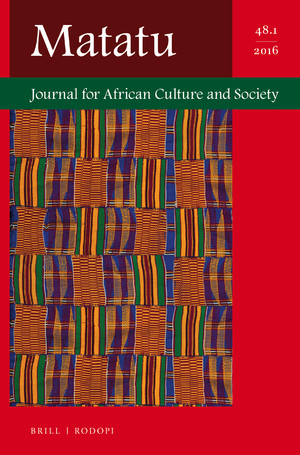
The question of the arts’ potential to intervene is a topical one. Art seems to be ubiquitous in forms of recent political protest and interventions morph into artistic practices—so that the boundary between art and political engagement becomes porous. The face of Khalid Said tortured to death by the Egyptian police appeared as graffiti on walls all over Alexandria and Cairo as well as facebook pages in 2010 and 2011 spurring huge mass protests against Mubarak’s regime; later a mural received a permanent space in the Goethe Institute of Cairo.1 In 2006, the Kenyan artist Sam Hopkins founded Slum TV, enabling the inhabitants of Mathare, one of the largest slums in Nairobi, to film their own news and stories and screen them in the slum.
2020 Vierke, Clarissa. Intervention, Patronage and Performance. A Foreword. In: Kohl, Marie-Anne and Ricarda De Haas (eds.): Power to the People? Patronage, Intervention and Transformation in African Performative Arts, Matatu 51, 1: 4-10.
- Vierke, Clarissa: "Boarding a Full Bus - Refracted Connections between the Political and the Poetic in Swahili Popular Poetry ...Hide
-

This paper interrogates the notion of intervention in popular poetry. It takes the example of popular poetry from Dar es Salaam, which has so far not received much scholarly attention, since it can neither be classified as traditional nor avantgarde. The urban poets struggle to make ends meet, but regularly publish their poetry in the newspaper or through social media and organize themselves in networks. They often remain without a voice in their society, but, contrary to a romanticist perception of the downtrodden, also do not seem to do much to criticize the status quo. Rather than following patterns of postcolonial paradigms which reduce poetry to a political message, I will argue for the potential of the aesthetic experience of poetry, whose imagery stirs the imagination of alternative worlds. Taking the example of a poem by the a female poet, Bi Jalala Sikudhani, I will show how the poem offers alternative views on her lifeworld.
2020 Vierke, Clarissa. Boarding a Full Bus: Refracted Connections Between the Political and the Poetic in Popular Poetry from Dar es Salaam. In: Kohl, Marie-Anne and Ricarda De Haas (eds.): Power to the People? Patronage, Intervention and Transformation in African Performative Arts, Matatu 51, 1: 94-117.
2020 - I
- Adeboye, O. “A Starving Man Cannot Shout Halleluyah: African Pentecostal Churches and the Challenge of Promoting ...Hide
-
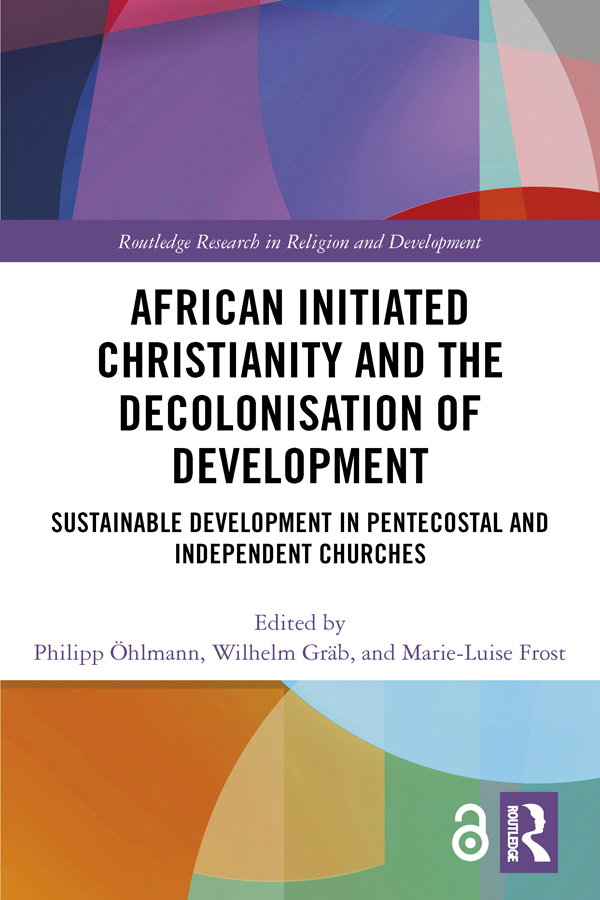
Adeboye, O. “A Starving Man Cannot Shout Halleluyah: African Pentecostal Churches and the Challenge of Promoting Sustainable Development”
This chapter examines the contribution of African Pentecostal churches to the promotion of sustainable development, using the Redeemed Christian Church of God (RCCG), an indigenous Nigerian church, as case study. It examines the response of this Pentecostal community to wider social needs and explores the social space taken up by Pentecostals and the networks they exploited to meet those needs. It also analyses the ideological, theological, relational and material hurdles they had to scale as they continued to grapple with issues of sustainable development. The chapter concludes by underscoring the significance of the erection of viable structures and policies and adoption of global best practices as the bedrock of sustainable development. Proper institutionalization of Pentecostal interventions will go a long way to promote sustainable development.
2020 Adeboye, O. “A Starving Man Cannot Shout Halleluyah: African Pentecostal Churches and the Challenge of Promoting Sustainable Development”, in Philipp Ohlmann, Wilhelm Grab and Marie-Luise Frost (eds.), African Initiated Christianity and the Decolonization of Development: Sustainable Development in Pentecostal and Independent Churches (New York: Routledge), 115-135.
- Alber, Erdmute: "Verwandtschaftshandeln in einer ökonomisch auseinanderdriftenden Gesellschaft: Eine Hochzeit in Benin"Hide
-
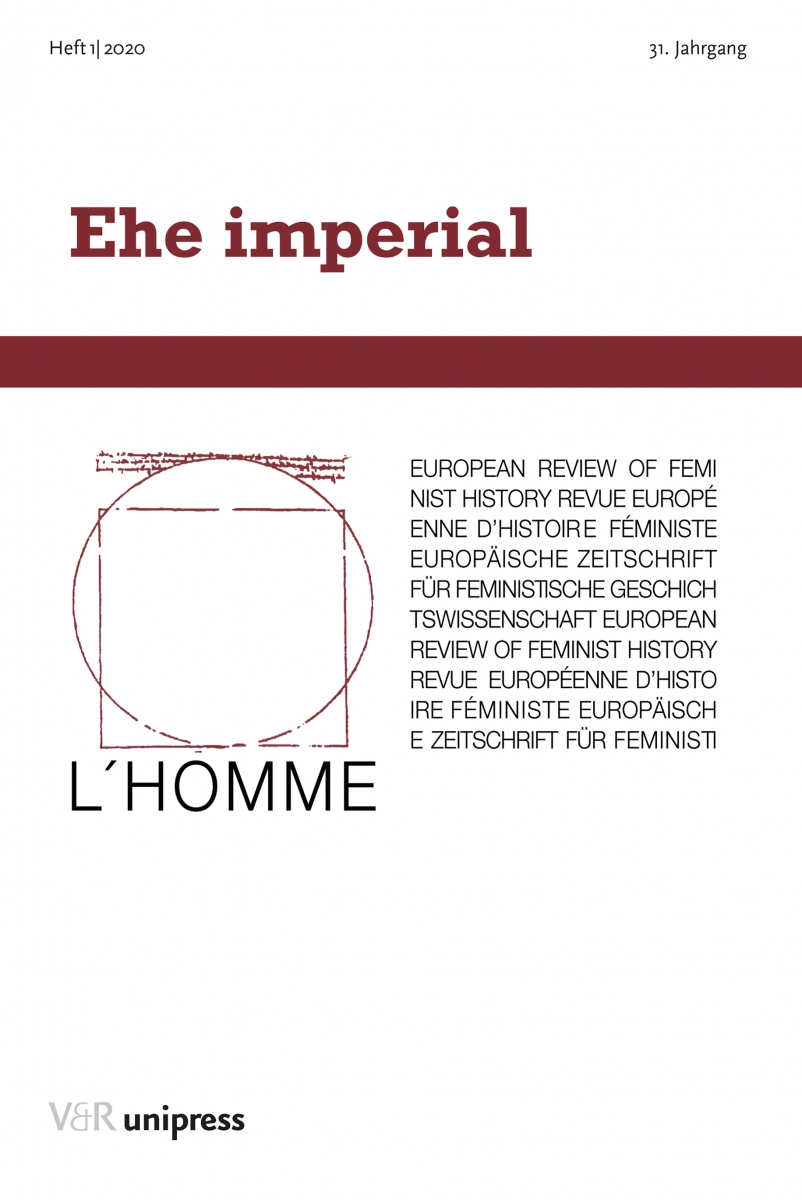 L’Homme 2020 Jg. 31, Heft 1: Ehe imperial
L’Homme 2020 Jg. 31, Heft 1: Ehe imperialEheschließung, Scheidung, Zugang zu Vermögen während und nach der Ehe, all dies war über die Jahrhunderte durch kirchliche und zivile Ordnungen strukturiert. Recht nahm damit sehr direkt Einfluss auf die persönliche Lebenspraxis. Insbesondere das 19. Jahrhundert war von zunehmender Rechtsvereinheitlichung gekennzeichnet, jedoch bestanden vor allem in größeren territorialen Zusammenhängen partikulare Rechte weiter fort. Dies konnte Möglichkeitsräume eröffnen genauso wie einen Wechsel zwischen Rechtsräumen durch Migration. Differente Zugehörigkeiten konnten umgekehrt heiratswillige Paare vor große Herausforderungen stellen. Ziel des Heftes ist es, an den Schnittstellen zwischen verschiedenen Rechtslogiken nach Handlungsräumen von Männern und Frauen und nach den damit verbundenen Geschlechternormen zu fragen.
Marriage, divorce, access to property during and after marriage, all this was structured over the centuries by ecclesiastical and civil provisions. Law thus had a very direct influence on personal life. The nineteenth century in particular was characterized by increasing legal unification, but particular rights continued to exist in larger territorial contexts. This legal heterogeneity as well as migration between different jurisdictional spaces could open up new possibilities to act. Conversely, different affiliations in regard to confession or ethnicity could pose great challenges for couples willing to marry. The aim of this issue is to ask at the interfaces between different legal logics about the spheres of action of men and women and the associated gender norms.
Alber, E., 2020. Verwandtschaftshandeln in einer ökonomisch auseinanderdriftenden Gesellschaft: Eine Hochzeit in Benin (Westafrika). L’Homme 30, 121–128. - Boamah, Festus; Rothfuß, Eberhard: "Practical recognition" as a suitable pathway for researching just energy futuresHide
-
Governmental and non-governmental actors promoting the universalisation of energy access and a just energy distribution for all envision spatial energy justice and recognition. Yet how and the extent to which these considerations offer practical solutions to the energy needs and visions of different social groups simultaneously is less evident. This is particularly crucial in Ghana where a just, ‘state-driven’ electricity provision connotes recognition of privileges of citizenship and an aura of ‘modernity’. Many urban households in Ghana are keenly installing Solar Home Systems (SHS) to mitigate frequent grid power outages and ensure stability in the performance of social and energy-saving practices which grant them recognition as ‘enlightened’ social groups or as individuals staying au courant with modern energy technologies. Also, the Ghanaian government recently attempted to achieve spatial energy justice by providing free 500 W SHS to non-electrified, ‘territorially remote’ communities. Many community residents, however, claim the SHS facility restricts performances of ‘modern’ practices in comparison to fellow ‘Ghanaians’ who have access to electrical grids and that its acceptance may perpetually reduce them to ‘second-class’/‘old-fashioned citizens’. Our empirical evidence suggests that energy justice visions remain fuzzy unless they are set in relation to how and why practical solutions to the energy ‘needs’ and ‘visions’ of socially and spatially differentiated groups could be realised. We call this practical recognition. In this paper, we advocate practical recognition as a suitable alternative pathway for researching just energy futures by emphasizing connections between justice, human agency and entitlement notions.
Boamah, Festus; Rothfuß, Eberhard: "Practical recognition" as a suitable pathway for researching just energy futures: Seeing like a "modern" electricity user in Ghana. In: Energy Research & Social Science. Bd. 60 (2020), p. 1-12.
- Chang, Yongkyu (Ed.): "South Korea’s Engagement with Africa - A History of the Relationship in Multiple Aspects"Hide
-
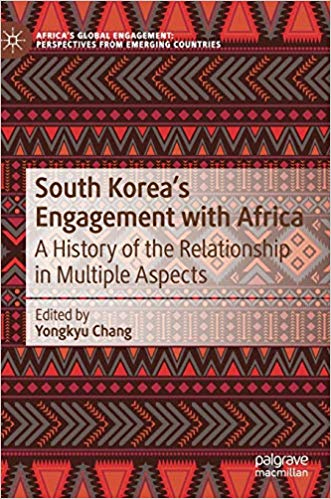
This book represents the first scholarly attempt to summarize and analyze how Korea’s relationship with Africa has been shaped in policy and non-policy aspects. It shows how far it has come and where it goes. The book recognizes that Korea-Africa relations, though relatively new, break ground by acknowledging the importance of a diligent endeavor to carry out post-colonial development, and have continued to grow as we find promising progress and opportunities in the mutual cooperation between the two. This book is all-inclusive, covering Korea’s academic, economic, diplomatic, and civil engagements with Africa. It investigates untold aspects of Korea-Africa relations.
Chang, Yongkyu (Ed.): "South Korea’s Engagement with Africa - A History of the Relationship in Multiple Aspects", Palgrave Macmillan 2020.
- Clemens, Iris: "Decolonizing Knowledge : Starting Points, Consequences and Challenges"Hide
-
The call for the decolonization of knowledge refers to both its colonization and contingency and puts the focus on the multiplicity of knowledge. This contradicts European-North- American thinking and definitions of knowledge. Consequently, to advance an epistemological decolonization of knowledge, the actual process of defining knowledge will be analysed and the multiplicity of perspectives stressed at the epistemological level. Using Indian epistemology as an example, I will work out differences in definitions of knowledge and therefore basic diversifications in describing and explaining the emergence of knowledge. Truth-value-neutral forms of knowledge in particular challenge dominant European-North-American philosophical definitions, which incontrovertibly include assumptions of true or false knowledge. An interesting overlap between some Indian epistemologies and postcolonial theories can be observed with regards to the central role of the contextualization of knowledge production and the socially embodied nature of scientific knowledge in general. If the incentives gained are to be taken seriously, the consequences for educational science in general as well as educational practices must be discussed. According to the findings of organizational theory, emphasis on diversification and complication is also seen as an opportunity for the emergence of fresh meaning. Referring to Helen Verran’s concept of generative tension as a sign of collective creativity, encounters between diverse forms of knowledge and epistemological principles are seen as sources of creative processes and prerequisite for the emergence of new positions, perspectives etc., and thus as incubators for innovations.
- Echtler, Magnus: "Postcolonialism, Theology and the Construction of the Other"Hide
-
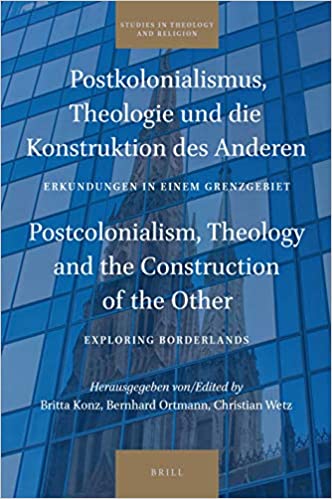
Postcolonialism refers not only to the historical epoch after the end of the colonial era, but also to a theoretical concept for the analysis of power relations. In German-speaking theology, this concept has so far received little attention. In the bilingual volume Postcolonialism, theology and the construction of the other, scholars of all theological disciplines, including religious studies, explore the heuristic possibilities that postcolonialism provides for their subject. In particular, the question is how "the other" is constructed as the counterpart of a "we." In times of global migration and growing right-wing extremism, theology must remain capable to offer answers to the urgent questions of the present.
2020, Shembe, the Black Messiah. A postcolonial intervention, in Postcolonialism, Theology and the Construction of the Other. Exploring Borderlands, edited by Britta Konz, Bernhard Ortmann and Christian Wetz. Leiden: Brill (Studies in Theology and Religion 26), 133–169.
- Gehrmann, S.: "Le film Ken Bugul – personne n’en veut de Silvia Voser comme prolongement médiatique de l’écriture ...Hide
-
Susanne Gehrmann: "Le film Ken Bugul – personne n’en veut de Silvia Voser comme prolongement médiatique de l’écriture autoréférentielle de Ken Bugul", in: Ibrahima Diagne/Hans-Jürgen Lüsebrink (Hg.): Cultures médiatiques et intermédialité dans les littératures sénégalaises. Enjeux culturels et écritures littéraires de l’époque coloniale à la postmodernité. L’Harmattan, Paris 2020, S. 265-295.
- Gehrmann, S.: "Les polars d’Akoua Ekué et de Jeannette Ahonsou: combat littéraire et innovation générique des romancières ...Hide
-
Susanne Gehrmann: "Les polars d’Akoua Ekué et de Jeannette Ahonsou: combat littéraire et innovation générique des romancières togolaises", in lendemains 44/174-175, 2020, S. 172-184.
- Glasman, Joël: "Humanitarianism and the Quantification of Human Needs"Hide
-
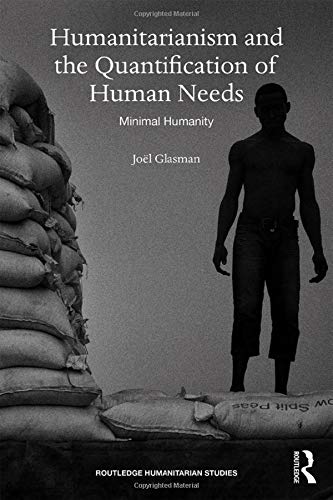
This book provides the first historical inquiry into the quantification of needs in humanitarian assistance. Ultimately the book argues that we cannot understand the global humanitarian aid movement, if we do not understand how humanitarian agencies made human suffering commensurable across borders in the first place.
The book identifies four basic elements of needs: as a concept, as a system of classification and triage, as a form of material apparatus, and as a codified standard. Drawing on a range of archival sources ranging from the United Nations Refugee Agency (UNHCR), Médecins sans Frontières (MSF), and the Sphere Project, the book traces the concept of needs from their emergence in the 1960s right through to the modern day, and United Nations Secretary-General Ban Ki-moon's call for "evidence-based humanitarianism". Finally the book assesses how the international governmentality of needs played out in a recent humanitarian crisis, drawing on detailed ethnographic research of Central African refugees in the Cameroonian borderland in 2014-2016.
This important historical enquiry into the universal nature of human suffering will be an important read for humanitarian researchers and practitioners, as well as readers with an interest in international history and development.
GLASMAN, J., 2020. HUMANITARIANISM AND THE QUANTIFICATION OF HUMAN NEEDS: minimal humanity. ROUTLEDGE - Melina Kalfelis: "NGO als Lebenswelt Transnationale Verflechtungen im Arbeitsalltag von Entwicklungsakteuren"Hide
-
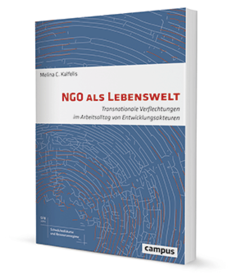
Der Arbeitsalltag westafrikanischer Entwicklungsakteure im Rahmen von NGO-Partnerschaften ist weitgehend unerforscht. Dass viele dieser Akteure selbst an der Schwelle zu einem Phänomen stehen, das in Entwicklungsdiskursen als »Armut« bezeichnet wird, findet kaum Beachtung. Diese Ethnografie führt die paradigmatischen Veränderungen der Internationalen Zusammenarbeit mit einer Analyse eines von Unsicherheiten geprägten Alltags in Burkina Faso zusammen. An der Schnittstelle von Theorie und Empirie werden neue Einsichten zu den Verflechtungen von NGO-Praktiken in Westafrika mit transnationalen Ordnungen der Entwicklungspraxis gewonnen.
Melina Kalfelis: "NGO als Lebenswelt Transnationale Verflechtungen im Arbeitsalltag von Entwicklungsakteuren", Campus 2020.
- Lingelbach, Jochen: "On the Edges of Whiteness : Polish Refugees in British Colonial Africa during and after the Second ...Hide
-
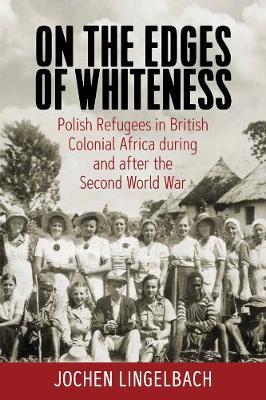
Lingelbach, Jochen: "On the Edges of Whiteness : Polish Refugees in British Colonial Africa during and after the Second World War"
From 1942 to 1950, nearly twenty thousand Poles found refuge from the horrors of war-torn Europe in camps within Britain's African colonies, including Uganda, Tanganyika, Kenya and Northern and Southern Rhodesia. On the Edges of Whiteness tells their improbable story, tracing the manifold, complex relationships that developed among refugees, their British administrators, and their African neighbors. While intervening in key historical debates across academic disciplines, this book also gives an accessible and memorable account of survival and dramatic cultural dislocation against the backdrop of global conflict.
- Meyer, B.: "Afterword"Hide
-
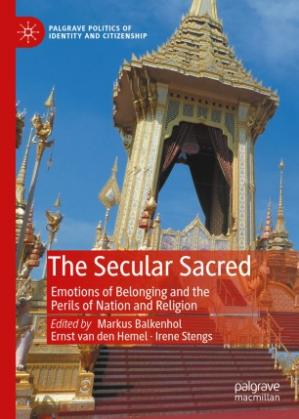
How do religious emotions and national sentiment become entangled across the world? In exploring this theme, The Secular Sacred focuses on diverse topics such as the dynamic roles of Carnival in Brazil, the public contestation of ritual in Northern Nigeria, and the culturalization of secular tolerance in the Netherlands.
The contributions focus on the ways in which sacrality and secularity mutually inform, enforce, and spill over into each other. The case studies offer a bottom-up, practice-oriented approach in which the authors are wary to use categories of religion and secular as neutral descriptive terms. The Secular Sacred will be of interest to sociologists, anthropologists, ethnographers, political scientists, and social psychologists, as well as students and scholars of cultural studies and semiotics.
Meyer, B. (2020). Afterword. In Markus Balkenhol, Ernst Hemel, van den & Irene Stengs (Eds.), The Secular Sacred - Emotions of Belonging and the Perils of Nation and Religion. (pp. 285 - 290) (6 p.). London: Palgrave.
- Meyer, B.: "Afterword: Comparison in the Anthropological Study of Plural Religious Environments."Hide
-
Highlighting common threads in the pieces by Beekers, Kasmani and Mattes, and Dilger, this concluding essay reflects on the potential of comparison as conceptual innovation in the anthropological study of religious plurality. Asking how to develop innovative practices of comparison for the sake of grasping the dynamics of plural societies in the light of the articles in this collection, I argue that it is necessary to transcend the bifurcation of the study of religions, which was accentuated with the rise of the anthropologies of Islam and Christianity, in favor of a focus on the secular configuration as a whole, paying attention to power dynamics that assign different spaces for action to different religions (notwithstanding their equality in legal terms). The point of comparison, understood as a critical project geared toward conceptual innovation, is not only to discern so far overlooked, unexpected differences and similarities, but also to understand how these differences and similarities, as well as the possibility to compare as such, are outcomes of long-standing entanglements.
Meyer, B. (2020). Afterword: Comparison in the Anthropological Study of Plural Religious Environments. Social Analysis, 64 (1), (pp. 133 -139) (7 p.).
- Meyer, B.; Stolow, J.: "Light Mediations: Introduction"Hide
-
This introduction argues that the study of light and lighting devices, and the light mediations yielded by them, is important for scholars of material religion. Discussing the four articles on aesthetics of light in Christianity, we argue that synthesizing metaphorical and physical uses of light allows for a deep understanding of the processes through which a professedly immaterial transcendent becomes real for religious practitioners in the material world. Inspired by these contributions and the two essays in the In Conversation section, we plead for a methodology of following the light in scholarly research.
Meyer, B. & Stolow, Jeremy (2020). Light Mediations: Introduction. Material Religion, 16 (1), (pp. 1-8) (8 p.).
- Meyer, B. (2020). "Media"Hide
-
Meyer, B. (2020). Media. The Immanent Frame; secularism, religion, and the public sphere, (pp. 1-3).
- Meyer, B.: "Religion as Mediation."Hide
-
Why and how is it productive to conceptualize religion as mediation? In this article, I 1) rehearse the intellectual trajectory of the move from studying the implications of the adoption of new mass media into religious practices to a broader idea of religion as a practice of mediation; 2) address some criticisms raised with regard to the concept of religion-as-mediation from my position in the interface of anthropology and religious studies; 3) discuss the evocation of a sense of transcendence through sensational forms, and 4) by way of an outlook, pinpoint how conceptualizing religion as mediation is useful to unpack religious plurality.
Meyer, B. (2020). Religion as Mediation. Entangled Religions, 11 (3) (21 p.).
- Ndi Shang, Gilbert: "Deconstructing postcolonial scopic regimes: The subversion of power imaginaries in the novels of ...Hide
-
Ndi Shang, Gilbert: "Deconstructing postcolonial scopic regimes: The subversion of power imaginaries in the novels of Ngugi wa Thiong’o and Sony Labou Tansi"
This paper examines the relationship between visuality, knowledge and power in the postcolonial African novel. With examples from selected texts of Ngugi wa Thiong’o and Sony Labou Tansi, it argues that visual culture, usually employed in the analysis of cultural images and material iconographies in media studies, can aptly be employed in textual analysis given that postcolonial novels are primarily engaged with the undoing of dominant visual regimes. Against the background of hegemonic regimes based on instrumentalist and subjectifying surveillance of the subject, Ngugi wa Thiong’o and Labou Tansi build their texts on visual tactics and practices that subvert the capacity of the state apparatus to see, hence to know the subject. Bordering on humour, parody, graffiti, bricolage and surrealist representation, the two authors “play” with the state Panopticon, creating avenues for countervailing meanings that elude the dominant regimes of vision, knowledge and power. The subversive visual practices are inscribed within a conception of literary textualities that is based on plurivocality, heteroglossia, dialogism and the non-transparent text. Through the deconstruction of dominant visual architecture, both authors open up spaces for democratic conception of power that takes account of inter-subjectivity and non-hegemonic participation in the postcolonial public sphere.
Gilbert, N.S., 2020. Deconstructing postcolonial scopic regimes: The subversion of power imaginaries in the novels of Ngugi wa Thiongo and Sony Labou Tansi. Int. J. English Lit. 11, 1–8. - Ndi Shang, Gilbert: "The Coltan Novel: Narrating the Congolese Saga in In Koli Jean Bofane’s Congo Inc. : Le testament ...Hide
-
Ndi Shang, Gilbert: "The Coltan Novel: Narrating the Congolese Saga in In Koli Jean Bofane’s Congo Inc. : Le testament de Bismarck "
The Congo has consistently been a subject of wide-ranging historical and creative productions aimed at capturing its dramatic history. This has often led to the submersion of Congolese voices under exogenous and exotic depictions of Congolese realities in ways that position the Congolese subject and space as the other, void of complexity and possibility. In Koli Jean Bofane (1954) belongs to a generation of Congolese authors who “write the Congo” from within, through an inventive sensibility, an insightful worldview, and an unsettling style aimed at representing the paradoxes of the nation’s trajectory.
- Ouma, Stefan ; Beisel, Uli ; Glasman, Joël: "Genesene Menschen als Ressource?"Hide
-
In der Diskussion um mögliche Wege aus der Corona-Krise fällt immer häufiger ein Begriff: „Immunitätszertifikate“ – wahlweise ist auch von „Pässen“ oder „Lizenzen“ die Rede – sollen im Kampf gegen die Pandemie eine zentrale Rolle spielen. Die britische und die italienische Regierung haben verkündet, die Vergabe von Immunitätslizenzen in Erwägung zu ziehen, Bill Gates denkt laut über deren Sinn nach, und ein Konsortium aus 60 Tech-Unternehmen forscht zu digitalen Zertifikaten per Blockchain-Technologie.
Ouma, Stefan ; Beisel, Uli ; Glasman, Joël:
Genesene Menschen als Ressource?
In: Frankfurter Rundschau. (1 Mai 2020) . - Sabbi, M.; Stroh, A.: "The “Numbers Game”: Strategic Reactions to Results-Based Development Assistance in Ghana"Hide
-
Current development assistance prioritizes results and evaluative schemes used to generate them as the most effective way of delivering aid by presenting these results as evidence of accomplishment. Aid recipients and donors respond with a crafty tactic, which we term the “numbers game.” They generate results to satisfy assessment expectations irrespective of actual service delivery or satisfaction of the local population. This tactic yields both external and internal legitimacy: recipient countries legitimize their access to external funds while external actors sustain the aid enterprise that is under persistent scrutiny. In-depth interviews, observation, and existing data on everyday life of municipal councils in Ghana lend support to the preeminence given to results-based aid (RBA) in the numbers game. Startlingly, the expected impact targeted by the scheme is strategically set aside so that more capacity gaps are created and hence the need for more RBA resources to address. A delicate balance between results and on-the-ground impact is required for such intervention to have effect.
Sabbi, M., Stroh, A. The “Numbers Game”: Strategic Reactions to Results-Based Development Assistance in Ghana. St Comp Int Dev 55, 77–98 (2020). https://doi.org/10.1007/s12116-019-09296-z
- Stasik, Michael; Hänsch, Valerie; Mains, Daniel: "Temporalities of waiting in Africa"Hide
-

Stasik, Michael; Valerie, Hänsch; Mains, Daniel: "Temporalities of waiting in Africa". In: Critical Africal Studies. (2020), p. 1-9.
- Vierke, Clarissa: "The Making of the ‘Classical’ Utenzi : a Consideration of the Early Editorial History of Tenzi in the 19th...Hide
-
Vierke, Clarissa: "The Making of the ‘Classical’ Utenzi : a Consideration of the Early Editorial History of Tenzi in the 19th and 20th Century"
In: Kandagor, Mosol ; Ogechi, Nathan O. ; Vierke, Clarissa (ed.): Lugha na fasihi katika karne ya ishirini na moja : kwa heshima ya marehemu Profesa Naoma Luchera Shitemi. - Eldoret, Kenya : Moi University Press , 2017 . - pp. 113-130, ISBN 9789966187963
2019 - IV
- Alber, Erdmute ; Kroeker, Lena:"Preparing old age in Kenya and Benin : A contribution to the debates on social differentiatio..Hide
-
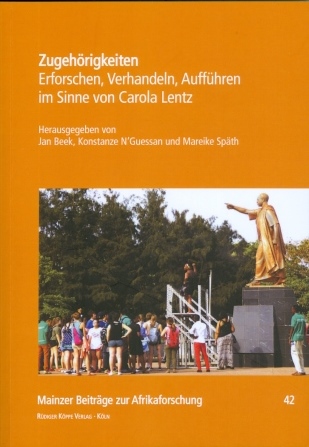
Alber, Erdmute ; Kroeker, Lena:"Preparing old age in Kenya and Benin : A contribution to the debates on social differentiation in Africa"
Ethnizität, Bodenrecht, nationale Erinnerungspolitik und Mittelklasse – Carola Lentz hat viele ethnologische Themenfelder entscheidend weiterentwickelt. Ihre mehrfach ausgezeichneten Bücher basieren auf Feldforschungen in Westafrika, vor allem in Ghana und Burkina Faso. Auch wenn sich ihr Werk sicher nicht auf einen Begriff reduzieren lässt, zieht sich ein ausgeprägtes Interesse an „Zugehörigkeiten“ wie ein roter Faden durch ihre Forschung.
Carola Lentz reflektiert Erforschen als Interaktionsprozess, bei dem die angenommene oder verweigerte „Zugehörigkeit“ der Ethnolog*in zu den Erforschten wichtige Einsichten bringt. Insbesondere bei den Themenfeldern Ethnizität und Erinnerungspolitik untersucht sie, wie Akteure unterschiedliche „Zugehörigkeiten“ herstellen und verhandeln. Unter dem Begriff Aufführung hat sie performative Praktiken erforscht, die diese unterschiedlichen Formen von „Zugehörigkeit“ mit Leben füllen.
Dieser Sammelband, der Carola Lentz und ihr wissenschaftliches Werk anlässlich ihres 65. Geburtstags würdigt, vereint Beiträge von Kolleginnen und Kollegen aus verschiedenen Forschungskontexten. Auf ganz unterschiedliche Weise und in vielen Fällen auch inspiriert von bzw. geprägt durch die Forschung und universitäre Lehre von Carola Lentz spiegeln die Beiträge ihr Interesse am Erforschen, Verhandeln und Aufführen von Zugehörigkeiten.
In: Beek, Jan ; N’Guessan, Konstanze ; Späth, Mareike (ed.): Zugehörigkeiten : Erforschen, Verhandeln, Aufführen im Sinne von Carola Lentz. - Köln : Köppe Verlag , 2019 . - pp. 213-227 . - (Mainzer Beiträge zur Afrikaforschung ; 42 ) ISBN 978-3-89645-843-8
- Akello, Grace ; Beisel, Uli: Challenges, Distrust, and Understanding Hide
-
We assessed how the everyday work challenges that frontline health workers (FRHWs) face in the government health sector in northern Uganda influence their trust in the Ministry of Health (MOH). We employed qualitative research techniques, including interviews and participant observation, over a 9-month period to examine FRHWs’ viewpoints about how the MOH should address these challenges in service delivery. One hundred and sixty-five FRHWs, of whom 48 were recruited for extensive follow-up, participated in our study. Key findings include distrust in the MOH is prevalent among FRHWs, there is a lack of trust in the organization’s coordination role in service delivery and this affects health care delivery to patients, interrelations, and provider cooperation. Therefore, restoring trust in government hospitals will require a truthful non-violent response by the MOH in its contractual agreement with FRHWs. In our analysis, we employ Habermas’s Theory of Communicative Action.
Akello, Grace ; Beisel, Uli: Challenges, Distrust, and Understanding : Employing Communicative Action in Improving Trust in a Public Medical Sector in Uganda. In: SAGE Open. Vol. 9 (2019) Issue 4 . - No. 215824401989370.
Link to the publication - Beisel, Uli ; Ganle, John Kuumuori: The Release of Genetically Engineered Mosquitoes in Burkina FasoHide
-
Beisel, Uli ; Ganle, John Kuumuori: The Release of Genetically Engineered Mosquitoes in Burkina Faso : Bioeconomy of Science, Public Engagement and Trust in Medicine. In: African Studies Review. Vol. 62 (2019) Issue 3 . - pp. 164-173.
Link to the publication - Beisel, Uli: What might we learn from ANT for studying healthcare issues in the majority worldHide
-
In this contribution, I think through how ANT and related feminist science studies’ sensibilities can help us think differently about healthcare issues in the majority world. The piece discusses the implications of the methodological impulse of ANT not to divide the realms that make up the complex knots of realities. I analyse the development of the malaria vaccine MOSQUIRIX, and in this weave together questions of (i) how the vaccine relates to global and local infrastructures of healthcare provision, (ii) how it might help us to think about technological fixes and (iii) how parasites are stubborn actants in themselves whose biological complexity and changeability temper with the hopes of vaccine developers. The contribution argues that it is crucial for ANT-inspired analyses to ask what kinds of practices of caring for bodies, patients and environments fall off the agendas of philanthropists, pharmaceutical industry and global health policies? It is here, where the study of health in the majority world can inspire STS, namely in bringing the effects that situations of (often prolonged) economic, environmental and social vulnerabilities and insecurities have on bodies (human and parasite alike), minds, infrastructures, our living environments and landscapes more broadly to the fore.
Beisel, Uli: What might we learn from ANT for studying healthcare issues in the majority world, and what might ANT learn in turn? In: Blok, Anders ; Farias, Ignacio ; Roberts, Celia (ed.): The Routledge Companion to Actor-Network Theory. - London : Routledge , 2019 . - pp. 246-255
Link to the publication - Clemens, Iris: Comment : Cultural Identities in Multilocal Spaces : bringing in multiplicity.Hide
-
The comment emphasizes upon the trinity of identity, space and connections or relations, referring to the contributions of the special issue. This perspective is used to ask for a concept of culture capturing the relationality of the social. Following the relational approach, any social actor has many identities while moving permanently between many social figurations, as e.g. network theory (White 2008) as a theory of the betweeness points out. Accordingly, a conceptualization of multiplicity of identities is a necessary component of theoretical approaches that catch up with these insights in a general emphasis on multiplicity (e.g. of space). What becomes visible is, that to grasp the multiplicity, fluidity and dynamics as well as the interdependency of identities and spaces (multilocal or else), their relationality must be focused upon. This challenges older disparities like local-global as well. In that sense, relationality is the key to bring identities, spaces and cultures together and integrate them into one concept that is capable of describing and analysing such different experiences represented in this volume.
Clemens, Iris: Comment : Cultural Identities in Multilocal Spaces : bringing in multiplicity
In: Diaspora, Indigenous, and Minority Education : Studies of Migration, Integration, Equity, and Cultural Survival Bd. 13 (2019) Heft 1. - S. 68-72. - Clemens, Iris: Projekt: Exzellenzcluster Africa multiple : Reconfiguring African Studies an der Universität Bayreuth Hide
-
Clemens, Iris:
Projekt: Exzellenzcluster Africa multiple : Reconfiguring African Studies an der Universität Bayreuth und die Research Section learning.
In: Erziehungswissenschaft. Bd. 30 (2019) Heft 58. - S. 126-127. - Dieter, Neubert: "Inequality, Socio-cultural Differentiation and Social Structures in Africa"Hide
-
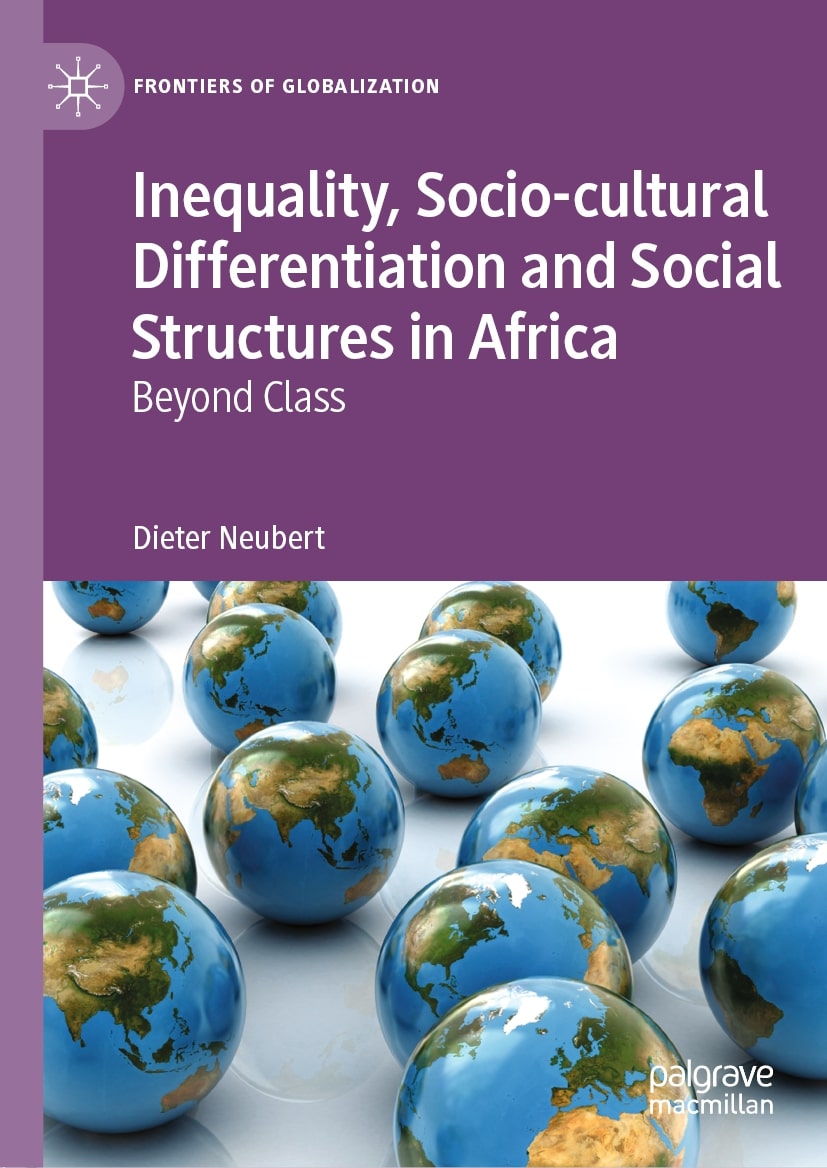
This book contends that conventional class concepts are not able to adequately capture social inequality and socio-cultural differentiation in Africa. Earlier empirical findings concerning ethnicity, neo-traditional authorities, patron-client relations, lifestyles, gender, social networks, informal social security, and even the older debate on class in Africa, have provided evidence that class concepts do not apply; yet these findings have mostly been ignored.
For an analysis of the social structures and persisting extreme inequality in African societies – and in other societies of the world – we need to go beyond class, consider the empirical realities and provincialise our conventional theories. This book develops a new framework for the analysis of social structure based on empirical findings and more nuanced approaches, including livelihood analysis and intersectionality, and will be useful for students and scholars in African studies and development studies, sociology, social anthropology, political science and geography.
Neubert, D., 2019. Inequality, Socio-cultural Differentiation and Social Structures in Africa: Beyond Class. Springer International Publishing, Cham. https://doi.org/10.1007/978-3-030-17111-7 - Fendler, Ute: "Cinema is a country: The transgressive power of images in The Sea is Behind by Hicham Lasri"Hide
-
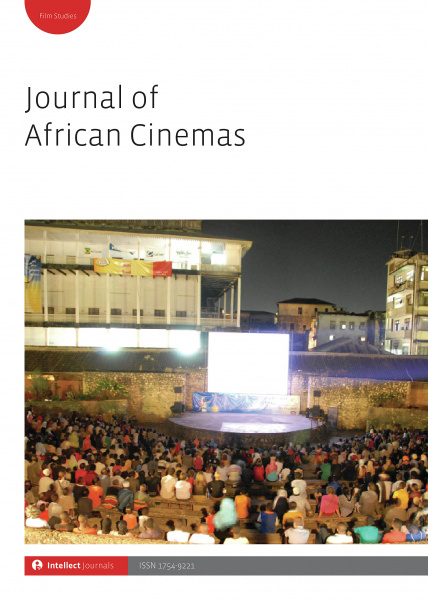
Since 2013, the Moroccan filmmaker Hicham Lasri has released a film each year, each of which has met with success at international festivals. All of these films transgress narrative and aesthetic cinematic boundaries, and The Sea is Behind (2015) is no exception: in a fable about the relations between human beings in a society that is losing its ethical and moral orientations, it invites us to consider our perception of the Other. The first part of the article addresses the active construction of its narrative from narrative fragments; the second part focuses on the ways in which the film's fragmented/composite narrative structure is reinforced by aesthetic means, so that, as the complex theme of the position and perception of marginalized groups is developed, new perspectives open up at the interstices, creating an impression of the dehumanizing conditions of life in this society.
"Le cinéma est un pays ..." (‘Cinema is a country’) or the transgressive power of images in The sea is behind by Hicham Lasri.” In: Journal of African Cinemas. 2019, 25-36.
- Glasman, Joël: Humanitarianism and the Quantification of Human Needs. Minimal HumanityHide
-
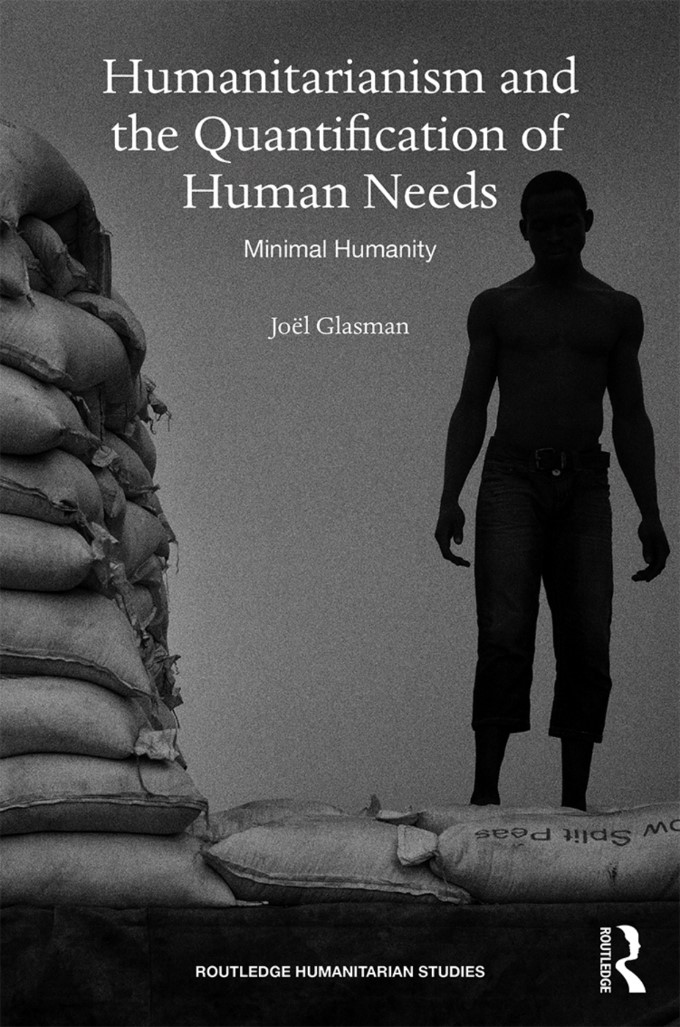
This book provides an historical inquiry into the quantification of needs in humanitarian assistance. Needs are increasingly seen as the lowest common denominator of humanity. Standard definitions of basic needs, however, set a minimalist version of humanity – both in the sense that it is narrow in what it compares, and that it sets a low bar for satisfaction. The book argues that we cannot understand humanitarian governance if we do not understand how humanitarian agencies made human suffering commensurable across borders in the first place. Drawing on a range of archival sources, including the United Nations Refugee Agency (UNHCR), Médecins sans Frontières (MSF), and the Sphere Project, the book traces the concept of needs from its emergence in the 1960s right through to the present day, and United Nations Secretary-General Ban Ki-moon’s call for “evidence-based humanitarianism.” This historical inquiry into the universal nature of human suffering will be an important read for humanitarian researchers and practitioners, as well as readers with an interest in international history and development.
- Gunkel, Henriette ; Lynch, Kara : We Travel the Space WaysHide
-
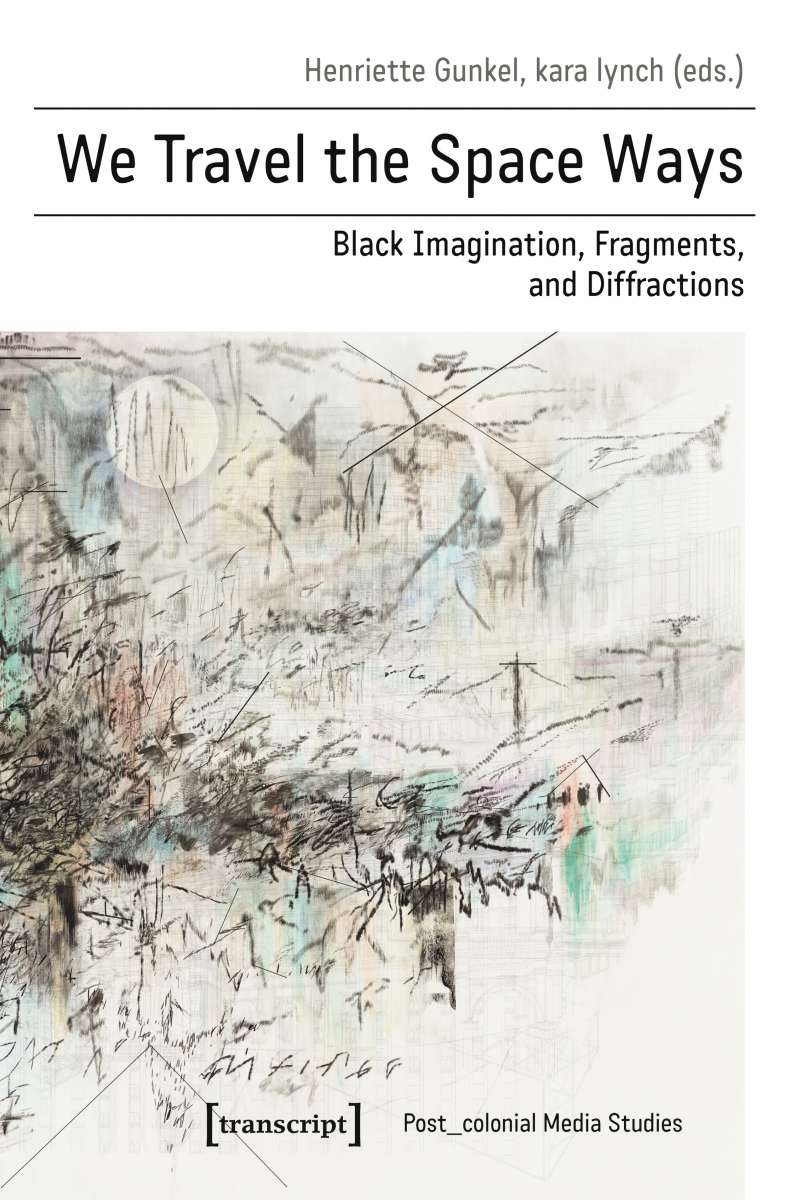
A new take on Afrofuturism, this book gathers together a range of contemporary voices who, carrying legacies of 500 years of contact between Africa, Europe, and the Americas, reach towards the stars and unknown planets, galaxies, and ways of being. Writing from queer and feminist perspectives and circumnavigating continents, they recalibrate definitions of Afrofuturism. The editors and contributors of this exciting volume thus reflect upon the re-emergence of Black visions of political and cultural futures, proposing practices, identities, and collectivities.
With contributions from AfroFuturist Affair, John Akomfrah, Jamika Ajalon, Stefanie Alisch, Jim Chuchu, Grisha Coleman, Thomas F. DeFrantz, Abigail DeVille, M. Asli Dukan with Wildseeds, Kodwo Eshun, Anna Everett, Raimi Gbadamosi, Alexis Pauline Gumbs, Milumbe Haimbe, Ayesha Hameed, Kiluanji Kia Henda, Kara Keeling, Carla J. Maier, Tobias Nagl, Tavia Nyongo, Rasheedah Phillips, Daniel Kojo Schrade, Nadine Siegert, Robyn Smith, Greg Tate and Frohawk Two Feathers.
- Kaime, Thoko: "International energy policy for development : human rights and sustainable development law imperatives."Hide
-
Energy is critical to all aspects of human development. Modern life is possible only because of the opportunities afforded by modern energy systems. From cooking, to lighting and heating, to transport, access to energy is critical. Governments around the world recognise the linkage between human development and access to safe, secure, and affordable sources of energy. However, many people around the world have access to only rudimentary and inadequate energy sources, depriving them of opportunities for economic development and creating serious health risks. Even in countries in which access to energy services is adequate, the provision of those services has both health and environmental effects. In particular, the production of energy using fossil fuels generates greenhouse gases that contribute significantly to climate disruption, which is likely to create disproportionate risks to the very undeveloped nations already suffering from a lack of access to adequate energy supplies.
This chapter presents a framework for understanding these energy challenges in the context of sustainable development. It argues that there are three important ways in which energy is related to sustainable development: a) energy as a necessity for meeting basic human needs energy; b) as a source of environmental stress; and c) energy as a key driver of macroeconomic growth. These three dimensions correspond to the three dimensions of the oft-cited sustainable development tripod: environmental, economic, and social. Using this conceptual framework, the chapter discusses how international law deals with the challenges of energy access in sustainable development and how it ultimately guides decision-making in energy investments.
The basic goals of international energy policy are well suited to delivering sustainable energy outcomes by balancing the three elements of sustainable development. However, for this to be achieved, it is necessary to articulate and deploy a legal framework that is capable of guiding disparate energy investments and innovations along a sustainable pathway. An overarching theme that emerges from this analysis is that a robust framework on energy for development must have at its centre, a human rights and sustainable development focus.Kaime, Thokozani:
International energy policy for development : human rights and sustainable development law imperatives.
In: Cullet, Philippe ; Koonan, Sujith (Hrsg.): Research Handbook on Law, Environment and the Global South. - Cheltenham, UK : Edward Elgar Publishing , 2019 . - S. 305-321 . - (Research Handbooks in Environmental Law )
ISBN 978-1-78471-745-2
DOI: https://doi.org/10.4337/9781784717469.00027 - Katsakioris, Constantin: Students from Portuguese Africa in the Soviet Union, 1960–74Hide
-
A major ally of the Marxist-inspired liberation movements, which fought against Portuguese colonialism in Angola, Guinea-Bissau, Cape Verde, and Mozambique, the Soviet Union provided them with not only military, but also civil aid in the form of scholarships. This paper focuses on the training of students from Portuguese Africa in the USSR. While it provides data and analyzes the importance and the complexities of educational assistance in the context of anti-colonial revolutions, it also sheds light on the tensions and serious conflicts that cast a shadow over the relationships between students and leaders. Students who created opposition groups and were accused of plotting against the leaders, criticizing the USSR, or trying to postpone their return to the motherland were repatriated and punished. Others managed to migrate and pursued their opposition from the West. Confronted with these phenomena, the party leaders grew disillusioned and reduced the number of students studying in the Soviet Union.
Katsakioris, Constantin: Students from Portuguese Africa in the Soviet Union, 1960–74: Anti-colonialism, Education, and the Socialist Alliance. In: Journal of Contemporary History
- Ndi-Shang, Gil: Letter from America - Memoir of an Adopted ChildHide
-
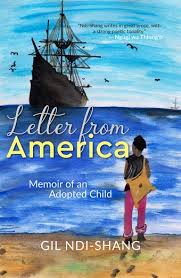
Inspired by Alistair Cooke’s masterpiece “Letter from America” (1934-2004) that depicted the transformation of British culture in the United States of America, Ndi-Shang’s text redefines ‘America’, focusing on the melting pot engendered by African, indigenous, European and Asian cultures in Latin America through the case of Peru, the erstwhile epicentre of Spanish empire in Latin America. It is a reflection on the triangular relationship between Africa, Europe and America against the backdrop of slavery and (neo-)colonialism which continue to define intimate experiences, daily interactions, personal trajectories and human relations in a ‘globalized world’. Ndi-Shang probes into the legacies of racial inequalities but also the possibilities of a new ethic of encounter amongst human beings/cultures. The text is based on an intricate interweaving of the humorous with the tragic, the personal with the global, the historical with the current and the real with the creative.
- Nyeck, Sybille: Routledge Handbook of Queer African StudiesHide
-
This handbook offers diverse perspectives on queer Africa, incorporating scholarly contributions on themes that reflect and inflect the trajectories of queer contributions to African studies within and outside academia.
The Routledge Handbook of Queer African Studies incorporates a range of unique perspectives, reflecting ongoing struggles between regimes of inclusion and those of transformation premised upon different relational and reflexive engagements between queer embodiment and Africa’s subjectivities. All sections of this handbook blend contributions from public intellectuals and practitioners with academic reflections on topics not limited to neoliberalism, social care, morality and ethics, social education, and technology, through the lens of queer African studies. The book renders visible the ongoing transformations and resistance within African societies as well as the inventiveness of queer presence in negotiating belonging.
This handbook will be of interest to students and scholars of gender and sexuality in Africa, queer studies, and African culture and society.
- Richards, Paul, et al.: Trust, and distrust, of Ebola Treatment Centers : A case-study from Sierra LeoneHide
-
The paper considers local responses to the introduction of an Ebola Treatment Centre in eastern Sierra Leone during the West African epidemic of 2014–15. Our study used qualitative methods consisting of focus groups and interviews, to gather responses from patients, members of the families of survivors and deceased victims of the disease, social liaison workers from the centre, and members of the general public. The data indicate that scepticism and resistance were widespread at the outset, but that misconceptions were replaced, in the minds of those directly affected by the disease, by more positive later assessments.
Social workers, and social contacts of families with workers in the centre, helped reshape these perceptions, but a major factor was direct experience of the disease. This is apparent in the positive endorsements by survivors and families who had members taken to the facility. Even relatives of deceased victims agreed that the case-handling centre was valuable.
However, we also present evidence of continuing scepticism in the minds of members of the general public, who continue to suspect that Ebola was a crisis manufactured for external benefit. Our conclusions stress the importance of better connectivity between communities and Ebola facilities to facilitate experiential learning. There is also a need to address the wider cognitive shock caused by a well-funded Ebola health initiative arriving in communities
with a long history of inadequate health care. Restoring trust in medicine requires Ebola Virus Disease to be re-contextualized within a broader framework of concern for the health of all citizens.Richards, Paul ; Mokuwa, Esther ; Maat, Harro ; Welmers, Pleun ; Beisel, Uli: Trust, and distrust, of Ebola Treatment Centers : A case-study from Sierra Leone. In: PLoS One. Vol. 14 (December 2019) Issue 12 . - No. e0224511.
Link to the publication - Schramm, Katharina; Balkenhol, Markus: "Doing race in Europe: contested pasts and contemporary practices"Hide
-
In this introduction to the special section on ‘Doing Race in Europe’ we take up the notion of race as an ‘absent presence’ to deal with two related issues. First, we consider the historically contested position of race in the discipline of anthropology. Second, we think through the notion of an ‘absent presence’ conceptually and methodologically so as to develop a relational approach enabling us to analyse race in practice. We take as a point of departure the idea that we cannot know race in advance, and that we therefore need to study how it comes about, and how it is made and unmade in specific situations. We therefore call for renewed ethnographic attention to how race is made absent and present in multiple ways. This special section is the first joint publication of the EASA network for the anthropology of race and ethnicity (ARE).
Balkenhol, M., Schramm, K., 2019. Doing race in Europe: contested pasts and contemporary practices. Soc Anthropol 27, 585–593. - Schramm, Katharina; Beaudevin, Claire: "Sorting, typing, classifying"Hide
-
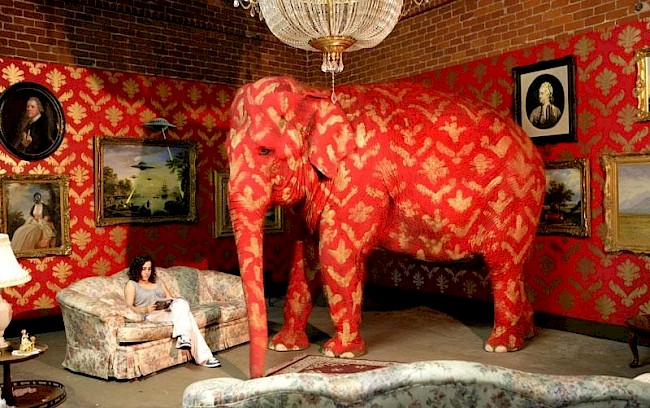
The elephant in the room is huge, but quiet. It is so taken for granted that it melts into the tapestry. Nobody in the room notes its presence. Though disregarded, it is still strikingly present, a massive force that people must walk around if they wish to move within the room.
The metaphor of this troubling pachyderm, of course, is well known and widely used (see, for example, Krueger 2017; Thomas 2016). The figurative elephant in the room alludes to issues that seem obvious, but are so disturbing that they are actively ignored or put aside to ensure business as usual. In our view, the resulting spectrum of ignorance goes from voluntary blindness to the point where, hidden in plain sight, the obvious and disturbing issues may actuallynot be known by some of the protagonists.
In this think piece, which accompanies our special section on the problem of classification in ethnography, we suggest that matters of classification, categorization, and typology in all of their shades constitute an ‘elephant in the room’ of ethnographic field research and writing, both an obvious and invisible part of our anthropological epistemology. We decided to use the metaphor of the elephant in the room to guide us in this text, as we address questions of methodology, positionality, epistemology, and representation in ways we deem heuristic.
Schramm, K., Beaudevin, C., 2019. Sorting, typing, classifying: The elephants in our ethnographic rooms. MAT 6, 276–290. - Tchokothe, Rémi Armand: "Kiswahili literature in crisis"Hide
-
The substantial number of Kiswahili prose works published since the 1990s and the growing interest in their analysis play down some drawbacks that make Kiswahili literature vulnerable. Contrary to the usual celebrations of these texts, this article presents the other side of the coin, which suggests a potential crisis in Kiswahili literature. The article begins with Obi Wali’s plea for African literatures to be written in African languages, before narrowing it down to Kiswahili literature. The article shows that although writers in Kiswahili have between the 1970s and the 1990s qualitatively as well as quantitatively responded to Wali’s call, one needs to critically assess works published since the end of the 1990s and especially since the early 2000s. One needs to reconsider the question posed by Matundura: ‘what ails Kiswahili literature?’ This article explores the following challenges facing Kiswahili literature: authorial (im)posture and the ‘death of the critic’; ‘felicitous borrowings’; the demise of editing and the school book race and writers in Kiswahili; and Western midwives and disconnected readers.
Tchokothe, R.A., 2020. Kiswahili literature in crisis. South African Journal of African Languages 40, 1–10. https://doi.org/10.1080/02572117.2019.1672338 - Tchokothe, Rémi Armand: "A European border in Africa"Hide
-
A cursory glance at the world map would sug-gest the Comoros, an archipelago in the In-dian Ocean consisting of four main islands, forms a single geographical unit. But a very eventful his-tory, shaped in many respects by colonialism, has led to the fact that its political, social, and cultural conditions today are very complicated.
A European Border in Africa : the Comoros in the focus of literary criticism. In: Spektrum. Vol. 15/2 (November 2019). - S. 78-82.
- Tchokothe, Rémi Armand: "Swahili as a medium of decolonization"Hide
-
Swahili as a medium of decolonization. In: Spektrum. Vol. 15/2 (November 2019). - S. 78-82.
- Vierke, Clarissa: "Other Worlds: The “Prophet’s Ascension” as World Literature and its Adaptation in Swahili-speaking East...Hide
-
Vierke, Clarissa: "Other Worlds: The “Prophet’s Ascension” as World Literature and its Adaptation in Swahili-speaking East Africa"
World literature as a study beyond paradigms of national literature is a seemingly open project inviting to study any transnational or transcontinental circulation of texts. So far, however, in many studies, circulation has largely been measured by a text’s contribution to the Western literary reservoir. In this contribution, my aim is to broaden the view on world literature by leaving the West as point of temporal, spatial or intertextual reference. I will open up another perspective on the circulation of texts across space, time and languages in a “world” outside of the West. More specifically, I will take the example of a ramified Islamic text, the so-called micrāj, the story of how the Prophet Muhammad travelled the heavens in one night. After outlining its broad circulation, I will follow the story of the Prophet’s ascension to the Swahili-speaking coast of East Africa at the shore of the Indian Ocean. By reversing the perspective and focusing on the “small” Swahili literature, into which the Islamic narrative becomes adapted, my contribution does not only study different adaptations, but also questions the novelty and uniqueness of transnational and -continental circulation, often celebrated as a product of Western modern times and its new outlook on both the nation and the world.
2019. Other Worlds: The “Prophet’s Ascension” as World Literature and its Adaptation in Swahili-speaking East Africa. In: Dieter Lamping, Galin Tihanov and Matthias Bortmuth (eds.): Vergleichende Weltliteraturen / Comparative World Literatures. Stuttgart: Metzler 215-229.
- Hide
2019 - III
- Alber, Erdmute ; Martin, Jeannett: "Multiplicities of Kinship and Family in Africa"Hide
-
In: Ross, Friso ; Treichel, Stephanie ; Lutz, Ronald (ed.): Sozialarbeit des Südens. Band 7. Family Structures in Change - Challenges of Transitional Phenomena. - Oldenburg : Paulo Freire Verlag , 2019 . - pp. 17-35 . - (Internationale Sozialarbeit ; 7 )
ISBN 978-3-86585-915-0 - Arndt, Susan; Assa, Shirin: "Kolonialismus und Moderne: Konzepte des Transnationalen aus postkolonialer Perspektive"Hide
-
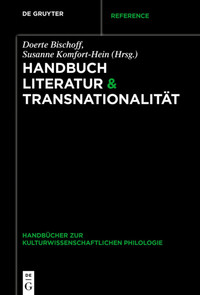
Das Verhältnis von Literatur und Transnationalität ist bislang vornehmlich in Einzelstudien thematisiert worden. Das Handbuch führt erstmals systematisch und historisch die aktuell diskutierten Forschungsperspektiven und den in verschiedener Hinsicht erprobten besonderen Erkenntniswert des Begriffs der Transnationalität– etwa gegenüber Internationalität und Transkulturalität – für die kulturwissenschaftlich fundierte Literaturforschung zusammen. In einer Vielzahl von Beiträgen zu theoretischen Grundlagen und methodischen Konzepten dokumentiert der Band, dass die Konjunktur des Begriffs – in Soziologie, Ökonomie, Politik- und Geschichtswissenschaft, Migrations- und Urbanitätsforschung – mittlerweile auch die Literaturwissenschaften erreicht und ein interdisziplinär äußerst produktives Forschungsfeld eröffnet hat. Überblicksdarstellungen und Einzelanalysen reflektieren Wirkmächtigkeit und Grenzen nationalliterarischer Kategorisierung in Literaturen der Gegenwart wie in historischer Perspektive und führen exemplarisch Formen und Verfahren transnationaler Literatur vor.
Arndt, Susan und Shirin Assa. “Kolonialismus und Moderne. Konzepte des Transnationalen aus postkolonialer Perspektive.“ Handbuch Literatur und Transnationalität. Ed. by Doerte Bischof & Susanne Komfort-Hein. Reihe "Handbücher zur kulturwissenschaftlichen Philologie" ed. by von Claudia Benthien, Ethel Matala de Mazza & Uwe Wirth. Berlin: De Gruyter Verlag: 351-365
- Arndt, Susan: "The Ethics of (Lacking) Responsibility in the Humanities"Hide
-
Arndt, Susan: "The Ethics of (Lacking) Responsibility in the Humanities: A Comment on Will Bridges’s “A Brief History of the Inhumanities”
The humanities have had a frustrating share in the inhumanities committed in the name of humanism. Scientific racism and African studies as kith and kin of colonialism and Maafa are just the tip of the iceberg. We need to revisit this history critically and with visions of what the new humanities should look like. In doing so, unlike Bridges, the article acknowledges the rich efforts of “critical humanities” as displayed within gender, postcolonial, disability, and posthuman studies. Thus framed, the article will delve into a genealogical rereading of Western humanism and its humanities that bridges antiquity, the Middle Ages, the Renaissance, Enlightenment, and the longevity of the futures thereof. In doing so, it will focus on the entanglement of humanism/humanity and colonialism/racism, while starting off from a posthumanist complication of the culture/nature divide.
Susan Arndt, "The Ethics of (Lacking) Responsibility in the Humanities: A Comment on Will Bridges’s “A Brief History of the Inhumanities”," History of Humanities 4, no. 1 (Spring 2019): 27-39.
- Beisel, Uli: The Release of Genetically Engineered Mosquitoes in Burkina FasoHide
-
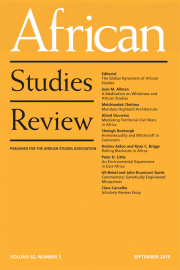
This commentary discusses the current release of genetically engineered mosquitoes in Burkina Faso as part of malaria control interventions. We explore three key issues relating to the releases, namely firstly the question if the scientific intervention is safe and sound, secondly if public engagement measure were genuine and sufficient, and thirdly the question of how the biotechnical innovation relates to other malaria control interventions. We close with some reflections on trust in biomedicine and how this can be fostered in processes of biomedical trials on the African continent.
- Daniel, Antje; Neubert, Dieter: "Civil society and social movements: conceptual insights and challenges in African contexts"Hide
-
The debate on different forms of political mobilization and self-organization in Africa refers to the established concepts of civil society and social movements. Knowing that the majority of studies on civil society and social movements focus on the Global North, we ask whether these concepts may be applied to Africa. We need to consider different forms of self-organization and the potential limits of the concepts. At the same time, ‘unusual cases’ from Africa may help us to sharpen our understanding of the concepts and to explore their analytical range and borders. This applies particularly to the observation that the terms civil society and social movement are often used interchangeably, which ignores the existing differences between the concepts. Therefore, we first consider their different perspectives: A study of civil society analyses the features of associations in a public sphere or arena and their role in politics and society. A study of social movements looks at processes of mobilization and action. Second, we point out the normative implications of the two concepts, especially with regard to liberal democracy, degree of politicization and relation to violence.
Antje Daniel & Dieter Neubert 2019: Civil Society and Social Movements: Conceptual Insights and Challenges in African Contexts. Critical African Studies. Online first.
- Drescher, Martina: "Between Ignorance and Knowledge: Posters as Medium in HIV/AIDS Campaigns in Francophone Africa"Hide
-
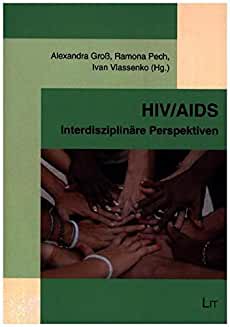
Drescher, Martina (2019): Between Ignorance and Knowledge: Posters as Medium in HIV/AIDS Campaigns in Francophone Africa. In: Groß, Alexandra / Pech, Ramona / Vlassenko, Ivan (Hg.): HIV/AIDS. Interdisziplinäre Perspektiven. Münster: Lit Verlag, 149-184.
- Fendler, Ute; Fink, Katharina; Siegert, Nadine; Vierke, Ulf (ed.): Revolution 3.0 - Iconographies of Radical Change.Hide
-
From the visual politics of the FRELIMO-liberation script in Mozambique via the brooms and spoons of Le Balai Citoyen in Burkina Faso, to the updating of images from past revolutions on Twitter and Facebook, often in the diaspora – images play a key role in the envisioning of futures and social utopia. And more than that: Revolutions, understood as moments of radical social and cultural change, are driven by images, as empirical investigations on- and offline show. But what actually constitutes the ‘seismographic power’ of images, and the sustainability of icons from past ruptures in terms of radicalism, such as the portraits of Burkina Faso’s and Mozambiques first presidents‚ Thomas Sankara and Samora Machel? What possibilities do images offer – and what is cut and edited in the process of creating a ‘new’ image? How do the visual tactics of analogue and digital protesters alike constitute, alter and create visual and multi-media archives?
This book brings together a wide range of papers by international researchers and artists focusing on the relationship of images and revolution mostly in the African context. Images in various artistic media such as photography, art in public space, performance, fashion are discussed, but also the relation of visual culture and politics in Mozambique, Angola and Burkina Faso among others. - Fendler, Ute: "Icons of Political Leaders - from Sacral to Popular Images"Hide
-
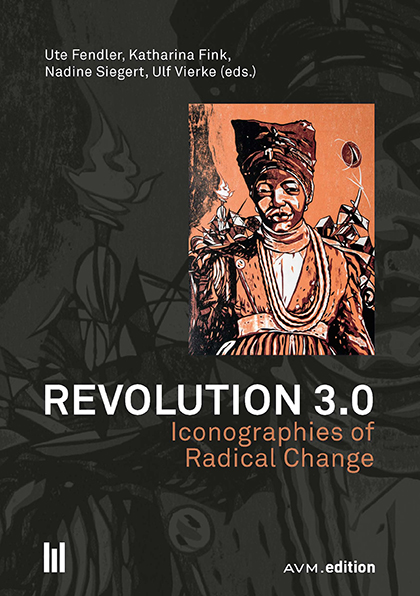
In: Fendler, Ute ; Fink, Katharina ; Siegert, Nadine ; Vierke, Ulf (ed.): Revolution 3.0 : Iconographies of Radical Change. - München : AVM Edition , 2019 . - pp. 34-51
ISBN 978-3-95477-090-8 - Fendler, Ute: "Responding to Onejoon Che. The monument “Renaissance d’Afrique"Hide
-

In: Fendler, Ute ; Fink, Katharina ; Siegert, Nadine ; Vierke, Ulf (ed.): Revolution 3.0 : Iconographies of Radical Change. - München : AVM Edition , 2019 . - pp. 192-207
ISBN 978-3-95477-090-8 - Gruber, Valerie V. V.: "Relational Geographies of Afro-Brazilian Identities : What Can We Learn from the Candeal ...Hide
-
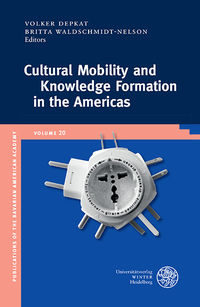
Gruber, Valerie: "Relational Geographies of Afro-Brazilian Identities : What Can We Learn from the Candeal Neighborhood in Salvador Da Bahia (Brazil)?"
In: Depkat, Volker ; Waldschmidt-Nelson, Britta ; Falk, Jasmin (ed.): Cultural Mobility and Knowledge Formation in the Americas. - Heidelberg : Universitätsverlag Winter , 2019 . - pp. 95-119 . - (Publikationen der Bayerischen Amerika-Akademie ; 20 )
ISBN 978-3-8253-6948-4 - Haferburg, Christoph; Rothfuss, Eberhard: Relational UrbanityHide
-
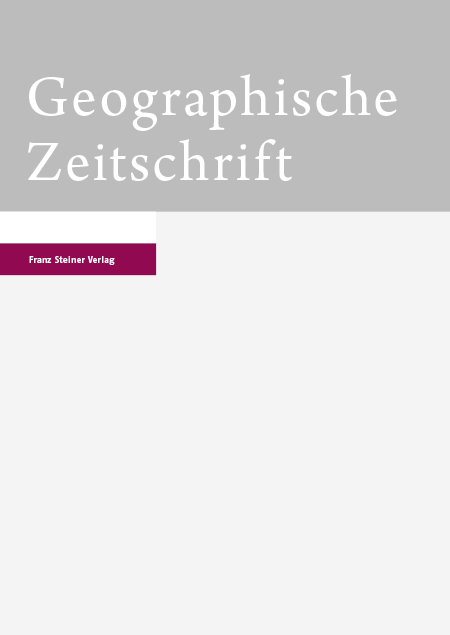
Current debates in urban studies are questioning the theoretical and empirical adequacy of the term city for understanding urban dynamics, North and South. A related concern is the arbitrariness of delimitations of expanding, interwoven and hyper-connected agglomerations. Established regionalizations of urban areas or cities are thus fading away in more than one sense, demanding conceptual and methodological consequences. Building on these debates, the paper stresses the relevance of societal or socio-spatial dimensions of urbanity. The need to contextualize them across scales finds its expression in the term global urban society. Taking this idea further, we propose a research programme centred on a conceptual and empirical investigation of a relational urbanity.
Haferburg, Christoph; Rothfuss, Eberhard, Relational Urbanity: Perspectives of a Global Urban Society beyond Universalism and Localism Relationale Urbanität: Perspektiven einer globalen urbanen Gesellschaft jenseits von Universalismus und Lokalismus, Geographische Zeitschrift, Volume 107, Number 3, July 2019, pp. 166-187(22).
- Katsakioris, Constantin: The Lumumba University in Moscow: higher education for a Soviet–Third World alliance, 1960–91Hide
-
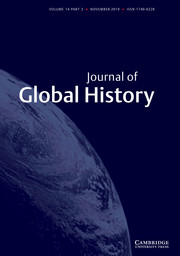
Founded in Moscow in 1960 for students from Third World countries, the Peoples’ Friendship University ‘Patrice Lumumba’ was the most important venture in international higher education during the Cold War and a flagship of Soviet internationalism. It aimed to educate a Soviet-friendly intelligentsia and foster a Soviet–Third World alliance. This article retraces the history of this school, often criticized for its Third World concept, recruitment, and training policies. It recalls the forgotten French initiative to create a university for the underdeveloped countries, situates Lumumba University in the global Cold War, and compares it with mainstream Soviet schools. Soon after its creation, Lumumba University underwent important changes, but departed from its initial educational concept. Consequently, arguments justifying the existence of a special university disappeared. Third World countries, moreover, never agreed with the university’s concept. Despite its educational accomplishments, Lumumba University became the Achilles’ heel of Soviet cultural policy.
- Maurus, Sabrina: "Rethinking the 'Global Good' of Compulsory Schooling : Combining Young People's Education and Work ...Hide
-
Maurus, Sabrina:
Rethinking the 'Global Good' of Compulsory Schooling : Combining Young People's Education and Work for Making a Future in South-West Ethiopia.
In: Clemens, Iris ; Hornberg, Sabine ; Rieckmann, Marco (Hrsg.): Bildung und Erziehung im Kontext globaler Transformationen. - Opladen, Berlin, Toronto : Barbara Budrich , 2019 . - S. 141-152 . - (Schriftenreihe: "Ökologie und Erziehungswissenschaft" der Kommission Bildung für nachhaltige Entwicklung der Deutschen Gesellschaft für Erziehungswissenschaft (DGfE) ) - Netz, Sabine; Lempp Sarah, Krause Kristine and Schramm Katharina, eds. Special Issue Citizenship Studies 23 (7).Hide
-
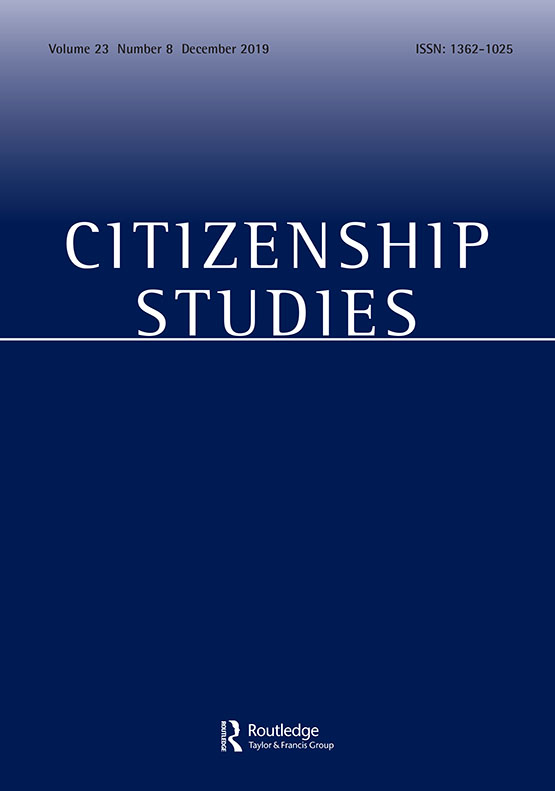
What have affirmative action policies, categorization of care needs, plastic surgery, forensic identification of dead bodies and age assessments of refugees in common? They all determine recognition and access to resources and rights via the body. In the introduction to this special issue, the editors emphasize that the body only becomes distinct and significant when it is put in relation to historically and geographically differing norms and standards. This relational approach opens up the ‘black boxes’ of science, medicine, bureaucracy and eventually the body. Drawing on practice theory, critical citizenship studies and Science and Technology Studies, the authors discuss notions of social citizenship and the conceptualization of biological citizenship in medical anthropology. They think with the contributions of the special issue that analyse how medical practitioners, state and private institutions, as well as individuals enact certain bodies in specific material and discursive constellations. By taking neither citizenship nor the body for granted, the special issue shows how situationally-bound elements in relations, space and time, matter for a person’s access to rights and resources – and hence can draw attention to blind spots in particular categorization practices.
Sabine Netz, Sarah Lempp, Kristine Krause and Katharina Schramm, eds. (2019): Special Issue „Claiming Citizenship Rights through the Body Multiple“. Citizenship Studies 23 (7).
- Neubert, Dieter: "What We Can Learn from the Fading Myth of the (African) “Middle Class” "Hide
-

Less than ten years ago we observed a kind of media hype over the “new” middle class in Asia, Latin America, and Africa. This was considered as a large new group of consumers and the most optimistic researchers underlined that they would also be the backbone of a new global movement towards democracy and good governance (Birdsall 2016). Indeed, income figures justify the idea that there is a growing group of people who have climbed above the US $2.00 per capita/day poverty line. And in Asia and Latin America a considerable part of the population has a per capita income of ten or even twenty US dollars a day. In times of growing critique in post-development and post-colonial studies of development policy, including critique of the concept of “development” itself, this global middle class seems to verify the success of the concept of economic development and economic growth.
Dieter Neubert 2019: What we can learn from the fading myth of the (African) “middle class”. Global-E September 17, 2019, Volume12, Issue 40
- Neubert, Dieter: "Nation, Ethnicity, Milieus, and Multiple “We’s”. The Case of Kenya"Hide
-
The title of the volume “Future Africa—beyond the nation?” has several implications. Nation is presented as an entity relevant to identification and identity; and in the combination with “future”, nation implies a political vision. It is not hard to find good examples in respect of these implications. However, there are other entities important for to political identification. Often, they do not go beyond the nation but refer to smaller collective identities, such as ethnicity. The revived debate on “the middle class” implies that particular social groupings, such as class, may play a role, too. The question is how relevant are the nation and other collective political identities in Africa, and are they exclusive? Looking at the case of Kenya, we see on the one hand that collective (political) identities, such as ethnicity, are mobilized especially during elections. On the other hand, these collective identities are less dominant in everyday life and give way to different conducts of life (conceptualized as “milieus”) that are less politicized. We see people maneuvering between multiple “we’s”. Strong political identities are mobilized only in particular conflict-loaded situations that restructure identities in simple binary oppositions of “we” and “they”.
Dieter Neubert 2019: Nation, ethnicity, milieus and multiple “we’s”. The case of Kenya. Humanities 19, (8) 3, special issue “Beyond the nation”.
- Tchokothe, Rémi Armand: "Archiving Collective Memories and (Dis)owning"Hide
-
This paper investigates the question of ownership of collective memories in the age of digitized archiving. The United Nations Educational, Scientific and Cultural Organization’s (henceforth Unesco) philosophy of preserving the world cultural heritage has boosted research on African oral literatures. The emphasis on the documentation of endangered cultures of Africa is salutary but also raises some critical questions. The central question this contribution addresses is that of the authorship-ownership of cultural heritage that is being archived in the framework of digital humanities. In essence, the notion of “collective memories” entails that of collective authorship and collective belonging as these memories are passed on from one generation to the other without the claim of singular ownership. A significant example in this line of thought has been the observation by the cultural giant Amadou Hampâté Bâ who ironically pointed out that the real author of The Fortunes of Wangrin (1973), which is attributed to him, is actually the storyteller Wangrin – the cunning interpreter – and members of the whole literary tradition that Wangrin embodied. In the preface of a recently published volume on La question de l’auteur en littératures africaines (Jérôme Roger 2015: 16) the author asks the following pertinent question: how can African literature, both oral and others, invite scholars to rethink the relationship between the anonymity of sources, versions and variants of stories and the constraint for an author’s name imposed by editors? The question has more weight in view of the massive digitization of African oral literatures that mostly takes place in institutions with more economic prestige and which are located outside the African continent. Therefore, the interrogation centres on the role of power with regard to the form in which these (hi)stories are published, where, how and to whom they are accessible, and to the habit of researchers to name people from whom they receive the bulk of knowledge which they transcribe and translate into the academic jargon “informants” instead of giving them more credit by referring to them as research partners or even by recognising them as co-authors. In this vein, the paper rounds up by exploring the possibility of reversing the customary auctorial perspective by bringing into the discussion the idea of “researchers as griots” suggested by (Merolla, Ameka & Dorvlo 2013).
Tchokothe, R.A., 2019. Archiving Collective Memories and (Dis)owning. AF 32. https://doi.org/10.21825/af.v32i1.11792 - Tchokothe, Rémi Armand: "Le camfranglais et la camerounité diasporique relationnelle en Allemagne"Hide
-
Le camfranglais est cette langue hybride issue du contact entre les langues autochtones camerounaises, le français, l’anglais, le pidgin-English et même les langues immigrées parlées au Cameroun. Si plusieurs études ont analysé la situation de cette langue au Cameroun, ce livre est le tout premier qui se propose d’analyser de manière systématique les pratiques langagières des camfranglophones en contexte diasporique. Il explore les nouveaux espaces du camfranglais en focalisant l’attention sur les principaux pays d’immigration des Camerounais en Occident, ainsi que sur les zones fufuldéphone et anglophone du Cameroun. Les auteurs analysent les pistes interprétatives qui sous-tendent l’émergence du camfranglais hors des frontières du Cameroun, mais aussi dans les réseaux sociaux enrichis par les discours électroniques, à travers une démarche interdisciplinaire qui embrasse aussi bien la sémiotique et l’ethnologie, que la sociolinguistique de l’immigration et de la globalisation.Un ouvrage novateur sur la dynamique sociolinguistique en Afrique
Siebetcheu, R. (Ed.), 2019. Le camfranglais dans le monde global: contextes migratoires et perspectives sociolinguistiques. L’Harmattan, Paris. - Zoanni, Tyler: “Appearances of Disability and Christianity in Uganda” Hide
-
This article considers how Christianity contributes to the appearance of cognitive disability in Uganda, a country with some of the most progressive disability policies in the world but little in the way of formal care and advocacy for cognitively disabled people. As a point of departure, the article invokes Hannah Arendt’s notion of appearance as a way to thematize the importance of public display in Ugandan social life, as well as the challenge that people with evidently profound disabilities pose to Ugandan social aesthetics. It first traces how cognitive disability disappears under the liberal logics that organize Uganda’s secular disability laws and activism, and then compares the ways that Catholic and Pentecostal efforts sustain the appearance of cognitive disability, in light of their theological differences and their common paternalism. Even as Christian paternalism in the face of cognitive disability may prove repugnant to a liberal vision of disability politics, I argue that it sustains a form of disability appearance otherwise not possible in Uganda.
Zoanni, T., 2019. Appearances of Disability and Christianity in Uganda. Cult. Anthropol. 34. - Zoanni, Tyler: "Population (What is It Good For?) "Hide
-
We invoke the anti-Vietnam War song "War" because a spirit of urgency—not unlike the song's own—animates contemporary reflections on population as a global problem.1 The spirit of defiance found in that song also appears in some of the books we review here: three slim volumes that raise questions about the uses and abuses of the notion of population. This notion does much work in contemporary economic and development policy, as well as in debates about migration to the EU and the US. It creeps up in nationalist ideas about safeguarding the imagined roots of many Euro-American societies, and it is the centerpiece of dystopic visions of out-of-control numbers that endanger the entire planet.
Calkins, S., Zoanni, T., 2019. Population (What is It Good For?). Anthropological Quarterly 92, 919–929.
2019 - II
- Arndt, Susan: "Vorwort zur Gründung der Buchreihe Transkulturelle Literaturstudien."Hide
-
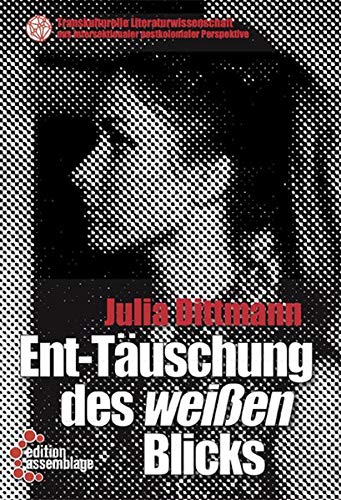
Das Buch 'Ent-Täuschung des weißen Blicks. Rassismussensible Strategien für eine ideologiekritische Filmanalyse' ist ein Handbuch für alle, die Rassismus in Filmen identifizieren und dekonstruieren möchten. Durch die Re-Lektüre des Ursprungstextes der feministischen Filmtheorie wird die Grammatik rassifizierter Repräsentation, die bislang vor allem von Schwarzen Theoretiker_innen in verschiedenen Einzelwerken erarbeitet wurde, zusammengeführt und systematisiert.
Für diese Systematisierung liest Julia Dittmann den Ursprungstext der feministischen Filmtheorie 'Visual Pleasure and Narrative Cinema' von Laura Mulvey mit einer spezifizierten Lesart des symbolischen Phallus nach Lacan und weitet Mulveys gendersensiblen Analyseansatz zu einer diversitätssensiblen Analysemöglichkeit von Filmtexten aus. Die als Fazit entstehende und einfach zu handhabende Analysematrix fokussiert rassismussensible Strategien für eine ideologiekritische Filmanalyse.
Zur Entwicklung dieser Analysematrix wird die in okzidentale Mainstream-Spielfilme eingeschriebene Ideologie des Rassismus anhand der Blockbuster Eine Weiße unter Kannibalen (D 1921), Geschichte einer Nonne (USA 1959), Jenseits von Afrika (USA 1986) und Die weiße Massai (D 2005) offengelegt und inszenatorische Gegenstrategien anhand des Third Cinema-Klassikers La Noire de. (Kamerun/Fr 1966) von Ousmane Sembène aufgezeigt.
Arndt, Susan. „Vorwort zur Gründung der Buchreihe Transkulturelle Literaturstudien.“ in: Dittmann, Julia. Die Enttäuschung des weißen Blicks. Rassismussensible Strategien für eine ideologiekritische Filmanalyse. Münster: edition assemblage: 1-24
- Clemens, Iris; Biswas, Tanushree: "Rethinking education in times of globalization – but where to start the rethinking?"Hide
-
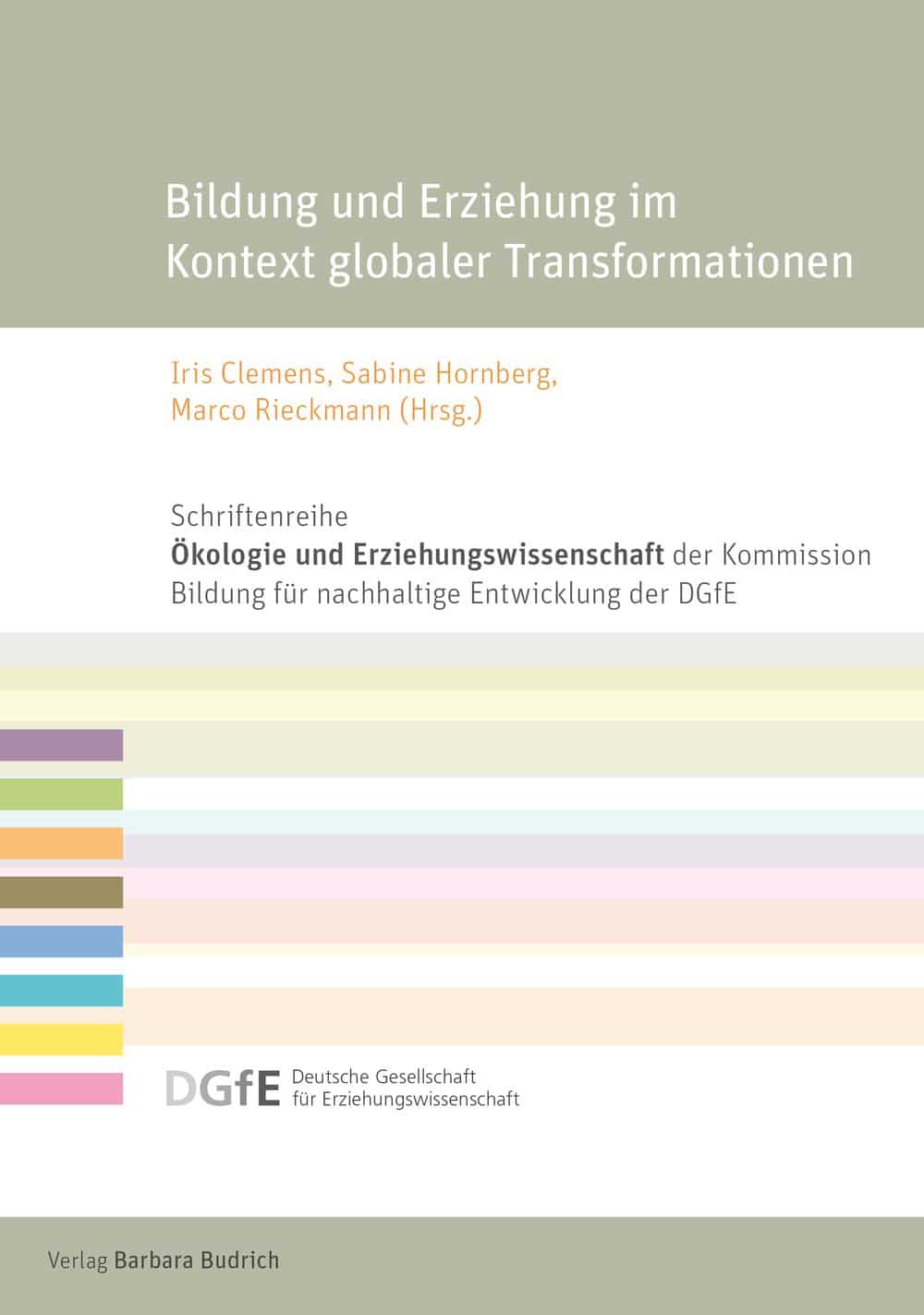
Dysfunctionality of education – or to be more precise time spent in institutions meant to be installed for the purpose of education – is a problem that attracts attention globally. Apparently reports and studies show that in many contexts, not only due to bad conditions such as lack of facilities, absence of teachers (Abadzi 2009; De and Dreze 1999; De et al. 2011) etc., but also because of the inadequate form and content of education, children leave school after years of boredom and helpless disciplinary actions without the ability to read, write and/or be able to contribute a meaningful share to their community (Jeffrey et. al. 2004, 2005; Pillai 2013). Contrary, the socialisation in these institutions can alienate the young community members from their community and leave them without any competencies, be it for subsistence economy on the one hand or white-collar employment in global economy on the other (ibid.). Beside this urgent need for transformations in the given educational sector, it seems to be very difficult if not impossible to even think of alternative forms of education that are substantially different to the hegemonic concept of education found globally. In the following pages, we analyse more detailed the underlying concept of universal education and why thinking of alternative ways in education is so difficult, but urgent. Our assumption is that the very idea of singularity is part of the problem.
In: Clemens, Iris ; Hornberg, Sabine ; Rieckmann, Marco (ed.): Bildung und Erziehung im Kontext globaler Transformationen. - Berlin : Verlag Barbara Budrich , 2019 . - pp. 237-250 . - (Schriftenreihe: "Ökologie und Erziehungswissenschaft" der Kommission Bildung für nachhaltige Entwicklung der Deutschen Gesellschaft für Erziehungswissenschaft (DGfE) )
- Drescher, Martina: S’il vous plaît pardon patriarche. Pragmatème ou marqueur de discours?Hide
-
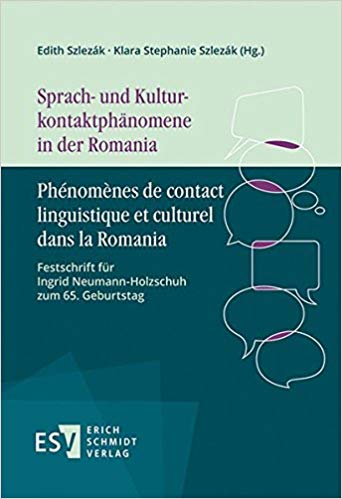
Dieses Buch widmet sich sowohl den Herausforderungen als auch den Chancen, die sich in sprachlichen und kulturellen Kontaktsituationen ergeben. Der Band versammelt eine große Vielfalt an Beiträgen, die eben diese Phänomene unter den unterschiedlichsten Gesichtspunkten in diversen Sprachgebieten der Romania beleuchten.
Nicht nur werden darin Brücken in die Vergangenheit geschlagen, die dabei helfen, heutige sprachinterne sowie sprachexterne Phänomene zu verstehen. Es werden ferner phonetische, lexikalische, morphosyntaktische, pragmatische und soziolinguistische Spezifika sowohl der frankokanadischen Varietäten in Kanada und den USA als auch verschiedener Kreolsprachen näher betrachtet.Martina Drescher (2019): S’il vous plaît pardon patriarche. Pragmatème ou marqueur de discours ? Quelques emplois de pardon dans les français africains. In: Szlezák, Edith / Szlezák, Klara Stephanie (Hg.): Sprach- und Kulturkontaktphänomene in der Romania / Phénomènes de contact linguistique et culturel dans la Romania. Festschrift für Ingrid Neumann-Holzschuh zum 65. Geburtstag. Berlin: E. Schmidt Verlag.
In: Szlezák, Edith / Szlezák, Klara Stephanie (Hg.): Sprach- und Kulturkontaktphänomene in der Romania / Phénomènes de contact linguistique et culturel dans la Romania. Festschrift für Ingrid Neumann-Holzschuh zum 65. Geburtstag. Berlin: E. Schmidt Verlag, 297-326.
- Essien, Etido ; Samimi, Cyrus: "Detection of Urban Development in Uyo (Nigeria) Using Remote Sensing."Hide
-

Uyo is one of the fastest-growing cities in Nigeria. In recent years, there has been a widespread change in land use, yet to date, there is no thorough mapping of vegetation change across the area. This study focuses on land use change, urban development, and the driving forces behind natural vegetation loss in Uyo. Based on time series Landsat Thematic Mapper (TM)/Enhanced Thematic Mapper Plus (ETM+)/Operational Land Imager (OLI) image data, the relationships between urban land development and its influencing factors from 1985 to 2018 were analyzed using remote sensing (RS) and time series data. The results show eight land use cover classes. Three of these (forest, swamp vegetation, and mixed vegetation) are related to natural vegetation, and three (sparse built-up, dense built-up, and borrow pit) are direct consequences of urban infrastructure development changes to the landscape. Swamp vegetation, mixed vegetation, and forest are the most affected land use classes. Thus, the rapid growth of infrastructure and industrial centers and the rural and urban mobility of labor have resulted in an increased growth of built-up land. Additionally, the growth pattern of built-up land in Uyo corresponds with socioeconomic interviews conducted in the area. Land use changes in Uyo could be attributed to changes in economic structure, urbanization through infrastructure development, and population growth. Normalized difference vegetation index (NDVI) analysis shows a trend of decreasing vegetation in Uyo, which suggests that changes in economic structure represent a key driver of vegetation loss. Furthermore, the implementation of scientific and national policies by government agencies directed at reducing the effects of urbanization growth should be strengthened, in order to calm the disagreement between urban developers and environmental managers and promote sustainable land use.
Essien, E., Cyrus, S., 2019. Detection of Urban Development in Uyo (Nigeria) Using Remote Sensing. Land 8, 102. https://doi.org/10.3390/land8060102 - Grillo, Laura S.; Van Klinken, Adriaan; Ndzovu, Hassan J.: "Religions in Contemporary AfricaHide
-
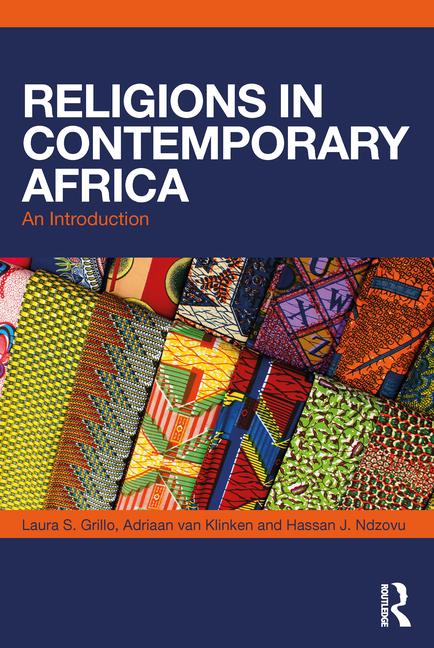
Religions in Contemporary Africa is an accessible and comprehensive introduction to the three main religious traditions on the African continent, African indigenous religions, Christianity and Islam. The book provides a historical overview of these important traditions and focuses on the roles they play in African societies today. It includes social, cultural and political case studies from across the continent on the following topical issues:
- Witchcraft and modernity
- Power and politics
- Conflict and peace
- Media and popular culture
- Development
- Human rights
- Illness and health
- Gender and sexuality
Grillo, L.S., Ndzovu, H.J., Van Klinken, A.S., 2019. Religions in contemporary Africa: an introduction. Routledge, New York, NY. - Koddenbrock, K.: "Geld, Weltmarkt und monetäre Dependenz: Was uns die Franc CFA Zone über kapitalistisches Geld sagt"Hide
-
Die Franc-CFA-Währung ist in Europa außerhalb Frankreichs weitgehend unbekannt. Sie wird jedoch, streng an den Euro gebunden, seit 1945 von den meisten ehemaligen französischen Kolonien genutzt und von Frankreich aus mitgesteuert. Der vorliegende Aufsatz analysiert den Franc CFA als besonders restriktives Währungsarrangement, das die Funktionsweise kapitalistischen Geldes und die aus ihm resultierenden Struktur monetärer Dependenz erhellen hilft. Alle Länder unterliegen auf dem Weltmarkt den Restriktionen, die kapitalistisches Geld als Ware und Kredit-Schuldbeziehung ausübt. Länder des Globalen Südens werden in ihrem Handlungsspielraum eingeschränkt, zielgerichtete Politik wird durch Abhängigkeit von Euro und US-Dollar erschwert. Die besonders restriktiven Mechanismen des Franc CFA radikalisieren diese monetäre Dependenz und werden in diesem Aufsatz theoretisch gefasst, um eine genuin globale politische Ökonomie des Geldes zu entwickeln.
Koddenbrock, K (2019b) Geld, Weltmarkt und monetäre Dependenz: Was uns die Franc CFA Zone über kapitalistisches Geld sagt, PROKLA, 49 (194), 137-156.
- Ouma, Stefan: "Africapitalism : A Critical Genealogy and Assessment"Hide
-
Abstract of the book:
Using theory, empirical research, and case studies, this book explores the changing nature of business in Africa and how businesses can actively contribute to the development of Africa. It uses (and critically analyses) the concept of Africapitalism – a management philosophy and movement which seeks to blend the best of African values and Western management theories as a basis for sustainable development in Africa – to understand the subtle factors that underpin business decisions in Africa.
The collection of chapters in this book are organized around actors, issues, and reflections. They collectively present an account of Africapitalism, albeit from different perspectives and on different issues, and open up a new space for rethinking business and society relations in Africa from an Africapitalism perspective. Crucial is the critical engagement with both the discourse and practice of Africapitalism and its implications for sustainable development. It is anticipated that the challenges and opportunities highlighted by the book would be embraced by researchers, policy makers, and practitioners in the broad area of business and society in Africa.
This multidisciplinary book will be valuable reading for advanced students, researchers and policymakers looking at business in society; corporate social responsibility; sustainable business; international business and African development.
Stefan Ouma: Africapitalism : A Critical Genealogy and Assessment. In: Kenneth Amaeshi, Uwafiokun Idemudia, Adun Okupe (Hrsg.): Africapitalism : Sustainable Business and Sustainable Development in Africa. - London : Taylor & Francis, 2019. - S. 144-157.
- Schramm, Katharina; Krause, Kristine; Valley, Greer: "Voice, Noise and Silence: Resonances of Political Subjectivities“Hide
-
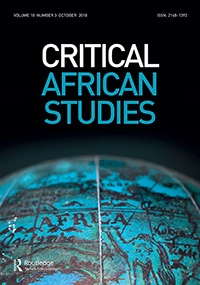
Katharina Schramm, Kristine Krause and Greer Valley (2019): Voice, Noise and Silence: Resonances of Political Subjectivities“. Critical African Studies 10 (3): 245-256.
- Schramm, Katharina; Siegert, Nadine: "Handle with Care: Post_Colonial Object Matters"Hide
-
The zine "Handle with Care: Post_Colonial Object Matters" is the product of cross-cutting conversations. Designed as an open invitation to think further about post_colonial object_matters, it conjoins contributions from participants of a workshop on “un_doing post_colonial knowledges: perspectives from academia_arts_activism” which was held at the University of Bayreuth/Germany in July 2019, that was organised by Manuela Bauche (FU Berlin), Katharina Schramm (Univ. of Bayreuth) and Nadine Siegert (iwalewabooks).
Building on current discussions about the colonial legacies and the decolonial responsibilities of ethnographic museums, we wanted to explore the possible futures of objects marked by colonial relations of power and knowledge(s). We sought to shift the grounds of the debate from institutional concerns and legal aspects of restitution to more daring and wider-reaching questions. Our idea was to spark a debate around postcolonial justice that would decentralize the institutions of the European museum and university.
So we asked: What are the possibilities that can open up after an act of restitution to establish future-oriented relationships between different people, institutions and objects? How can we work with these “loaded” objects and generate a future with and for them? How can we create new platforms of welcoming these objects back on the African continent? How can we bring critical approaches from art, academic research, activism and museum practices in a fruitful dialogue with each other that works towards a responsible engagement with the colonial history and its material and immaterial traces? - Scherer, C.: "Relational Policies in Higher Education Partnership and Collaboration"Hide
-
Trends in institutional partnership in higher education have shown tremendous growth in the past three decades. These trends are manifested through the growing initiatives of joint programs that promote collaborative research, academic mobility, joint curriculum development and course delivery, joint bidding for development projects and benchmarking. Partnerships in higher education have been used not only as an instrument for institutional development through a wide range of strategic alliances but also as an essential way of introducing new voices to the operations of the universities by initiating new paradigms that bring new perspectives and bear competitive advantage on the partners. As the trend of partnership in higher education grew, scholars in higher education studies have also engaged in conceptualizing higher education partnership from academic perspectives, analyzing trends and developing models of higher education collaborations.
Partnership in Higher Education: Trends between African and European Institutions is a pioneer in bringing together a comprehensive perspective on matters of higher education partnership among African and European institutions. It discusses the ongoing debates on higher education partnership and internationalization strategies by providing empirical insights from various case studies.Scherer, C. (2019). "Relational Policies in Higher Education Partnership and Collaboration". In Partnership in Higher Education. Leiden, Niederlande: Brill | Sense.
- Stadelmann, David; Jetter, Michael; Laudage, Sabine: The intimate link between income levels and life expectancyHide
-
Unsere Ergebnisse zeigen, dass Einkommen pro Kopf allein mehr als 64 Prozent der Variation in Lebenserwartung erklärt, ein deutlich größerer Effekt als ihn bisherige Studien finden. Für quasi die gesamte Welt und seit 1800 zeigt sich, dass wirtschaftliches Wachstum eine höchst bedeutende Rolle für erhöhte Lebenserwartung spielt. Natürlich haben auch Innovationen in der Medizin die Lebensdauer von Bevölkerungen erhöht, aber in reicheren Ländern besteht eine höhere Wahrscheinlichkeit, diese Innovationen zuerst zu nutzen, weil sie diese bezahlen können. Die geringere Lebenserwartung in ärmeren Ländern scheint vor allem durch Armut der betreffenden Länder erklärt werden zu können. Insofern ist Wirtschaftswachstum ein Instrument für alle Bevölkerungsschichten, um die Lebensdauer und damit mit hoher Wahrscheinlichkeit auch die Lebensqualität der Bevölkerung zu erhöhen.
- Vierke, Clarissa: "Frau Betelpeffer und die lustvollen Stunden"Hide
-
2019. Vierke, Clarissa. Frau Betelpfeffer und die lustvollen Stunden. Die Inszenierung sinnlicher Erfahrung, Erinnerung und Erwartung in früher Swahili-Dichtung. In Lena Henningsen, Kai Wiegandt and Caspar Battegay (eds.): Gegessen? Essen und Erinnerung in den Literaturen der Welt. Berlin: Neofelis: 125-148.
- Woldegiorgis, E; Scherer, C: "Partnership in Higher Education: Trends Between African and European Institutions"Hide
-
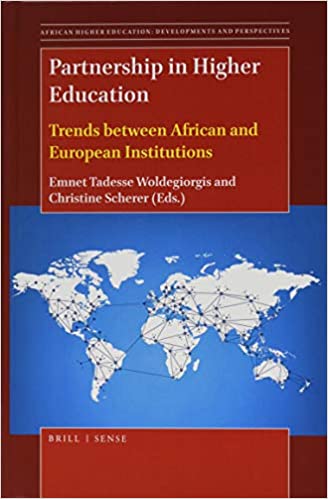
Trends in institutional partnership in higher education have shown tremendous growth in the past three decades. These trends are manifested through the growing initiatives of joint programs that promote collaborative research, academic mobility, joint curriculum development and course delivery, joint bidding for development projects and benchmarking. Partnerships in higher education have been used not only as an instrument for institutional development through a wide range of strategic alliances but also as an essential way of introducing new voices to the operations of the universities by initiating new paradigms that bring new perspectives and bear competitive advantage on the partners. As the trend of partnership in higher education grew, scholars in higher education studies have also engaged in conceptualizing higher education partnership from academic perspectives, analyzing trends and developing models of higher education collaborations.
Partnership in Higher Education: Trends between African and European Institutions is a pioneer in bringing together a comprehensive perspective on matters of higher education partnership among African and European institutions. It discusses the ongoing debates on higher education partnership and internationalization strategies by providing empirical insights from various case studies.Woldegiorgis, E., & Scherer, C. (Eds.). (2019). Partnership in Higher Education. Leiden, Niederlande: Brill | Sense
- Woldegiorgis, E.: "Higher Education Partnership in Africa".Hide
-
Trends in institutional partnership in higher education have shown tremendous growth in the past three decades. These trends are manifested through the growing initiatives of joint programs that promote collaborative research, academic mobility, joint curriculum development and course delivery, joint bidding for development projects and benchmarking. Partnerships in higher education have been used not only as an instrument for institutional development through a wide range of strategic alliances but also as an essential way of introducing new voices to the operations of the universities by initiating new paradigms that bring new perspectives and bear competitive advantage on the partners. As the trend of partnership in higher education grew, scholars in higher education studies have also engaged in conceptualizing higher education partnership from academic perspectives, analyzing trends and developing models of higher education collaborations.
Partnership in Higher Education: Trends between African and European Institutions is a pioneer in bringing together a comprehensive perspective on matters of higher education partnership among African and European institutions. It discusses the ongoing debates on higher education partnership and internationalization strategies by providing empirical insights from various case studies.Woldegiorgis, E. (2019). "Higher Education Partnership in Africa". In Partnership in Higher Education. Leiden, Niederlande: Brill | Sense.
2019 - I
- Albert, I.; Lawanson, T.: "The Urban Public Space and Religious Extremism in Northern Nigeria"Hide
-
The postcolonial history of Northern Nigeria is replete with deft cases of violent religious extremism. While some of the conflict episodes were mass-based and spontaneous such as the Sharia crises of 2000 in Kaduna, as a result of which hundreds of innocent people were killed, a few others were well organised and resulted from the activities of some charismatic religious leaders demanding a radical change of their society. This chapter is on the latter. The role of urbanism in the activities of three of such radical preachers is considered. The first is Mohammadu Marwa, the leader of the Maitatsine sect that caused hundreds of deaths in Kano and a few northern Nigerian states from 1980 to 1999. The second is Sheikh Ibrahim El-Zakzaky, the leader of the Islamic Movement of Nigerian (a group popularly known as the “Nigerian Shiites”). The third is Muhammed Yusuf, the founder of the Boko Haram sect now causing havoc in the Northeast of Nigeria, Cameroun, Chad and Niger. This chapter challenges the existing literature that presents these insurgencies as purely a religious matter. It argues that at the formative stage of the crises, the main issues had to do with the use of the urban space. In other words, the chapter tries to present the city as a site for power and resistance between the insurgents and the Nigerian state. The nature of this conflict is explained and recommendations made on their future prevention and management. In the three cases studied in this paper, the government challenged how the extremist religious leaders used the urban space and the latter reacted violently: leading to thousands of deaths and displacement of persons.
Albert. I & Lawanson. T (2019) The Urban Public Space and Religious Extremism in Northern Nigeria; in Albert. I and Lawanson. T (eds) Urban Crisis and management in Africa. Houston: Pan African University press, 564 - 582
- Clemens, Iris: Comment : Cultural Identities in Multilocal Spaces : bringing in multiplicityHide
-
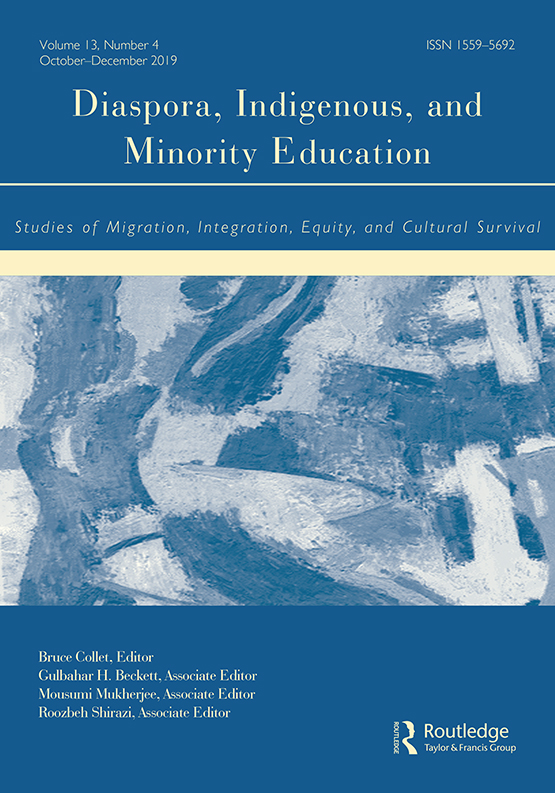
The comment emphasizes upon the trinity of identity, space and connections or relations, referring to the contributions of the special issue. This perspective is used to ask for a concept of culture capturing the relationality of the social. Following the relational approach, any social actor has many identities while moving permanently between many social figurations, as e.g. network theory (White 2008) as a theory of the betweeness points out. Accordingly, a conceptualization of multiplicity of identities is a necessary component of theoretical approaches that catch up with these insights in a general emphasis on multiplicity (e.g. of space). What becomes visible is, that to grasp the multiplicity, fluidity and dynamics as well as the interdependency of identities and spaces (multilocal or else), their relationality must be focused upon. This challenges older disparities like local-global as well. In that sense, relationality is the key to bring identities, spaces and cultures together and integrate them into one concept that is capable of describing and analysing such different experiences represented in this volume.
Clemens, Iris: Comment: Cultural Identities in Multilocal Spaces : bringing in multiplicity. In: Diaspora, Indigenous, and Minority Education: Studies of Migration, Integration, Equity, and Cultural Survival Bd. 13 (2019) Heft 1. - S. 68-72.
- Debele, S.: "Waiting as a site of subject formation: examining collective prayers by Ethiopian asylum seekers in Germany."Hide
-
In this article I look at collective payers by Ethiopian asylum seekers to explore how religious narratives are mobilized to deal with temporal angst in the context of waiting. I posit that waiting is a site of multifaceted struggles in which subjectivities are constituted, in response to both the violence waiting imposes and the anticipated freedom it carries with it. Asylum seekers confront life in waiting in various ways until they attain what they wait for and ‘settle’ in the host country. To settle is imagined as living in Europe as independent and self-reliant workers who could generate their own income which is contingent on waiting for the acceptance of their applications for asylum. Whether people attain what they wait for or not, their subjectivities are formed through a certain idea of themselves, an understanding of their situation and their practices, all of which are located within histories and structures of power relations. My analysis draws on ethnographic data generated from fieldwork conducted in 2016–2017 among Oromo asylum seekers in the city of Nuremberg, Germany.
Debele, S., 2020. Waiting as a site of subject formation: examining collective prayers by Ethiopian asylum seekers in Germany. Critical African Studies 12, 52–64. https://doi.org/10.1080/21681392.2019.1697311 - Diop, Boubacar Boris; Tchokothe, Rémi Armand:"L’Histoire est un éternel recommencement et presque toujours pour le pire"Hide
-
An interview with Boubacar Boris Diop by Rémin Armand Tchokothe in the particular circumstances of a tour on the Holocaust Museum in Nurembererg. The author of Murambi reminds of the Jewish genocide's memory compared to the genocide in Rwanda. The conversation then evokes the writer's stay at the University of Bayreuth: an opportunity to pay tribute to African studies in Germany and to speak in favour of reinforcing studies in African languages in Africa.
Tchokothe, R.A., 2018. « L’Histoire est un éternel recommencement, et presque toujours pour le pire » : entretien avec Boubacar Boris Diop. Études littéraires africaines 107. https://doi.org/10.7202/1062270ar - Fendler, Ute: "Afrikanisches Kino: Un-gebunden undkosmopolitisch. Die «relationalen» Filme von Abderrahmane Sissako"Hide
-
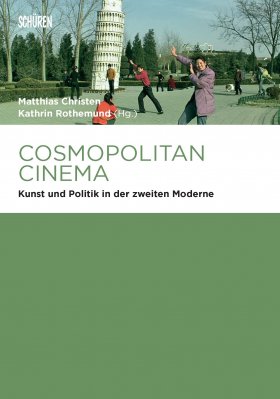
Die Idee einer Weltgesellschaft wird – dies die zentrale These dieses Bandes – in den audiovisuellen Medien aufgegriffen und ausgeformt, indem Welt- und Gesellschaftsmodelle entworfen werden. Das Medium Film wird auf diese Weise im globalen Netz von Bewegungs- und Entwicklungsströmen einer Zweiten Moderne zu einem kosmopolitischen Akteur.
Fendler, U., 2019. Afrikanisches Kino: Un-gebunden undkosmopolitisch. Die «relationalen» Filme von Abderrahmane Sissako, in: Christen, M., Rothemund, K. (Eds.), Cosmoplitan Cinema. Schüren Verlag, pp. 155–172. https://doi.org/10.5771/9783741001116-155 - Fendler, Ute: "Französischsprachige Literaturen : Littérature-monde oder Weltliteraturen"Hide
-
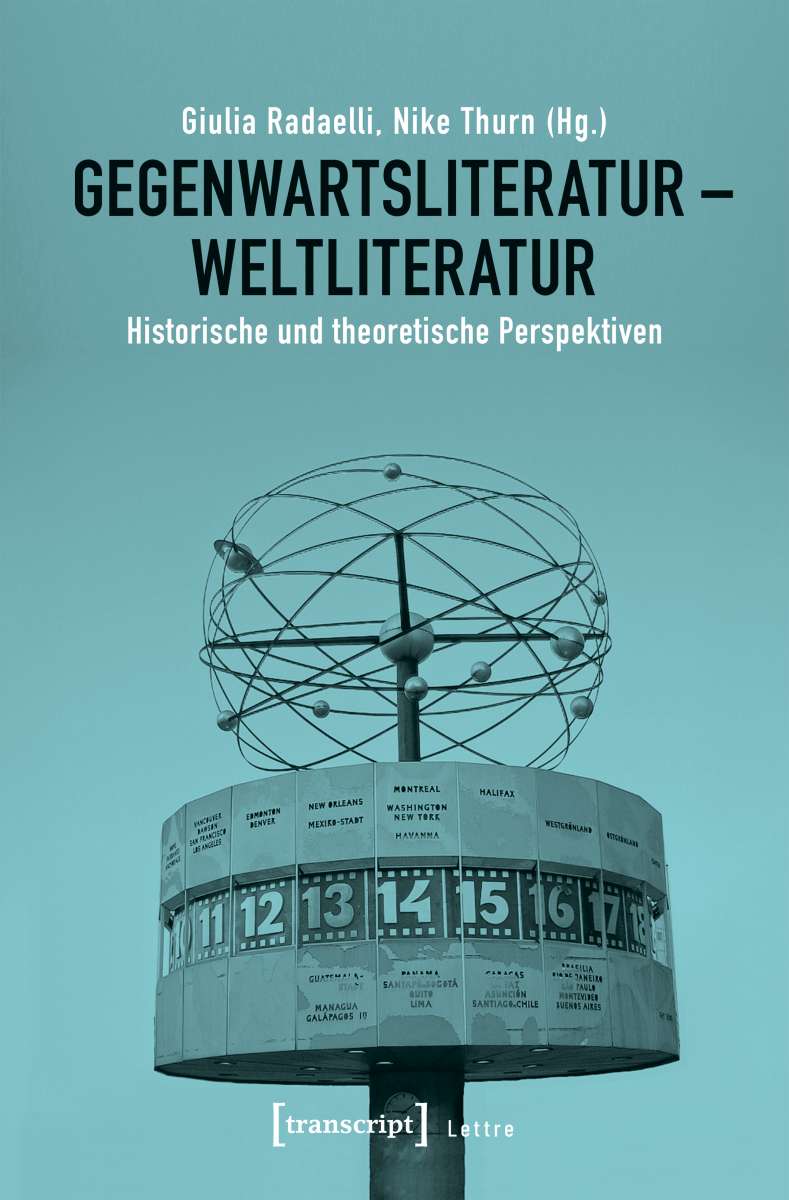
Die Begriffe Gegenwartsliteratur und Weltliteratur werden derzeit kontrovers diskutiert. Ihr spannungsvolles Verhältnis zueinander wurde jedoch bisher kaum beachtet. Die Beiträge des Bandes beziehen beide Begriffe u.a. vor dem Hintergrund aktueller literaturtheoretischer und -historiographischer Debatten aufeinander und erhellen sie wechselseitig durch eine Fokussierung auf das Gegenwärtige der Weltliteratur sowie das Weltliterarische der Gegenwartsliteratur. Die versammelten Beiträge aus Afrikanistik, Anglistik, Germanistik, Japanologie, Romanistik, Slavistik, Kultur- und Medienwissenschaft eröffnen interdisziplinäre wie forschungspolitische Perspektiven und werden durch Einblicke in den Literaturbetrieb ergänzt.
In: Radaelli, Giulia ; Thurn, Nike (ed.): Gegenwartsliteratur - Weltliteratur : historische und theoretische Perspektiven. - Bielefeld : transcript , 2019 . - pp. 61-86 . - (Lettre )
ISBN 978-3-8376-3365-8 - Fendler, Ute: "O Cinema Moçambicano - um cinema fantástico?"Hide
-
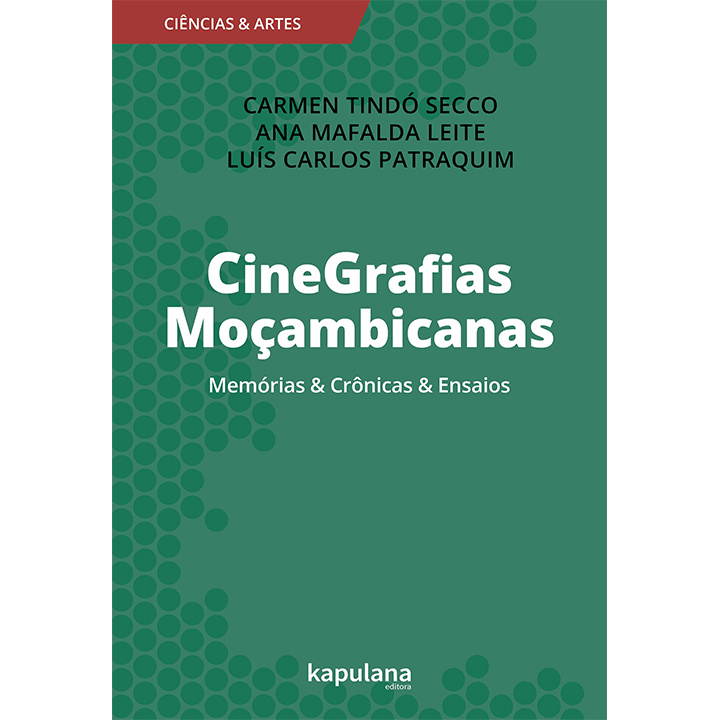
“O Cinema Moçambicano - um cinema fantástico?” In: Secco, Carmen Lucia Tindó/Leite, Ana Mafalda/Patraquim, Luis Carlos (eds.): CineGrafias Moçambicanas: Memórias e Crônicas & Ensaios. São Paulo: Editora Kapulana, 2019, 215-224.
- Gebauer, M.: "Die Stadt trägt Früchte, und doch hungert sie : Nachhaltige Nahrungssicherheit am Kap der Guten Hoffnung."Hide
-
Gebauer, Matthias:
Die Stadt trägt Früchte, und doch hungert sie : Nachhaltige Nahrungssicherheit am Kap der Guten Hoffnung.
In: Kirche im ländlichen Raum. Bd. 70 (2019) . - S. 21-22.
ISSN 0173-4636 - Matzke, Christine: “Art of Wagnis: Christoph Schlingensief’s Crossing of Wagner and Africa"Hide
-
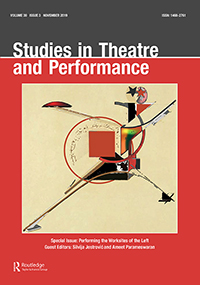
Matzke, Christine, “Art of Wagnis: Christoph Schlingensief’s Crossing of Wagner and Africa, eds. Fabian Lehmann, Nadine Siegert, Ulf Vierke, Vienna, Verlag für Moderne Kunst (VfmK) [2017]”, Studies in Theatre and Performance 39:3 (2019), 308-310.
- Matzke, Christine: “J.C. Abbey, Ghana’s Puppeteer, directed and produced by Steven Feld and the Anyaa Arts Kollektif ...Hide
-
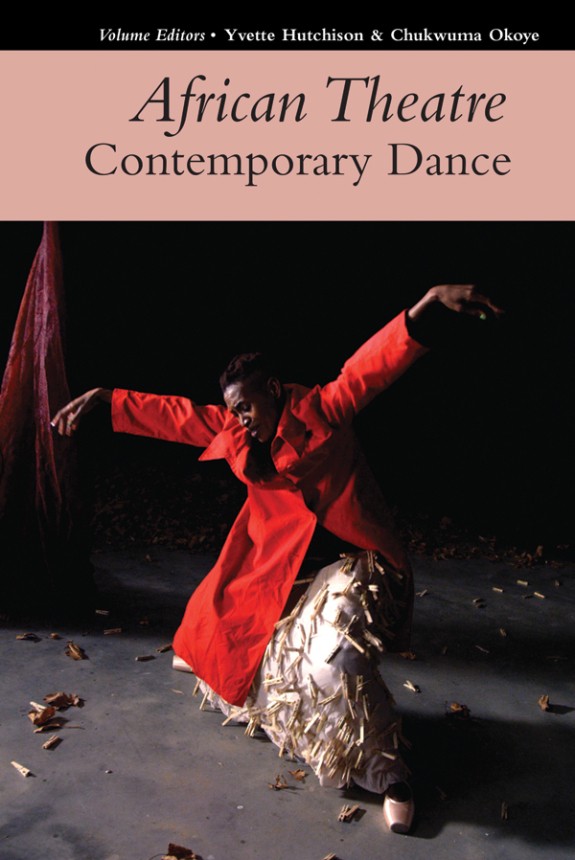
Matzke, Christine: “J.C. Abbey, Ghana’s Puppeteer, directed and produced by Steven Feld and the Anyaa Arts Kollektif (2016). DVD”
To date, scholars have tended, with a few exceptions, to write about African dance in primarily ethnographic terms. This collection seeks to challenge this pattern and expand dance research by engaging with the aesthetics and socio-political impact of dance for communities in and out of Africa in an increasingly global context. Contributors to this issue look at the impact that specifically situated indigenous dance forms have had on the development of new forms locally, and the reciprocal impact of local and international infrastructures, including funding bodies, tourism and festivals. African Theatre 17 examines how dance is contributing to a particularly African interculturalism, while analysing the issues of representation of Africa in a postcolonial context. Articles address the efficacy of dance to engage audiences with disavowed issues regarding gender, sexuality and dis/ability both within and beyond Africa. Highlights include a dance photo essay on F.O.D. Gang's 2017 site-specific street performance "Untitled" in Lagos, a new non-themed section, and the playscript Lunatic! by Zimbabwean playwright Thoko Zulu.
- Fendler, Ute: "Cinema Africano, um Cinema Transnacional? O cinema decolonial de Flora Gomes"Hide
-
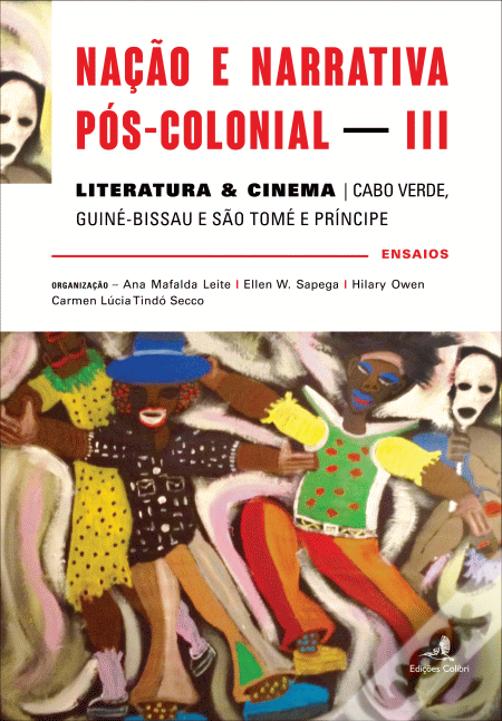
“Cinema Africano, um Cinema Transnacional? O cinema decolonial de Flora Gomes.” In: Ana Mafalda Leite/Hilary Owen/Ellen W. Sapega/Sarmen Lúcia Tindó Secco (eds.): Nação e narrativa pós-colonial - III. Literature & Cinema. Lisboa: Edições Colibri, 2019, 35-48.
- Koddenbrock, K: "Hierarchical multiplicity in the international monetary system: from the slave trade to the Franc CFA ...Hide
-
This article investigates the relationship between international currency hierarchies and ‘societal multiplicity’. I provide an historical sketch of how West African societies and the rest of the world have engaged in trading money for slaves and raw commodities for centuries. I concur that societal multiplicity can indeed be seen as lying at the root of the global monetary system with its multiple currencies. However, my analysis offers three criticisms: First, the multiplicity project fails to give adequate attention to hierarchies in general and to those that come with monetary relations in particular. Second, Because of the existence of the world market, there is always a global and hierarchical sphere that is non-identical to societies and transcends their interaction. Third, money as both global and multiple relation points at the need for a more dynamic understanding of ‘society’ as political and economic borders do not necessarily map unto each other.
Koddenbrock, K (2020) Hierarchical multiplicity in the international monetary system: from the slave trade to the Franc CFA in West Africa, Globalizations, 17:3, 516-531
- Koddenbrock, K.: "Money and moneyness: thoughts on the nature and distributional power of the ‘backbone’ of ...Hide
-
This paper contends that political economy may profit from an understanding of money that is both able to account for its systemic importance as well as money’s specific role for the contemporary distribution of wealth. ‘Money-ness’ is a strategic factor in profit-making and capital accumulation. If we accord moneyness to all those instruments that make the repackaging of credit and other financial assets and liabilities and their capitalization possible, we arrive at an understanding of money that underscores the Marxian analysis of the structural importance of the money relation for capital accumulation that is up to speed with current financial innovations. As a social structure and process, moneymaking through capital permeates society. As a public-private deal between the state, rentiers, banks, and taxpayers that has existed since the foundation of the Bank of England in 1694, it binds these actors together in shifting relations of dependence. Under financial capitalism today, what counts as money and how far moneyness stretches into the realms of financial innovation has been a core object of struggle in the public-private deal of money creation.
Koddenbrock K (2019a) Money and moneyness: thoughts on the nature and distributional power of the ‘backbone’ of capitalist political economy, Journal of Cultural Economy, 12:2, 101-118. [1,418]
- Hönke, J. ; Cezne, E.: "Afrikas Süd-Süd-Beziehungen : Zum Beispiel: Bergbau und Eisenbahnstrecken in Mosambik."Hide
-
Hönke, Jana ; Cezne, Eric:
Afrikas Süd-Süd-Beziehungen : Zum Beispiel: Bergbau und Eisenbahnstrecken in Mosambik.
In: Spektrum. Bd. 15 (2019) Heft 2 . - S. 62-66. - Hönke, J.; Cezne, E.: "Africa's South-South relations : For instance: Mining and railway lines in Mozambique."Hide
-
Hönke, Jana ; Cezne, Eric:
Africa's South-South relations : For instance: Mining and railway lines in Mozambique.
In: Spektrum : The Science Magazine of the University of Bayreuth. Bd. 15 (2019) Heft 2 . - S. 62-67. - Lawanson, T.; Odekunle, D.: Albert, A.: "Urban Redevelopment and the Right to the City in Lagos, Nigeria"Hide
-
This study investigates the interface of forced evictions, the right to the city and urban development in Lagos, Nigeria. It particularly focuses on issues surrounding the 1990 Maroko forced evictions. The paper, through a time line analysis, examines the circumstances that led to the evictions, as well as the socio-spatial consequences of the event on evicted residents and the larger Lagos Metropolis. Leaning on the Right to the City constructs, it further investigates the institutional responses to issues of compensation, relocation and land rights. The research methodology included both qualitative and quantitative data analysis based on questionnaire survey, content analysis of archival materials, and informed participant interviews with evicted residents and representatives of government and civil society partners. The study revealed that more than 25years after the evictions, many evictees are yet to be adequately compensated and are still negatively impacted by the occurrences of that period. The study concludes by advancing strategies for entrenching the right to the city in Lagos, which include pro-poor development practices such as in-situ upgrading and land law reforms.
Lawanson. T, Odekunle. D & Albert. A (2019) Urban Redevelopment and the Right to the City in Lagos, Nigeria; in Albert. I and Lawanson. T (eds) Urban Crisis and management in Africa. Houston: Pan African University press, 295 - 314
- Matzke, Christine: “Jesse Weaver Shipley, Trickster Theatre: The Poetics of Freedom in Urban Africa"Hide
-
“Jesse Weaver Shipley, Trickster Theatre: The Poetics of Freedom in Urban Africa. (Bloomington and Indianapolis: Indiana University Press, 2015); David Afriyie Donkor, Spiders of the Market: Ghanaian Trickster Performance in a Web of Neoliberalism (Bloomington and Indianapolis: Indiana University Press, 2016)”, Theatre Research International 43.1 (March 2018), 118-121.
- Matzke, Christine: "The Routledge Companion to Theatre and Politics"Hide
-
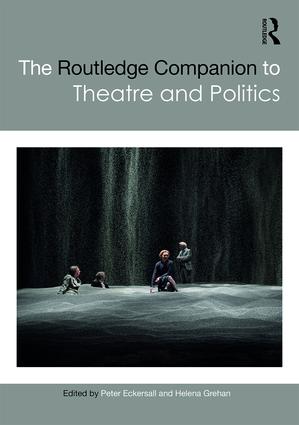
The Eritrean capital of Asmara – UNESCO World Heritage Site since 2017 – contains a stunningly beautiful collection of largely modernist buildings from the period of Italian colonial rule (1889–1941), including today’s Cinema Asmara, Eritrea’s de facto national theatre, situated at the crest of Godena Harnet (Liberty Avenue), the capital’s principle boulevard.
Matzke, Christine, “Flânerie of the Mind: Beyene Haile’s Asmara Play as a Dramaturgy of the Street”, in: The Routledge Companion to Theatre and Politics, eds. Peter Eckersall, and Helena Grehan (London, New York: Routledge, 2019), 268-271.
- Ndi Shang, Gilbert: "Writing the Wall, Righting the World. Exploring the Dionysian Dimensions of Wall Graffiti from the Agora.Hide
-
Ndi Shang, Gilbert: "Writing the Wall, Righting the World. Exploring the Dionysian Dimensions of Wall Graffiti from the Agora to Facebook"
The turn of the current century has witnessed the re-negotiation of materiality and the growing ascendancy of the virtual, the immaterial over the real or tangible. Though it would be presumptuous to claim that the virtual has totally assumed control over the real, it can be asserted that the figure of the wall as a transfusion between the real/virtual and the self/other has emerged between the two. Based on constructions of textuality articulated by theorists such as Roland Barthes and Friedrich Nietzsche, and a pastiche format that mimics the functionality of the wall of scription, this article brings together multiple enactments of mural scriptions that include the concrete, textual, textile, vegetative and the virtual in order to articulate the Dionysian property of wall-effects. It traces successive actualisations of the wall, analysing how the virtual Facebook wall assimilates and re-dynamizes the traits of the tangible walls through an array of intertextual/inter-medial modalities.
Faculty of Social Sciences, Universidad de los Andes, Ndi Shang, G., 2018. Writing the Wall, Righting the World. Exploring the Dionysian Dimensions of Wall Graffiti from the Agora to Facebook. MJCST 4, 113–142. - Neubert, Dieter: "Decentralised conflicts, heterarchy and the limits of conflict regulation"Hide
-
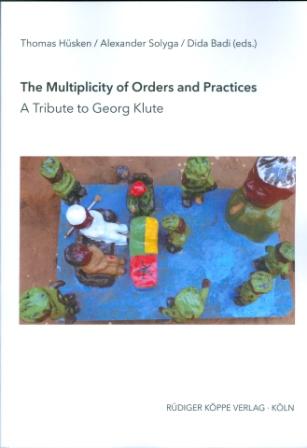
he volume is meant as a tribute to Georg Klute and his work. It focusses on four thematic fields which have been central for Georg Klute’s research: “politics and beside and beyond the state”, “legal pluralism”, “anthropology of violence and war”, “anthropology of work”, and “participant observation”. The book intends to trigger debate, discussion, and thus, further evolvement of Georg Klute’s scholarly œuvre.
Dieter Neubert 2019: Decentralised conflicts, heterarchy and the limits of conflict regulation. In: Thomas Hüsken, Alexander Solyga, Dida Badi (ed.), The multiplicity of orders and practices. A tribute to Georg Klute. Köln: Koeppe, 237-252.
- Neubert, Dieter: "Middle-Income Groups in Kenya.Conflicting Realities Between Upward Mobility and Uncertainty"Hide
-
For more than a decade scholars mostly from economy and development studies have described the rise of a newly emerging ‘middle class’ in the Global South in-cluding Africa. This has led to a ‘middle class narrative’ with the ‘middle class’ as the backbone of economic and democratic development. Especially with regard to the stability of the position of the people in the ‘middle’, empirical social science studies challenge the ‘middle class narrative’ and at their uncertainty and insecurity. This tension between upward mobility at the one hand uncertainty and instability at the other hand (the vulnerability-security nexus) and the options to cope with this challenge under the condition of limited provision of formal social security is the focus of this case study on Kenya. Instead of an analysis of inequality based on income, it is more helpful to start from the welfare mix and the role of social net-works as main elements of provision of social security. Against this background, we identify different strategies of coping that go together with different sets of values and lifestyles, conceptualised as milieus, that are not determined by the socio-economic situation.
Dieter Neubert: 2019 Middle-income groups in Kenya. Conflicting realities between upward mobility and uncertainty. In: Sozialpolitik.ch / Social Policy. 1/2019 – article 1.3.
- Schmidt, M.; Koddenbrock, K.: "Against Understanding: The Techniques of Shock and Awe in Jesuit Theology ....Hide
-
Revolving around three examples - Jesuit missionary activities in 17th century North America, Friedrich von Hayek’s neoliberal thought and Timothy Morton’s theory of hyperobjects - our paper discusses the notions of “distance” and “pointing out” which are subterraneously at work in today’s critical spirit and its tendency to align itself with the “affirmation turn”. Our investigation of the distances between subject and object and the role of the critic’s pointing at diverse “hyperobjects” (god, the market and global warming), helps us excavate a mode of critique that we call “presentist persuasion”. “Presentist persuasion” works as a form of critique that reveals the truth by pointing out hyperobjects’ encompassing presence for the sake of an overarching ethical or political goal instead of initiating a process of understanding them.
Schmidt M & Kai Koddenbrock (2019) Against Understanding: The Techniques of Shock and Awe in Jesuit Theology, Neoliberal Thought and Timothy Morton’s Philosophy of Hyperobjects, Global Society, 33:1, 66-81
- Stefan Ouma, Julian Stenmanns, Julia Verne: African Economies : Simply Connect? Problematizing the Discourse ...Hide
-
Stefan Ouma, Julian Stenmanns, Julia Verne: African Economies : Simply Connect? Problematizing the Discourse on Connectivity in Logistics and Communication. In: Mark Graham (Hrsg.): Digital Economies at Global Margins.
In this chapter, we situate the contemporary discourse of connectivity in its historical context, excavating the “living links” (Farmer 2004, 309) that connect the policy past to the policy present. We then engage with the similarities and differences between colonial and early postcolonial discourses of connectivity, as well as the contemporary one, by considering the fields of logistics and communication as two examples that are emblematic of current development efforts under the connectivity paradigm. While acknowledging the progressive and cosmopolitan potential of connectivity, we argue that contemporary discourses of connectivity in the realm of communication and logistics are problematic for their uncritical continuation of the modernist gaze, which manifests itself in an uncritical embracement of “technoliberal boosterism” (Carmody 2012, 12). Against this background, we therefore wish to propose an alternative reading of contemporary connectivity and its underlying materialities, socialities, and spatialities by bringing to the fore three key arguments that signal the problematic nature of connectivity as a blueprint for transforming economies “at the margins”.
Stefan Ouma, Julian Stenmanns, Julia Verne: African Economies : Simply Connect? Problematizing the Discourse on Connectivity in Logistics and Communication. In: Mark Graham (Hrsg.): Digital Economies at Global Margins. - London : MIT Press, 2019. - S. 341-
- Spies, Eva: Article: Being in Relation: A Critical Appraisal of Religious Diversity and Mission Encounter in MadagascarHide
-
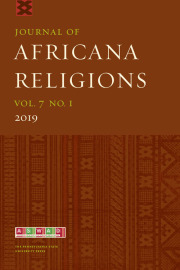
This article presents a relational perspective on religious diversity and encounter. It argues that a relational perspective helps overcome notions of religious diversity that tend to be reductionist and rather static because they conceptualize diversity as the many subforms of a single instance or the parts of a whole. Accordingly, the article questions such notions and instead proposes to study the multiple relations in and through which religious actors and settings are constituted. The example of current mission work of a Nigerian Pentecostal church in Madagascar shows how religious actors and communities can be understood as products of continuous relational processes. Mission encounters are no longer viewed as encounters between discrete entities but as specific meshwork. To rethink diversity and mission encounters in relational terms not only takes up ideas of relational being in Madagascar but may also give new impulses to debates on religious exchange in plural contexts
Eva Spies. 2019. „Being in Relation: A Critical Appraisal of Religious Diversity and Mission Encounter in Madagascar“. Journal of Africana Religions 7 (1): 62-83.
- Tchokothe, Rémi Armand: "How Can Literary Works Help Us to Understand the Politics of Migration?"Hide
-
The island of Mayotte forms part of the Comoros archipelago in the Indian Ocean. While Mayotte is part of France and the EU, other islands of the archipelago like Grande Comore and Anjouan are not. In this video, REMI TCHOKOTHE analyzes the tensions that this situation has caused, focusing on how they have been expressed in literary works. Employing close readings of writings by Nassur Attoumani and Soeuf Elbadawi alongside critical geography and field observation, Tchokothe notes that, for these authors, historically established patterns of internal movement between the islands cannot constitute illegal migration. Noting how both authors employ the French language as a tool of resistance, Tchokothe highlights the vital, ongoing role that literature can play in the process of decolonization.
Latest Thinking, Tchokothe, R.A., 2017. How Can Literary Works Help Us to Understand the Politics of Migration? LT. https://doi.org/10.21036/LTPUB10756
PUBLICATIONS BY BAYREUTH ACADEMY FELLOWS
Fellows 2023/2024
- Dr. Suleiman ChembeaHide
-
- Chembea, S. (2023). “Mediatized Spirituality: Qasidah and Nashid for Alternative Narratives and Religious Economy in the East African Coast”. Journal for Islamic Studies, 41(1):21 pages. https://unisapressjournals.co.za/index.php/JIS/article/view/15060
Fellows 2022/2023
- Dr. Anthony DialaHide
-
- Diala, AC, & Hussein, N. (2023). The Tsetse Fly Perched on the Scrotum: Publishing Problems in Academic Journals. Potchefstroom Electronic Law Journal (PELJ), 26(1), 1-28. https://dx.doi.org/10.17159/1727-3781/2023/v26i0a15778
- (2024) A.C. Diala and C. Rautenbach ‘Introduction: The complex interplay of legal systems’ in Reimagining legal pluralism in Africa [forthcoming, Brill Academic Publishers].
- (2024) A.C. Diala ‘Foreword: Law and sustainable development after Covid-19’ in (A.E. Arimoro, E.M. Igbokwe and T.T. Egbe) Law and Sustainable Development after Covid-19 (Routledge) pp. i-iv.
- (2024) ‘Comparative indigenous law’ in M. Siems and P.J. Yap (Editors) Cambridge Handbook of Comparative Law [Cambridge University Press; ISBN: 9781108843089] 693-712.
- Dr. Bakheit NurHide
-
- Nur, Bakheit Mohammed (2023). Sudan's Unending Predicament: Background to the Outbreak of a New War. Research Africa Reviews, 7 (1): 1-7.
- Nur, Bakheit Mohammed (2023). Religion, Politics, and Society : The Role of Political Islam in the Sudanese Revolution of December 2018 and its Aftermath. Modern Africa 11(1): 11-44.
- Bakheit Mohammed Nur (2022). Politics of epistemology in postcolonial Africa: The Islamisation of knowledge in the Sudan, Politics, Religion & Ideology, 23:4, 475-496
- Dr. Faisal Garba MuhammedHide
-
- Awumbila, Mariama & Garba Muhammed, Faisal & Darkwah, Akosua & Zaami, Mariama. (2023). Migrant Political Mobilisation and Solidarity Building in the Global South.
- Dr. Judith BachmannHide
-
- Materialization through Global Comparisons: the Findings at Ile-Ife from the Late 19th Century to the 1960s. In: Interdisciplinary Journal for Religion and Transformation in Contemporary Society (2023), S. 1-25.
- Dr. Lamine DoumbiaHide
-
- Doumbia, L., Sowa, K. Vehrs, H.-P. & Q. Vo (2023): Content Warning? Kritische und sensible Wissensvermittlung in der ethnologischen Lehre.
- Otundo, B.K., Doumbia, L. (2023): Exploring the significance of toponyms in the university linguistics curriculum: insights from Kibera in Kenya and Sabalibougou in Mali. Curric Perspect.
- Dr. Noemi AlfieriHide
-
Working paper:
2023: “Circulations, decolonizations, unbalances. Anticolonial networks and links between the literary reviews Mensagem, Présence Africaine and Black Orpheus”. Academy reflects – WP Series–2023, University of Bayreuth
Peer-reviewed edited Journal Issues:
2023: Da Luz, H. Ferraz, E. Alfieri, N., Mbiavanga, F. Olegário, E., Mapera, Martins JC, Martins, Moisés de Lemos. “Cultura e Sociedade. Que literacias para uma justiça económica e social?” Njinja & Sepé: Revista Internacional de Culturas, Línguas Africanas e Brasileiras– v. 3 nº 2, jul-dez 2023, UNEB, São Francisco do Conde (Brazil), p- 34-48
https://revistas.unilab.edu.br/index.php/njingaesape/indexEdited volumes:
2023: Fiorotti, Oliveira, Alfieri (org). Histórias e políticas em diferentes contextos africanos / Histories and politics in different African contexts. Rio de Janeiro, Autografia, 2023.
2022: Alfieri, Da Luz, (org), Literaturas e Culturas Caribenhas, Iberoamericanas e Africanas. Livro de resumos, CHAM, Livro de resumos. https://run.unl.pt/handle/10362/145681
Peer-reviewed Journal articles:
2024: “Escrita imigrante e diaspórica nos circuitos independentes: trânsitos de mulheres e descolonização de imaginários em Portugal” - Revista Científica da UEM, – Special Issue, Universidade Eduardo Mondlane (Mozambique), 2023.
2023: “Mensagem, Présence Africaine, Black Orpheus: African epistemes and the renovation of the literary environment (1960s)”, História da Historiografia, UNIRIO, Vol 16, nº 41, Jan- Abr 2023, Hansen, Da Glória Oliveira (org) - Corpos, tempos e lugares das historiografias, Universidade Federal de Ouro Preto (Brazil).
2023: Da Luz, H. Ferraz, E. Alfieri, N., Mbiavanga, F. Olegário, E., Mapera, Martins JC, Martins, Moisés de Lemos. “Apresentação do dossier. Cultura e Sociedade. Que literacias para uma justiça económica e social?” Njinja & Sepé: Revista Internacional de Culturas, Línguas Africanas e Brasileiras– v. 3 nº 2, jul-dez 2023, UNEB, São Francisco do Conde (Brazil), p- 34-48
https://revistas.unilab.edu.br/index.php/njingaesape/article/view/13872023: “Debates literários no jornal A voz de Moçambique entre 1961 e 1964: literatura, censura, racismo”. Njinja & Sepé: Revista Internacional de Culturas, Línguas Africanas e Brasileiras– v. 3 nº 2, jul-dez 2023, UNEB, São Francisco do Conde (Brazil), p- 34-48
https://revistas.unilab.edu.br/index.php/njingaesape/article/view/13482022: “Publicações Imbondeiro: como a editora circulou e foi encerrada pela PIDE. Entrevista a Leonel Cosme.” ABEÁfrica: Revista da Associação Brasileira de Estudos Africanos – v. 7 nº 7, 2022, Rio de Janeiro (Brazil), p. 159-70
https://revistas.ufrj.br/index.php/abeafrica/article/view/54531/31285Peer-reviewed Book chapters:
2022: “Red lines in Çanakkale”. Resta, Giuseppe (org). The City and the Mith. 110-114. Casa Editrice Libria, Melfi, 2022.
https://writingurbanplaces.eu/the-city-and-the-myth/Magazine articles:
2022: “Resistências Atlânticas, libertações e escrita. Repensando o género”. Gerador, 25/11/2022 (Lisbon, Portugal)
https://gerador.eu/resistencias-atlanticas-libertacoes-e-escrita-repensando-o-genero%EF%BF%BC/Prefaces:
2023: “Ratos, Ruínas e Afrofuturismos em Kwashala Blues”. Preface to: Cacinda, Jessemunde. Kwashala Blues. Maputo: Ethale Publishing, 2023.
- Dr. Thokozani MhlambiHide
-
- Mhlambi, Thokozani N & Hanson, Michael H (2022). Tuning Systems and European Colonialism in Africa. Pyschology of Aesthetics, Creativity, and the Arts.
- Prof. Stephen BrownHide
-
Journal article:
- Brown, Stephen. “When development cooperation principles clash: National ownership and LGBTQI+ inclusion in hostile environments”. Revise and resubmit.
Reviews:
- Brown, Stephen. “Visibility or Impact? International Efforts to Defend LGBTQI+ Rights in Africa”. Journal of Human Rights Practice, vol. 15, no. 2 (2023), pp. 506-522.
- Brown, Stephen and Morgane Rosier. “COVID-19 vaccine apartheid and the failure of global cooperation”. British Journal of Politics and International Relations, vol. 25, no. 3 (2023), pp. 535-554.
- Brown, Stephen. “Mining self-interest? Canadian foreign aid and the extractive sector in Mongolia”. Canadian Journal of Development Studies, vol. 44, no. 4 (2023), pp. 645-664.
- Brown, Stephen. “Global frictions: Aid suspension, donor–recipient relations and the 2018 anti-LGBT+ crackdown in Tanzania”. Under review.
Blogs:
- Brown, Stephen. “International Development Cooperation and LGBTQ+ Rights in Africa”. Blog post, EADI Debating Development Research Blog, May 9, 2023 • Reposted on the blog of the Centre for International Policy Studies, University of Ottawa, May 9, 2023 • Published in French as « Coopération internationale et droits des personnes LGBTQ+ en Afrique », Blogue Un seul monde, Institut d'études internationales de Montréal, Université du Québec à Montréal, May 29, 2023 • Published in Portuguese as “Cooperação Internacional para o Desenvolvimento e Direitos LGBTQ+ em África”, Oficina Global blog, June 14, 2023.
- Brown, Stephen. “Foreign aid in 2022: More spending, but not much to celebrate”. Blog post, McLeod Group, April 17, 2023.
- Brown, Stephen. “Promises made, promised broken: Foreign aid and Budget 2023”. Blog post, McLeod Group, March 29, 2023.
- Brown, Stephen. “Canada and Mongolia – The Enhanced Development Partnership that Never Was”. Blog post, Mongolia Focus, March 21, 2023 • Reposted on the blog of the Centre for International Policy Studies, University of Ottawa, March 30, 2023.
- Brown, Stephen and Gloria Novovic “The World According to Chrystia Freeland”. Blog post, McLeod Group, October 18, 2022 • Reposted on the blog of the Centre for International Policy Studies, University of Ottawa, October 20, 2022.
Fellows 2021/22
- Dr. Endurence DissakeHide
-
- Dissake, Endurence. (2022). Introducing Technology in Education during the Time of Pandemic: The Case of the University of Bamenda. 10.56059/pcf10.9834.
- Dr. Isao MurahashiHide
-
- Isao Murahashi (2022). Refugee Mobility and Uncertain Lives, ASC-TUFS Working Papers, 2022, Volume 2, Pages 83-102.
- Dr. Jonas do NascimentoHide
-
- do Nascimento, Jonas. (2023). The Art of “Re-Existence”: Decolonizing History Through Decolonized Memories. 10.1007/978-3-662-66222-9_1.
- do Nascimento, Jonas. (2022). A DIALÉTICADA EMANCIPAÇÃONA LUTA POR RECONHECIMENTO: PENSANDO COM GEORG HEGEL, FRANTZ FANON E AXEL HONNETH [THE DIALECTIC OF EMANCIPATION IN THE STRUGGLE FOR RECOGNITION: THINKING WITH GEORG HEGEL, FRANTZ FANON AND AXEL HONNETH]. Aufklärung Journal of Philosophy. 9. 57-72. 10.18012/arf.v9i2.62127.
- do Nascimento, Jonas. (2022). Descolonizando a Mente e o Olhar: "Xala" e a Impotência do Estado Pós-colonial / Decolonizing the Mind and the Gaze:“Xala”and the Impotence of the Postcolonial State. ODEERE. 7. 163-182. 10.22481/odeere.v7i1.10260.
- do Nascimento, Jonas. (2022). Fotografia, Memória e História: comentário acerca do (in)imaginável das imagens / Photography, Memory and History: commentary on the (un)imaginable of images. Temática. 18. 35-45. 10.22478/ufpb.1807-8931.2022v18n4.62635.
- do Nascimento, Jonas. (2022). Bodies in Motion: Rethinking Spaces and Borders Sociologically. Open Journal of Social Sciences. 10. 424-441. 10.4236/jss.2022.102030.
- do Nascimento, Jonas. (2022). An Atlantic Adventure: Brazilian Film Series in Perspective.
- do Nascimento, Jonas. (2022). Promessas e Desafios da Migração: Reimaginando Espaços e Fronteiras a partir do Cinema Africano Contemporâneo / Promises and Challenges of Migration: Reimagining Spaces and Borders from Contemporary African Cinema. 22533/at.ed.257222101.
- Dr. Sharon OmotosoHide
-
- Omotoso, Sharon. (2023). Media Transnationalism and the Politics of 'Feminised Corruption' academy reflects.
- Dr. Sybille NyeckHide
-
- Nyeck, S.N. (2023). Book: African (a) Queer Presence
- Dr. Viviane de FreitasHide
-
- Martins, Waleska & Martins, Sérgio & de Freitas, Viviane. (2023). A autoria feminina nos programas de pós-graduação: velhas fronteiras e novos trânsitos. FronteiraZ. Revista do Programa de Estudos Pós-Graduados em Literatura e Crítica Literária. 46-63.
- Attie, Juliana & de Freitas, Viviane. (2021). “Temps Perdi”: territórios sobrepostos, histórias entrelaçadas. Antares: letras e humanidades. 13. 132-149.
- De Freitas, Viviane.; Cunha, Rubens. (2021) “Eu não serei eu, eu serei nós”: a comunidade imaginada de Jacinta Passos. ITINERARIOS (UNESP. ARARAQUARA). , v.52, p.115 - 132.
- De Freitas, V.; ATTIE, J. P. (2023). O tempo-espaço como escritura In: Literatura, Decolonialidade e Trânsitos: Guiana Francesa e Suriname.1 ed.Rio Branco: NEPAN Editora, p. 123-144.
- Prof. Henriette GunkelHide
-
- Gunkel, Henriette. (2023). Was Bleibt: Spektrale Infrastrukturen kolonialer Extraktion im Kontext Namibias. Sprache und Literatur. 52. 49-69. 10.30965/25890859-05201004.
- Gunkel, Henriette ; Lynch, Kara : We Travel the Space Ways; Link to the publication
- Sand, Atmosphere, Memorialization:Some Reflections on the Remains of German Colonial Extraction in Namibia’s Desert https://insert.art/ausgaben/dis-sense/sand-atmosphere-memorialization/
- Prof. Jorge Cardoso FilhoHide
-
- Jorge Cardoso Filho, Daniela Abreu Matos (2023), Imagens do Atlântico Sul e do Índico: experiências estéticas nas diásporas oceânicas Images of the South Atlantic and the Indian Ocean: aesthetic experience in oceanic diasporas. AÇÃO MIDIÁTICA, n. 26, jul./dez. 2023 Curitiba. PPGCOM - UFPR, ISSN 2238 - 0701
https://revistas.ufpr.br/acaomidiatica/article/view/90474/49849
- Jorge Cardoso Filho, Daniela Abreu Matos (2023), Imagens do Atlântico Sul e do Índico: experiências estéticas nas diásporas oceânicas Images of the South Atlantic and the Indian Ocean: aesthetic experience in oceanic diasporas. AÇÃO MIDIÁTICA, n. 26, jul./dez. 2023 Curitiba. PPGCOM - UFPR, ISSN 2238 - 0701
- Prof. Susanne LachenichtHide
-
- Lachenicht, Susanne (2022). Future Africa?! Timescapes and the Flattening of Time in the Modern Era. University of Bayreuth African Studies Working Papers 31, Academy Reflects 7.
- Prof. Susanne MohrHide
-
- Mohr, Susanne (2022) Investigating English in multilingual contexts online: Identity construction in geotagged Instagram data. Frontiers in Communication 6: 778050. doi: 10.3389/fcomm.2021.778050.


